






International trade and cooperation are the backbone of our global economy, and the United Arab Emirates is a leading example of what can be achieved when we support businesses – from fast-tracking development to enhancing economic competitiveness, and building economies that are not only stronger, but also more inclusive
Cooperation and collaboration are more important than ever before –and the G20 is a shining example of how multilateralism and global partnerships can pave the way for progress.
The United Arab Emirates, for example, has shifted its priorities in recent years in order to prepare its economy for the next 50 years and enhance its competitiveness in the global arena. Its new economic vision is ambitious and far-reaching. From the ‘Projects of the 50’ initiative, which will attract foreign direct investment worth more than $150 billion over the coming decade, to a series of measures that includes new free trade agreements and updates to the visa system – encompassing new long-term residency and virtual working visas – it’s a strategy designed to accelerate the UAE’s development and reinforce its position as a preferred destination for investors and talent alike. Already, we can see the fruits of this labour. Over the next 10 years, the UAE’s
digital economy strategy is forecast to double its contribution to gross domestic product to 19.4%. As the G20’s focus on digital transformation proves, now is the moment to assist businesses operating in this vital, fast-growing and rapidly evolving sector of our economy. We have also recently seen the passing of a new law on public-private partnerships, which supports the UAE’s goal of building a sustainable, competitive, knowledge-based economy.
Dubai, in particular, is exploring new ways to further open up to the world and cement its status as a global economic and investment hub. The government’s focus rests on driving international cooperation and advancing the digital economy, which includes developing a digital asset industry, leveraging public-private partnerships, and boosting its value proposition to businesses and investors through a series of incentives. The work falls within Dubai’s five-year plan, which is aimed at boosting non-oil foreign trade to $544 billion.
One of the key factors behind Dubai’s remarkable growth story is its ability to push the boundaries, reimagine the future and create new possibilities. In a first-of-its-kind move, three chambers of commerce, namely Dubai Chamber of Commerce, Dubai International Chamber and Dubai Chamber of Digital Economy, were established under the restructured Dubai Chambers as part of a strategic move to spearhead Dubai’s economy in the post-pandemic era and create new growth opportunities for businesses in the emirate.
While Dubai Chamber of Digital Economy works on transforming Dubai into an international technology hub, Dubai Chamber of Commerce is playing a major role in representing, supporting and protecting the interests of businesses in Dubai in a fast-changing business landscape, while Dubai International Chamber is forging new economic

partnerships worldwide and helping local companies to achieve success in global markets.
Facilitating global trade is our remit, and our goal is to promote sustainable and inclusive economic development through the participation of micro, small and medium enterprises – especially in the digital economy. It is here that the ambitions of the G20 and Dubai Chambers intersect. Our vision of a digital future is one which is shared, and our ability to rapidly digitalise the global economy, boost international trade and enhance public–private-sector activity rests on cooperation among nations and all stakeholders. It is only through collaboration that we can ensure prosperity for all in the digital age.
To achieve this aim, our focus is trained on attracting business, investors and startups from around the world – and there is much work under way, from roadshows designed
to attract rising scaleups specialising in advanced technologies and digital business solutions in fast-growing sectors, to the formation of Dubai Digital Assets Business Group, whose remit is to boost the role of the digital asset industry in the UAE and wider region’s economic development, and support the growth of digital companies operating here.
Amid it all is the singular goal to develop and expand emerging economic sectors. To grow the digital economy and support innovation-focused sectors, this year Dubai has signed landmark free trade agreements with India, Israel, Indonesia and Colombia. As well as supporting the emirate’s ambitions in sustainable development, these agreements build new bridges of cooperation and further crack open the thriving economies of Dubai and the UAE –to the benefit of all.
The three new chambers work in tandem towards these goals and within Dubai’s strategic agenda. The reshuffle has enabled Dubai Chambers to better serve Chamber members, deliver added value, future-proof Dubai’s economy and – crucially –implement a more specialised approach to the specific objectives outlined under Dubai’s new vision.
Dubai Chambers is among the first chambers in the world to adopt a three-chamber model, and its work will no doubt elevate Dubai in the global arena.

In addition to the important work Dubai Chambers is doing to expand trade relations and attract digital businesses and talent to the emirate, it is also serving as a bridge between government and business by creating new channels and platforms to facilitate public–private-sector cooperation. Our work here includes establishing 50 integrated commercial representative offices for Dubai across five continents within the next few years. Named Dubai Global, this initiative will see the network operate as part of Dubai Chambers and in partnership with several government and private-sector entities in Dubai. Its overarching goal is to attract investment, talent and new business to Dubai, while supporting Dubai-based companies in their exploration of economic and commercial opportunities in 30 markets around the globe.
The global expansion of Dubai companies echoes the G20 priority themes of international cooperation, global
His Excellency Abdul Aziz Al Ghurair is the chair of Dubai Chambers, Dubai Chamber of Commerce and Mashreq Bank. H.E. Al Ghurair also holds the position of chair at the UAE Banks Federation, Masafi LLC, Abdullah Al Ghurair Education Foundation and the Abdul Aziz Al Ghurair Refugee Education Fund. He is the chair of the board of directors of Oman Insurance PJSC, vice chair of Al Ghurair Investment and board member of the Emirates Foundation. Furthermore, he is emeritus chair and board member of the Family Business Council-Gulf, and governing council member of the Global Muslim Philanthropy Fund for Children in partnership with UNICEF and the Islamic Development Bank.
trade, an enabled and supported digital economy, and sustainable development – and it is critical work as the world’s economies continue to suffer the effects of the pandemic. As we look to build green markets, diversify trade, create opportunities for underserved markets and enhance competitiveness, we can establish the trade and digital sectors as key pillars of Dubai’s – and the world’s – economy. I look forward to seeing what the G20 and the world’s business community can together achieve.

Published by GT Media Group Ltd.
Produced and distributed by The Global Governance Project, a joint initiative between GT Media Group Ltd, a publishing company based in London, UK, and the G20 Research Group based at the University of Toronto. www.g20.utoronto.ca
The Global Governance Project provides a vital function for private- and public-sector organisations in support of their governance responsibilities. To carry out executive duties effectively, we must have access to unbiased, objective and independent opinion, based on actual policy set at and influenced by the G20 summits and their leadership.
Publisher: Khaled Algaay
Director: Tom Kennedy
Co-Editor: John Kirton
Co-Editor: Madeline Koch
Guest Editor: Yulius Purwadi Hermawan

Managing Editor: Emily Eastman
Partnerships Manager: Rahul Jain
Contact:

20-22 Wenlock Road, London N1 7GU, United Kingdom
Tel: +44 207 6085137
Email: Connect@globalgovernanceproject.org @GloGovProj www.globalgovernanceproject.org
G20 Research Group
Contributors:
Kaylin Dawe
Sonja Dobson
Angela Min Yi Hou
Jennifer Jeffs
Ella Kokotsis
Julia Kulik
Michael Motala
Duja Muhanna
Tristen Naylor
Chiara Oldani
Jessica Rapson
Denisse Rudich
Julia Topps
Alissa Wang
Brittaney Warren
Maria Zelenova
© 2022. The entire contents of this publication are protected by copyright. All rights reserved. No part of this publication may be reproduced, stored in a retrieval system, or transmitted in any form or by any means: electronic, mechanical, photocopying, recording or otherwise, without the prior permission of the publisher. The views and opinions expressed by independent authors and contributors in this publication are provided in the writers’ personal capacities and are their sole responsibility.

Their publication does not imply that they represent the views or opinions of the G20 Research Group, University of Toronto or GT Media Group Ltd and must neither be regarded as constituting advice on any matter whatsoever, nor be interpreted as such. The reproduction of advertisements in this publication does not in any way imply endorsement by the G20 Research Group or GT Media Group Ltd of products or services referred to therein.
This series is printed using sustainable materials. Our printers conform to the ISO 14001 certification, which helps organisations to use resources more efficiently and reduce their carbon emissions. Please recycle this paper when you have finished reading the content.
20 AN UNPRECEDENTED G20
Justin Trudeau, prime minister, Canada
10 RECOVER TOGETHER, RECOVER STRONGER
Joko Widodo, president, Indonesia
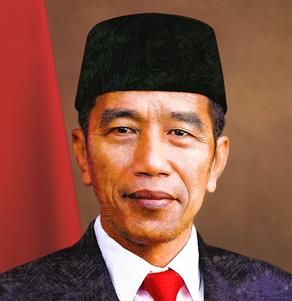
28
HUMAN SECURITY IN A NEW ERA
Fumio Kishida, prime minister, Japan
29
NEW GLOBAL FRAGMENTATION
Olaf Scholz, chancellor, Germany
36

FOCUS ON OUR COMMON DENOMINATORS
Recep Tayyıp Erdoğan, president, Turkey
45
A BRIEF BACKGROUND
Giorgia Meloni, prime minister, Italy

46
A UNITED G20 FOR THE FUTURE
38
Joe Biden, president, Xi Jinping, president,
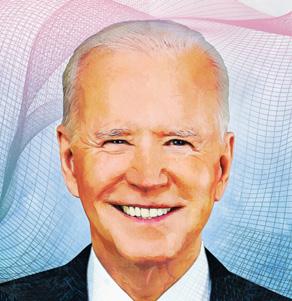
30
ADVOCACY: THE SEEDS OF NEW IDEAS
His Excellency
Mohammed bin Obaid Al Mazrooei, president and chairman of the board of directors, Arab Authority for Agricultural Investment and Development



32
NEW TERMS OF DIALOGUE
Emmanuel Macron, president, France
REBUILDING TRUST,
president, European
34
A COMMON AGENDA FOR HUMANITY
FREEDOM AND SOLIDARITY: ANSWERS TO THE WATERSHED MOMENT
Yoon Suk-yeol, president, Korea

40
LEADING THE WORLD
Anthony Albanese, prime minister, Australia
Marcelo Ebrard, foreign minister, Mexico
48
DEFENDING OUR COMMON PRINCIPLES, RESPONDING TO OUR COMMON CHALLENGES
Pedro Sánchez, president, Spain

50

A SIGNIFICANT SUMMIT IN BALI
John Kirton, director, G20 Research Group

42
A CONTINENT IN SOLIDARITY
Ursula von der Leyen, president, European Commission

43
ON KEY DEMOGRAPHIC FACTORS
Vladimir Putin, president, Russia
52


INDONESIA’S G20 PRESIDENCY: INDISSOLUBLE CHALLENGES, COMMENDABLE ACHIEVEMENTS
Edi Prio Pambudi co-sherpa, G20
Indonesia, and Yulius
president, Argentina
Cyril Ramaphosa, president, South Africa
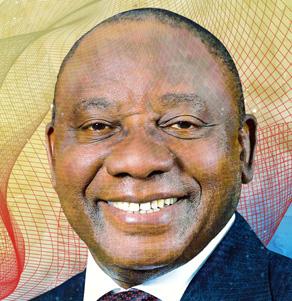
44
A NEW BRITAIN FOR A NEW ERA
Liz Truss, prime minister, United Kingdom
Purwadi Hermawan, lecturer, International Relations, Parahyangan Catholic University
70
G20 PERFORMANCE ON HEALTH
Maria Zelenova, senior researcher, G20 Research Group
56
STRONGER TOGETHER
Tedros Adhanom Ghebreyesus, director-general, World Health Organization
60
FINANCING ANIMAL HEALTH
Monique Eloit, director-general, World Organisation for Animal Health
PROMOTING PEOPLE’S HEALTH
Winnie Byanyima, executive director, UNAIDS 64 THE WORLD IS WATCHING
Interview with Joy St John, executive director, Caribbean Public Health Agency
66
TAKING ACTION TOGETHER
Ilona Kickbusch, founding director, Global Health Centre, Graduate Institute of International and Development Studies
68 THE KEY TO ALL HEALTH
Suvarna Alladi, professor of neurology, National Institute of Mental Health and Neurosciences, Bangalore, and Vladimir Hachinski, distinguished university professor, Western University, Canada
G20
PERFORMANCE ON MACROECONOMIC POLICY
Alissa Wang, senior researcher, G20 Research Group
72
TURNING AMBITION INTO ACTION
Mathias Cormann, secretary-general, Organisation for Economic Co-operation and Development
74
SOLUTIONS FOR THE 21ST CENTURY
Mariana Mazzucato, chair, World Health Organization Council on the Economics of Health For All
BUILDING A BETTER ECONOMY
80
THE BENEFITS OF BLOCKCHAIN
Chiara Oldani, professor of economics, University of Viterbo ‘La Tuscia’
82
GOVERNING INTERNATIONAL PAYMENTS IN THE DIGITAL AGE
Jennifer Jeffs, senior research associate in global finance, G20 Research Group
2.3 A FAIRER TAX LANDSCAPE
76
ADVANCING INNOVATIVE, INCLUSIVE AND COLLABORATIVE GROWTH
Shinta Widjaja
Kamdani, chair, Business 20
2.2 FOSTERING FINANCIAL STABILITY
86
A NEW ERA FOR TAX
Pascal Saint-Amans, director, Centre for Tax Policy and Administration, Organisation for Economic Co-operation and Development
88
FROM DEAL TO REALITY
2.4 ENABLING THE DIGITAL ECONOMY
90
G20 PERFORMANCE ON THE DIGITAL ECONOMY
Kaylin Dawe, researcher, G20 Research Group

2.5 TRADE AND INVESTMENT COOPERATION
98
HOW THE G20 CAN ADVANCE WTO REFORM
Jeffrey Schott, Peterson Institute for International Economics
2.6 TOURISM: A GROWTH DRIVER
78 CONDITIONS FOR FINANCIAL STABILITY
Klaas Knot, chair, Financial Stability Board
Michael F Motala, senior researcher, G20 Research Group
92 COUNTERING GLOBAL CHALLENGES Ngozi Okonjo-Iweala, director-general, World Trade Organization
94
CUSTOMS DATA: A TRUE NATIONAL ASSET FOR GOVERNMENTS
Kunio Mikuriya, secretary-general, World Customs Organization
96
BACK TO THE DRAWING BOARD
Simon J Evenett, professor of international trade and economic development, University of St Gallen
100 TOURISM REIMAGINED Zurab Pololikashvili, secretary-general, United Nations World Travel Organization
104
RECONNECTING THE WORLD
Juan Carlos Salazar, secretary-general, International Civil Aviation Organization
106
THE SECRETS OF SUCCESS
Julia Simpson, president and CEO, World Travel and Tourism Council
110
WHY RESPONSIBLE TOURISM? Harold Goodwin, Responsible Tourism Partnership
3.7 CONFLICT AND SECURITY
112
G20 PERFORMANCE ON DEVELOPMENT
Sonja Dobson, senior researcher, G20 Research Group
114
BOLD STEPS FOR OUR COLLECTIVE FUTURE
Interview with Achim Steiner, administrator, United Nations Development Group
3.2 TOWARDS FOOD SECURITY
116
G20 PERFORMANCE ON FOOD AND AGRICULTURE
Duja Muhanna, senior researcher, G20 Research Group
122
THE BUILDING BLOCKS OF RESILIENT SOCIETIES
Interview with Marie Lam-Frendo, chief executive officer, Global Infrastructure Hub
3.4 EMPOWERING WOMEN, WORKERS AND YOUTH
124
G20 PERFORMANCE ON GENDER EQUALITY
Julia Kulik, director of research, G20 Research Group
136
TIME TO BACK NATURE
Inger Anderson, executive director, United Nations Environment Programme
138
SYSTEMS UNDER THREAT
Elizabeth Maruma Mrema, executive secretary, Convention on Biological Diversity
168
ONE COMMON ELEMENT
Interview with the Right Honourable Paul Martin, former prime minister of Canada
154
THE HIGH COST OF CRIME
Interview with Jürgen Stock, secretarygeneral, INTERPOL
156
CLEANING UP THE GLOBAL FINANCIAL SYSTEM
T Raja Kumar, president, Financial Action Task Force
140
URBAN SOLUTIONS
Anies Baswedan, governor of Jakarta, U20 2022 co-chair
UNLOCKING THE FULL POTENTIAL OF WOMEN
158
THE POWER OF NUCLEAR
170
THE IDEAS BANK Bambang Brodjonegoro and Djisman Simandjuntak, co-chairs, Think 20 2022
172
FROM A SCIENTIFIC STANDPOINT Finarya Legoh, secretary, and Satryo Soemantri Brodjonegoro, chair, Science 20 2022
174
3.6 CLEANER ENERGY SYSTEMS FOR A NEW ERA
118 A TSUNAMI OF HUNGER
David Beasley, executive director, World Food Programme
3.3 BUILDING BETTER INFRASTRUCTURE
120
G20 PERFORMANCE ON INFRASTRUCTURE DEVELOPMENT
Angela Min Yi Hou and Julia Tops, senior researchers, G20 Research Group
Sima Bahous, under-secretarygeneral, United Nations, and executive director, UN Women

130 WORKING FOR ALL
Gilbert Houngbo, director-general, International Labour Organization
132
THE WORLD OF WORK
Elly Rosita Silaban, chair, L20
3.5 A HEALTHIER PLANET
134
G20 PERFORMANCE ON CLIMATE CHANGE
Brittaney Warren, lead researcher, climate change, G20 Research Group
142
G20 PERFORMANCE ON ENERGY
Ella Kokotsis, director of accountability, G20 Research Group
146
REWRITING THE RULES
Interview with Francesco La Camera, director-general, IRENA
150
POWERING CHANGE
Haitham Al Ghais, secretary-general, OPEC
Interview with Rafael Mariano Grossi, director-general, International Atomic Energy Agency
160
FINANCIAL CRIME IN TURBULENT TIMES
Denisse Rudich, director, G20 and G7 Research Groups London
162
STORMY WATERS
David A Welch, professor of political science, and Jacob Benjamin, PhD candidate, University of Waterloo and the Balsillie School of International Affairs
3.8 A STRONGER G20 SYSTEM
164
PREDICTING COMPLIANCE WITH G20 COMMITMENTS

Jessica Rapson, senior researcher, G20 Research Group
THE RETURN OF POLITICS Tristen Naylor, University of Cambridge
176
INDONESIA’S GLOBAL LEADERSHIP MOMENT
Caitlin Byrne, pro vice chancellor (business), Griffith University Business School
178
REINVENTING THE G20
Andrew F Cooper, Balsillie School of International Affairs, University of Waterloo
180
NEW ENERGY FOR THE G20: EXPLORING THE WAY AHEAD Sachin Chaturvedi, director-general, Research and Information System for Developing Countries
After recovering from a pandemic, countries are rapidly embarking on the digitilisation of national IDs while implementing a frictionless experience for travellers. Countries around the world are swiftly integrating technology, especially artificial intelligence and other innovative technologies, to ensure the safety and security of nations. Many issues challenging the ability of border agencies to secure the movement of people and goods across borders make emerging technologies such as the Internet of Things, blockchain, biometrics, data analytics and machine learning critical solutions for governments. The establishment of smart borders, which incorporates AI and other technologies, gives the assurance to authorities that technology solutions are able to protect their nations and tourists.
Globalisation makes smart borders a pivotal solution for transnational border crossing as many sovereign states become vulnerable to the rising threats of terrorism and crimes such as human trafficking and money laundering. These vulnerabilities impact heavily on the movement of goods and people, and the gaps in the information flow mainly between authorities can be easily addressed using current technology advancements.
Many governments will transform their borders with smart border solutions with
advanced analytics tools and innovative civil aviation technology solutions such as those provided by Securiport. Heralding a potential game-changing moment for the ability of governments to patrol their borders, smart border controls will be the next advancement for the movement of people and goods.

One of the advancements that has increased efficiency and productivity is the rise of AI, which promises to streamline operations in many sectors by compiling massive amounts of data to better evaluate risks, improve predictions and perform operations much faster than would be possible by humans. The same is true for border management, as AI helps to secure international borders more effectively and safely.
In the coming years, emerging technologies will fundamentally change border management to create greater opportunities for industry transformation towards smart borders.
Many of the systems have become increasingly automated to enable computers to make preliminary determinations about possible threats and how authorities should respond. Smart borders is in essence dependent on AI and data. By providing fast, shielded and dependable security checks, authorities can utilise video analytics with facial recognition
and iris scans to assess the risk level of travellers. Furthermore, the usage of cameras can be pivotal to analyse human behaviour and facial features.
Border-focused AI technologies use algorithms designed to evaluate travellers’ biometrics, which can be nuanced, with almost imperceptible emotional expressions, facial recognition and fingerprints. Such biometrics enable governments to analyse the data and ensure the identity of a traveller is verified. Technology advancements in the aviation industry give the traveller a frictionless experience while making the processing time of each passenger quicker and more thorough.
Data-driven biometric technologies help build the traveller’s profile and prepare authorities to manage any anomalies assessed prior to the traveller’s departure or arrival. Biometrics technology captures vital data to be analysed in order to know who is the traveller. These technologies have advanced and are designed for new functions, including recent efforts to algorithmically identify asymptomatic travellers infected with the novel coronavirus that causes Covid-19. AI promises to supercharge these tools, making each one more powerful and capable of processing and interpreting increasing amounts of data. This rapid deployment of data-driven technologies customised for civil aviation and immigration security demands
The era of smart borders has arrived, with intelligent tools helping to smooth the travel experience, prevent cross-border crime and secure international borders
Dr Enrique Segura, president and CEO, Securiport
that governments implement privacy protocols and framework to regulate their usage. In current practice, AI systems tend to be used as complementary tools for border officials, allowing fewer individuals to monitor more territory and processing travellers in less time and for less money than might be otherwise possible. Such security procedures have defined modern international travel and are essentially smart border solutions.
As data-driven technologies are deployed across sectors and industries, data privacy and ownership are pivotal for travellers and government. Data ownership refers to both the possession of and responsibility for information extended to governments. Hence, governments around the world must ensure the data governance frameworks are established to understand, manage and monitor collected data. Data governance provides a set of rules for governing access, usage and maintenance of information assets so that the government can effectively and appropriately protect all data collected. When Securiport works with government clients, we establish access parameters and ensure controls are the sole responsibility of the government. Upholding five pillars of data governance, Securiport advises governments to safeguard with caution data collected and analysed.
• Data Stewardship – The government is responsible for the data collected on borders and must maintain complete control of the data.
• Data Quality – Structure based on the requirements of government authorities determining how the data points are captured and stored for future use to ease the process for travellers.
• Privacy and Security – Highlight the importance of having mechanisms in place to protect travellers’ data.
• Information Transparency – Emphasis on the needs for immigration officers and custom border agents to have access to the right information in a timely manner and in real time.
• Data Availability – Ensure that government authorities identify the appropriate and secure locations where data will be stored.

Dr Enrique Segura is president and CEO of Securiport. He has more than 30 years of experience managing large international companies providing services to governments including Inspectorate Trade Services, SWIPCO USA, ICS Inspection and Control Services Ltd., Pricesaroundtheworld.com and the Inter-American Development Bank. Dr Segura holds a PhD in economics from Autónoma University, Madrid, Spain.
Twitter @securiport securiport.com

The practice of protecting digital information throughout its entire lifecycle encompasses every aspect of information security, from the physical security of hardware and storage devices to administrative and access controls, as well as the organisational policies and procedures.
The importance of AI in smart borders is its capacity to provide smart analysis and predictions in addition to having a wide range of applications for checkpoints. Therefore the key aspects of smart borders are:
• Contactless and automated kiosks are unstaffed and used for iris and facial recognition, as well as for passport validation. These kiosks are also able to capture fingerprints in a touchless manner to verify a traveller’s complete biometrics data. The use of contactless kiosks accelerates the process for travellers to pass through immigration agents rapidly and seamlessly.
• Integrated IoT involves one or more networks of physical sensors and cameras to collect and share critical information about a checkpoint in real time. Data collected from devices will be supplied into either the so-called “digital twin” — a digital representation of a physical asset –or a centralised data management platform for analysis and monitoring.
The era of smart borders has arrived and health epidemics such as Covid-19 have created a rapid adoption of technologies including AI, IoT and frictionless equipment for border checkpoints. Smart borders rely heavily on AI technologies that can be implemented throughout the traveller’s journey, including at border zones. These AI tools and systems developed for border control impact travellers and migrants differently, though they serve the same purpose in terms of speeding travel, halting smuggling and identifying environmental disasters.
Bharat Masrani
Securing a national border requires a delicate balance of controls and efficiency. A sovereign country has the right and duty to protect its borders by blocking terrorists, illegal contraband and human traffickers. Therefore, smart borders presents an opportunity for authorities to comprehensively process each traveller. When dealing with transnational travellers, each traveller must be verified by ensuring passports, biometrics and other documents are real and authenticated. Moreover, the capabilities of smart borders will enable authorities to process travellers efficiently and rapidly. These duties must be undertaken with extreme care and attention. Smart borders demand that governments also have the right data governance in place to protect the collected and analysed data.
We have an obligation to also undertake We must accelerate the transition process We must expedite [a] digital transformation

And we must encourage the growth of micro, small and medium enterprises … We must collaborate to overcome the global strategic problems with concrete and measurable outcomes so that global economic growth would be more inclusive and sustainable … with the spirit of recover together, recover stronger, Indonesia encourages discussions on global priority
We must strengthen the global health
We must facilitate and finance the transition towards [a] green economy as well as accelerate [the] digital economic Indonesia is enthusiastic to play its role as the G20 presidency to give [its] contribution

Recover together, recover stronger!
Meeting of G20 finance ministers and central
As someone with the mandate for the G20 Presidency in 2022, I have in the last two

months been in touch with a number of world leaders and the Secretary-General of the United Nations on the preparation for the upcoming G20 Summit, which is to be held in Bali in November this year.
We also discussed, via phone calls, the dynamics of the current global situation, including the Russia-Ukraine war … I talked with Ukrainian President Volodymyr Zelenskyy. … And … I talked via telephone with Russian President Vladimir Putin.
In the telephone conversation with the Ukrainian President, I was briefed on the latest development of the situation there. We also discussed requests for weaponry assistance from Indonesia.
I underscored that in accordance with the mandate of the Indonesian Constitution and the principles of Indonesia’s foreign policies, we are not allowed to deploy weaponry assistance to any country.
However, Indonesia stands ready to provide humanitarian assistance. I expressed [my] hope that the war can come to an end immediately and a peaceful solution through negotiations can be put forward. We understand that the G20 plays a role as a catalyst in the recovery of the world economy. And, if we talk about the world’s economic recovery, there are two main factors at the moment, namely the
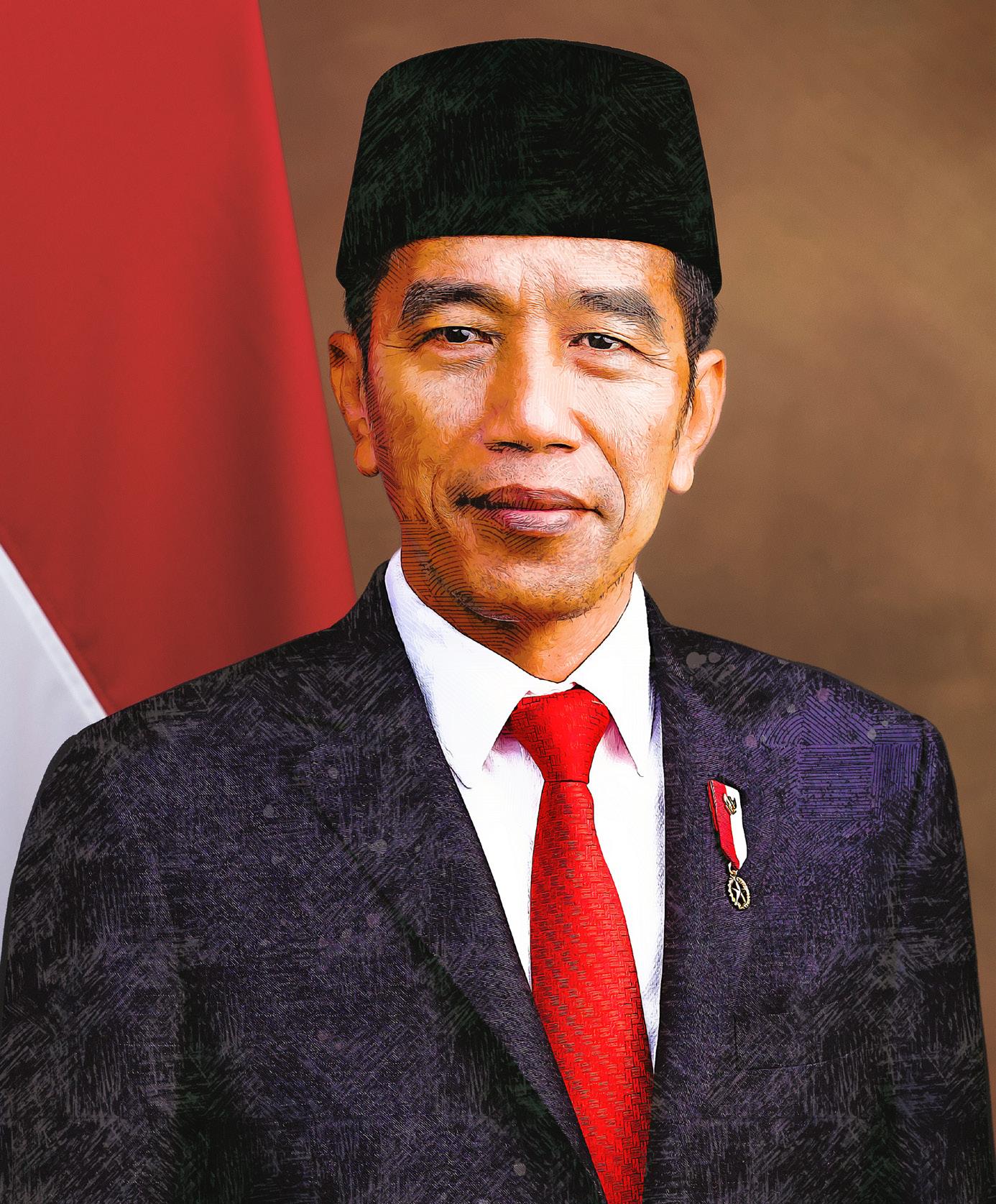
COVID-19 pandemic and the war in Ukraine.
It is in this context then, in the telephone conversation yesterday, I invited President Zelenskyy to attend the G20 Summit. And lastly, in the telephone conversation with Russian President Vladimir Putin, the Russian President provided me with updates on the situation in Ukraine, including the ongoing negotiation process between the two countries.
I once again highlighted the importance of ending the war immediately. I also stressed that a peaceful solution must be continuously pursued and Indonesia is ready to contribute to the peace process. On that occasion, President Putin thanked me for the invitation to the G20 Summit and confirmed his attendance …
Let me underline that Indonesia aims to bring the G20 together. We must avoid disunity. Peace and stability are key to the recovery and rebuilding of the global economy.
Statement on Indonesia’s G20 Presidency, 29 April 2022
The world is facing a very tough challenge. The pandemic is not completely over yet, but the geopolitical conflict is impacting the world.
The threats of energy crisis, food crisis, and financial crisis are overshadowing all countries. At the same time, all countries will face the impact of climate change, which also disrupts food production; hence the threat of famine is right before our eyes.
In the face of these severe threats, each country has different capabilities. Some countries may survive and have high resilience, but some are threatened with becoming failed states, affecting millions of citizens and widening global economic imbalance …
In overcoming these common problems, we must work together; we must break the silos; we must strive to settle differences, promote and strengthen common grounds in order to foster global economic recovery, and overcome the crisis more effectively.
Multilateralism is the most effective way to surmount common challenges. No single problem can be solved by one country or several countries alone. We must be willing to sit down to talk and build bridges of dialogue so we can find solutions to the various problems we have.
Conflicts and discord bring misery to all of us. Everyone is affected. Nobody is spared. Everyone is threatened. No one wins because everyone loses.
G20 Parliamentary Speakers Summit, 6 October 2022
Indonesia aims to bring the G20 together. We must avoid disunity. Peace and stability are key to the recovery and rebuilding of the global economy”
The Qatar Financial Centre’s work underlines Qatar’s identity as one of the world’s fastest-growing economies, connecting global businesses and investors to the country to build a prosperous future that benefits all
Preparations are in full swing as Qatar gears up for its highly anticipated role as host of the FIFA World CupTM 2022, the tournament’s first visit to the Arab world.
From the country’s maritime ports, airport and metro lines to its sports stadiums and road networks, tremendous progress has been achieved in record time, adding an expected $17 billion to the economy. With Qatar National Vision 2030, a blueprint for its economic, human, social and environmental development, in mind, Qatar’s growth trajectory looks well beyond the tournament stage.
For global firms, investors and entrepreneurs, the Qatar Financial Centre (QFC), a leading onshore financial and business centre in the Middle East, is the ideal platform to explore growth in and from Qatar. Despite the far-felt economic pressures of recent years, the QFC has grown into a broad network of over 1,500 local and international businesses in the financial and non-financial sectors, with a total combined asset under management of more than $28 billion. What’s more, we offer an independent legal, regulatory, tax and business infrastructure for businesses.

Within our focus clusters – financial services, sports, and digital and media – the QFC’s work supports Qatar’s identity as one of the world’s fastest growing economies, sporting integrated pro-business policies and a stable financial framework.

As one of the world’s leading LNG producers and one of the first countries to ratify the
Yousuf was appointed Chief Executive Officer of the Qatar Financial Centre (QFC) in 2015. Previously, he was Head of Indirect Investment at the Qatar General Retirement and Pension Authority and worked for Qatar Petroleum and Dolphin Energy. He holds a Bachelor’s in Electrical Engineering from the University of Arizona.
Instagram @qfcauthority
LINKEDIN Qatar Financial Centre (QFC) Authority Twitter @QFCAuthority

FACEBOOK-SQUARE Qatar Financial Centre
Change in 1996, Qatar has demonstrated a long-standing commitment to addressing global environmental challenges.
The Qatar Financial Centre’s vision for sustainable development supports this commitment, in consonance with a global effort to build a sustainable financial future. We launched the first Sustainable Sukuk and Bonds Framework in the Gulf Cooperation Council region earlier this year. It integrates local requirements with the latest International Capital Markets Association’s Green Bond Principles, Social Bond Principles and Sustainable Bond
Guidelines. What results is a harmonised financial market ecosystem, reduced risk of greenwashing, as well as the promotion of appropriate disclosures, reporting and transparency.
Booming non-oil economic sectors – from AgriTech to sports, media and FinTech –contribute to Qatar’s unequivocal growth outlook. Owing to its rapid expansion, driven by an increase in natural gas production and a push for economic diversification, the World Bank projects Qatar to be the fastest growing economy in the GCC in the next two years. What emerges is a clear national effort to attract and retain global talent and commerce well beyond the FIFA World CupTM 2022. More so, Qatar is responding to a global call for stability and sustainability action. The next decade will be imperative in deciding the trajectory our world is taking.
The QFC is at once a product of and a contributor to this forward-looking vision. We will continue to connect global businesses and investors to Qatar to build the future we all imagine.

QFC is an onshore business and financial centre that allows companies to operate in Qatar and in the region within a legal and tax environment aligned to international standards.
The QFC permits registered firms up to 100% foreign ownership of their business in Qatar.
A legal, judicial and regulatory framework based on English common law and international best practice, with an independent court, regulatory tribunal and dispute-resolution centre.
Fair and transparent tax regime that benefits from the Double Taxation Agreement Qatar has with 80+ countries, 10% corporate tax on locally sourced profit, no personal income tax, wealth tax or Zakat and an efficient advance ruling service.
Payments of dividends, interest, royalties and management fees out of Qatar by QFC companies are free from withholding tax, enabling tax-free repatriation of returns and profits for shareholders.
A quick and easy set up process that licenses, establishes, and supports businesses in and from Qatar. A dedicated Client Affairs team to support your business needs.
Conduct business in any currency.
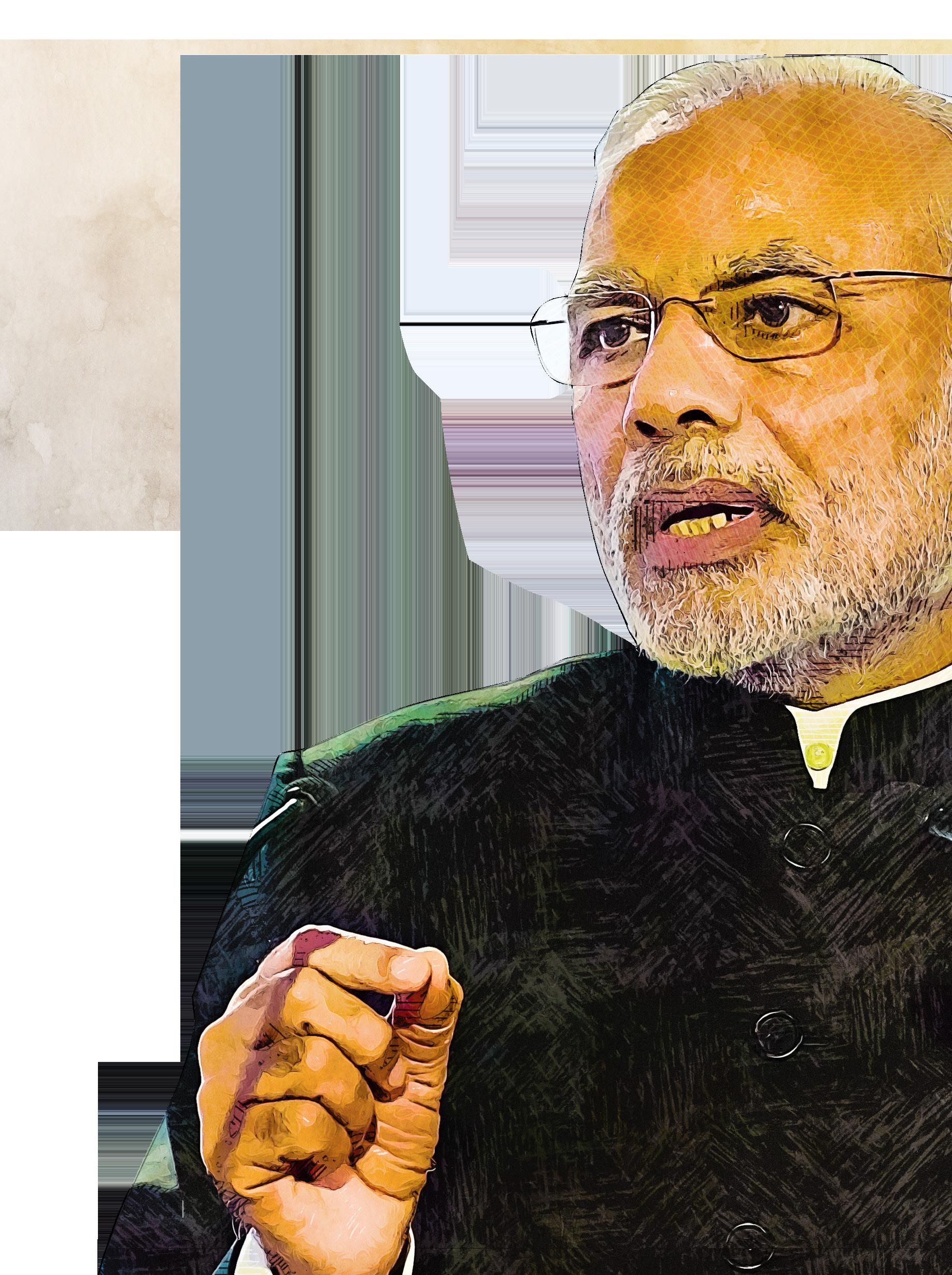
India is [the] Mother of democracy. And when those who have democracy pulsating in their minds walk with determination and resolve, it augurs doom for the most powerful sultanates of the world. This Mother of Democracy, our India has proven to all that we have this invaluable strength …
I am witnessing the biggest fortune today that Indians have emerged as an Aspirational Society. Being an aspirational society is the biggest asset for any nation. And we are proud that today every corner of India, every section and strata of our society is brimming with aspirations …
Experience tells us that we can achieve our goals once we are determined. Be it the goal of renewable energy, the intention of building new medical colleges in the country or creating a workforce of doctors, the pace has increased a lot in every field. And that’s why I say that
the coming 25 years should be of huge resolutions, this should be our life and this should be our pledge … Today we are witnessing the structure of Digital India. We are looking at start-ups. Who are these people? This is that pool of talent who lives in Tier-2 and Tier-3 cities, or in villages and belong to poor families. These are our youngsters who are coming before the world today with new discoveries. We have to give up the colonial-era mentality. Instead, we must rely on our capabilities.
Secondly, we must feel proud of our heritage. Only when we connect with our land, we will be able to fly high, and when we fly high, we will be able to provide solutions to the world too. We have seen the impact when we take pride in our heritage and culture. Today the world is talking about holistic health care. But when it talks about holistic health care, it looks towards India’s yoga, India’s Ayurveda and India’s holistic lifestyle. This is our legacy that we are providing the world with. The world is being influenced by it today. Now look at our strength. We are the people who know how to live with nature. We know how to love nature. Today the world is facing environment related problems. We have that legacy and the solutions to the problems of global warming. Our ancestors have given us the same. When we talk about an environment-friendly lifestyle and LIFE mission, we attract the attention of the world. We have this power … Another very important issue is Unity and solidarity. We need to celebrate the diversity of our huge country. The peaceful co-existence of innumerable traditions and creeds are our pride. For us all are equal. No one is inferior or superior; all are our own. This feeling of oneness is important for unity. The foundations of unity can be laid in every home only if son and daughter enjoy equality. If the family seeds gender discrimination across its generations then the spirit of Unity can never be woven in society. Gender equality is our first stipulation. When we talk of Unity, why not have only one parameter or standard – that of India First …
It is the job of the government to make efforts to provide 24-hour electricity but it is the duty of the citizen to save as many units as he can. It is the responsibility and efforts of the government to supply water to every field, but a voice should come from each of my fields that we will move forward by saving water by focusing on ‘per drop more crop’. It is our duty to do chemical free farming, organic farming and natural farming …
Address on Independence Day, 15 August 2022

The peaceful co-existence of innumerable traditions and creeds are our pride. For us all are equal”

The challenges facing the international community today necessitate the strengthening of international multilateral cooperation.
The Covid-19 pandemic has proven that the path to sustainable recovery depends on our cooperation, all together, in a collective framework. The Kingdom of Saudi Arabia played a vital role in leading the international response to this pandemic during its G20 presidency [in 2020]. The Kingdom supported the global efforts to face this pandemic with US$ 500 million, in addition to providing US$300 million in aid to assist the countries’ efforts to combat the pandemic.
Despite the economic difficulties, the Kingdom of Saudi Arabia remains committed to its substantial humanitarian and developmental role in assisting the most needy countries, and those affected by natural disasters and humanitarian crises. In 2021, the Kingdom [was] the largest provider of humanitarian and developmental aid in the Arab and Muslim worlds, and among the top three donor countries internationally.
The Kingdom is keen on the recovery of the global economy. This is clearly reflected in the Kingdom’s pioneering efforts in cooperation with its OPEC+ [Organization of Petroleum Exporting Countries Plus] partners, and within the G20, to address the severe consequences of [the] COVID-19 pandemic in order to strengthen the oil markets’ stability and balance of supplies in a way that maintains the interests of suppliers and consumers …

The Kingdom is aware of the importance of combating the efforts to face the mutual challenge of climate change and its adverse impacts. Therefore, the Kingdom has launched unique initiatives that are
important to the region and the world, most prominent of which are the Saudi Green Initiative, the Green Middle East Initiative, and the Circular Carbon Economy which together will effectively contribute to achieving the global targets in these sectors.
The essence of the Kingdom’s Vision 2030 is to achieve prosperity, build a better future, and create a leading economy as well as [a] dynamic society engaged with the world. Five years since the inception of Vision 2030, we have made tremendous headway in supporting local industry, developing infrastructure, information technology and energy solutions, investing in many other sectors as well as empowering women and youth, and improving the quality of life for all.
In this spirit, the Kingdom’s foreign policy pays utmost attention to strengthening peace and security, supporting dialogue and peaceful solutions, and creating the right conditions conducive to achieving development and meeting peoples’ aspirations for a better tomorrow in the Middle East and around the world … The Kingdom supports the UN-sponsored peaceful solutions for the crises in Syria and Libya, and all the efforts
aimed at achieving peace and stability in Afghanistan to meet the aspirations of the Afghan people and preserve the rights of all members of their society …
The Kingdom has always abided by the principles and resolutions of international legitimacy, paying respect to the national sovereignty of all states, and rejecting interference in the internal affairs of other countries. The Kingdom reserves the legitimate right to defend itself against the attacks launched by ballistic missiles, and explosive-laden [unmanned aerial vehicles] and boats. The Kingdom categorically rejects any attempt to interfere in its internal affairs.
Iran is a neighboring country. We hope that our preliminary talks with it lead to tangible outcomes to build trust, paving the way to achieve [the] aspirations of our peoples in building relations of cooperation based on compliance with principles and resolutions of international legitimacy, respect for sovereignty, and avoid interfering in the internal affairs of other countries, as well as its cessation from all types of support for terrorist groups and sectarian militias that have brought only war, destruction, and suffering to the peoples of the world.
The Kingdom stresses the importance of maintaining a … Middle East [free of weapons of mass destruction]. Accordingly, the Kingdom supports the international efforts aimed at preventing Iran from developing nuclear weapons. The Kingdom expresses its grave concern over Iranian actions which are contradictory to its commitments and pose a stark contrast to what Iran always claimed that its nuclear program is intended for peaceful purposes.
The Kingdom will continue to counter the extremist ideology that is based on the rhetoric of hate and exclusion. The Kingdom is steadfast in combating the practices of terrorist groups and sectarian militias that bring destruction to people and nations. The Kingdom underscores the importance of the international community standing firmly against all those who support, sponsor, finance, and harbor terrorist groups and sectarian militias, or use them as a means to spread chaos and destruction, furthering their hegemony and influence.
Address to the United Nations General Assembly, 22 September 2021
 Jair Bolsonaro President,
Jair Bolsonaro President,
The world is facing a historical juncture that requires a great sense of responsibility from G20 members. In 2020, the Covid-19 pandemic unleashed a global crisis with severe economic and social implications as well as serious effects on the Sustainable Development Goals, especially in health, employment, education, food security and poverty reduction. In 2022, the conflict in Ukraine and its consequences further worsened this challenging scenario. To respond to the manifold challenges confronting us, we should strive together to find common ground and develop coordinated responses. Brazil is firmly engaged in this process and believes the G20 is a key venue to foster it.
Indeed, as expressed in the Pittsburgh Summit’s Leaders Declaration in 2009, the G20 is “the premier forum for our international economic cooperation”. Brazil thus believes the G20 must urgently address the food and energy security challenges that disproportionately affect the poorest, particularly in developing and lower-income countries.
Brazil is ready to play its dutiful role in carrying out common solutions to shared problems. As the third largest food exporter and second largest producer of biofuels, Brazil is well positioned and committed to the proper response to the current global food and energy crisis.
To promote food security, we must also work to keep international food supply chains open and accessible, as well as strengthen the resilience, reliability and sustainability of these supply chains. It is also decisive to continue working on liberalising agricultural trade in the World Trade Organization after the recent ministerial meeting, as well as to avoid the imposition of measures that restrict the free circulation of foodstuffs and agricultural inputs worldwide.
The global fertiliser market requires special attention. Higher prices in this sector have
prevented small producers from affording such inputs and discouraged new sowing. Overall agricultural productivity could decline and food prices soar. Such developments could undermine our efforts to achieve the SDGs, especially those concerning the eradication of hunger and malnutrition. For Brazil, the normalisation of fertiliser production and trade is both a commercial and humanitarian concern.
Furthermore, the current reorganisation of global energy markets offers an opportunity to accelerate energy transitions. Further investments in renewable and bioeconomy-based solutions such as hydrogen, solar and wind energy, as well as in biofuels, biomass and bio-methane, must be encouraged.
Accelerating energy transitions will contribute to international efforts to protect biodiversity and mitigate climate change. Nonetheless, each country must pursue its own energy transition, based on its specific conditions and limitations.
The G20 members’ response to Covid-19 has had achievements, such as the swift development of effective vaccines. Inequitable access to them worldwide represents an immense challenge, however, especially for lower-income countries. Brazil is convinced the world needs stronger national health systems, universal access to vaccines, diagnostics and medicines, and an efficient and well-funded global pandemic preparedness and response mechanism.
In this respect, Brazil has engaged in international efforts to improve pandemic preparedness and response, both at the World Health Organization and at the G20 itself, which resulted in the creation of a Financial Intermediary Fund by the World Bank. We believe the WHO should play a central role in the decision-making process for allocating FIF resources.

The pandemic has also highlighted the vital role of digital technologies in implementing sustainable development policies. The Brazilian government carried out measures to digitalise 31 public services within its efforts against Covid-19, with effective results. The number of users of the government’s online platform (gov.br) has increased from 45 million to 135 million since the beginning of the pandemic. To enable everyone to benefit from such digitalisation, we advocate that digital connectivity infrastructure become a G20 priority.
By the end of 2022, Brazil, in preparation for our presidency of the G20 in 2024, will assume greater responsibilities in the group. As we congratulate Indonesia on its successful presidency, we already signal our full support to India’s presidency due to start in December. We are ready to lead G20 work in 2024, with the determination that it will continue to be a platform for promoting common interests and advancing meaningful solutions to G20 members and the international community as a whole.
To enable everyone to benefit from … digitalisation, we advocate that digital connectivity infrastructure become a G20 priority”Justin Trudeau Prime minister, Canada
Last year, the G20 gathered with a sense of hope that, with people around the world having worked to confront the upheavals of a global pandemic, our economies could work together to build back better.
People have made enormous sacrifices to save lives. Scientific breakthroughs and global efforts made life-saving vaccines available for billions of people. Robust economic recovery was underway, with countries working to build a future that was more inclusive, more resilient and more sustainable than it had been before.
Even with the enormous challenges that lay ahead there was, as I said, a sense of hope.
This year, the G20 will be markedly different.
Russia, a G20 member, has illegally and unjustifiably invaded a sovereign, democratic country, Ukraine. And President Vladimir Putin continues to escalate tensions and utter increasingly irresponsible nuclear rhetoric.
Canada, arm in arm with our allies and partners, has led the charge in implementing the most punishing sanctions ever on a major economy, including sanctioning the Central Bank of Russia. We cannot permit authoritarian dictators to undermine the rules-based international order – to take us backwards to a bloodied world where ‘might makes right’.
If we do not take action to defend our values, we risk squandering the decades of peace and freedom that have led to so much shared prosperity. The Kremlin’s reckless violence has led to widespread economic uncertainty, with the International Monetary Fund recently lowering its global growth projections for next year, due, in part, to the Putin-abetted energy crisis.
It is clear that his barbaric war is jeopardising our pandemic economic recovery, has amplified the global inflation crisis, and has worsened the world’s food and energy crisis. Its indirect impacts are making people hungrier, colder and poorer.
I am going to the Bali Summit with the objectives of holding Russia to account for its illegal war, demonstrating Canada’s unshakeable belief in
multilateral cooperation, and advancing global economic growth and security so we can grow the middle class and keep the Canadian economy strong. Canada will not let the Kremlin’s reprehensible behaviour derail the important work of the G20. G20 members represent well over half of the world’s population. That’s billions of people, including Canadians, relying on us, as G20 leaders, to keep moving forward on issues that matter to people around the world – issues such as the rising cost of living, climate action and creating new opportunities. The G20 is a critical international forum where, with partners, we can get this work done.
Under Indonesia’s presidency, the G20 has focused on the challenges of food security, sustainable energy transitions, global health, digital transformation and pandemic recovery. Regrettably, the illegal actions of one member, Russia, continue to exacerbate these challenges. But in the face of these challenges, and the vulnerable people who are suffering as a result, we must redouble our efforts.
On food security, we need more open trade, increased access to fertilisers and innovative technologies, and an agreement never to weaponise food production and distribution. We must do everything we can to prevent hunger and starvation. On climate and energy, we need to work together to meet our targets. People are feeling real impacts – Canada is warming twice as fast as the global average, three times as fast in our north. Around the world, we have seen devastating floods and storms this year, as once-a-century weather events are now happening every few years. We also need to seize the opportunities that lie ahead in building a clean economy, opportunities that will create good middle class jobs for people in all sectors including energy workers and lead us towards new economic growth.
On health, we need to learn from the devastating human, economic and social costs of the Covid-19 pandemic and make investments that prevent it from happening again.
On gender equality, we need to deepen engagement between governments and civil society so that women and girls have equal access to opportunities, including through the G20 Ministerial Conference on Women’s Economic Empowerment.
Canada is committed to this work because we believe that people must be at the centre of everything we do. It is by keeping this focus, and making investments that benefit everyone, that we create growth and ensure people see opportunities for themselves in everything we are doing. And most importantly, it creates a future that is bright.
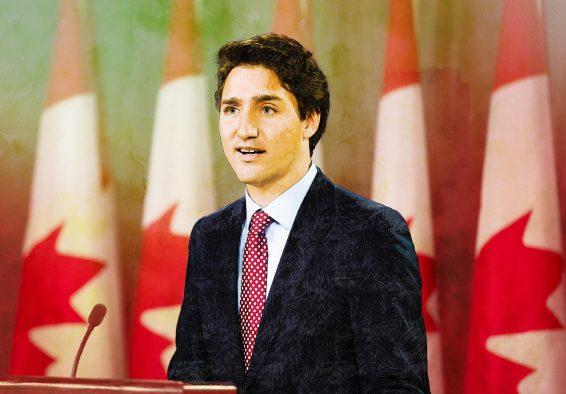
I will go to the G20 this year with the firm knowledge that the choices we, as leaders, make now, will have profound and lasting impacts on both the people who are relying on us today and the generations who will inherit these challenges from us. And I believe that this forum is important, and that progress is both possible, and necessary. But it will depend on a shared commitment to a world governed by rules.
The G20 was created to bring together the world’s most important economies so we could work collectively to uphold the peaceful international order and create the conditions for global economic growth. This year, we must hold ourselves and one another to this commitment.
Now is the time for the global community to take a strong, united stand, so that we can deliver a safer, more prosperous, and more sustainable world for all people.
If we do not take action to defend our values, we risk squandering the decades of peace and freedom that have led to so much shared prosperity”
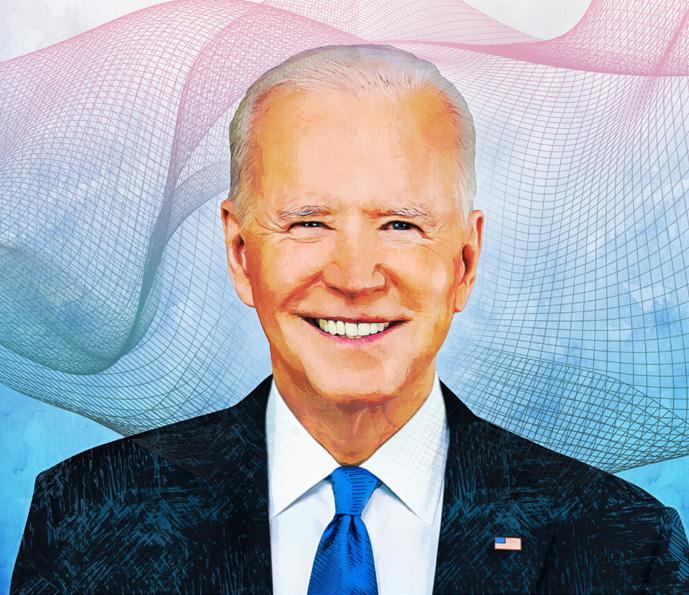
In the last year, our world has experienced great upheaval: a growing crisis in food insecurity; record heat, floods, and droughts; COVID-19; inflation; and a brutal, needless war – a war chosen by one man, to be very blunt.
Let us speak plainly. A permanent member of the United Nations Security Council invaded its neighbor, attempted to erase a sovereign state from the map.
Russia has shamelessly violated the core tenets of the United Nations Charter – no more important than the clear prohibition against countries taking the territory of their neighbor by force …
Now, it’s no secret that in the contest between democracy and autocracy, the United States – and I, as President – champion a vision for our world that is grounded in the values of democracy.
The United States is determined to defend and strengthen democracy at home and around the world. Because I believe democracy remains humanity’s greatest instrument to address the challenges of our time.
We’re working with the G7 and likeminded countries to prove democracies can deliver for their citizens but also deliver for the rest of the world as well …
From the day I came to office, we’ve led with a bold climate agenda. We rejoined the Paris Agreement, convened major climate summits, helped deliver critical agreements on COP26 [26th Conference of the Parties to the UN Framework Convention on Climate Change]. And we helped get two thirds of the world GDP [gross domestic product] on track to limit warming to 1.5 degrees Celsius.
And now I’ve signed a historic piece of legislation here in the United States that includes the biggest, most important climate commitment we have ever made in the history of our country: $369 billion toward climate change. That includes tens of billions in new investments in offshore wind and solar, doubling down on zero emission vehicles, increasing energy efficiency, supporting clean manufacturing …
On global health, we’ve delivered more than 620 million doses of COVID-19 vaccine to 116 countries around the world, with more available to help meet countries’ needs – all free of charge, no strings attached.
And we’re working closely with the G20 and other countries. And the United States helped lead the change to establish a groundbreaking new Fund for Pandemic Prevention, Preparedness, and Response at the World Bank.
At the same time, we’ve continued to advance the ball on enduring global health challenges …
We’re also taking on the food crisis head on. With as many as 193 million people around the world experiencing acute – acute food insecurity – a jump of 40 million in a year –today I’m announcing another $2.9 billion in U.S. support for lifesaving humanitarian and food security assistance for this year alone … We believe strongly in the need to feed the world. That’s why the United States is the world’s largest supporter of the World Food Programme, with more than 40 percent of its budget.
We’re leading support – we’re leading support of the UNICEF efforts to feed children around the world.
And to take on the larger challenge of food insecurity, the United States introduced a Call to Action: a roadmap eliminating global food insecurity – to eliminating global food insecurity that more than 100 nation member states have already supported.
In June, the G7 announced more than $4.5 billion to strengthen food security around the world.
Through USAID’s Feed the Future initiative, the United States is scaling up innovative ways to get drought- and heat-resistant seeds into the hands of farmers who need them, while
distributing fertilizer and improving fertilizer efficiency so that farmers can grow more while using less.
And we’re calling on all countries to refrain from banning food exports or hoarding grain while so many people are suffering. Because in every country in the world, no matter what else divides us, if parents cannot feed their children, nothing – nothing else matters … With partners in the Americas, Africa, Europe, and the Middle East, and the Indo-Pacific, we’re working to build a new economic ecosystem while – where every nation – every nation gets a fair shot and economic growth is resilient, sustainable, and shared.
That’s why the United States has championed a global minimum tax. And we will work to see it implemented so major corporations pay their fair share everywhere …
And as Russia’s war riles the global economy, we’re also calling on major global creditors, including the non–Paris Club countries, to transparently negotiate debt forgiveness for lower-income countries to forestall broader economic and political crises around the world.
Instead of infrastructure projects that generate huge and large debt without delivering on the promised advantages, let’s meet the enormous infrastructure needs around the world with transparent investments – high-standard projects that protect the rights of workers and the environment – keyed to the needs of the communities they serve, not to the contributor.
That’s why the United States, together with fellow G7 partners, launched a Partnership for Global Infrastructure and Investment. We intend to collectively mobilize $600 billion in investment through this partnership by 2027 …
We’re not passive witnesses to history; we are the authors of history.
We can do this – we have to do it –for ourselves and for our future, for humankind.
United Nations General Assembly, 21 September 2022
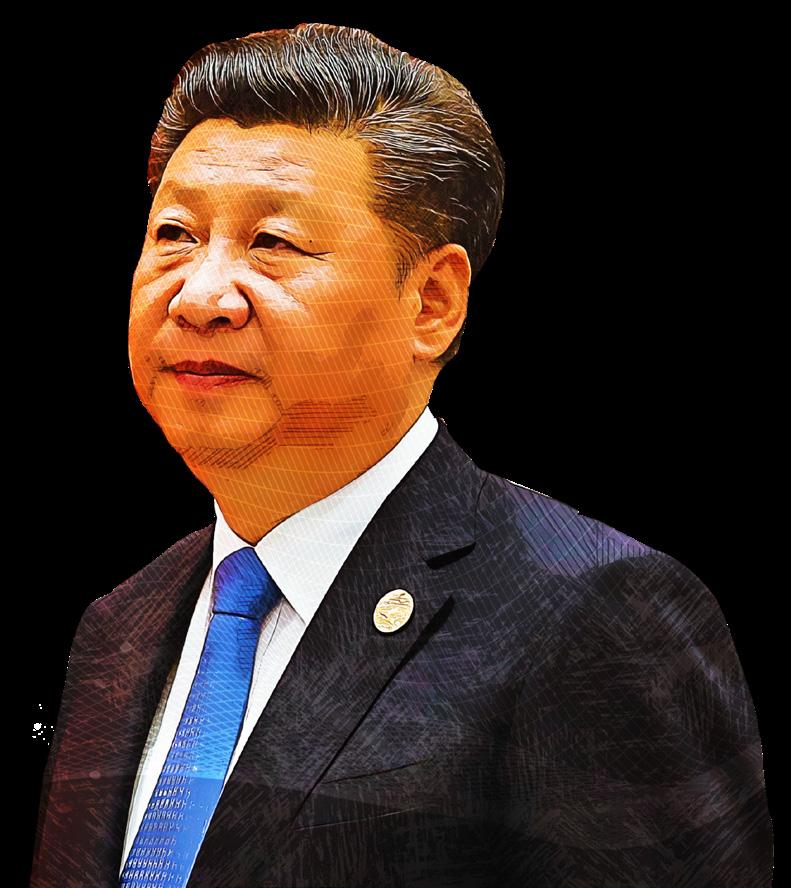
Development is a timeless theme for humanity. In the late 1960s, I worked as a farmer in a small village on the Loess Plateau. There I experienced first-hand the hardships in farming and saw how the local people struggled to make ends meet. Their longing for a better life has stayed in my mind ever since. Half a century later, I revisited the village and found the villagers no longer in want of food or clothing, as evidenced by the happy smiles on their faces …
Throughout the years, I have been to cities, towns and villages across China and visited many countries in the world. One deep impression I get is that only through continuous development can the people’s dream for a better life and social stability be realized.
Over the years, developing countries have worked unremittingly to explore development paths suited to their national realities and to pursue economic and social development. Such efforts have produced remarkable outcomes. Today, emerging markets and developing countries account for half of the world economy, and notable progress has been made in science and technology, education, social development, culture and many other areas.
We are meeting at a time when the COVID-19 pandemic is eroding decades of gains in global development, the implementation of the UN’s 2030 Agenda for Sustainable Development is encountering difficulties, the North-South gap keeps widening, and crises are emerging in food and energy security. Some countries have politicized and marginalized the development issue, built “a small yard with high fences,”
imposed maximum sanctions, and stoked division and confrontation. At the same time, people in all countries are more keen about pursuing peace, development and cooperation, emerging markets and developing countries are more resolved to seek strength through unity, and the new round of scientific and technological revolution and industrial transformation is bringing more opportunities to countries around the world …
First, we need to jointly build international consensus on promoting development. Only when people all over the world live better lives can prosperity be sustained, security safeguarded and human rights solidly grounded. It is important that we put development front and center on the international agenda, deliver on the 2030 Agenda for Sustainable Development, and build political consensus to ensure everyone values development and all countries pursue cooperation together.
Second, we need to jointly create an enabling international environment for development.
Protectionist moves will boomerang; anyone attempting to form exclusive blocs will end up isolating himself; maximum sanctions serve nobody’s interest, and practices of decoupling and supply disruption are neither feasible nor sustainable.
It is important that we pursue development in real earnest and
promote development in concert, build an open world economy, and shape a global governance system and institutional environment that are more just and equitable.
Third, we need to jointly foster new drivers for global development. Innovation is the primary driving force for development. It is important that we promote scientific, technological and institutional innovation, speed up technology transfer and knowledge sharing, boost the development of modern industries, close the digital divide and accelerate [the] low-carbon transition, with a view to achieving stronger, greener and healthier global development.
Fourth, we need to jointly forge a global development partnership. Only by working together can we accomplish big and great things with a far-reaching impact. Developed countries need to fulfill obligations, developing countries need to deepen cooperation, and the North and the South need to work in the same direction to forge a united, equal, balanced and inclusive global development partnership. In this process, no country or individual should be left behind. It is important that we support the UN in steering and coordinating global development cooperation, and encourage business communities, social groups, the media and think tanks to take part in such cooperation …
China will work with all sides to advance cooperation in priority areas and mobilize resources for development to deepen global cooperation on poverty reduction and eradication, build capacity for food production and supply, and promote clean energy partnerships; step up innovation, research and development and joint production of vaccines; work on the conservation and sustainable use of land and marine ecology; and raise digital literacy and skills of the public, transform and upgrade the path to industrialization at a faster pace, and enhance digital-era connectivity to inject new impetus into the development of all countries.
High-level Dialogue on Global Development, BRICS Summit, 24 June 2022
This year’s G20 summit takes place in a very different world from last year. A world fundamentally changed by Russia’s illegal and unprovoked war against Ukraine. With war again in Europe, the world is more dangerous than one year ago. Ensuring security has become all the more challenging.
Russia’s aggression concerns us all, no matter where we live. It is a direct challenge to the rules-based international order that we have worked hard to build, as Europeans, and as the G20. The consequences are cascading far beyond Europe’s borders, from Africa to the Middle East, particularly on food security and energy security. We, as the G20, have an important role in addressing these global challenges and improving people’s lives.
Russia’s attack on Ukraine has caused unspeakable suffering, not only for the people of Ukraine but also for the most vulnerable in developing countries, driving up hunger, poverty and instability. As a result, food prices are soaring, risking food shortages and even global famine. It is not acceptable that agricultural products become weapons of war for geopolitical purposes. That is why we welcome the recent Black Sea Grain Initiative, the agreement between Türkiye, Ukraine and the Russian Federation promoted by the United
Nations secretary-general, that is starting to bring relief to the most vulnerable on the edge of famine. As the G20, we cannot stand idly by as millions of people, many of them children, live on an empty stomach. We must redouble our efforts to build a world with zero hunger, by addressing the global threat of food insecurity caused by Russia’s war and by promoting agricultural development.
The European Union is doing its part, partnering with African countries to unlock the massive potential of food production on the African continent in line with the Global Alliance for Food Security and the EU’s Global Food Security Response, and the Food and Agriculture Resilience Mechanism. The best way to guarantee access to food for everyone is through a multilateral and inclusive approach that engages all international stakeholders – international organisations, financial institutions, the private sector and civil society.
Russia’s invasion has also dramatically affected the price and availability of fertilisers. To address this fertiliser shortage, I believe that we can take inspiration from our recent efforts to boost the local production of Covid-19 vaccines, by assisting developing countries to produce their own sustainable fertilisers, and other inputs, locally.
The current energy crisis is yet another example of the destructive impact of the Kremlin’s war –hurting families, increasing prices for businesses and destabilising global energy markets. As the G20, we have the collective power to work towards ensuring sustainable, secure and affordable energy across the world.
In the EU, we are phasing out our dependence on Russia’s fossil fuels and diversifying our energy sources. We are massively scaling up and speeding up renewable energy to replace fossil fuels and stepping up our energy efficiency. Climate neutrality remains our guiding compass.
Tackling the energy crisis is also a way to tackle climate change and protect our planet. It is a massive opportunity to transform our societies and drive forward our green and just energy transition. No country alone can protect our planet. That is why the EU remains committed to the Paris Agreement and, in particular, to delivering on the Green Climate Fund to help developing countries achieve their climate goals.
Decarbonising global industry will also be a major step in the right direction. We launched our first Just Energy Transition Partnership with South Africa last year. And we are prepared to launch additional partnerships with countries ready to take concrete
steps to decarbonise their industry and energy sectors.

In these turbulent times, the EU will remain a fully engaged and reliable global partner. Far from shying away from challenges, we will continue to extend a hand to all who wish to work together, in a spirit of cooperation, to solve problems, build peace and improve the lives of their citizens.
The EU is a trusted, principled and democratic partner. We believe that multilateralism, free trade agreements and regional partnerships engender trust and lead to greater prosperity. Our Global Gateway strategy is a good example. We aim to mobilise up to €300 billion in investments between 2021 and 2027 to build trusted and sustainable connections with the world, anchored in our values and standards. We are partnering with Namibia, for instance, to develop clean hydrogen, while promoting regional electricity interconnections that bolster network stability through the Zambia-Tanzania electricity interconnector. We are also launching initiatives in eight African countries to support youth-led nascent companies, promoting entrepreneurship and innovation across the continent.
Since February, the world has changed dramatically. Today more than ever, we must call on our common humanity and our collective intelligence to inspire global leadership that is anchored in mutual respect and cooperation. But this does not happen spontaneously. It requires hard work. It is not the responsibility of one country or one international organisation. It is all our responsibility.
As the G20, we are uniquely positioned to drive forward progress on the most pressing challenges of our time. I believe we can make a real difference. That is why the EU stands shoulder to shoulder with the Indonesian presidency to build a more stable, cooperative and peaceful world.
In the EU, we are phasing out our dependence on Russia’s fossil fuels and diversifying our energy sources … Climate neutrality remains our guiding compass”Alberto Ángel Fernández President, Argentina

It is undeniable that the pandemic has brought us closer to the digital world. Information and communication technologies have been key to maintaining social contact during quarantines, preventing infections, meeting health needs, and facilitating the production and circulation of information of public interest. In turn, they have allowed us to continue with our education and our work.
The pandemic has reinforced the role of ICTs and highlighted their centrality in all aspects of daily life. Certainly, the access, connection and appropriation of ICTs are an essential platform to access and exercise other fundamental rights and, above all, to ensure social inclusion.
We are facing a unique opportunity to rebuild our societies and economies. As a political, economic and socio-cultural challenge, this opportunity is an unavoidable chapter in digital technologies. As G20 members we must exercise the responsibility of promoting innovation and digitalisation in constructing a more equal, resilient and inclusive world.
Digital technologies must be at the service of this task to contribute to the solution of current global challenges, such as climate change, poverty and inequality, and aid us in achieving the 2030 Agenda for Sustainable Development and the Sustainable Development Goals.
In this context of digital preponderance, however, the goal of universal connectivity by 2025 still seems a long way off. The International Telecommunications Union indicates that 37% of the world’s population is not connected to the internet. In Argentina, more than 10% of the population does not have access to the internet, and many households lack fixed connections, resulting in lower-quality connectivity.
In developing countries, socio-economic factors affect access and the possibility of making full use of these technologies. According to the ITU, in 2020 the proportion of households with internet access in developing countries was 57%, while in developed countries it was 87%. Therefore, the G20 must recognise the digital divide and the particular situation of each country. The pandemic further exposed inequalities between people and social groups, whether for socio-economic, gender, age or geographic reasons.
It is necessary that our public policies focus on people. We must provide the tools for access and participation with digital technologies to guarantee decent education and decent work. It is our responsibility to use ICTs as a means for social inclusion. In the same way, we must make every possible effort to reduce the digital gender
gap, and thus achieve fairer, more equitable and prosperous societies.

The territorial dimension is another factor that our governments must take into account. Many of us are faced with the task of connecting all our vast territories. If we do not address the needs of our rural and remote areas, inclusion will never become a reality. Addressing connectivity and digital divide policies from a federal perspective must be the basis of our work.
A PLATFORM TO THE FUTURE Digitalisation is a platform towards the future –towards equity, the inclusion of relegated groups
and the full exercise of human rights. It will lead us to more open, transparent and dynamic governments, effective and capable of responding to the needs of an increasingly complex and changing society, and it will bring us closer to our citizens.
Individual efforts are not enough. We need everyone – governments, the private sector, academia and civil society – to start working for a fairer world that leaves no one behind. The G20 must deepen its role as a forum for dialogue and cooperation, bringing together all these actors and enhancing their actions so that the digital transformation we are going through can secure social inclusion.

We are facing a unique opportunity: to rebuild our societies and economies”
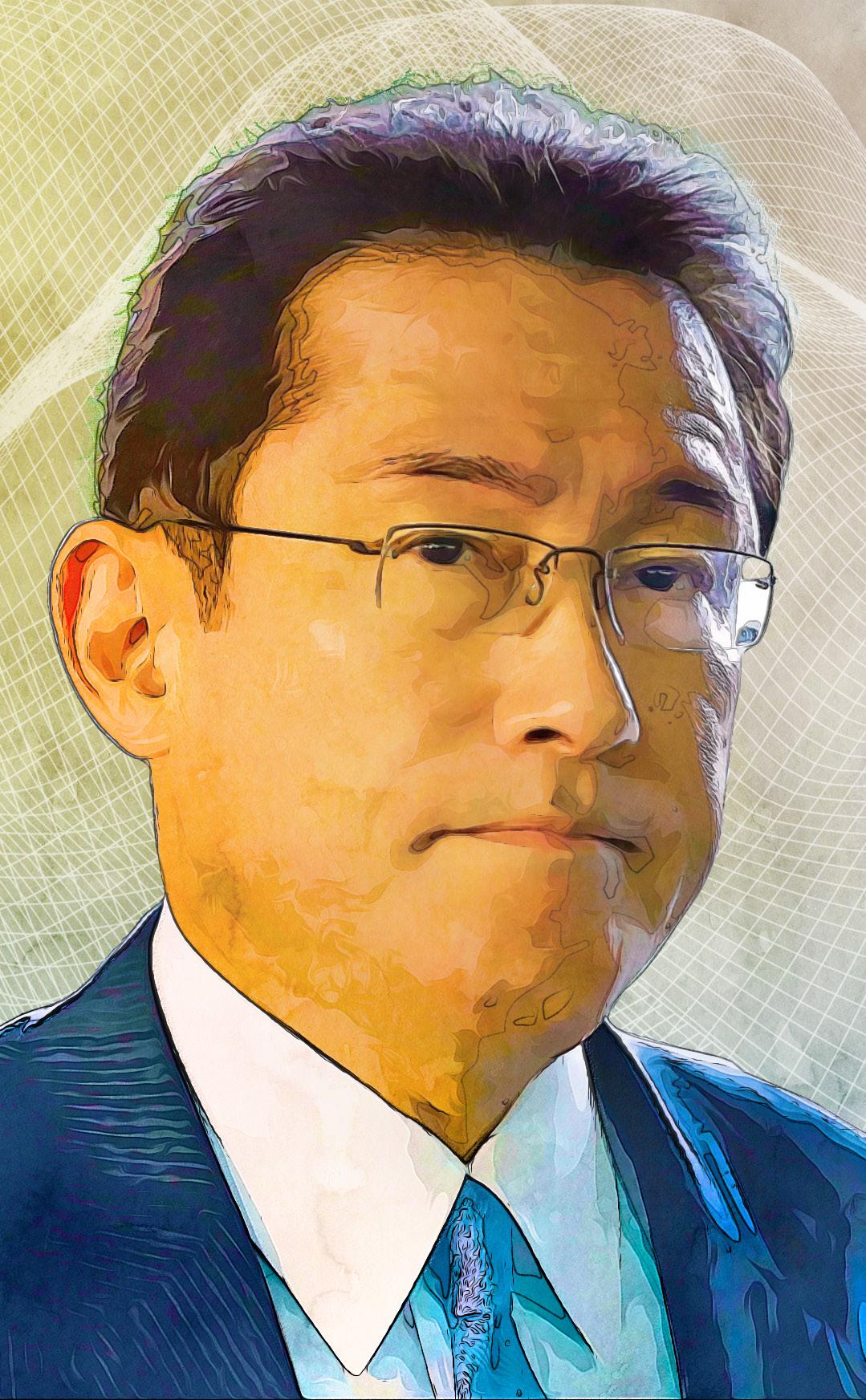
As a prime minister from Hiroshima, I am immensely dedicated to the realization of a world without nuclear weapons, driven by the sentiments from the hibakusha [survivors of atomic bombings]. Last month, the sole opposition by Russia blocked the unity and concerted efforts by the international community to reach consensus on an outcome document that would maintain and strengthen the NPT [Nuclear Non-Proliferation Treaty] regime, which is the cornerstone of the international nuclear disarmament and non-proliferation regime …
Japan will strengthen efforts based on the concept of human security in the new era.
People deserve to enjoy a high-quality life, free from anxiety and fear. The concept of human security has not changed, but now, we are standing at a historical watershed moment, and facing a new challenge. Today, in addition to global pandemics, the use of force and coercion against other countries, food and energy insecurity, inflation and climate change are all interconnected and threaten the safety of people now more than ever, further exacerbating poverty and disease.
The Sustainable Development Goals aim for a society in which no one is left behind, and their achievement requires the realization of human security in the new area. In doing so, the key is to enhance the resilience of individuals, societies, and nations to cope with the changes and challenges specific to our times …
With a shaking international order and people’s anxiety growing, Japan will work with the United Nations to realize human security in the new era, including initiatives through the UN Trust Fund for Human Security. In addition, Japan will also continue to invest generously in people.
At TICAD 8 (the 8th Tokyo International Conference on African Development) in August this year, I announced the investment of US$30 billion in Africa as the sum of public and private financial contributions over the next three years, with an emphasis on “investment in people.” Japan will also focus on human resource development and capacity-building in other parts of the world. Based on my conviction that education is the foundation of peace, I will assume the position as an “Education Champion” and I will promote cooperation through human resource development based on the outcome of the UN Transforming Education Summit.
The Covid-19 pandemic has also illustrated the importance of human health and efforts to protect people from diseases. Japan has provided a total of approximately US$5 billion to support the Covid-19 response, including vaccine-related assistance through COVAX and other programs. Japan has also decided to contribute US$1.08 billion to the Global Fund over the next three years. Japan will continue to take a leading role in strengthening the global health architecture and achieving universal health coverage in the post–Covid-19 era, toward the G7 Summit that I will chair next year.
Japan is also steadily contributing to the creation of a world where people can enjoy a high quality life in a safe environment. Our emergency assistance and support to strengthen the resilience of food systems to ensure food security, as well as our role in the development of international standards and norms in the field of information and telecommunications through the efforts at the International Telecommunication Union and other organizations, are just a few examples. In order to promote these efforts, Japan will also revise its “Development Cooperation Charter,” which articulates the basic policy of our development cooperation policies.
United Nations General Assembly, 20 September 2022

After decades during which we overcame walls and blocs – a time in which we marked the fall of the Iron Curtain and German reunification – after the technological revolution of the internet and the digital transformation, which have made us more interconnected than ever before, we are now facing a new fragmentation of the world.
New wars and conflicts have emerged. Major global crises are piling up before us and are combining and reinforcing one another …
There is no justification whatsoever for Russia’s war of occupation against Ukraine.
President Putin is waging this war with one single objective: to seize Ukraine.
Self-determination and political independence do not count for him.
There is only one word for this. This is imperialism plain and simple!
The return of imperialism is not only a disaster for Europe.
It is also a disaster for our global peaceful order, which is the antithesis of imperialism and neo-colonialism …
This is why Ukraine must be able to defend itself against Russia’s invasion.
We’re supporting Ukraine with all our might – financially, economically, with humanitarian assistance, and also with weapons …
Germany is also supporting Ukraine with the export of food.
And we will stand by Ukraine when it comes to shouldering the enormous costs for rebuilding the country …
Responsibility always begins at home. Take climate change, for example, which is the biggest challenge of our generation.
We, the industrialised countries and major emitters of greenhouse gases, have a very special responsibility here.
It was with this in mind that we reiterated our intention at the G7 Summit in Germany in June to forge ahead in order to achieve the 1.5 degree target.
Not in spite of the war and the energy crisis, but precisely because climate neutrality also leads to greater energy security.
We stand by our pledges to support emerging economies and developing countries in their efforts to reduce emissions and to adapt to climate change – with new just energy transition partnerships, for example … My country is the second-biggest donor to the UN system and also the second biggest donor of humanitarian assistance.
We have taken in millions of refugees here in Germany in recent years – from the Middle East, Africa, Afghanistan and, most recently, from Ukraine …
But we also have to pay heed and take action where hundreds of thousands are made to endure suffering, tyranny and torture in prison camps or jails – in North Korea, Syria, Iran or Belarus.
We must pay heed and take action when the Taliban deprive women and girls in Afghanistan of their most basic rights … More cooperation, more partnership and more involvement is the only reasonable response, whether for the fight against climate change or global health risks, inflation and disrupted supply chains or our approach to displacement and migration …
As this year’s G7 President, it is therefore a key priority for me to promote a new form of cooperation with the countries of the Global South – cooperation that not only claims to take place on a level playing field, but one on which actors genuinely see eye to eye.
Especially since this level playing field has existed de facto for a long time, if we consider the growing political, economic and demographic clout of Asia, Africa and southern America.
From the outset, we coordinated our objectives very closely with Indonesia as the holder of the G20 Presidency.
We have involved the countries holding the Chairmanship of the African Union and the Community of Latin American and Caribbean States in our discussions as the G7, as well as India and South Africa.
This gave rise to new models of global cooperation, which have one thing in common, namely the fact that they are characterised by joint responsibility and mutual solidarity.
We’re fighting the hunger crisis with a new Alliance for Global Food Security, and I would like to invite you all to join this Alliance.
We have launched a Partnership for Global Infrastructure and Investment in order, together, to mobilise 600 billion dollars for public and private infrastructure investments around the world over the next five years.
In so doing, we’re taking a big step towards implementing the 2030 Agenda.
And with a newly emerging Climate Club, we’re pressing ahead with friends and partners worldwide to implement the Paris Agreement even more swiftly and efficiently.
Address to the United Nations General Assembly, 20 September 2022
The past few years have been marked by many challenges, and scientists, technicians and farmers have been very enthusiastic about creating innovative mechanisms and techniques in various sectors. Therefore, many pioneering and innovative ideas have emerged aimed at overcoming the financial, social, economic and environmental challenges that have affected sectors, governments, companies and individuals.
The food and agricultural system is influenced by the forces that shape the world’s economy: globalisation of markets, advances in technology, new delivery systems and modern science.
His Excellency Mohammed bin Obaid Al Mazrooei, president and chair of the board of directors, Arab Authority for Agricultural Investment and Development
Driven by these and other factors, the food and agriculture sector operates in a highly competitive marketplace that must continuously respond to changing consumer demands for high-quality, nutritious and convenient food and agricultural products.
The Arab Authority for Agricultural Investment and Development is an international institution that includes in its membership 22 Arab countries. It was established in 1976 as an independent Arab financial institution that aims to contribute to achieving Arab food security through the establishment of agricultural production and food processing projects and multi-development programmes.
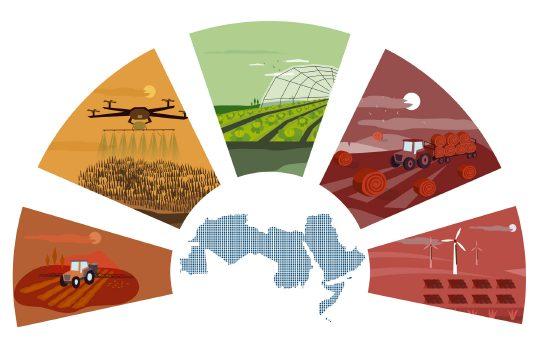
The food and agriculture sector must respond to changing and complex consumer demands – a challenge that is reaping pioneering and innovative ideas
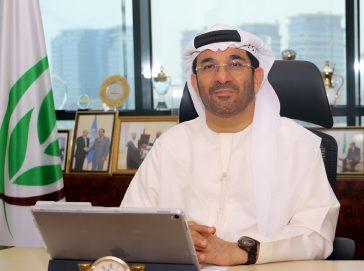
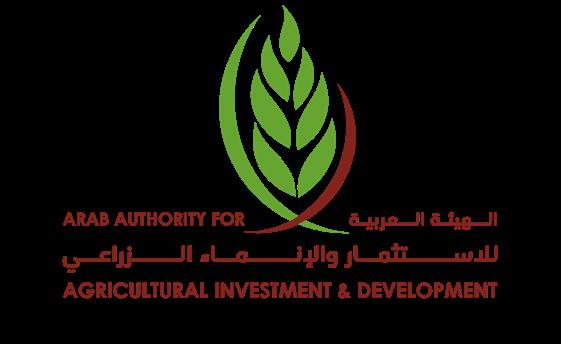
AAAID has 46 years of experience in the field of investment and agricultural development in its member states. During this period, its paid-up capital grew to $731 million. AAAID’s investments are distributed among four main sectors. These include the agricultural industrial sector at 49.70%, the animal production sector at 24.53%, the plant production sector at 22.24% and the agricultural services sector at 3.53%. In light of the investment opportunities and relative advantages in Arab states, AAAID’s investments are distributed geographically across several states.
AAAID, while working in a challenging environment, continues to operate in line with its strategic plan for agricultural investments for 2021 to 2025. This plan aims to invest in new agricultural projects and rehabilitate and expand programmes for some existing companies. By the end of 2021, AAAID had invested in 53 affiliated companies and projects with total investments of $662 million. These companies produce basic commodities and crops: such as cereal, grains, vegetable oils, sugar, meat, dairy and fodder, and created more than 115,000 jobs.
The strategic plan also involves financing revolving loan programmes for small- and medium-scale farmers in the member states with an entire full package programme from land preparation, providing production inputs to harvesting and product marketing. The technical support and educational guidance along with the latest technologies has resulted in a massive increase in agricultural production by more than 150%. This has also resulted in doubling the annual cultivated land area. We take pride in knowing that this initiative has benefited more than 432,000 farmers.
In addition to the value of existing companies that stand at $662 million as of 2021, AAAID has co-funded projects worth around $39.5 million. The total value of AAAID as a corporation was $1.4 billion at the end of 2021. Moreover, AAAID’s loan portfolio is worth $125.2 million, and the corporate guarantees to its companies by the end of 2021 were worth $23 million.
During 2021, AAAID set its focus on implementing 11 applied research programmes in a number of Arab countries with the aim of domiciling new varieties of field crops and introducing
modern agricultural technologies. During that time, we studied and evaluated 116 opportunities.
AAAID continues to analyse its agribusiness portfolio in its member states on a regular basis with a view to implementing restructuring and expansion programmes where appropriate, supporting diversification of activities by providing capital and resources, and enabling them to exploit their capabilities to the fullest extent possible.
In mid 2022, AAAID launched an initiative to cover the deficit in basic food commodities in the Arab world, namely grains, sugar, dairy products, vegetable oils, meat and legumes, estimated at about $42 billion. The initiative included a comprehensive presentation of a proposal to cover the deficit in the wheat crop, whose investment cost was estimated at about $32 billion as a strategic crop and an urgent priority, and AAAID is currently promoting this initiative to governments, finance companies and potential investors.
Last but not the least, AAAID aspires to build ties of cooperation by partnering with relevant authorities and institutions concerned with achieving Arab food and water security, sustainable agriculture and rural development – and in cases where emergency and humanitarian aid is necessary.
His Excellency Mohammed Bin Obaid Al Mazrooei has been the president and chair of the board of directors of AAAID since April 2013. He holds a bachelor of science in business administration from Boston University in the United States. His extensive career path spans more than 30 years in several high-level positions. During his previous tenures, he acquired expertise in loans, development projects and infrastructure. Mr Al Mazrooei is recognised as a pioneer economic expert and thought leader, and has been awarded much recognition for his achievements in the field of economic investment.
@Arab_Authority aaaid.org/en

With Africa, we also want this partnership to be consolidated when it comes to global challenges, and so we need to build Euro-African convergences and initiatives to bring other actors on board, as we have begun to do already. That is what we have started to do on certain climate issues, and also what we have started to do on the financing of African economies through the May 2021 Paris Summit, with an agenda for the financing of African economies. We have sought precisely to build a new approach where France advocated not only the issuing of special drawing rights from the IMF [International Monetary Fund], but also the reallocation of 100 billion to African countries. That is absolutely key to revolutionizing models and is a powerful lever to encourage private investment and scaling-up. So we are working to mobilize the international community to change and transform financing mechanisms, to convince G20 powers to do so, and to make far greater use, through partnerships, of businesses in developed countries and businesses in Africa. That is the aim of the economic “new deal” we sealed here in spring 2021, and I would like to thank its authors. We want to continue through bilateral discussions, within the G20 and through a Choose Africa summit that we will organize in France early next year …
I think that our role should be to
consolidate the World Health Organization as a basis for an effective multilateral institution. We must absolutely consolidate the principles for sharing information, transparency and scientific independence. We must consolidate the early warning agenda for epidemics and we must build on the World Health Organization, and the One Health coalition for which we need to build a cross-cutting approach that covers public health, animal health and global health at local, national and international levels … We will only rise to the climate challenge if we are able to galvanize the large emitters first and foremost to make efforts that can tackle the issues. That is the first point. Just take a look at the emissions. We know where efforts are being made: Europe, the United States followed by the major intermediary powers. A fair way to proceed is to convince our major partners among the developed countries within the OECD [Organisation for Economic Co-operation and Development] to make the maximum commitments of emissions
to avoid fresh crises related to the huge numbers of people being displaced because of climate change. And therefore, we must help them double their investments because for them, it is already too late. Finally, financing adaptation and resilience, in France and in Southern countries, means protecting our ecosystems, our health, our food and our water resources. And also, it involves a far-reaching diplomatic movement, which justifies at least 30% of climate finance going to nature-based solutions. This is a way to completely change the approach we have had to discussions with Southern countries since 2015, and which has caused recent negotiations we have conducted in the G20 and other forums to stall. We need to rally support from all those who are able to contribute. In this regard, a One Planet Summit could be devoted to this major issue, with a specific focus on water management … Digital diplomacy was built and a specific position was created for an ambassador working on that and on negotiations. Since summer 2017, along with the United Kingdom, we have been at the forefront, seeking to build a coalition, and then the Tech for Good and as I mentioned, Christchurch Call initiatives. We have achieved results, the famous “golden hour” during which terrorist content is withdrawn by platforms … In essence, … we must create international public policy for digital technology. Because this public space has indeed been formed, it is globalized. But since it was built by private actors and individual users, it was built with no rules. And the very intense battles we are waging against sexual harassment, to protect our children, to fight violence against women, to defend our values in our country are shaken each time because there is content which says completely the opposite freely circulating on our platforms, affecting our children, our teenagers, our families, not to mention the propaganda from other States using these same channels. We must re-examine the terms of dialogue and terms of reference for new conflicts …
Conference of Ambassadors, 1 September
1) The team led by Thalappil Pradeep (Indian Institute of Technology, Madras, India) for the creation and successful deployment of environmentally friendly “water positive” nanoscale materials for the affordable, sustainable and rapid removal of arsenic from drinking water. Team members include Avula Anil Kumar, Chennu Sudhakar, Sritama Mukherjee, Anshup, and Mohan Udhaya Sankar.

2) The team led by Dionysios D. Dionysiou (University of Cincinnati, USA) for the development of innovative advanced oxidation technologies and nanotechnologies for environmental applications, particularly in the removal and monitoring of emerging contaminants. Team members include Wael H.M. Abdelraheem, Abdulaziz Al-Anazi, Jiong Gao, Ying Huang, and Vasileia Vogiazi.
Dennis D. Baldocchi (University of California Berkeley, USA) for the development and implementation of effective models to understand, evaluate and predict evapotranspiration and water-use efficiency in various environments under climate change conditions.



Linda M. Abriola (Brown University, USA) for pioneering research on toxic Dense Non-Aqueous Phase Liquids (DNAPLs) in groundwater, ranging from the simulation of their fate to effective methods for cleaning contaminated sites.




The team of Menachem Elimelech (Yale University, USA) and Chinedum Osuji (University of Pennsylvania, USA) for wide-ranging advances in nanostructured materials for next-generation water purification, focusing on implementation issues like manufacturing, sustainability, self-assembly, and biofouling.
The team led by Matthew McCabe (KAUST, Thuwal, Saudi Arabia) for employing CubeSat constellations in the sustainable management and security of linked waterfood systems, along with estimates of agricultural water use at unprecedented spatial and temporal resolutions and with global coverage. Team members include Bruno Aragon (KAUST) and Rasmus Houborg (Planet Labs, USA).


Less than a decade ago, the world united in a historic decision on the 2030 Agenda for Sustainable Development.
We recognised that eradicating poverty was the greatest global challenge of our time.
We committed ourselves to a common agenda for humanity that would see us collectively address climate change, conflict, poverty and insecurity.
The Covid-19 pandemic further revealed our inter-connectedness and exposed our shared vulnerability.
The Ukraine conflict has exposed the fault lines in the international order.
Urgent global issues like Covid-19, poverty, inequality, climate change and the broader sustainable development agenda have been eclipsed by the conflict.
We must safeguard the principle of multilateralism.
We need a United Nations that is fit-for-purpose and clear in its benefits to all humanity, especially in times of insecurity and crises.
We must promote international peace and security by advocating inclusive dialogue and the peaceful settlement of disputes.
We need to urgently reform the United Nations Security Council so that it can credibly and effectively perform its mandate. It is unjust that Africa with a population of 1.3 bn people does not have permanent representation on the UN Security Council.
As like-minded emerging market countries, we need to move from a common vision of an emerging international order to a common programme of change.
We must be committed to shaping our own institutions to support the growth and development of emerging economies.
Our vision has been to harness our common vision and resources to improve the lives of our people through mutually-beneficial cooperation and to actively shape the world to benefit the Global South.
We must approach our cooperation in a spirit of openness and solidarity with the genuine intention to find mutual interests and build common values.
We have the potential to leverage our combined economic strength to drive a sustainable global economic recovery.
High-Level Dialogue on Global Development, BRICS Summit, 24 June 2022
The pandemic’s devastating impact on lives, jobs and livelihoods lost will continue to be felt for some time to come. And it continues to be women that bear the brunt. We know that more women are unemployed than men. In the second quarter of 2022, 47 per cent of South African women aged between 15 and 64 years were recorded as economically inactive. This means that almost half of the working age women in South Africa are out of [the] labour force compared to 36 per cent of their male counterparts. We know that most African women with jobs are employed in low-skilled, low-paying and insecure jobs. We know that poverty is higher among women … Black economic empowerment cannot be separated from women’s economic empowerment.
We cannot transform racial patterns of ownership of the economy without changing gendered ownership patterns and control …
While we have made substantial progress since the Broad-Based Black Economic Empowerment Act was passed two decades ago, we must still have much
more to do and much further to go. A significant part of the work that lies ahead is to elevate the role and status of women within the economy, in all sectors and at all levels …
This year’s aim is to activate public and private sector supply value chains to advance women’s economic empowerment …
As the term implies, ‘gender lens investing’ is an approach that considers gender-based factors across the investment process to advance gender equality and better inform investment decisions.
Work is underway to establish a gender collaborative fund to provide earmarked support for women entrepreneurs ready to scale their businesses …
Our goal is for more pledges and commitments.
At the same time, for sustainability, we have to set and implement targets for gender transformation and the procurement of goods and services.
As we look at these targets, we need to also strengthen the ecosystem of support for women-owned businesses.
South Africa still has far fewer women entrepreneurs than many other countries. As government, we have trained nearly 6,000 women-owned businesses in essential business skills to qualify in the tender process.
Our target is to train 10,000 womenowned businesses.
We are committed to using the policy and legislative tools at our disposal, such as employment equity legislation and laws that outlaw discrimination, to improve women’s representation in executive leadership and address the gender pay gap.
I am pleased that one of the topics under discussion has been how to leverage the opportunities presented by the African Continental Free Trade Area.
The AfCFTA is the singular most important opportunity for growth and sustainability in industry for women and young people on the continent.
Every effort must be made to ensure that this opportunity is explored and taken advantage of.
Women Economic Assembly, 6 October 2022
The G20 Research Group is a global network of scholars, students and professionals in the academic, research, business, non-governmental and other communities who follow the work of the G20 leaders, finance ministers and central bank governors, and other G20 institutions. It is directed from Trinity College and the Department of Political Science at the University of Toronto, which also host the G7 Research Group and the BRICS Research Group.
Our mission is to serve as the world’s leading independent source of information and analysis on the G20. As scholars, we accurately describe, explain and interpret what the G20 and its members do. As teachers and public educators, we present to the global community and G20 governments the results of our research and information about the G20. As citizens, we foster transparency and accountability in G20 governance, through assessments of G20 members’ compliance with their summit commitments and the connection between civil society and G20 governors. And as professionals, we offer evidence-based policy advice about G20 governance, but do not engage in advocacy for or about the G20 or the issues it might address.
Publications include:
For each summit the G20 Research Group produces a “background book,” available free of charge in print and online, outlining the perspectives of the leaders and key stakeholders and offering analysis by leading global experts. It also works with GT Media on the Global Governance Project to produce related analysis and publications.

For each summit the G20 Research Group, working with the Russian Presidential Academy of National Economy and Public Administration (RANEPA), assesses each G20 member’s compliance with the previous summit’s priority commitments. Cumulative compliance assessments are compiled on key issues.
The Power of the G20: The Politics of Legitimacy in Global Governance, by Stephen Slaughter
G20 Governance for a Globalized World, by John Kirton
Evolution, Interrelationships,
With local partners in the country hosting the summit along with a core group of international partners, the G20 Research Group produces or participates in conferences in the lead-up to each summit analyzing the institutional workings of the G20 and the issues, plans and prospects for the summit.
The G20 Research Group sends a field team to each summit and some ministerial meetings to assist the world’s media, issue its own reports
and analyses, allow students to witness world politics at the highest level at close hand, and collect the documents and artifacts uniquely available at the summit, to build the G20 archives at Trinity College’s John Graham Library and online at the G20 Information Centre website.
The G20 Information Centre is a comprehensive permanent collection of material available online at no charge. It complements the G7 Information Centre, which houses publicly available archives on the G20 as well as the G7 and G8, and the BRICS Information Centre, and the Global Governance Project at globalgovernanceproject.org
The G20 Research Group hosts occasional speakers in its efforts to educate scholars and the public about the issues and workings of the G20. Past speakers have included senior officials of the International Monetary Fund and the World Bank and scholars and policy makers from Mexico, Turkey, China, Australia, Brazil, Italy and elsewhere.
The G20 Research Group conducts research on the causes of summit and system performance and the G20’s relationship with the G7, BRICS, United Nations and other formal multilateral institutions.
Reconfiguring the Global Governance of Climate Change, by John Kirton, Ella Kokotsis and Brittaney Warren China’s G20 Leadership, by John KirtonEvery step aimed at protecting the environment, one of the greatest blessings given us, is of utmost importance in terms of the future of … humanity.
Unfortunately, [the] proliferation of industrialization, advancement of technology and human-related reasons have destructive effects on … nature and [the] environment.
Yet, no one should ever forget that excessive consumption habits and insensitive approaches towards the environment and nature will do the greatest harm to humanity in the long term.
Therefore, we as the entire humanity have to take urgent action, address the issue with a multifaceted approach and produce solutions.
With the sensitivity taught us by our civilization, we as Türkiye have and will continue to take steps to prevent the destruction of nature and have a much more sensitive relation with nature.
As is the case in every area, we have introduced century-long investments in the area of [the] environment in just 20 years.
During this period, we have introduced many effective regulations and practices aimed at protecting nature and preventing environmental pollution.
We have accelerated our structural transformations in line with the green development revolution in terms of both legislative amendments and concrete projects.
We have always supported environmentallyfriendly approaches, spearheaded the construction of more livable cities, ensured energy diversity by prioritizing renewable energy, and launched the largest afforestation campaign [in] the history of the Republic.
Having launched 450 projects in line with our goal of “81 million square meters of Nation’s Gardens in 81 provinces”, we continue to introduce Nation’s Gardens in every province of ours.
Proclaiming our goal of 2053 Net Zero Emission to the world, we have laid bare our sincerity in terms of protecting … nature.
We continue to endeavor to leave a more livable world to [the] next generations.
On the occasion of World Environment Day, I once again remind our citizens and the entire humanity that the world we are living in has been entrusted to us by future generations, and call on everyone to be more sensitive about the protection of … nature and [the] environment.”
The announcement of the Schuman Declaration, which laid the foundations of European integration, has been celebrated as “Europe Day” in our country, too, since the approval of Türkiye’s candidacy to European Union membership in 1999.
The ideas behind the Schuman Declaration had enabled the countries in Europe to leave aside their differences as well as animosities, and come together for peace, security, development and prosperity following a war ruining the whole world. The EU, for its part, has gone way beyond being a peace project through the common policies it has developed from the past to the present.
It is time for the EU, which has moved away from its founding principles and been under the influence of
short-term policies of member countries in recent years, to write a story for itself with the war in Ukraine. Today this tragedy, which has been going on in the middle of Europe in front of the eyes of the whole world, is a warning for the EU. There is now a need for solidarity, cooperation and above all a visionary and bold perspective just like those during the times when the foundations of European integration were laid.
Türkiye, not just as a candidate country and NATO [North Atlantic Treaty Organization] ally, but also as a partner who has a deep-rooted and strong experience of the EU acquis, has been making concrete contributions to overcoming the current challenges. The repercussions of the war in Ukraine that have reached a global level have reaffirmed how Türkiye is of strategic importance for the EU in many areas –security, migration, supply chains and energy in particular.
It is to the benefit of both sides in a world getting more and more complicated to focus on our common denominators rather than differences and the fundamental values we have been supporting rather than conflicts of interest, and enhance Türkiye-EU relations in all areas. The full-membership process to the EU, which Türkiye has been maintaining patiently and determinedly despite all kinds of obstacles, should be promoted with a constructive approach. It is a must in terms of the EU’s own plans for the future, reputation and reliability as well. With these thoughts, I wish that ‘Europe Day’ will lead to peace, wellbeing and solidarity in our common geography, and congratulate the 9 May Europe Day of all … Europeans, foremost my citizens.”
Message on Europe Day, 9 May 2022
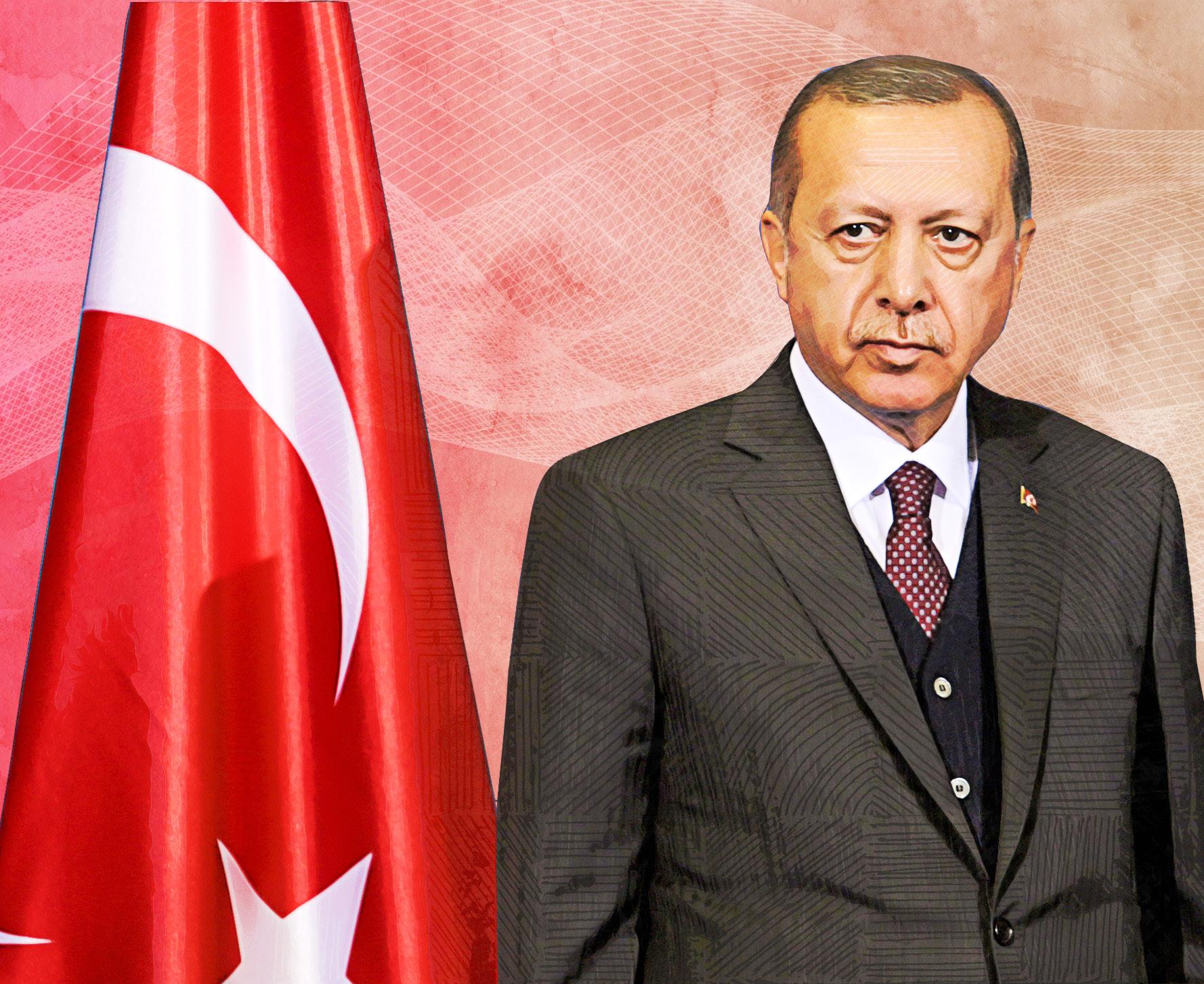
With the sensitivity taught us by our civilization, we as Türkiye have and will continue to take steps to prevent the destruction of nature”

Today, the global community is yet again witnessing the freedom and peace of its citizens put in jeopardy. Attempts to alter the status quo by force endangers the lives of innocent people; nuclear weapons and other weapons of mass destruction pose increasing threats to humanity; systemic violations of human rights leave millions of children deprived of their future …
The Republic of Korea, notwithstanding the recent fiscal consolidation, scaled up support for those who are in need with resources secured through expenditure restructuring. At home, we are offering more assistance to socially vulnerable groups. Abroad, we increased our Official Development Assistance budget with a vision to achieve a more inclusive development globally.
Just as broadening support for the socially disadvantaged groups lays the groundwork for sustainable prosperity, support for nations of the world facing challenges will render global freedom and peace more sustainable.
As a responsible member of the international community, Korea is committed to playing its due responsibility and role for the freedom of global citizens and the prosperity of the global community.
Korea has accelerated research and development for Covid-19 therapeutics and vaccines, pledging 300 million dollars toward the ACT-A Initiative and 30 million dollars to the Financial Intermediary Fund of the World Bank, among others, thereby expanding its contributions to building a more robust global health architecture.
To ensure a more effective response to future infectious disease outbreaks, Korea will host a ministerial meeting of the Global Health Security Agenda (GHSA) in Seoul this November. We are also taking part in negotiations to reach a pandemic accord under the World Health Organization.
In addition, Korea will remarkably increase its contribution to the Global Fund, joining forces with our partners in our fight
against infectious diseases including AIDS, tuberculosis and malaria.
Turning to the issue of climate change, Korea will scale up its green ODA, help developing countries transition to a low-carbon future and share its innovative green technologies with the entire humanity.
Over the years, Korea has been transferring and sharing its e-government digital technology with developing countries and many others.
The Republic of Korea is pushing forward with its plan to transform the government into a digital platform government. It is an ambitious initiative to remarkably upgrade our democracy, public service, and welfare through digital technology.
We will continue to more widely share our advanced digital technology and data, and spare no effort in providing support and in investing in education.
United Nations General Assembly, 20 September 2022
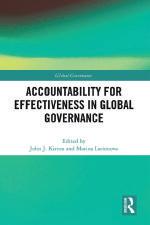

An analysis of UN, G7 and G20 governance of climate change from 2015 to 2021, picking up from The Global Governance of Climate Change: G7, G20 and UN Leadership, which reached back to the 1970s.
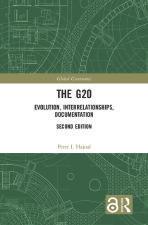
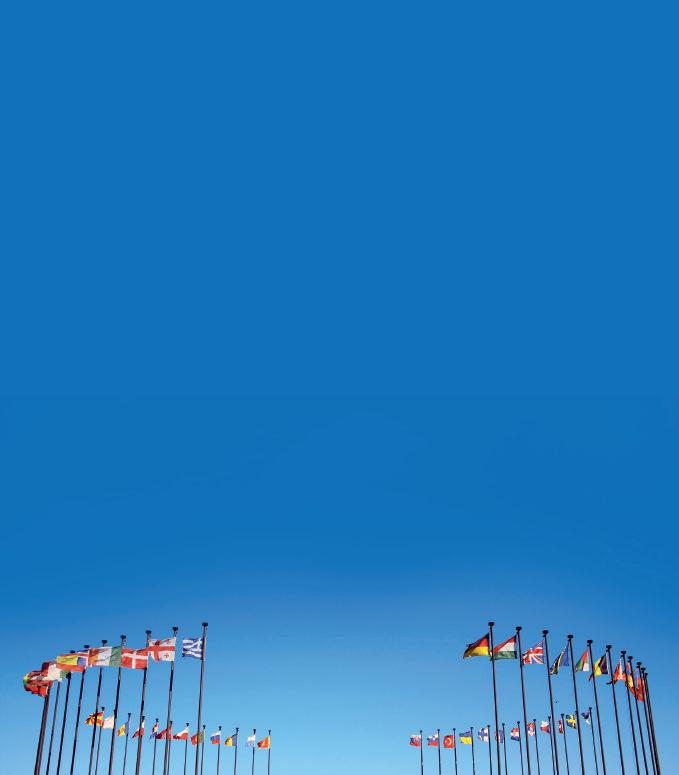
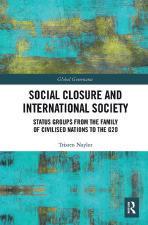 Anthony Albanese Prime minister, Australia
Anthony Albanese Prime minister, Australia
I’m pleased to say Australia will join other nations in endorsing the Leaders Pledge for Nature. This highlights Australia’s reinvigorated approach to protecting our environment and climate leadership and signals our solidarity with other world leaders in our commitment to taking strong action on the dual crises of biodiversity loss and climate change.
Australia understands the urgency of the environmental challenges facing our planet and we’re committed to being a leader in the global fight to solve them.
Australia is one of the most biologically rich and diverse nations on Earth, one of only a few mega-diverse countries that together comprise less than 10% of Earth’s surface, but are home to more than 70 per cent of its living species.
Working together, we can better protect and conserve the world’s land, sea, waterways and cultural heritage for future generations. Now is the time to act.
Speech, New York, 21 September 2022
On any measure, Australia is the world’s pre-eminent resources jurisdiction – the top exporter of iron ore, lithium, LNG [liquefied natural gas[, and metallurgical coal.
We are a resources superpower.
We can be a renewable energy superpower. Australian metals and minerals will make this happen.
Here – and around the world – your work will drive the global transition to a low-carbon future.
The Minerals Council has reported on the increase in global demand we’re talking about here – and the increase in production required by 2030:
• increasing lithium production fourfold
• doubling rare earth element output
• a two-thirds increase in nickel
• a third more copper.
And the growth in demand will drive growth in jobs – and investment too.
Globally, annual clean energy investment will need to more than triple to reach net zero by 2050. There is a world of opportunity here for our country.
We have an unmatched natural advantage in clean energy.
The sunniest continent on earth, some of the strongest winds in the world – and all the minerals and metals needed to drive the energy transition…
Winning the race, leading the world, requires investment and innovation and courage and commitment.
And it is a race, no doubt about that.
There’s strong global demand – and there’s fierce global competition.
Chile, Canada and Saudi Arabia are all chasing the same prize, the same jobs, the same chance to lead an economic change every bit as transformational as the industrial revolution …
Our $15 billion National Reconstruction Fund will support new and emerging industries and the transition of existing industries.
It will invest in areas like green steel and aluminium; clean energy component manufacturing; hydrogen electrolysers; and fuel switching.
The NRF [National Reconstruction Fund] will dedicate a $1 billion investment in mining science technology and minerals processing to move Australia further up mineral value chains.
We are the world’s largest exporter of the raw materials necessary for clean energy technologies, but for decades we’ve shipped these materials overseas and bought back manufactured goods at a premium.
Our Government will invest to unlock more value from our minerals.
Because we understand how important your industry is to Australia’s future energy security and our broader economic self-reliance.
You’re not just part of the transition, you’re the foundation for the next generation of growth and jobs and industry that our nation needs to compete and succeed in a globalised world.
For nearly a decade, the Australian political debate over renewables and resources and climate action has been hostage to a false choice between creating jobs or cutting pollution.
Our Powering Australia plan busts that myth. Embracing renewable energy technology will attract and generate tens of billions of dollars in investment.
And create hundreds of thousands of jobs – with 5
out of every 6 in regional Australia.
I want to emphasise that our Government will continue to work with your businesses to reduce emissions in a predictable and orderly way, underpinning the energy transition with certainty.
In the same way, Australia will continue to be a trusted and stable supplier of energy and resources to our key trading partners.
As we work with other nations to reduce emissions globally, we will continue to be a reliable provider of energy.
For example, Japan and South Korea are already looking to us for their clean energy needs, actively building partnerships with Australian companies for the supply of green hydrogen.
I’m hopeful that across the country, government and industry and researchers and universities can keep co-operating and co-investing … … to commercialise and apply the innovations and ideas and technology that will drive future prosperity.
Address to the Australian Minerals Industry Parliamentary Dinner, 5 September 2022

Working together, we can better protect and conserve the world’s land, sea, waterways and cultural heritage”
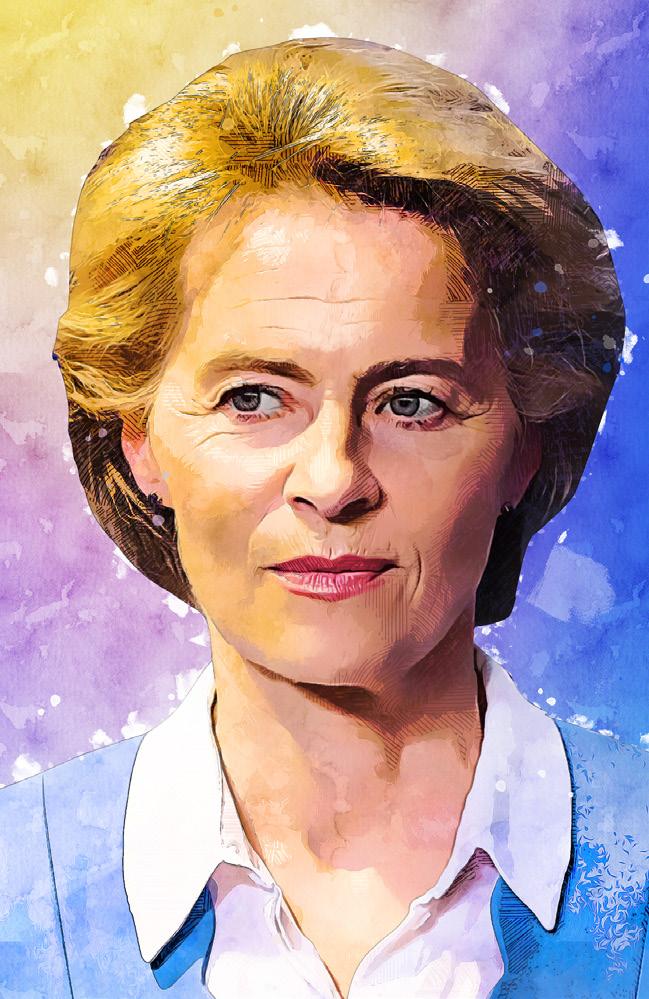
We all remember that fateful morning in late February.
Europeans from across our Union woke up dismayed by what they saw. Shaken by the resurgent and ruthless face of evil. Haunted by the sounds of sirens and the sheer brutality of war.
But from that very moment, a whole continent has risen in solidarity.
At the border crossings where refugees found shelter. In our streets, filled with Ukrainian flags. In the classrooms, where Ukrainian children made new friends.
From that very moment, Europeans neither hid nor hesitated.
They found the courage to do the right thing.
And from that very moment, our Union as a whole has risen to the occasion.
Fifteen years ago, during the financial crisis, it took us years to find lasting solutions.
A decade later, when the global pandemic hit, it took us only weeks.
But this year, as soon as Russian troops crossed the border into Ukraine, our response was united, determined and immediate.
And we should be proud of that.
We have brought Europe’s inner strength back to the surface.
And we will need all of this strength. The months ahead of us will not be easy. Be it for families who are struggling to make ends meet, or businesses, who are facing tough choices about their future.
Let us be very clear: Much is at stake here. Not just for Ukraine – but for all of Europe and the world at large.
And we will be tested. Tested by those who want to exploit any kind of divisions between us.
This is not only a war unleashed by Russia against Ukraine.
This is a war on our energy, a war on our economy, a war on our values and a war on our future.
This is about autocracy against democracy.
And I stand here with the conviction that with courage and solidarity, Putin will fail and Europe will prevail …
The last years have shown how much Europe can achieve when it is united.
After an unprecedented pandemic, our
new reality of higher public debt. We need fiscal rules that allow for strategic investment, while safeguarding fiscal sustainability.
Rules that are fit for the challenges of this decade …
But our future also depends on our ability to engage beyond the core of our democratic partners.
Countries near and far share an interest in working with us on the great challenges of this century, such as climate change and digitalisation.
This is the main idea behind Global Gateway, the investment plan I announced right here one year ago.
It is already delivering on the ground.
Together with our African partners we are building two factories in Rwanda and Senegal to manufacture mRNA vaccines. They will be made in Africa, for Africa, with world-class technology.
And we are now replicating this approach across Latin America as part of a larger engagement strategy.
This requires investment on a global scale. So we will team up with our friends in the US and with other G7 partners to make this happen.
economic output overtook pre-crisis levels in record time.
We went from having no vaccine to securing over 4 billion doses for Europeans and for the world.
And in record time, we came up with SURE [Support to mitigate Unemployment Risks in an Emergency] – so that people could stay in their jobs even if their companies had run out of work.
We were in the deepest recession since World War 2.
We achieved the fastest recovery since the post-war boom.
And that was possible because we all rallied behind a common recovery plan. NextGenerationEU has been a boost of confidence for our economy.
And its journey has only just begun … We must finance the transition to a digital and net-zero economy.
And yet we also have to acknowledge a
In this spirit, President Biden and I will convene a leaders’ meeting to review and announce implementation projects … For more than 70 years, our continent has marched towards democracy. But the gains of our long journey are not assured.
Many of us have taken democracy for granted for too long. Especially those, like me, who have never experienced what it means to live under the fist of an authoritarian regime.
Today we all see that we must fight for our democracies. Every single day. We must protect them both from the external threats they face, and from the vices that corrode them from within.
It is my Commission’s duty and most noble role to protect the rule of law.
So let me assure you: we will keep insisting on judicial independence.
And we will also protect our budget through the conditionality mechanism.
State of the Union Address, 14 September 2022

The current priority of the international community is to increase food deliveries to the global market, notably, to satisfy the requirements of the countries that need food most of all.
While ensuring its domestic food security and supplying the domestic market, Russia is also able to scale up its food and fertiliser exports. For example, our grain exports in the next season can be increased to 50 million tonnes.
As a priority, we will supply the countries that need food most of all, where the number of starving people could increase, first of all, African countries and the Middle East … Russia is ready to contribute to balancing global markets of agricultural products, and we see that our UN colleagues, who are aware of the scale of the global food problem, are ready for dialogue. We could talk about creating normal logistical, financial and transport conditions for increasing Russian food and fertiliser exports … People’s living standards and prosperity are the most important demographic factors; the current situation is quite that have recently overlapped. In April, less than a hundred thousand children were born in Russia,
I ask the Government to continue to keep the development of additional support measures for families with children under review. They must be far-reaching and commensurate with the magnitude of the extraordinary
determine the quality of people’s lives towards the needs of families with children …
Every year, more and more tourists want to visit the most beautiful corners of our country: national parks, wildlife sanctuaries and nature reserves. According to available estimates, this year this tourist flow is expected to exceed 12 million people. It is essential that all government bodies, businesses and tourists are well aware of what they can and cannot do in these territories, where they can build tourism infrastructure, and where such activity is strictly prohibited because it endangers unique and fragile ecosystems … Overall, we will be developing clean technology to achieve the goals we set in the environmental modernisation of production facilities, and to reduce hazardous emissions, especially in large industrial centres. We will also continue working on closed-loop economy projects, green projects and climate preservation. I spoke about these issues in detail at this forum last year … Changes in the global economy, finances and international relations are unfolding at an ever-growing pace and scale. There is an increasingly pronounced trend in favour of a multipolar growth model in lieu of globalisation. Of course, building and shaping a new world order is no easy task. We will have to confront many challenges, risks, and factors that we can hardly predict or anticipate today.
St Petersburg International Economic Forum plenary session, 17 June 2022
Global politics and economy are about to undergo fundamental and irreversible changes. The growing role of new centres of power is coming into sharp focus, and interaction among these new centres is not based on some rules, which are being forced on them by external forces and which nobody has seen, but on the universally recognised principles of the rule of international law and the UN Charter, namely, equal and indivisible security and respect for each other’s sovereignty, national values and interests …
Russia’s future is ensured by families with two, three and more children. Therefore, we need financial support –we need to target healthcare system, education, and all areas that
We help address the energy and food problems that are growing globally as a result of certain systemic errors in the world’s leading economies in the field of finance and energy. Our policy is not selfish. We hope that other participants in economic cooperation will build their policies on the same principles and stop using the tools of protectionism, illegal sanctions and economic selfishness to their own advantage …
Russia is increasing its grain exports to international markets. This year, it is going to be 30 million tonnes, and next year it will be 50 million tonnes with 90 percent of our food exports going to the markets of Asia, Africa and Latin America.
Shanghai Cooperation Organization Heads of State Council, Samarkind, 16 September 2022

Our strength as a nation comes from the strong foundations of freedom and democracy.
Democracy gives people the right to choose their own path. And it evolves to reflect the aspirations of citizens.
It unleashes enterprise, ideas, and opportunity. And it protects the freedoms that are at the very core of our humanity.
By contrast, autocracies sow the seeds of their own demise by suppressing their citizens.
They are fundamentally rigid and unable to adapt. Any short-term gains are eroded in the long term because these societies stifle the aspiration and creativity which are vital to long-term growth …
I will lead a new Britain for a new era. Firstly, this begins with growth and building a British economy that rewards enterprise and attracts investment … Secondly, it means securing affordable and reliable supplies of energy.
We are cutting off the toxic power and pipelines from authoritarian regimes and strengthening our energy resilience. We will ensure we cannot be coerced or harmed by the reckless actions of rogue actors abroad.
We will transition to a future based on renewable and nuclear energy while ensuring that the gas used during that transition is
from reliable sources including our own North Sea production.
We will be a net energy exporter by 2040. Thirdly, we are safeguarding the security of our economy – the supply chains, the critical minerals, the food, and the technology that drives growth and protects the health and lives of our people.
We won’t be strategically dependent on those who seek to weaponise the global economy.
Instead, we are reforming our economy to get Britain moving – and we want to work with our allies so we can all move forward together.
The free world needs this economic strength and resilience to push back against authoritarian aggression and win this new era of strategic competition.
We must do this together. So we are building new partnerships around the world.
We are fortifying our deep security alliances in Europe and beyond through NATO [North Atlantic Treaty Organization] and the Joint Expeditionary Force.
We are deepening our links with fellow democracies like India, Israel, Indonesia and South Africa.
We are building new security ties with our friends in the Indo-Pacific and the Gulf. We have shown leadership on free and
fair trade, striking trade agreements with Australia, New Zealand, Japan and many others, and we are in the process of acceding to the Trans-Pacific Partnership.
Rather than exerting influence through debt, aggression, and taking control of critical infrastructure and minerals, we are building strategic ties based on mutual benefit and trust.
And we are deepening partnerships like the G7 and the Commonwealth …
The G7 and our like-minded partners should act as an economic NATO, collectively defending our prosperity.
If the economy of a partner is being targeted by an aggressive regime we should act to support them. All for one and one for all.
Through the G7’s $600 billion Partnership for Global Infrastructure and Investment we are providing an honest, reliable alternative on infrastructure investment around the world, free from debt with strings attached.
Address to the United Nations General Assembly, 21 September 2022
*At the time of printing
Giorgia Meloni is the leader of the Brothers of Italy (Fratelli d’Italia) party, which won the most votes in the general election on 25 September 2022. She was sworn in as prime minister of Italy on 22 October 2022. Born and raised in Rome, she is a politician and journalist who has been involved in politics since she was 15. In 1996 she became the national head of Student Action, the student movement of the National Alliance.

In 1998, at the age of 21, she was elected councillor of the Province of Rome for the National Alliance, and remained in office until 2002.
In 2001 Meloni became a member of the national governing committee of Youth Action, the youth movement of the National Alliance, and was elected president in 2004.
In 2006, at the age of 29, she was elected to the Chamber of Deputies as a member of the National Alliance. She served as vice-president of the chamber and chaired the communications committee until 2008.
In 2008 she was elected to the Chamber of Deputies for the People of Freedom (Popolo della Libertà) party. At 31, she became the youngest ever minister in the Italian government when she was appointed minister of youth by Prime Minister Silvio Berlusconi, a position she held until 2011. She was also a member of the finance and labour committees in the Chamber. From 2009 to
2012 she was president of Giovane Italia, the youth movement of the People of Freedom. In 2012 Meloni left the People of Freedom party to found, together with Guido Crosetto and Ignazio La Russa, the Brothers of Italy. In 2013, she was again elected to the Chamber of Deputies and served on its Labour Committee and Social Affairs Committee, as well as on the Parliamentary Commission of Inquiry into the banking
She was elected national president of the
In 2016, while pregnant, she ran for the post of mayor of Rome. She won 21% of the vote, and was elected to the Capitoline
In March 2018, the number of Brothers of Italy parliamentarians quintupled, with 18 senators and 32 chamber members elected. Meloni served as a member of the Constitutional Affairs Commission, and led the opposition in the Italian
In September 2020 she was unanimously elected president of the European Conservatives and Reformists Party (ECR Party), which brings together more than 40 European and western parties. She is the only female leader of both a European political party and an Italian party. She is the author of two Noi Crediamo [We ], published in 2011, and Io sono Giorgia: Le mie radici, I am Giorgia: my ], published in
The future of the international order depends on peace and dialogue. Mexico firmly believes that the rules-based multilateral system must be reinforced and rehabilitated to ensure its relevance. The G20 is a platform to advance this vision.
We must remember that the Covid-19 pandemic and its multidimensional effects revealed the importance of international cooperation and collective efforts to overcome unprecedented challenges. However, the temptation to return to unilateral measures in times of crisis continues to be present.
The wide consensus on recovery achieved by the G20 Rome Summit in 2021 has been replaced by international rivalry and polarisation. The Russian invasion of Ukraine broke out just when the global economy had the opportunity to overcome the negative effects of the Covid-19 pandemic and of unilateralism.
We foresee the Bali Summit as an opportunity to advance the G20 priorities to return to the path of global recovery and diplomacy to alleviate geopolitical tensions.
Mexico celebrates the leadership of Indonesia to cope with these complex challenges and advance the priorities set when it took over the G20 presidency in December 2021: strengthening the global health architecture, digital transformation and energy transition.
It was difficult for us all to anticipate an international war scenario and its severe impacts on the G20 objectives.
Amid this complex setting, the G20 must refocus the way we do business and strive for the political will to reach consensus on our main concerns to respond to new and more challenging threats in
the global economy, such as inflation, the food and energy security crises, and their particular effects on women, youth and migrants.
We will continue promoting global health security, aiming at universal and equitable access to vaccines as the best strategy to fight current and future pandemics, particularly for the most vulnerable countries. Despite these uncertain times, I am confident that we will advance the adoption of innovative mechanisms for prevention, preparedness and response.
The pandemic has derailed the progress of all countries in the implementation of the 2030 Agenda for Sustainable Development. The impact was greater on developing countries. We keep poverty and inequality eradication as a key global priority to promote food safety during and after the Covid-19 pandemic.
On migration, we will continue to promote the recognition of the economic impact of the current crisis on migrants, as well as on their contributions to the global economy. Mexico will strive as well for the integration of migrants and refugees in recovery efforts, bearing in mind the multiple humanitarian consequences of the current conflict.
Climate change, inequalities and economic interdependence also require every country’s political will.
Mexico has contributed to the G20 Action Plan for a strong and inclusive recovery with relevant projects that have proven to foster direct benefits to the most vulnerable communities, such as ‘Youth Building the Future’, ‘Sowing Life’, the ‘Mexico-EU Joint Fund on Preparedness for Current and Future Pandemics’ and ‘The Global Care Alliance’, as part of the G20’s concrete deliverables for this year.
We also rejected the exclusion of any member from the G20 and the ‘business as usual’ logic.
Global challenges have to be resolved through dialogue. We must all be represented and be accountable. Negotiations must be open to discuss the economic, political and social future of the international order. As reflected by the agreement to unblock grain exports from Ukraine in July, diplomacy must prevail to resolve the multiple effects of the war.
Aware of our individual and collective responsibility, the president of Mexico, Andrés Manuel López Obrador, has proposed the creation of a High-Level Caucus for Dialogue and Peace in Ukraine to boost the mediation efforts of the United Nations secretary-
general, in partnership with other heads of state and government. Our main goal is to reduce tensions, contribute to a cease-fire and to the ultimate goal of achieving a sustainable peace agreement.
The G20 cannot allow this international juncture to negatively determine its future as the main mechanism for global political and economic coordination. The assessment of the Bali Summit will depend on the consensus reached and will be decisive for the prospects of the Indian, Brazilian and South African G20 presidencies that follow in 2023, 2024 and 2025 respectively. A balance of power and confidence in recovery must be the engines guiding a reinvigorated multilateralism for a future of prosperity.
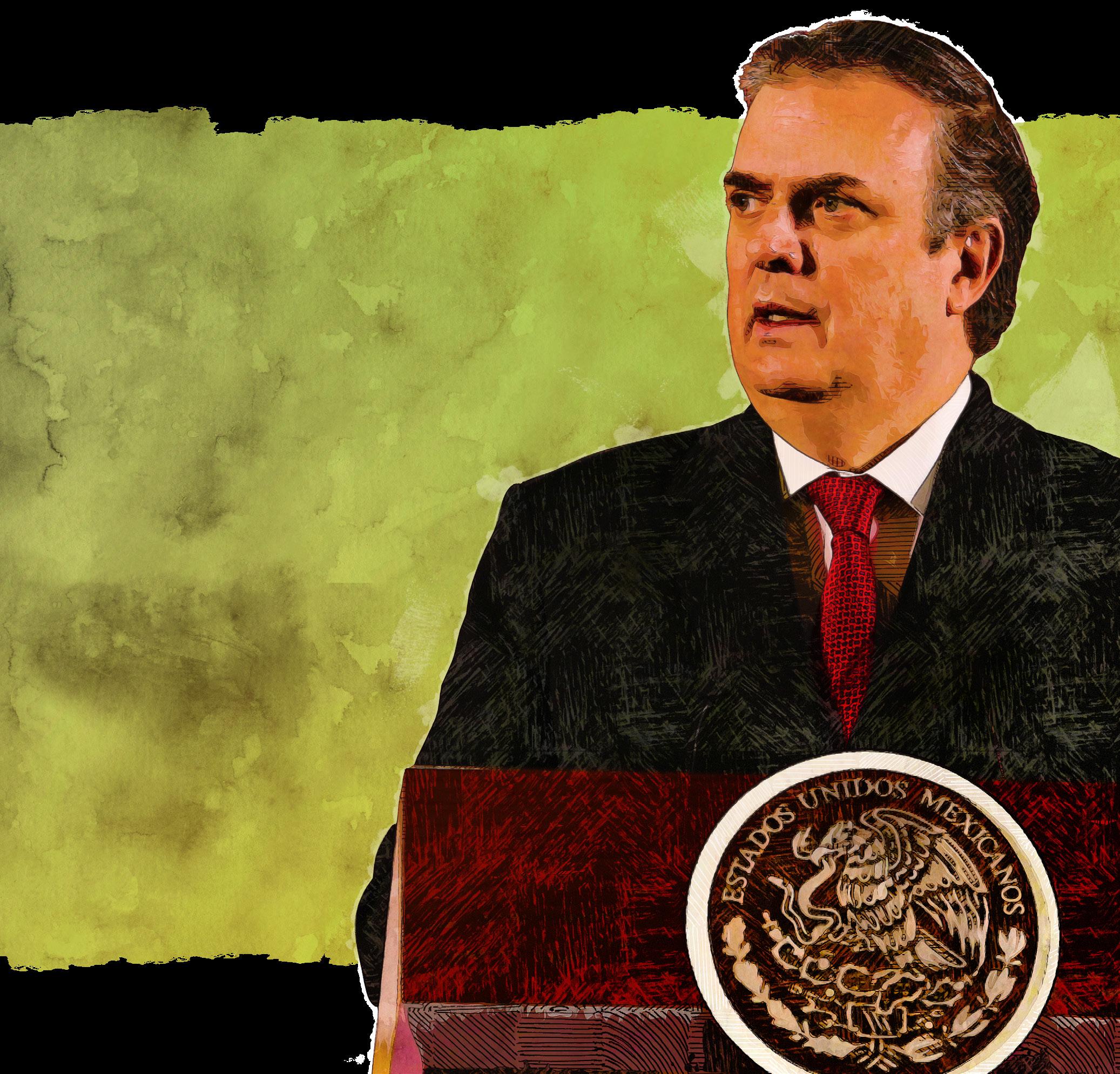
We will continue promoting global health security aiming at universal and equitable access to vaccines, as the best strategy to fight current and future pandemics”Pedro Sánchez President, Spain
The night of 24 February 2022 will go down in history as the start of a true test, not just for the G20 but for the whole of humanity. As Russian troops and tanks rolled into Ukraine, we witnessed the start of an unprovoked war of aggression led by a G20 member against a sovereign, independent state.
Eight months later, the war continues to rage. Russia has conducted sham annexation referenda in occupied territory, and President Vladimir Putin has threatened to use nuclear weapons. An energy crisis and a food crisis are unfolding, exacerbated by the war in Ukraine and disproportionately afflicting the most vulnerable. As we were collectively leaving the worst of the Covid-19 pandemic behind, high inflation and high borrowing costs are bringing us closer to a global recession and a massive increase of poverty, seriously threatening the fulfilment of the Sustainable Development Goals by 2030.
The G20, as the premier forum for economic cooperation, has consistently proven its ability to be up to major challenges, starting with the global financial crisis of 2008. The grave situation that we are facing calls for four urgent and strategic answers.
First, we must give an unequivocal answer to the consequences of Russia’s war of aggression for the rules-based international order that we have relied upon since the end of World War II. We believed that invasions to redraw borders were a thing of the past, but the war in Ukraine highlights the fragility – as well as the intrinsic value – of the purposes and principles enshrined in the United Nations Charter. G20 members must not shy away from reaffirming their unwavering attachment to the basic rules that
guarantee the territorial integrity and the ability of all states to choose their own, sovereign path. It is not just about Ukraine and the thousands of victims of this war of aggression: if we collectively fail to react to this egregious violation of the territorial integrity of a sovereign state, any one of us could be next.
Second, we must give a future-proof answer to the energy crisis that also addresses the climate emergency. By waging an energy war against an entire continent, Putin’s actions have not only destabilised global energy markets; they have also highlighted the need to further accelerate the transition to green energy sources. We must collectively tackle this short-term security of supply crisis with a long-term approach that moves us all – from advanced economies to emerging markets and less developed countries –closer to a carbon-free future.
Faced with a climate and environmental emergency, the G20 must raise the bar of ambition across the board to make universal access to affordable, reliable and clean energy a reality, while ensuring that untapped fossil fuel reserves become stranded assets as soon as possible. The planet will not wait for us.
Third, we must give a multifaceted answer to the food security crisis that is dawning upon us. Our response, in support of a UN-led process and in full coordination with other existing initiatives, must range from ensuring an open, transparent and predictable trade environment for agricultural products to enabling farmers and producers of all sizes to urgently and sustainably increase food production. The availability of affordable fertilisers, which has been badly affected by the war in Ukraine and the resulting high energy prices, remains an immediate priority.
Yet the G20’s answer should be strategic, and focus also on speeding up the development and marketisation of advanced natural and mineral fertilisers. We must use this opportunity to ensure that food systems better contribute to mitigation and adaptation to climate change and to stop and reverse biodiversity loss.
Fourth, we must make sure that lowand middle-income countries have sufficient fiscal space to adequately respond to these multifaceted crises. Rising interest rates raise questions about the sustainability of debt in an increasing number of countries. They desperately need not just the resources to ensure continued access to food and energy in the short term, but also the financing to carry out the transformative investments they need to modernise and decarbonise their economies.
Spain has been a vocal sponsor of new tools, such as the International Monetary Fund’s Resilience and Sustainability Trust, which will no doubt contribute to addressing those needs. But we need to do more: we must make the most of the G20’s Common Framework for Debt Treatment, including through its extension to vulnerable middle-income economies and by ensuring its full and effective implementation.
Never before has the G20 faced a test of this magnitude, but we cannot afford taking any steps back. The Bali Summit, under its motto ‘Recover stronger, recover together’, should be a show of unity in defence of international law and the rules-based international order. A show of unity in recognising that the best way to tackle the food and energy crises is by decarbonising our economies and ensuring sustainable and inclusive economic development and opportunity for all. A show of unity in demonstrating that, despite our divisions, we can still come together as a group for the common good and the prosperity of all humankind.
Spain will be up to the challenge, contributing to defining the answers that the world needs, in a constructive and creative way.

As the G20 leaders gather for their summit in Bali, they are tasked with overcoming the unprecedented shocks proliferating during 2022, from Russia’s invasion of Ukraine to the escalating assault from climate change
The 17th regular G20 summit, in Bali, Indonesia, on 15–16 November 2022, will be highly significant.
It will build on the G20’s Rome Summit hosted by Italy in October 2021, the United Nations Glasgow climate summit in November 2021, the first part of the UN conference on biodiversity in Kunming, China, in spring 2022 and the G7 summit in Elmau, Germany, in June 2022.

It will be the first G20 summit hosted by Indonesia, the anchor of the Association of Southeast Asian Nations and an important democratic power.
Indonesia’s majority Muslim, large, young population and its strong economy, vast geographic expanse, long coastlines and natural assets make it globally critical in the ecological, social, economic and security domains.
Host Joko Widodo is a G20 summit veteran, attending since 2014. Fresh energy comes from Germany’s new chancellor, Olaf Scholz, who hosted the G7 in June, Japan’s Fumio Kishida at his first in-person G20
summit, the United Kingdom’s new leader, Italy’s Giorgia Meloni, Australia’s Anthony Albanese and Korea’s Yoon Suk-yeol. Other participants include Argentina’s Alberto Fernández, and the European Union’s Ursula von der Leyen and Charles Michel, as well as India’s Narendra Modi, scheduled to host in 2023, Turkey’s Recip Tayyıp Erdoğan, Canada’s Justin Trudeau, Brazil’s Jair Bolsonaro, Saudi Arabia’s Mohammed bin Salman, China’s Xi Jinping, Russia’s Vladimir Putin, France’s Emmanuel Macron, and South Africa’s Cyril Ramaphosa. Mexico’s Andrés Manuel López Obrador will be represented by foreign minister Marcelo Ebrard.
Regular guests include Pedro Sánchez of Spain, Mark Rutte of the Netherlands and Lee Hsien Loong of Singapore, as well as Senegal’s Macky Sall, chair of the African Union, and Rwanda’s Paul Kagame, chair of NEPAD. Other invited leaders include the United Arab

Emirates’ Sheikh Mohammed Bin Zayed Al Nahyan, Suriname’s Chan Santokhi representing the Caribbean Community, Cambodia’s Hun Sen representing ASEAN and Fiji’s Frank Bainimarama representing the Pacific Community. Ukrainian president Volodymyr Zelensky is expected to participate by video link.
Also likely to attend are the heads of the Financial Stability Board, International Labour Organization, Organisation for Economic Co-operation and Development, World Health Organization, International Monetary Fund, World Bank and United Nations, among others.
These leaders will build on the results of the Indonesian presidency’s many ministerial meetings and the engagements groups for business, labour, civil society, think tanks, science, auditing, parliamentarians, urban affairs, youth, women and religion. They will be encouraged by G20 members’ 68% compliance by June with the priority commitments from Rome.
Guided by the theme of ‘Recover together, recover stronger’, the Bali Summit will focus on the global health architecture, digital transformation and sustainable energy transition. It also seeks to enhance economic resilience, recovery and connectivity disrupted by Covid-19, increase people’s digital literacy and skills, standardise digital payment systems and highlight Indonesia’s culture, tourism and creative industries.
To perform well, Bali’s leaders must overcome the unprecedented shocks proliferating during 2022. The first is Russia’s invasion of Ukraine in February and the ensuing crises in energy, food, inflation, developing country debt, and decline in economic growth, financial stability, trade and development. The second shock is the continuing Covid-19 pandemic with recent outbreaks in China, the new monkeypox pandemic, polio in the United States and United Kingdom, and Ebola in Africa. The third shock is the escalating assault from climate change and biodiversity loss, fuelling historic extreme weather events across the G20 and globe this year. The fourth shock is mounting US-China tensions, especially over Taiwan, and concerns about the open, rules-based multilateral order itself.
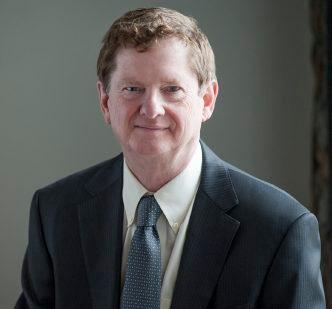
John Kirton is the director of the G20 Research Group, the G7 Research Group, the BRICS Research Group and the Global Health Diplomacy Program, under the umbrella of the Global Governance Program at the University of Toronto, where he is a professor emeritus of political science. He is co-author, most recently, of Reconfiguring the Global Governance of Climate Change, and is co-editor of G7 Germany: The 2022 Elmau Summit as well as a global health series, including the recent Health: A Political Choice – Investing in Health For All Twitter @jjkirton www.g20.utoronto.ca
Nonetheless, to meet the soaring demand for effective global governance, G20 leaders could well produce substantial success. All leaders vital for advancing Bali’s priorities will likely attend in person, and engage collectively in most sessions, despite the deep divide between the G7 leaders and Vladimir Putin over Russia’s invasion and annexations in Ukraine. They may expand the UN-brokered agreement to allow grain exports from the Black Sea, if recent military setbacks make President Putin conclude this war is hurting the very emerging and developing countries whose support he needs. There will be clear advances on controlling Covid-19 and other pandemics, providing equitable, worldwide access to diagnostics, therapeutics and vaccines, building resilience to health-related shocks, and strengthening the global health architecture to perform these tasks, including by raising resources for the new Financial Intermediary Fund for Pandemic Preparedness and Response. Action on climate change will arise from the shocks that show China and the US their soaring vulnerability, Joe Biden’s domestic success on spending on climate, the environment and clean energy, and Indonesia’s focus on renewable energy, which is now a military as well as economic and ecological imperative given Russia’s reduced natural gas exports to Europe. The G20 will take useful steps to expand debt relief for the growing number of beleaguered developing and emerging countries, push implementation of its historic reform of international corporate taxation and guide the digital revolution to benefit all. Amid their severe geopolitical conflicts, all key G20 leaders will realise that to provide the global governance we all need, now more than ever, there is nowhere else to go.
Guided by the theme of ‘Recover together, recover stronger’, the Bali Summit will focus on the global health architecture, digital transformation and sustainable energy transition”
With the world in economic and geopolitical turmoil, the G20 Bali Summit is a moment for its leaders to live up to the spirit of solidarity and collaboration – and bring the world to a full recovery
For Indonesia, its G20 presidency reflects both great trust and enormous responsibility. It is the time for Indonesia to show its competence as a respectable emerging global leader to bring the world to a full recovery from the Covid-19 pandemic. Indonesia must also bridge the severe disagreements between G20 members in coping with the current geopolitical turbulence.
Since Indonesia started its G20 presidency in early December 2021, it has been strongly committed to leading the G20 in carrying out its mandate as the premier forum for its leaders’ global economic cooperation.
G20 sherpas held their first meeting on 7–8 December 2021 to share the G20’s theme and priority agenda under Indonesia’s presidency. This was followed by the first meeting of finance and central bank deputies on 9–10 December, which focused on the priority agenda for the G20’s finance track. There were high hopes that under Indonesia’s presidency, the G20 would find the most feasible strategies for a
strong recovery from the hard harmful impacts of the Covid-19 pandemic.
Throughout 2022, Indonesia will have hosted 184 G20-related events, including the Bali Summit, 20 ministerial and central bank governors meetings, 17 sherpa or deputy-level meetings, 56 working group meetings, and 90 engagement groups meetings.
Indonesia has also held more than 253 side events. In total, there will have been more than 437 events in 25 different cities.

The road to the G20 summit has faced multifaceted challenges since severe geopolitical tension abruptly emerged in mid-February 2022. The global economy, still suffering from the Covid-19 pandemic, is now confronted with energy and food supply disruptions that further spurred the food and energy crisis and rising inflationary pressure.
The G20 must anticipate a future economic recession with coordinated actions, while continuing to cure the scarring effects of the Covid-19 pandemic, to disentangle global supply chain disruptions and address other serious concerns that have haunted the global economy since the Covid-19 pandemic began in early 2020.
While these exacerbated challenges are evidently much more difficult to tackle, G20 members are sharply divided in responding to the Russia-Ukraine war. Many G20 leaders called for the suspension of Russia’s membership in the G20; others wanted to keep Russia participating in its meetings and called for the G20 to focus on its priority agenda.
Despite these multiple challenges and the high pressure on its leadership, Indonesia’s presidency has made several creditable achievements.
First, Indonesia has avoided a possible break-up of the G20. Occupying the driver’s seat, Indonesia has effectively navigated the sharp divide among G20 members and maintained the very existence of the G20 as a premier forum for global economic cooperation, with the participation of all 20 members. Indonesia highly values inclusiveness, also welcoming the active contribution of several invited countries and relevant international organizations at the G20 meetings.
Furthermore, Indonesia’s presidency has renewed the definition of consensus in a context where the unanimous agreement of all members is almost impossible to reach. It has also strengthened the principle of multilateralism in a context where members tend to adopt a unilateral approach for the sake of their utmost pivotal national economic interests.
Building a consensus that requires unanimity is much more challenging, particularly given current

geopolitical tensions. Some G20 members openly declared that no consensus would be achieved unless all G20 members accepted their non-negotiable position on the primary cause of the current geopolitical tension. Indonesia fully respects the coexistence of their different standpoints in building consensus in the G20 and has not forced meetings to produce joint statements.
Second, Indonesia’s presidency has convinced G20 members to continue focusing on the main priority agenda and to deliver concrete implementable outcomes, in spite of some continuing deadlocks.

The G20 finance and health ministers agreed to establish the Financial Intermediary Fund for Pandemic Prevention, Preparedness and Response and secured over $1.4 billion in financial commitments for this purpose. The new fund is housed at the World Bank with technical support provided by the World Health Organization.
The G20 energy ministers agreed on the Bali Compact, discussed intensively in the Energy Transition Working Group. The document comprises basic principles for accelerating the energy transition. They can become a point of reference for G20 members in speeding up their energy transition.
Other deliverables include:
• Non-Binding Guiding Principles to Support the Multilateral Trading System for Achieving Sustainable Development Goals and the G20 Compendium on Promoting Investment for Sustainable Development/Bali Compendium, prepared by the Trade, Investment and Industry Working Group;
• the Bali Package, prepared by the Digital Economy Working Group;
• the Action Plan on Accelerating and Monitoring the G20 Principles for the Labour Market Integration of Persons with Disabilities and the G20 Policy Principles on Adapting Labour Protection for More Effective Protection and Increased Resilience for All Workers, prepared by the Employment Working Group;
• the 2022 edition of the Technical Annex, the KPI Dashboard and Best Practices Playbook, prepared by G20 Empower;
• the Bali Guidelines for World Tourism Recovery, prepared by the Tourism Working Group;
• the 2022 G20 Sustainable Finance Report, prepared by the Sustainable Finance Working Group; and
Edi Prio Pambudi is deputy minister for coordination of international economic cooperation at Indonesia’s Coordinating Ministry for Economic Affairs and Co-Sherpa of G20 Indonesia. In addition to his daily official responsibilities, Edi has strong interests in the academic field, including teaching and giving seminars at several academic institutions, including the Faculty of Economics and Business and the School of Strategic and Global Studies of the University of Indonesia. He is also a member of a team of experts at the National Resilience Council.
Yulius Purwadi Hermawan is a lecturer in the Department of International Relations of Parahyangan Catholic University in Bandung. His research interests include the G20 and global governance, the Sustainable Development Goals (particularly SDG 17) and Indonesia’s membership in international institutions. In addition to his teaching and research, he works with some government ministries and international development agencies as an expert on international development cooperation and foreign policy.
• the Infra Tracker 2.0 and G20 Compendium of Case Studies on Digital Infrastructure Finance, Issues, Practices and Innovations, prepared by the Infrastructure Working Group.
Third, the G20 remains fully committed to strengthening the role of other multilateral forums. Under Indonesia’s presidency, the G20 fully supports the United Nations’ role as the most legitimate universal organisation to bring global peace and security and ensures the effectiveness of the WHO as the leading institution in global health governance. G20 members continue to support the reform of the World Trade Organization to promote a fair and just trade system. Members have also renewed their commitment to support the success of the UN climate conference in Sharm el Sheikh.
The G20 Bali Summit constitutes the most strategic forum for global leaders to demonstrate their true commitment to pursue constructive collaboration in response to the deteriorating global economy and to the overwhelming geopolitical uncertainty. The Covid-19 pandemic is not yet over. The economic recovery remains very fragile. The G20 Bali Summit is a moment for its leaders to live up to the spirit of solidarity and collaboration among G20 members and to consolidate their concerted efforts in preventing catastrophic economic collapse.
The G20 Bali Summit put the global health architecture among its three priorities, with an emphasis on global collaboration to advance post-pandemic recovery and encourage strengthening global health resilience to make the global health system more equitable, inclusive and responsive to crises. Given the significant shock to the global health system from the Covid-19 pandemic, G20 leaders need to take an ambitious and collaborative approach to tackle the most pressing health challenges.
From their first summit in Washington in 2008 to the most recent one in Rome in 2021, G20 leaders produced a total of 12,220 words on health in their communiqués. This 8.6% average per summit is much lower than the 34% average for the G20’s
Maria Zelenova, senior researcher, G20 Research Group

top issue of macroeconomic growth. There have been several documents dealing with health, averaging 2.2 per summit, with most released at the 2013 St Petersburg Summit. The 2020 Riyadh Summit had the highest focus on health, with 68% of the total words, surpassing the previous high of 14% at the 2019 Osaka Summit. At Rome, the leaders dedicated 16% of their words to health.
Maria Zelenova is a senior researcher with the G20 Research Group. She holds a BA in political science and history from the University of Toronto and an MA in international security from Sciences Po Paris. Based in Paris, she is a policy analyst on sustainable infrastructure and green growth at the Organisation for Economic Co-operation and Development.
Twitter @mary_zelenova www.g20.utoronto.ca

G20 summits have produced a total of 124 commitments on health. The first were made at the 2014 Brisbane Summit, responding to the Ebola crisis, with 33 (16%) of its commitments on health. G20 leaders produced two (2%) commitments at the 2015 Antalya Summit and three (1%) at the 2016 Hangzhou Summit. The number jumped to 19 (4%) at the 2017 Hamburg Summit and decreased to four (3%) at the 2018 Buenos Aires Summit. The 2019 Osaka and 2020 Riyadh summits produced 14 each (10% and 13%, respectively). The 2021 Rome Summit made a new peak of 35 (15%) commitments on health.
The G20 Research Group has assessed 19 of these 124 health commitments for compliance by G20 members. Compliance averaged 72%, slightly higher than the G20’s overall, all-subject average of 71%. Compliance with commitments made at the 2014 Brisbane Summit averaged 72%, subsequently declining to 65% for the 2015
Making more health commitments correlates with higher compliance in this area and is just one of several measures the G20 leaders could take to boost progress in global health care
Antalya Summit and only 30% for the 2016 Hangzhou Summit. It then jumped back to 65% for the 2017 Hamburg Summit, 64% for the 2018 Buenos Aires Summit and 66% for the 2019 Osaka Summit. It soared to 90% for the 2020 Riyadh Summit, the first since the Covid-19 pandemic arrived. By June 2022, compliance with the health commitments made at the 2021 Rome Summit was already 79%.

The shock of the Ebola outbreak in 2014 and Covid-19 in 2020 pushed G20 leaders to perform better on health. Although such global shocks are beyond G20 leaders’ immediate direct control, there are nonetheless steps they can take to improve compliance with their health commitments.
First, G20 leaders can make more health commitments. Research shows that more commitments on health usually accompany higher compliance scores.
Second, they should make more ambitious commitments that focus on strengthening the global health infrastructure, universal health coverage and pandemic preparedness. Commitments that explicitly mentioned
cooperating to strengthen health systems, working towards universal health coverage and strengthening pandemic preparedness achieved above-average compliance.
Third, holding meetings of health ministers, which first began in 2017, appears to correspond with higher compliance, especially with a lag. This follows the overall trend of higher
124 commitments on health since G20 summits began
72% Aveerage compliance on health commitments assessed
compliance for commitments made at summits coming after a ministerial meeting relating to the issue they govern. G20 leaders should thus continue to have health ministers meet before the summit to identify and prepare key issues for cooperation.
At Bali, G20 leaders should produce a high number of ambitious health commitments on strengthening the global health architecture and improving pandemic preparedness. They should also build on the work of their health ministers who will have met several times under Indonesia’s presidency.
With the world still coping with Covid-19, the G20 has an opportunity to apply the lessons learnt on global health cooperation, information sharing and pandemic preparedness. The priority placed on the global health architecture by Indonesia’s G20 presidency bodes well for the leaders’ performance at Bali. If they can successfully build on the increased attention to and compliance on health in recent years, they can set truly ambitious health targets and achieve the success needed to build a resilient global health architecture and prevent another global health disaster.
With the world still coping with Covid-19, the G20 has an opportunity to apply the lessons learnt on global health cooperation, information sharing and pandemic preparedness”
As the world collectively recovers and rebuilds from the devastation of the Covid-19 pandemic, there are five priorities it should focus on to create stronger, more equitable, and resilient health systems and societies that are equipped to cope with future crises
The world is at a critical juncture. Even as countries reopen now that the Covid-19 pandemic appears to be receding, danger lurks. We face a great risk that the world moves on to the next crisis and forgets the painful and costly lessons the pandemic has taught us. At this year’s World Health Assembly, I outlined five priorities for our member states and for the World Health Organization, as we collectively recover and rebuild.
The first is promoting health, by making an urgent paradigm shift to address the root causes of disease and create the social, economic and environmental conditions for health to thrive. This shift begins with recognising that health starts not in the clinic or the hospital, but in schools, streets, supermarkets, households and cities. Much of the work that health systems deal with are the consequences of poor diets, polluted environments, unsafe roads and workplaces, inadequate health literacy, and the aggressive marketing of products that harm health. Even more fundamentally, the existential threat of climate change puts us all at risk. Shifting to a focus on health promotion and disease prevention could cut the global disease burden in half, but it would also offer massive economic gains, by reducing the burden on health systems and increasing the productivity of populations.
The second priority is providing health, by reorienting health systems towards primary health care as the foundation of both universal health coverage and health system resilience. The pandemic has demonstrated that a resilient health system is not the same as an advanced medical care system. Some countries with the most sophisticated medical care were overwhelmed by Covid-19. By contrast, some middle-income countries with fewer resources fared much better, thanks to investments in public health after outbreaks of SARS, MERS, H1N1 and others. The backbone of public health is robust primary health care, for detecting outbreaks at the earliest possible stage, as well as for preventing disease and promoting health at the community level.
The third priority is protecting health, by strengthening the global architecture for health emergency preparedness, response and resilience. The pandemic has exposed serious vulnerabilities in the world’s defences against epidemics and pandemics, while the collective failure to address neglected diseases in neglected communities puts us all at risk. In May, the WHO published 10 key proposals for making the world safer, in the areas of governance, financing, and systems and tools, under the umbrella of a new legally binding international instrument on pandemic preparedness and response, which our members are now negotiating.
The WHO and the World Bank estimate that $31 billion is needed each year to fund an effective global health emergency architecture. About $20 billion of this could come from existing and projected domestic and international resources, leaving an annual gap of $10 billion.
Tedros Adhanom Ghebreyesus, director-general, World Health Organization
$31 billion
needed each year to fund an effective global health emergency architecture
To help plug this gap, a Financial Intermediary Fund was recently established to provide catalytic and gap-filling funding, with financial leadership from the World Bank and technical leadership from the WHO. It is also important to expand the WHO Contingency Fund for Emergencies, to ensure rapidly scalable and sustainable financing for response.
The fourth priority is powering health through science, research, innovation, data and digital technologies. Digital technologies offer huge potential for delivering health services to more people, especially in hard-to-reach areas. At the same time, the lesson of this pandemic is that the tools of science and technology are only as good as those who use them. The profound inequities we faced in the distribution of vaccines and other life-saving tools must not be repeated.
The fifth priority is performing and partnering for health, by building a stronger, empowered and sustainably financed WHO. At the World Health Assembly in May, the WHO’s members made a historic commitment to gradually increase assessed contributions to 50% of the base budget over the next decade, from the current 16%. This commitment will transform the WHO’s ability to deliver results where it matters most – in the lives of the people we serve.
Of course, it is incumbent on us to return the trust our members have put in us with strong governance, accountability, transparency and efficiency. Even before the pandemic, we had already made major progress in these areas, and we are committed to further improvements. Our focus is to significantly strengthen our country offices to support greater country capacity and greater country ownership.
The world must heed the lessons of this pandemic. Among the most important of those is the knowledge that we have it in our power to avoid unnecessary deaths and illness, and create stronger, more equitable and resilient health systems and societies that can deal with the crises of the future.
That is why it is especially appropriate that at the G20’s Bali Summit, under Indonesia’s presidency, the main priorities include the need for collective action, a strengthened global health architecture, and a sustainable and inclusive economic recovery. The world must learn the lesson of these pandemic years: we are stronger together.
Tedros Adhanom Ghebreyesus was elected director-general of the World Health Organization in 2017 and re-elected for a second term in May 2022. He was the first person from the WHO African Region to serve as WHO’s chief technical and administrative officer. He served as Ethiopia’s minister of foreign affairs from 2012 to 2016 and minister of health from 2005 to 2012. He was elected chair of the Global Fund to Fight AIDS, Tuberculosis and Malaria Board in 2009, and previously chaired the Roll Back Malaria Partnership Board, and co-chaired the Partnership for Maternal, Newborn and Child Health Board. Twitter @DrTedros who.int
Today, health systems face many challenges, including a shift to ageing populations, which comes with an increased burden of non-communicable diseases. Globally, the number of cancer cases is expected to increase from 18.1 million in 2018 to an estimated 29.4 million cases by 2040.1 Approximately 70% of cancer deaths occur in low- and middle-income countries.2 As the disease burden grows, the number of cancer deaths is also growing globally. Yet there is hope – it’s estimated that innovation in treatment is associated with a 10 to 30% reduction in cancer mortality.3 While our societies continue to age, the quality of life is improving, and those diagnosed with cancer can live longer, healthier lives. Investment in cancer care across the patient journey is a key component to leveraging innovation to improve patient outcomes, reduce inequities and increase country productivity.4
Six percent of European healthcare budgets are spent on cancer, which accounts for around 20% of the disease burden.5 Competing priorities, limited human and financial resources and an inequitable
distribution of available funds account for this mismatch.6 For future investments to have maximum impact and progress towards achieving the sustainable development goals and universal health coverage by 2030, new and existing funds must be allocated towards cost-effective interventions along the care continuum.7 Expansion of screening programmes for earlier diagnosis and linkage to treatment and effective management of cancer care are essential to improve outcomes for patients. In the United States, 68% of breast cancer cases are diagnosed in early stage, for which the five-year survival rate is 99%, compared
to 29% for those with cancer diagnosed in late stages.8 With lung cancer, just 16% of cases are diagnosed at an early stage, with a five-year survival rate of 26%.9,10 Ensuring longer survival with high-quality life for cancer patients requires access to life-saving innovations. To secure additional financing for cancer, governments and decision makers need to be creative. There is an opportunity for public-private partnerships to mobilise funding for cancer to increase private contributions to improve healthcare.11 Innovative financing and novel insurance models could enable better pooling of resources and sharing of risks,
Supplemental medical insurance is an additional insurance plan that helps pay for healthcare costs that are not covered by public financing and/or a person’s public health insurance plan and can be used to create more fiscal space for cancer. In Shanghai, China, a city-wide voluntary supplementary health insurance plan was introduced in 2021 for 19 million residents with no health- or age-related restrictions and can be deducted directly from public health insurance accounts. At US$18 (115 yuan) per year, it includes coverage for 1 million yuan in hospital bills, 1 million yuan in high-cost medications and 300K yuan for cancer treatment. 1
1. sixthtone.com/news/1007352/shanghai-now-has-low-cost-supplementary-health-insurance-for-all
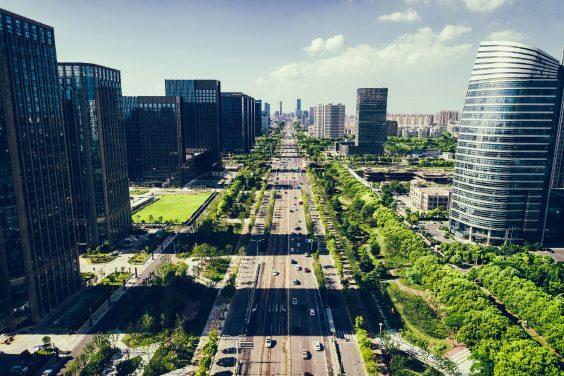
With innovative financing solutions and informed decision-making, we have the tools to improve outcomes for cancer patients
Immunisations are highly cost-effective in combatting infectious diseases. Yet, on average, spending on prevention is less than 3% of the health budget in European countries, and only about 9% of the prevention budget is spent on immunisation (less than 0.5% of the overall health budget). 1
1. thinkwell.global/wp-content/uploads/2020/10/EU-Policy
so treatments are made available to more patients without putting pressure on the public budget.12


In many countries, the burden of cancer and challenges faced along the care pathway are not fully understood. Access to and sharing high-quality data at the local level enables decision makers to engage with the right partners to define the problems and prioritise solutions to improve patient outcomes.
Decisions around cancer financing should be driven by data generated at the local level – accurate, complete, equitable and available systems-level cancer care data is essential in developing policy solutions, financing
Dr Rifat Atun is professor of global health systems at Harvard University, director of the Health Systems Innovation Lab and the faculty chair for the Harvard Ministerial Leadership Program. He was part of the executive management team at the Global Fund and is the co-chair of the T20 Indonesia Task Force on Global Health Security and Covid-19. He has worked with over 30 governments to design, implement and assess health system reform initiatives.
Caroline Litchfield is executive vice president and chief financial officer for MSD, responsible for the company’s finance, procurement and real estate operations. From 2014 to 2018, Ms Litchfield led finance for Human Health, the company’s largest business, overseeing financial operations and reporting in approximately 100 markets.
structures and, importantly, measuring the impact of investments.13 Population-based cancer registries allow for the measurement of cancer burden, five-year survival achieved, evaluation of the effectiveness of prevention efforts and investigation of patterns in cancer treatment.14
Local data can also inform regional and global Cancer Control Plans. The European Cancer Inequalities Registry monitors progress towards the goals laid out in the Europe Beating Cancer Plan, allowing for informed adaptation of interventions and resource allocation in a timely manner.15,16

There have been major improvements in cancer diagnosis, treatment and care, with
Dr Sue Henshall is the former chief executive officer of City Cancer Challenge (C/Can), which supports cities as they work to improve access to quality, equitable cancer care. Following a career as a cancer researcher in the US and Australia, Sue founded a global health consultancy in 2013 and went on to lay the groundwork and concept development for C/Can, taking on the role of CEO in 2019.
Dr Hasbullah Thabrany has worked in the field of health economics, including health financing, for the past three decades in Indonesia. Since 2019, he has been serving as chief of party of the USAID project of Health Financing Activity implemented by ThinkWell Global, supporting the government of Indonesia in ensuring sustainable health financing to achieve universal health coverage.

18.1m cancer cases in 2018
29.4m cancer cases estimated by 2040 6% of European healthcare budgets are spent on cancer, which accounts for ≈20% of the global disease burden
the potential to add time to life. To take advantage of these advancements, health system resources must be applied effectively, equitably and in a way that responds to the needs and expectations of citizens, with innovative financing solutions that improve performance in the management of the cancer care continuum.
Along with creative solutions to ensure cancer care is fully funded, investment decision-making is best when it is evidence based. We need to ensure the collection and analysis of disaggregated data at the local level to understand gaps in cancer care, and the impact of prevention, screening, diagnosis and treatment interventions to support governments to make appropriate resourcing decisions in health systems going forward.
Investing in cancer care for improved patient outcomes will require political will, collaboration and data. Together we can work towards healthier societies and stronger health systems to effectively respond to ongoing and future health threats to ensure individual-level benefits for all.
References
1. canceratlas.cancer.org/the-burden/the-burden-of-cancer/ 2 journalofethics.ama-assn.org/article/how-should-low-and-middle-incomecountries-motivate-equity-cancer-prevention-and-control/2020-02 3 ideas.repec.org/p/tse/wpaper/30703.html
4 uicc.org/what-we-do/thematic-areas-work/investing-cancer-control 5 lucris.lub.lu.se/ws/portalfiles/portal/11713673/IHE_Report_2016_4_.pdf 6 academic.oup.com/oncolo/article/19/1/61/6399967
7 jamanetwork.com/journals/jama-health-forum/fullarticle/2792761
8 Survival Rates for Breast Cancer (2022)
9 lung.org/lung-health-diseases/lung-disease-lookup/lung-cancer/ resource-library/lung-cancer-fact-sheet
10 cancer.org/cancer/lung-cancer/detection-diagnosis-staging/survival-rates.html
11 Three Examples of Public-Private Partnerships in Health Care for Latin America and the Caribbean | IDB Invest
12 thinkwell.global/innovative-financing-for-health/
13 citycancerchallenge.org/c-cans-data-strategy-quality-and-continuity-the-keyto-driving-decision-making-for-cancer-care-in-cities/
14 ncbi.nlm.nih.gov/pmc/articles/PMC5846186
15 efpia.eu/news-events/the-efpia-view/statements-press-releases/theprinciples-of-a-european-cancer-dashboard-cancer-policy-stakeholdersconverge/
16 cancer-inequalities.jrc.ec.europa.eu/
The global community needs a fund dedicated to the adequate financing of pandemic prevention, preparedness and response, to preserve global health and sustain livelihoods. Over the past two decades, the costs of pandemics on society have ranged from billions of dollars – during outbreaks of Ebola, SARS and H1N1 – to trillions in the case of Covid-19. These financial considerations do not include the impacts of illness, death, loss of livelihoods or disruptions in education and other essential services.
Although governments and international health organisations agree on the need for a new financing mechanism, and have established the Financial Intermediary Fund for Pandemic Prevention, Preparedness and Response, more is needed to ensure that it can deliver its promise of reducing risk, building health systems and strengthening capacity to improve global health. In the last 40 years, all six pandemics have originated from the spillover of zoonotic diseases from animals. Preventing such spillover is the most effective and efficient strategy to mitigate pandemic risks and their impacts. Prevention and preparedness are the cornerstone of strengthening the resilience of health systems (animal, human and the environment) and managing health emergencies under the One Health approach. Prevention must therefore concentrate on supporting veterinary services, as they are frontline actors in curbing the emergence and spread of zoonotic diseases.
Despite the value of the veterinary services’ contributions to pandemic prevention and preparedness, and to One Health efforts, the animal health sector remains neglected, often sidelined from multilateral discussions to strengthen the global health architecture and associated financing mechanisms. For the G20 Joint Finance and Health Taskforce, the World Health Organization and the World Bank estimated that the total financing needs for pandemic preparedness amount to $31.1 billion per year. Of this, $10.5 billion in international financing would be needed annually for the next five years to enable monitoring and
Ensuring the health of the world’s animals is a long-term investment that will help to secure global health – but global consensus has thus far has been lacking
Monique Eloit, director-general, World Organisation for Animal HealthPROMOTING PEOPLE’S HEALTH
detecting emerging disease events. This financing skews heavily towards early detection and rapid responses to spillover events and outbreaks, but does not consider the investment needed to support animal health professionals or their role in stopping spillovers before they occur.
Consequently, it also excludes financing to strengthen the core competencies of veterinary services, to ensure that they can adequately apply prevention skills on the ground. Capacity building, equipment and maintenance are equally important investments in diagnostic veterinary laboratories and surveillance activities. The World Bank estimates that $2.1 billion is needed annually for veterinary public health systems to prevent pandemics and contribute to disease surveillance. The World Organisation for Animal Health (founded as OIE) believes that every country plays a role in creating a safer and healthier world. It calls on its members to re-envision their preparedness and prevention mechanisms by investing in national
$31.1 billion
needed per year to finance pandemic preparedness
One Health systems more equitably and increasing investments in the veterinary workforce, which helps keep the world safe from zoonotic diseases. Without investment in animal health, we cannot hope to address health challenges effectively at the animal-human-plantenvironment interface.
Nevertheless, international support is vital. Some countries receive as much as 88% of their health security financing from non-domestic sources. Therefore, of the $2.1 billion needed, $1.1 billion must come from international resource partners. This is less than 10% of the annual financing proposed by the G20 High-Level Independent Panel and, from a broader perspective, represents only 0.05% of the cost of the Covid-19 pandemic in 2020 alone.
Financing is not the only hurdle facing the animal health sector. The FIF needs to fully embrace the role of animal health in pandemic preparedness, prevention and response, and include WOAH as a member of its Technical Advisory Panel, as an implementing entity, and as a source for scientific and technical expertise on animal health and pandemic prevention and preparedness.

Monique Eloit is the director-general of the World Organisation for Animal Health (WOAH, founded as OIE). Prior to her election, she occupied the position of the organisation’s deputy director-general from 2009 to 2015. A doctor of veterinary medicine, she has also been the chief veterinary officer of France and served as national delegate to WOAH from 2005 to 2009.
Twitter @WOAH_Global, @WOAH_DG woah.org
Without equal representation from all health sectors – animal, human and environmental – the global community ignores the basic principles of One Health and the Quadripartite One Health Joint Plan of Action. This global plan, which provides a framework of action for WOAH, the Food and Agriculture Organization, the World Health Organization and the United Nations Environment Programme to scale up One Health across the world, will help prevent future outbreaks of disease by supporting countries in setting targets and priorities. However, the FIF does not currently consider it a roadmap for action, missing the opportunity to synergise One Health goals already set by the international community.
WOAH is dedicated to advocating on behalf of its members, all national veterinary services and the animal health sector at large, to ensure that their needs are considered in this new endeavour to prevent, prepare and respond to pandemics. The costs and next steps in creating a more sustainable, healthier world are now evident and animal health professionals have a vital role to play in achieving it.
save lives, limit disruption and protect the global economy. G20 governments, which fund, regulate and procure at huge scale the outcomes of biomedical research and development, are in a unique position to make sure that licensing and technology transfer enable global access.
This is the most effective way to ensure that people in the Global South as well as in the Global North receive the vaccines, diagnostics and therapeutics needed to defeat pandemics. Left to the market to fix, pandemics will persist, the damage wrought to all economies will well exceed any individual company’s profits, and the longevity of the harm will go beyond any medicine’s expiry date.
Winnie Byanyima, executive director, UNAIDSAs fear of monkeypox grips the world, as exhaustion sets in over Covid-19 and as concerns mount about pandemics to come, leaders can sometimes feel they are being challenged by unprecedented crises for which there is no guide. Luckily, there is a guide to responding to pandemics: the AIDS movement’s collected knowledge of what we have learned responding to HIV.
Our biggest takeaway is this: just as viruses know no borders, our response to them must know no borders.
The G20 is uniquely positioned to provide crucial support in a global response to pandemics, bringing together, as it does, countries that host the world’s major pharmaceutical producers. The G20 has come together before to make bold political choices to address systemic common challenges, as it did in 2008 in the wake of the global economic crash. Faced with the ‘pandemic crash’, people across the world look to the G20 to play its part through courageous cooperation.
Key to the cooperation needed is the sharing of intellectual property rights and technology transfer, the quickest tools to ensure the world can produce the health technologies needed to control pandemics,
The AIDS crisis would be over today if every person with HIV had gained access to antiretrovirals as soon as they were developed in the 1990s. But medicines were kept at unaffordable prices, at $10,000 per person per year. It took nearly a decade for governments of the Global South to be able to access medicines at prices they could afford, a decade in which 12 million lives were lost and economies suffered irreparable damage.
The same story is unfolding with SARS-CoV-2 today. Essential vaccines and therapeutics have remained accessible primarily to people in wealthy countries, which has enabled the virus to mutate into ever-elusive variants, delaying the return to pre-pandemic norms of social and economic life. There are those who argue that the only way to incentivise and reward R&D for new health technologies is for pharmaceutical companies to hold onto fully exclusive intellectual property rights for extended periods. This argument does not recognise the billions of dollars of public money that fund R&D, and the responsibility of governments to protect public health. Nor does it recognise that companies will continue to profit in the same
We already have a guide on responding to pandemics and just as viruses know no borders, our response to them must be borderless too
way from the markets they already serve. With production taking place in the Global South as well as the Global North, everybody wins.
This past July, the UK-based pharmaceutical company ViiV Healthcare helped to light a way forward when it pledged to voluntarily transfer the technology for a revolutionary new HIV prevention tool to 90 countries. Broadening access further to include every country that needs it would speed up access worldwide, helping to bring down new HIV infections. Bavarian Nordic, the Danish producer of the monkeypox vaccine, has recently recognised that it alone cannot meet global demand for vaccines.
Enabling worldwide production of and access to affordable lifesaving health technologies will keep us all safe and protect every country’s economy. This approach is key for an effective pandemic response. If we fail now, we will fail to respond appropriately to future pandemics.
The economic damage wrought by pandemics is not inevitable. Lessons learned from the AIDS pandemic provide a guide for leaders to emerge triumphant, together. In this time of crisis, the only realistic strategy is to be bold.

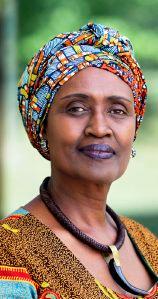
Winnie Byanyima is the executive director of UNAIDS and an under-secretarygeneral of the United Nations. A passionate and long-standing champion of social justice and gender equality, she leads the UN’s efforts to end the AIDS epidemic by 2030. She believes that health care is a human right and was an early champion of a people’s vaccine against the coronavirus that should be available and free of charge to everyone, everywhere.
Twitter @Winnie_Byanyima unaids.orgLeft to the market to fix, pandemics will persist, the damage wrought to all economies will well exceed any individual company’s profits, and the longevity of the harm will go beyond any medicine’s expiry date”
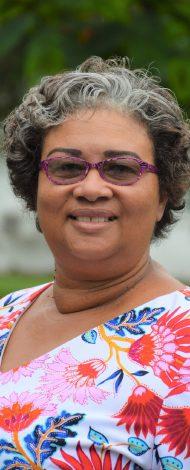
How is the human and ecological health of small island developing states being harmed by compounding climate change?
The Caribbean has long felt the effects of severe weather events on its gross domestic product. It’s not only hurricanes – you can have severe flooding, and land slippage, which is often more harmful.
From the perspective of global action by those who exacerbate climate change, the lack of action means the desired reduction in climate-changing action has not occurred. But the penny is starting to drop for emitters, because they are starting to get catastrophic events that affect their bottom line. There is light at the end of the tunnel for my great grandchildren.
The Caribbean has been hard hit by Covid-19, perhaps harder than some emitters, because of our dependence on tourism. But the Caribbean has a spirit of bouncing back together. This current group of heads of government is a force to be reckoned with. Understanding how to cut and contrive was always there – it came across in the slave ships with us –but the sense of finding solutions together is extremely strong. That will help us.
Another thing that is very strong is the ingenuity of our people. The common folk are meshing with the policy direction of the heads of government. So they’ve got the weight of a few million souls with them.
How is the Caribbean Public Health Agency helping?
I learned as the chief medical officer in Barbados that a good health system
boosts investment. The Caribbean bounced back in terms of tourism right away. CARPHA contributed: our tourism and health programme and its information system supported the tourism sector to return. It also supported the general health of the region and allowed us to track disease and prevent major outbreaks. As a result, there was sustained confidence for investment in tourism in the Caribbean.
And there’s progress – never waste a good crisis – on infection prevention and control. Now even little children think a box on a wall is hand sanitiser. A generally healthier way of living has been inculcated into new generations, which bodes well for continuing confidence in general health-seeking compliance.
We’re also working hard on non-communicable diseases, especially for the working population, so they can be more productive.
JOY ST JOHN
Joy St John was appointed executive director of the Caribbean Public Health Agency in 2019. From 2017 to 2019, she was assistant director general of the World Health Organization, responsible for climate and other determinants of health. She served as the chief medical officer of Barbados for more than 12 years and was the first Caribbean person to chair the executive board of the WHO, from 2012 to 2013. Twitter
The effects of climate change felt in the Caribbean are now being experienced the world over. At their summit in Bali, the G20 leaders need to make commitments at the intersection of climate and health – and ensure that funds flow to the most vulnerable
How is CARPHA responding to recent evidence that Covid-19 infections compound other health burdens?
The chief medical officers have mandated us to address long Covid. CARPHA, collaborating with the Pan American Health Organization and our member states, is adapting the World Health Organization’s guidelines for managing Covid-19. I hope they can develop guidelines for managing long Covid.
The Caribbean quasi cabinet of heads of government includes a prime minister responsible for health who sits on the Access to COVID-19 Tools Accelerator. That’s a strategic positioning for getting information and assistance with Covid-19.
Should CARPHA have a new mandate with new resources?
Newsflash! Resources for health are drying up. Our mandate is to have a regional clearinghouse where countries can learn from each other.
We have been trying to work better with sectors outside health. CARPHA is reviewing barriers to achievement, so we know where the gaps are to plug. Whatever architecture is decided on, CARPHA and the region are ready with our reasonable asks and our
tried-and-true ways of responding pragmatically to complex situations.
What are the major challenges for the Caribbean and SIDS around the world?
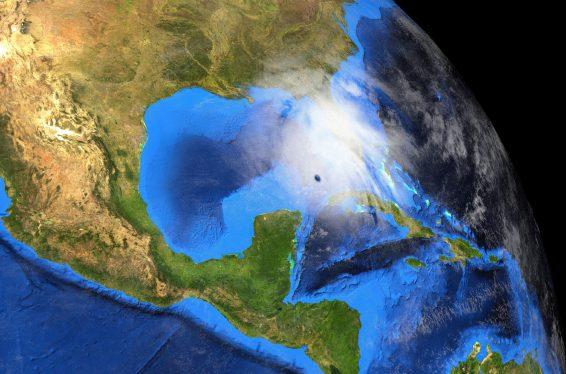
Like everywhere, we need human resources for health: nurses and critical care workers, planners, procurers, finance people. It takes many hands to serve 26 member states, especially in so many languages.
Another challenge is ensuring we are not duplicating efforts. We need to bring
in the donors, international development partners and public health agencies, along with the member states, which CARPHA did for regional health security, so everybody hears what is needed, and then we can drill down to who does what when.
How can G20 leaders in Bali help?
What we asked for last time we got: access to vaccinations. G20 leaders are capable of saving lives through small actions. But I need bigger actions this time.
I hope the new vaccines will deal with SARS-CoV-2, because it hasn’t gone away. We need vaccines available to everyone, so people can continue to operate safely. We need systems that allow for large-scale production of certain vaccines. There is work to do in forecasting and having the technology that allows that ramp-up.
I also need the G20 to look to ensuring that the vulnerable have access to vaccines and medical care.
We need to ensure that climate funds, which are available, flow to the vulnerable. The focus on health and climate change, so cleverly articulated in the Paris declaration, has not yet been realised. But there will be a softer landing in some areas because people now understand more about climate change and health.
The penny is starting to drop for emitters, because they are starting to get catastrophic events that affect their bottom line”
The G20’s role in global health has expanded significantly – as have expectations. Under Germany’s 2017 G20 presidency health gained new prominence and the World Health Organization is now invited to the summit, sending a strong signal to connect the G20 with the United Nations. Given the G20’s expertise and role in financing, the issue of global health funding has filled a gap. Japan’s 2019 presidency focused on joint efforts of health and finance authorities on financing universal health coverage in developing countries, linked to the first UN high-level meeting on the issue in 2019. There was a strong interaction between G20 and UN goals, with Japan using its G20 presidency to push a health agenda at the UN.
The Covid-19 challenge silenced any questions about whether the G20 should deal with health issues. But new geopolitical constellations and political shifts
Ilona Kickbusch,
within G20 members reduced interactions with the UN system, so important to both the German and the Japanese presidencies, and turned the G20 to cooperate with financial institutions. A major step was the creation of the G20 Joint Finance and Health Taskforce, which first met during Italy’s G20 presidency in October 2021, building on the work done under the 2020 Saudi Arabian presidency.
As with the debates on financing universal health coverage, the pandemic demonstrated that many public goods that traditionally belonged to the domain of national governments have become global. Not investing in them has severe economic consequences. Covid-19 provided a chance for the G20 – together with the Bretton Woods institutions – to show that they are fit
Deeper G20 engagement with the United Nations would bring far-reaching benefits – and global health is an effective place to begin
for new financing challenges with truly new instruments. For this reason, many global health advocates call for a stronger interface between health and finance ministers.
Analogies have been made with the 2008 global financial crisis: facing major health, social and economic consequences, the G20 must stabilise the world once again. By defining the key answer as the need for an economic intervention, the G20 became the major ‘solutions platform’. It is no surprise, then, that it led to the creation of the Financial Intermediary Fund for Pandemic Prevention, Preparedness and Response in 2022 under Indonesia’s presidency.
The fund has been welcomed by many parties. But contrary to the success of the stability measures approved by the London Summit in 2009, G20 responses to the pandemic between 2020 and 2022 have been meagre. The pandemic is not over, the world is not yet better prepared for another pandemic and the financial impact on countries remains devastating. The International Monetary Fund expects Covid-19 will cost the global economy $12.5 trillion through 2024. Yet at this point the pandemic fund has only been able to reach 10% of its funding goal of $10 billion – and some of this money constitutes pledges that might not get paid out in view of other crises overtaking the concern with pandemics.
There is a trend to respond to global health challenges by adding new institutions and mechanisms in ever new constellations of
governance by the same established global health actors who criticise the UN system – and to define this as innovative. But the financing model of global health as a global marketplace, linked to major funding institutions, donor countries and key foundations and built on official development assistance and replenishment processes, remains unchallenged, even by the G20.
The G20 is not accountable to the countries affected by its actions, the institutions it creates and the reforms it adopts. All G20 proposals should be assessed on whether they comply with the principle of a democratic and equitable international order as set forth in various UN instruments. This situation has revitalised the call for fundamentally rethinking global health governance and funding and a reinvigorated discussion on how to finance global goods for health. One proposal is for a single Global Health Fund with clear priorities and high levels of accountability in the interface with the UN system, especially the WHO.
For a long time, the key legitimacy argument in favour of the G20 was that its decision-making was more efficient than the UN’s inclusive global governance, nurturing the myth that when heads of state and government come together, they will act. The G20’s neglect of the interface with the UN system has dangerously overshadowed the real issue at stake: the weakening of the democratic, equitable and inclusive governance of global health and the refusal of important UN members – especially many G20 members –to commit to and invest in a strong multilateral system and a robust global cooperation and financing mechanism in the face of a pandemic. This includes funding for the WHO.
The geopolitics hampering the UN and its institutions have crept into G20 and G7 deliberations. Decision-making is as difficult in the G20 as it is in the UN when major powers refuse to cooperate or put pressure on others. Future G20 legitimacy in health in 2023 will hinge on its ability – under India’s presidency – to link G20 deliberations back to the UN system to ensure contributions and acceptance by its members, especially low- and middle-income countries. The opportunity is provided by three big UN initiatives in 2023 – the High-Level Pandemic Summit, the high-level meeting on universal health coverage and negotiations for a global pandemic treaty at the WHO. Deeper G20 engagement with the UN would benefit both the G20 and the UN. Indeed, rather than work around the UN, the G20 should lead on driving the much-needed UN reform. Why not start with global health?
Ilona Kickbusch is the founding director of the Global Health Centre at the Graduate Institute of International and Development Studies in Geneva, Switzerland. She served on a panel of independent experts to assess the World Health Organization’s response to the Ebola outbreak and is a member of the Global Preparedness Monitoring Board. She previously had a distinguished career with the WHO and Yale University, and has published widely on global health governance and global health diplomacy. She is a member of the WHO Council on the Economics of Health For All. She is co-editor of, most recently, Health: A Political Choice – Investing in Health For All Twitter @IlonaKickbusch ilonakickbusch.com

For a long time, the key legitimacy argument in favour of the G20 was that its decision-making was more efficient than the UN’s inclusive global governance, nurturing the myth that when heads of state and government come together, they will act”
Suvarna Alladi, professor of neurology, National Institute of Mental Health and Neurosciences, Bangalore Vladimir Hachinski, distinguished university professor, Western University, Canada
The human brain mediates our thoughts, behaviour and action, and in turn is shaped and changed by our behaviour, experiences and physical environments. Good brain and mental health hold the key to overall health, wealth and well-being,
and strategies to promote it create a knowledge-based society that makes the right decisions for its people.
Several recent and ongoing crises are adversely affecting brain and mental health. Populations are rapidly rising in the numbers of older aged adults, who face serious social isolation, risk of disease and disability, and economic problems that compromise their independence and quality of life. Stroke, dementia and major depressive disorders are leading contributors to disease among older people, and 87% of deaths due to neurological disease are caused by stroke and dementia. This rise in the burden of neurological diseases is having a major impact on brain and mental health globally.
The Covid-19 crisis has had an unprecedented effect on brain and mental health, due to the combination of social isolation, adverse effects of the virus on the brain and poor prioritisation of resources for the vulnerable during the pandemic. Ongoing crises related to conflict are also taking their toll. War, violence, politics, ideologies and, at a more interpersonal level, conflict among family and communities can cause long-standing
Building brain and mental health can unlock good health, productivity and well-being – and the G20 leaders are uniquely placed to develop, fund and implement the measures needed to reduce the burden of neurological disease
psychological problems. Additionally, the climate crisis is contributing to poor brain and mental health – and pollution is a recognised major risk factor for stroke and dementia. All these crises are happening at the same time, and, importantly, they are not just exacerbating each other but are linked and interconnected in their causation and consequences.

The good news is that a common strategy that addresses these conditions together and combines resources will promote overall health and well-being. Solutions must be found not one at a time but approached together for global impact. To achieve this, brain and mental health should be made a top priority by all countries, governments, communities and individuals. Most neurological and mental health diseases such as stroke, dementia and major depressive disorders share common risk factors including hypertension, obesity, physical inactivity, lack of sleep, low education and stress. Therefore a combined approach needs to be developed to prevent neurological and mental health disorders together. Building cognitive and emotional resilience is crucial to protect against the effects of ongoing and future crises. Key strategies to promote brain and mental health are regular exercise, healthy dietary habits, active social engagement and adequate sleep. Periodic monitoring of blood pressure and weight from midlife significantly reduces the risk of neurological diseases. Reducing stress is also key to mental, physical and social well-being. Education is critical. Progress in the ongoing technological, digital and artificial intelligence revolution needs pedagogical methods that focus on the ability to innovate and constantly adapt, both mediated through the brain. The capacity to evaluate risk appropriately and change behaviour to improve brain and mental health needs to be inculcated.
To address this challenge globally, the World Health Organization is developing the Intersectoral Global Action Plan on epilepsy and other neurological disorders for promoting optimal brain health throughout life. Although brain and mental health disorders represent a global problem, given the diversity in sociocultural factors, and differences in healthcare systems, strategies must be developed to respond to national, regional and local needs. The inclusion

Suvarna Alladi is a professor of neurology at the National Institute of Mental Health and Neurosciences in Bangalore. She was a Commonwealth research fellow in cognitive neurology at Cambridge University, and established one of the first memory clinics in India that provides multidisciplinary care for dementia. Her research focuses on investigating life-course experiences that affect cognitive resilience. She is senior researcher in the international project STRiDE (Strengthening responses to dementia in developing countries) and chairs the World Federation of Neurology special interest group on aphasia and cognitive disorders.
Twitter @alladi_suvarna
VLADIMIR HACHINSKI
Vladimir Hachinski is a distinguished university professor at Canada’s Western University and former president of the World Federation of Neurology. He has made major contributions to the understanding, diagnosis, treatment and prevention of stroke and dementia, and leads a dementia prevention/brain health initiative. He introduced the concept of vascular cognitive impairment – the vascular treatable and preventable component of most dementias – and devised a method of identifying it.
of these diverse perspectives is crucial to identify novel and equitable solutions that can combat the rising challenge of neurological disorders. Working with natural leaders of local communities, micro-credentialling and the use of digital technology can be effective in implementing global policy in local contexts. In India an innovative public health initiative for brain health has been developed based on global recommendations but adapted to local needs in the state of Karnataka, in a synergistic collaboration among the think tank NITI Aayog, the state health ministry, and primary, secondary and tertiary levels of healthcare systems. A Virtual Behavioural Medicine programme from Canada has successfully harnessed digital technology to develop a novel model of care for dementia – another example of international and local synergistic
87%
of deaths due to neurological disease are caused by stroke and dementia
collaboration addressing brain and mental health to promote overall health, prosperity and harmony.
The G20 leaders with their significant resources, political will and health awareness are uniquely placed to develop, fund and implement effective measures in their countries to reduce the burden of neurological disease.
Specifically, we suggest that:
• Brain and mental health become a top priority.
• Governments sponsor new approaches to the joint prevention of stroke, ischemic heart disease and mental disorders through a lifespan focus on championing brain and mental health.
• The philosophy is adopted that education is the best vaccination to prevent disease and nurture brain and mental health for promoting productivity and well-being.
The G20, as a forum of leaders, has an opportunity to catalyse and foster new relationships among international organisations and commit to improving brain and mental health and ensure a better world for the future.
calls for a stronger performance and increased leadership from G20 leaders at their Bali Summit.
As the world seeks to restore economic growth against the many severe headwinds it currently confronts, macroeconomic policy is increasingly important for the G20’s role in global governance. Despite a strong performance in delivering on its macroeconomic policy commitments, there has been a steady decline in macroeconomic deliberation and decision-making. The current need for a robust global economic recovery

Alissa
Twitter @alissawang www.g20.utoronto.ca
Since 2008, the G20 has paid substantial attention to macroeconomic policy. It dedicated a total of 73,405 words to macroeconomics across all its summits, for an average of 4,588 words (34%) per summit. G20 deliberation on macroeconomic policy had an initial phase of increasing deliberation, followed by a second phase of decline. At Washington in 2008, the G20 dedicated 18% of the communiqué to macroeconomics. Its deliberation generally increased, to an all-time high of 54% at Brisbane in 2014. Then a decline started at Antalya in 2015 with 42%, and then 29% in 2016, 23% in 2017, 29% in 2018 and 22% in 2019. There was a slight increase to 34% at Riyadh in 2020, but this plunged to 20% at Rome in 2021.

G20 decision-making on macroeconomics was generally strong, but also declined recently. The G20 has made a total of 491 collective, precise, future-oriented and politically binding commitments on macroeconomic policy. Macroeconomic policy accounts for 16% of the total of 3,017 commitments made at the past 16 summits. This puts macroeconomic policy first among all subjects. Decision-making increased from 6% of
Following a steady decline in macroeconomic decision-making, G20 leaders at their Bali Summit should aim to reverse this trend and increase the specificity of their commitments with targets and clear timetables
the commitments made in 2008 to a peak of 39% in 2012. From then it declined to 23% in 2013, 17% in 2014, 14% in 2015, 15% in 2016 and 8% in 2017. After a slight increase to 16% in 2018, it dropped further to 6% in 2019, 8% in 2020 and an all-time low of 3% at Rome in 2021.
The G20 Research Group has assessed compliance with 33 of the 491 macroeconomic policy commitments made between 2008 and 2021. Average compliance was 81%. G20 delivery of its macroeconomic commitments was strong and stable, with only a few dips in performance. Compliance with the commitments made in 2008 was 88%, dropped to 68% for London in 2009, but climbed back up to more than 80% for Pittsburgh in 2009 and Toronto and Seoul in 2010. It dropped to 73% for Cannes in 2011, but rose above 80% again for Los Cabos in 2012 and St Petersburg in 2013. Compliance dropped to 70% for Brisbane in 2014, rose back to 85% for Antalya in 2015, dropped again to 69% for Hangzhou in 2016 and then soared to a very strong 90% for Hamburg in 2017. Compliance then remained strong at 85% for Buenos Aires in 2018, 89% for Osaka in 2019 and

an all-time high of 95% for Riyadh in 2020. For the 2021 Rome Summit, compliance by June 2022 was already 83%. By member, the top complier in macroeconomic policy from 2008 to 2020 was Canada at 95%, followed closely by Germany at 93% and the European Union at 91%.
The G20’s strong performance on macroeconomic policy can be attributed
to specific catalysts such as a timetable or target embedded in the commitment text. Of the 33 commitments assessed, 11 contained at least one catalyst. While the mere presence of a catalyst was not correlated with higher compliance, the presence of several specific catalysts seemed to give a boost. One commitment that referred to a ministerial meeting had 91% compliance, compared to an 81% average for commitments without this catalyst. A commitment with a specified target had 89% compliance, compared to 82% for those without. Commitments with a one-year timetable averaged 90% compared to 81% for those without. Commitments with a multi-year timetable averaged 92%, compared to 81% for those without.
At the Bali Summit, G20 leaders should aim to reverse the recent decreasing trend in deliberation and decision-making. They should also increase the specificity of their commitments by making sure their commitments contain targets, references to past ministerials, or one-year or multi-year timetables. These low-cost accountability measures can help reinforce the G20’s outstanding performance in members’ compliance with their macroeconomic policy commitments.
The current need for a robust global economic recovery calls for a stronger performance and increased leadership from G20 leaders”Compliance for 2021 assesses the period from the Rome Summit up to 22 June 2022

and countries under pressure. These issues are front of mind for governments and well-targeted, means-tested and temporary support measures should be considered. The Organisation for Economic Co-operation and Development’s independent data, analysis and policy best practice advice can help to address these challenges, while also focusing on the longer term structural challenges we are facing, such as securing energy supply in ways that keep us on track for the urgent and necessary green transition.
As we look towards the next United Nations climate conference in Sharm El Sheikh in November, we need to translate ambitions into action. The OECD is advancing the Inclusive Forum on Carbon Mitigation Approaches in order to improve the quality of our multilateral dialogue and to help inform decision-making. Given the global nature of the climate challenge, the success of this initiative will rely on the widest possible participation from advanced, emerging and developing economies. We hope all G20 members will join.
The world has entered a highly challenging and disruptive period. Pressures from economic fragmentation around the world are real and growing. After two years of dealing with the Covid-19 pandemic, Russia’s war of aggression against Ukraine has darkened the outlook for the global economy.
Of course, that war is first and foremost a humanitarian crisis for the people of Ukraine. However, the impacts go well beyond. We are facing lower growth and higher inflation, and negative impacts on business investment and private consumption. And, crucially, the worsening outlook and heightened tensions are serious continuing threats to our rules-based international order.
It is exactly at times like these, although deeply challenging, that we need to maintain and build momentum in the G20 on shared global challenges that rely on our collective ability to address them.
The price of energy has risen dramatically, especially in Europe, and there is uncertainty about supplies going into the winter. Food prices also remain high, putting poorer households
Cooperation between the OECD and G20 will help to build and maintain momentum on shared global challenges, from the current energy crisis to the fast-digitalising jobs market
Second, ensure everyone has the opportunity to participate in and benefit from the green and digital transformations of our economies. Digitalisation is changing business models and creating new opportunities but also disrupting existing jobs. Giving people the best possible opportunity to navigate these challenges means investing in their training, upskilling and reskilling with an eye on developing labour market requirements. The revised G20 Skills Strategy issued this year with OECD support will help align skills provision to labour market needs and improve cross-border recognition of qualifications and prior learning.
Leveraging the full potential of new technologies for sustainable growth also relies on universal access, which will remain out of reach without access to reliable, affordable electricity. To meet the dual climate and development objectives of countries, we need to support the development of modern energy infrastructure and the deployment of clean energy at greater scale and speed. The G20 Blended Finance Principles championed by
Indonesia’s G20 presidency are a powerful tool to direct commercial finance towards these projects while also providing financial returns to investors.
Third, keep markets open and functioning. Open markets remain essential for growth and for the innovation we need to raise living standards, support good jobs and decarbonise our economies. Rules-based trade enables opportunities for all countries, providing the predictability and certainty needed for the private sector to invest and create jobs. Trade is also a source of economic resilience and diversification along supply chains.
Over the past decades, however, the international trading system has been exposed to important changes in the global economic and policy environment that together are putting the system under significant pressure. We need to strengthen the rules-based trading system with the World Trade Organization at its centre.

Mathias Cormann was appointed secretary-general of the Organisation for Economic Co-operation and Development in 2021. Previously, he served as Australia’s finance minister, leader of the Government in the Australian Senate and federal senator representing the State of Western Australia. He also worked as chief of staff and senior adviser to various state and federal ministers in Australia and for the premier of Western Australia. Born in Belgium, he graduated in law at the Flemish Catholic University of Louvain (Leuven), following studies at the University of Namur and the University of East Anglia.
Twitter @MathiasCormann / @oecd oecd.org
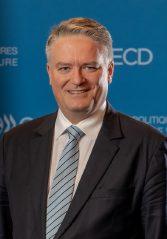
Indeed, we need to further open markets in key areas and reduce the use of counterproductive and market-distorting subsidies in sectors such as agriculture and industrial goods. There are no silver bullets, but the OECD will continue to support the G20 on practical action to strengthen supply chain resilience and make globalisation work better.
We also need to rebuild our fiscal buffers. We need to give ourselves the fiscal space to address all these structural challenges, while also making sure we are in the best, most resilient position possible to deal with the inevitable next external shock. This is also why broadening tax bases is important and why the full implementation of our agreement to reform international corporate tax arrangements will be essential.
There is much we can do together. The OECD remains strongly committed to working with the G20 and stakeholders on all these fronts and more.

and manage the consequences of a climate crisis driven almost entirely by high-income G20 members. The G20 must partner with the International Monetary Fund and the United Nations to create a more effective, equitable global debt restructuring mechanism that levels the playing field with low- and middle-income countries, brings together all sovereign and private creditors, and prevents rating agencies from punishing the many countries in desperate need of relief.
G20 leaders should immediately support a new issuance of special drawing rights to help address the mounting liquidity crisis in lowand middle-income countries. They should use their position as the largest IMF shareholders to demand that it prioritises new models for rolling out debt-for-health and debt-for-nature swaps at scale (as well as for other Sustainable Development Goals) to create more fiscal space for urgent domestic investment in these areas.
Likewise, the G20 should endorse the adoption of natural disaster and pandemic debt suspension trigger clauses, along the lines of what Barbados recently introduced in its September 2022 debt for marine conservation conversion, as another means to help countries temporarily increase fiscal space to contend with external shocks.
We must strive to build a world where policy decisions are based on what matters: the life and health of people and the planet. As the Covid-19 pandemic reminds us, if, in regular times, humanity fails to value what equips us to tackle its most significant challenges, when new challenges arise, no amount of money thrown at them at the last minute will fix their root causes.
The World Health Organization Council on the Economics of Health For All believes that the G20 is uniquely positioned to call for fundamental reforms to the global financial architecture that better equip all countries to tackle the grand challenges that humanity is facing – providing Health For All and reversing the current spiral towards climate breakdown and widespread antimicrobial resistance.
The international institutions created in the aftermath of World War II were not designed to handle today’s multiple global crises, including the war in Ukraine and Covid-19 on top of a climate emergency. Their mandate needs urgent revision to recognise their unique position in addressing the massive collective coordination and financing challenges that undermine the provision of global common goods, including Health For All and climate action.
An untenable debt burden is strangling fiscal space in low- and middle-income countries. Many have had to take high-interest loans to respond to the pandemic
National and supranational governance requires reform to address the grand challenges of this century, and the G20 must lead by example, moving beyond a narrow focus on GDP growth and towards other essential metricsMariana Mazzucato, chair, World Health Organization Council on the Economics of Health For All
Furthermore, the G20 should spearhead much-needed reforms regarding minimum corporate tax rates, specifically by supporting a process to amend the Organisation for Economic Co-operation and Development’s Inclusive Framework to more equally balance the interests and needs of low- and middle-income countries.

G20 governments must support domestic and global efforts to ramp up investment in public-sector capacity, instead of gutting it through austerity and chronic outsourcing, typically with no public interest stipulations or protections regarding access and equity. Countries at all income levels need solid public-sector capacity to implement successful mission-driven industrial policies and partner with the private sector to deliver innovation for the common good.
On human health, this includes building the local manufacturing capacity for essential health vaccines, diagnostics and therapeutics in low- and middle-income countries, as well as ensuring that patents for essential medicines in all countries are not so broad and upstream that they stifle equitable access for the majority of people for decades. G20 governments need to drive concerted global action to address antimicrobial resistance, a

Mariana Mazzucato chairs the World Health Organization’s Council on the Economics of Health For All, established in 2021. She is a professor on the economics of innovation and public value at University College London, where she is the founding director of the UCL Institute for Innovation and Public Purpose. She is also a member of the OECD secretary-general’s Advisory Group on a New Growth Narrative and of the United Nations High Level Advisory Board for Economic and Social Affairs, among other roles. Her most recent book is Mission Economy: A Moonshot Guide to Changing Capitalism. Twitter @MazzucatoM
marianamazzucato.com
silent pandemic that has become an existential threat to populations around the world, on course to cause 10 million additional deaths every year by 2050.
On planetary health, the G20 urgently needs to spearhead a ‘moonshot’ that reverses continued government failure to act at anything like the speed and scale required to stop the climate crisis and avert catastrophic human impacts in the coming years. The health costs associated with climate change are already significant. Almost 25% of deaths worldwide are related to the environment. The death toll related to environmental factors in lower- and middle-income countries is also higher than in high-income countries. At the upcoming COP27, G20 leaders must go beyond their nationally determined contributions to dramatically increase the amounts of public and private finance for climate change mitigation and adaptation to at least 2% of global gross domestic product. G20 members must also urgently eliminate all direct and indirect fossil fuel subsidies, estimated to be $5.9 trillion globally.
Finally, G20 leaders must set an example by creating a new paradigm that moves beyond a narrow focus on GDP growth to include Health For All as an essential metric for policymaking and performance. The council has provided alternative models to complement GDP growth that better reflect Health For All and well-being across societies – from food growing and cooking to cleaning, childcare and other unpaid household and community activities, as well as environmental conservation and climate impacts. G20 members must lead in moving away from a narrow focus on short-term financial gains as the bellwether of national and global progress and broaden their metrics to include the health of both people and planet as the ultimate objective of policymaking.
On planetary health, the G20 urgently needs to spearhead a ‘moonshot’ that reverses continued government failure to act at anything like the speed and scale required to stop the climate crisis”
The Business 20 Indonesia had an energising start with its inception meeting in January 2022, marking its official start. At that meeting we confirmed our priorities for this year: embracing a collaborative recovery and growth, boosting an innovative global economy, and forging an inclusive, sustainable future. The presidency will culminate in the B20 summit on 13–14 November in Bali.
The B20’s theme – ‘Advancing innovative, inclusive and collaborative growth’ – has been reflected through our six task forces and the action council as they have developed concrete, actionable recommendations for G20 governments that address the most pressing global issues. It is important to identify the fundamental challenges to our global economy and invite us all to reflect on the principal role of multilateral forums such as the G20 and B20.
The Covid-19 pandemic has had unequal effects on an already unequal world. Despite some improvements in business models and growing new opportunities for a digital and health-based economy, the pandemic pushed more than 120 million people into extreme poverty and massively reduced household incomes. It also exacerbated inequalities in the labour market that translated into greater racial and gender disparities in many countries.
During the pandemic, we have learned many valuable lessons: business was often highly disrupted and vulnerable: vulnerable
Shinta Widjaja Kamdani, chair, Business 20in terms of economic shocks, crises and price fluctuations, and disrupted by rapid digitalisation and environmental and societal changes.
The pandemic has shown us the risks of uncontrolled and imbalanced international financial and economic integration among advanced economies, emerging markets and developing economies. Structural and systematic
improvements of that integration are the way out of this trap.
The aggregated impacts of Covid-19 and climate change have challenged the energy sector in many developing countries, including Indonesia, India and Brazil. Disruptions caused by environmental degradation and uncertain supply chains threaten the energy security of billions of people across the globe. In addition, about $311 billion of G20 governments’ pandemic response was spent on activities that produced or consumed fossil fuels.
Governments cannot address these issues alone. Business plays an instrumental role. The B20 task forces have therefore submitted solutions to the G20 governments.
The Trade and Investment Task Force has been responding to the unprecedented disruptions in the global supply chain due to recent world events. To drive inclusivity, sustainability and resilience, it recommended the G20 promote open, fair and efficient global trade and multilateral investment governance, including through reform of the World Trade Organization.
This push towards sustainability is complemented by our Energy, Sustainability and Climate Task Force. It recommended enhancing cooperation to accelerate the energy transition and ensure a just, orderly, and affordable energy transition in developed and developing countries.
The Finance and Infrastructure Task Force proposed measures to improve access to affordable financing, increase funding for
The Business 20 is working to push G20 governments towards creating and implementing commitments that positively impact the business community – and the world
green infrastructure and decarbonisation, accelerate the accessibility of digital infrastructure, and improve the regulation of global financial services.
Ensuring the transparency and security of such financing is also crucial, yet faces many challenges. Our Integrity and Compliance Task Force presented solutions such as promoting collective action to alleviate integrity risk, combatting money laundering and terrorist financing risks, fighting cybercrime, and supporting environmental, social and governance disclosures and monitoring for businesses.
The Future of Work and Education Task Force endorsed the acceleration of job creation, improvement of learning systems to narrow the skills gaps in the labour market, and workforce inclusivity, especially for the most vulnerable workforce members.
The Digitalisation Task Force recommended responding to the emerging necessity to increase digital penetration and coverage and promote innovation by building adequate infrastructure, enabling safe transactions, and fostering digital-ready mindsets for individuals and small businesses, as well as promoting risk-based cybersecurity standards to protect companies’ networks.

Shinta Widjaja
Kamdani is chair of the Business 20 Indonesia and chief executive officer of Sintesa Group. She is the coordinating vice chair for maritime, investment and foreign affairs of the Indonesian Chamber of Commerce and Industry (KADIN Indonesia) and on the executive board of the International Chamber of Commerce. She is president of the Indonesia Business Council for Sustainable Development and founder of the Indonesia Business Coalition for Women Empowerment and Angel Investment Network Indonesia. She is also a member of the APEC Business Advisory Council.

Twitter @b20 b20indonesia2022.org
Finally, our Women in Business Action Council is working to ensure that recommendations are inclusive. It pushes key solutions: empowering women entrepreneurs, enabling women’s digital and leadership capabilities, and promoting safe and equitable workplaces. These objectives are critical to increasing women’s participation and ensuring equal opportunities in business and the workforce.
I am inspired by the progress of the B20 task forces, and also honoured that the B20 Indonesia is developing four legacy programmes across priority topics: the Carbon Center of Excellence, the B20 Wiki, the One Global Women Empowerment, and the Global One Shot programme
These programmes are designed to be more than just one-time initiatives and should last well beyond our presidency. Businesses are invited to work together to shape these programmes and support their implementation, thereby promoting cross-country collaboration for global economic recovery.
We are at the forefront of change, and we need to maintain momentum to drive our impact in B20 communities. It is the moment for us to push the G20 governments to create and implement actionable commitments to make a positive difference in the world.
With the Covid-19 pandemic increasingly in the rear view, 2022 has brought new challenges for global financial stability. Russia’s invasion of Ukraine has profoundly changed the global economic and financial markets backdrop. The combination of lower growth, rising inflation and tighter global financial conditions has made it more difficult to achieve strong, equitable and inclusive growth. Moreover, many economies may be less resilient to shocks than they were two years ago. Debt levels in the non-financial sectors have risen further. Firms and households have used part of their financial buffers to weather the pandemic. Policy space is often constrained, notably in many emerging markets and developing economies.
A resilient global financial system is essential for strong and sustainable global growth. The economic impact of the pandemic was contained through a timely, effective global policy response. This response involved utilising
financial buffers and increasing non-financial sector debt. As the pandemic recedes, it is important to rebuild macroprudential policy space whenever national conditions allow.
The Financial Stability Board is taking forward its work to bolster the resilience of the financial system. This includes work on effective financial sector practices for national authorities to consider for addressing the effects of Covid-19 scarring, including corporate debt overhang; the continuation of our work to strengthen resilience of non-bank financial intermediation under the FSB’s NBFI work programme; and, in a rapidly evolving financial market environment, the intensive monitoring and assessment of current vulnerabilities.
Covid-19 has also accelerated structural change in the global economy and in the financial sector through the rapid adoption of technology. This forms another key strand of our work: harnessing the benefits

The difficult combination of rapidly evolving financial conditions and swift structural change in the financial system may be with us for some time, but with shared efforts we have the tools to secure and promote a resilient global financial system
Klaas Knot, chair, Financial Stability Board
of digital innovation while containing its risks.
The use of new technology is one important element of the FSB’s ongoing work to enhance cross-border payments. The aim is to bring about cheaper, faster, and more transparent and inclusive cross-border payment services, including remittances, for the benefit of citizens and businesses worldwide.
Following a year of foundational work under the G20 Roadmap for Enhancing Cross-Border Payments and the establishment of quantitative targets, the next stage includes the development of specific proposals for material improvements to existing systems and arrangements, as well as the development of new systems. The practical work involved will require global coordination, strong involvement from the public and private sectors, and sustained political support. It will also require investment in order to upgrade systems, processes and technologies.
Public dissatisfaction with existing cross-border payments services is one factor behind the growth in crypto-asset markets. In February, the FSB published an updated assessment of risks to financial stability from crypto-assets, including unbacked crypto-assets, stablecoins and decentralised finance. It concluded that these fast-evolving markets could reach a point where they represent a threat to global financial stability due to their scale, structural vulnerabilities and increasing interconnectedness with the financial system. The turmoil in crypto-asset markets over this past summer validated many of these concerns, underscoring the need to put in place a robust international framework to identify, monitor and address those risks.
The FSB’s proposed recommendations for regulating, supervising and overseeing crypto-assets aim to cover any type of crypto-asset activity, as well as the associated issuers
and service providers – including crypto-asset trading platforms – that may pose risks to financial stability. These recommendations seek to promote the comprehensiveness and international consistency of regulatory and supervisory approaches.
More work remains to be done in 2023 and beyond – on data, the operationalisation of recommendations and implementation. Once the work is completed, the appropriate regulation of crypto-assets, based on the principle of ‘same function, same risk, same regulation’, will provide a strong basis for harnessing the potential benefits associated with this form of financial innovation while containing its risks.
Digital innovation is also expanding the landscape for cyberattacks, underlining the need for heightened vigilance and strong cyber response and recovery capabilities. Recognising that information on cyber incidents is crucial for effective action, the
Klaas Knot has been president of De Nederlandsche Bank since 2011 and has served as chair of the Financial Stability Board since December 2021. He is a member of the governing council and general council of the European Central Bank, and a member of the European Systemic Risk Board, the International Monetary Fund’s board of governors and the board of directors of the Bank for International Settlements. He is also a professor of economics at the University of Groningen and honorary professor of monetary stability at the University of Amsterdam.

Twitter @KlaasKnot fsb.org
FSB is building on its earlier work in this area, promoting greater convergence in cyber incident reporting.
The challenging combination of rapidly evolving financial conditions and swift structural change in the financial system may be with us for some time. Through the combined efforts of our diverse and cross-sectoral membership, the FSB will continue to develop global solutions to truly global challenges and promote a resilient global financial system.
Public dissatisfaction with existing cross-border payments services is one factor behind the growth in crypto-asset markets”
New technologies are changing the economic and financial landscape, and the G20 leaders must not miss the opportunity to actively discuss implementing a universal set of principles for related assets

Blockchain technology brings substantial benefits to the economic system and its application in the financial system – referred to as decentralised finance, or DeFi – are wide. Fungible and non-fungible tokens are traded globally on blockchains, and cryptocurrencies are among the most popular fungible ones. The opportunities created by DeFi are strictly related to the blockchain, where encrypted, anonymous, peer-to-peer trades are registered in public ledgers that use the proof of work or the proof of stake to solve the algorithm and validate the transactions. The main benefits of cryptos are the absence of limits to market access and the reduction of trading costs. However, blockchain trades are anonymous, unregulated and thus very risky.

Because G20 public authorities know that cryptos can be used for money laundering, they are introducing controls, although with limited results. Other than the traditional financial risks, such as risks related to the legal framework or lack of liquidity, excess volatility for investors – especially low-skilled ones – can be difficult for public authorities to deal with. In the first half of 2022, cryptos lost over half of their market value because rising uncertainty fuelled a ‘flight to quality’ by investors. The market shares of non-Bitcoin cryptos have steadily grown over the past year, thanks to the improved efficiency of blockchain that uses the proof of stake.
Innovation cannot be avoided, and countries approach this field in various ways. Those with less developed financial and banking systems can enjoy greater benefits from blockchain trades, but may encounter financial instability, since cryptos and other tokens are not insured or controlled by any public authority. G20 members have stable and developed financial systems, and face the dilemma between limiting innovation to guarantee stability and leaving investors free. The fear of losing DeFi market share has pushed most countries to introduce only a soft regulation of cryptos, treating them as currencies or as financial
assets. However, the implementation of the rules is weak because of the evanescence in the digital world and the limitations of judicial systems. In fact, the main challenge that countries need to overcome is the geographical limits of domestic jurisdictions. Most countries are not even able to raise taxes from crypto trading.
Cryptos are not legal money, nor are they a store of value. Nonetheless, El Salvador decided to use Bitcoin, the most popular crypto, as a legal tender in its economy in June 2021; since then, the country’s economic situation has not improved and there are no substantial benefits. Central banks know that innovation moves faster than policy, and they have studied the creation of so-called central bank digital currencies. The creation of a digital euro or yuan can have positive effects on customers, but negative ones for banking institutions that risk complete disintermediation. Since the devil is in the details, the rules set for central bank digital currencies will determine the shape of the banking system.
G20 leaders at the Bali Summit in 2022 should actively discuss implementing a global set of soft principles for blockchain-related assets, fungible and non-fungible tokens, and smart contracts. To be successful, those rules should be applied globally to limit money laundering and reduce the excess volatility.
Chiara Oldani is professor of monetary economics at the University of Viterbo ‘La Tuscia’ and the director of the G20 Research Group’s Rome office. Her research currently focuses on over-the-counter financial derivatives and the complex web of counterparty risk, widely considered a major precipitating factor of the global financial crisis.
Twitter @chiaraoldani

Those with less developed financial and banking systems can enjoy greater benefits from blockchain trades, but may encounter financial instability”
Chiara Oldani, professor of economics, University of Viterbo ‘La Tuscia’
 Jennifer Jeffs, senior research associate in global finance, G20 Research Group
Jennifer Jeffs, senior research associate in global finance, G20 Research Group
Given this year’s disruptive political and economic turbulence, amplified by recent digital advances in most walks of life, it is fortunate that the global payments system has evolved in such a way as to remain robust and stable through these and other times of uncertainty.
In response to Russia’s invasion of Ukraine in February, after consulting with the United States, Japan and other countries, in March the European Commission disconnected seven Russian banks from SWIFT, the interbank messaging system that facilitates most cross-border commercial payments between firms
in different countries. The US announced sanctions against Russia’s two largest financial institutions as well as its central bank. Europe also approved sanctions on the Central Bank of Russia and several Russian financial firms. Although these decisions appeared shockingly destabilising for global wholesale payments at the time, the western world’s interbank payments systems have remained interconnected and stable during these times of turmoil and generally unaffected by those sanctions.
Meanwhile, long concerned with the possibility of its own disconnection from US- and EU-led payments channels, the People’s Bank of China has been building a renminbi-denominated payments network – the Cross-border International Payments System – since 2012 to complement the Chinese National Automated Payment System that was set up in the 1980s and 1990s during the implementation of China’s widespread economic reform. In 2015, China successfully put phase one of CIPS into operation, with participants from 50 countries and regions across six
Western central banks are lagging behind in developing digital currencies, with China much further ahead in financial digitalisation – and the rules of the global payments system must be sure to keep up
continents. The creation of this system prompted concerns that China and Russia were building their own parallel version of SWIFT, with other BRICS countries potentially gravitating towards the system used by China, their largest trade partner.
At the BRICS summit hosted by China in June, Sergei Storchak, the chief banker of Vnesheconombank, Russia’s economic development bank and among the main banks subjected to sanctions, said that BRICS members and other interested countries should consider establishing their own independent global financial system, based on the Chinese currency or perhaps choose another currency. BRICS members’ objections to the “weaponization” of the dollar and the euro bound them together.
A CENTRAL BANK DIGITAL CURRENCY
JENNIFER JEFFS

132m
out the digital renminbi in 2021 and introduced it in Olympic Games venues in Beijing and Zhangjiakou in early 2022. In October 2021, the PBC reported that 132 million digital and corporate wallets had been downloaded, with balances totalling 56 billion renminbi ($8.8 billion). As of early 2022, there were as many as 261 million wallets with transaction balances worth 87 billion renminbi ($13.75 billion).
Using conventional currency, importers seeking to make a purchase from another country must send instructions from their financial institution, which then settles the transaction in central bank money and through a clearing house. However, because a central bank digital currency is by definition not a liability of any private financial institution, its retail use eliminates the need for an importer to send those instructions. Along with the PBC, several western central banks – the Bank of Canada, Bank of England and the US Federal Reserve – are working out their own digital currencies, although moving more slowly. China is further ahead in financial digitalisation in general, as its economic development has leapfrogged electronic payments by moving directly from a paper-based system to digital financial practices. The majority of payments flowing into and out of Russia in recent years have been denominated primarily in euros and US dollars. Western leaders would nonetheless be well advised both to step up the development of their central bank digital currencies and to monitor BRICS trade and currency flows closely if concerns regarding the emergence of a BRICS alternative to SWIFT continue.


The G20-led project to address the tax challenges of the digitalisation and globalisation of the economy reached an inflection point in October 2021 when high-level political agreement on key parameters for transformational changes to the international tax system was reached by 137 of the 141 jurisdictions participating in the work through the Inclusive Framework. The G20 finance ministers endorsed the agreement and reiterated their commitment to advancing the work under an ambitious timeline that envisaged new tax rules coming into effect in 2023.
One year later, the next phase is well under way. A tremendous amount of work has been done on both components of the project: Pillar One’s new rules for dividing taxing rights over global business income with the objective of increasing the share of income allocated to market jurisdictions and Pillar Two’s global minimum tax rules
Barbara M Angus global tax policy leader, EYaimed at ensuring that global business income is subject to tax of at least 15% regardless of where the income is earned. The current status and path forward for each pillar differ significantly, however, reflecting the unique technical and political challenges inherent in each effort.
On Pillar One, the Organisation for Economic Co-operation and Development has issued a series of drafts laying out proposals for the key building blocks of the new approach for allocating global business income across jurisdictions, culminating with the July release of a consolidated document providing close to a comprehensive set of proposed rules. These documents do not reflect consensus agreement among the Inclusive Framework jurisdictions but were released
to obtain feedback from stakeholders. The business community submitted extensive comments, garnering broad participation in September’s OECD-hosted consultation session. The release of these proposals in draft form provided an invaluable opportunity for affected businesses to offer detailed input on the practical, commercial and competitive implications of the approaches being considered, including information about distortions that could result from the application of the complex formulas proposed to common business models.
The approach on Pillar Two over the past year has been quite different. The Inclusive Framework has released agreed model rules and explanatory commentary laying out the details of the core components of the global minimum tax framework. These documents were released in final
As new tax rules take effect around the world, long-term G20 leadership will be vital to ensure that they are workable and achieve their intended goal: to stabilise the global tax system
form, without opportunity for stakeholder input, and are intended to be used by jurisdictions in making changes to their domestic tax laws to implement Pillar Two. The Inclusive Framework is now focused on a series of workstreams related to the operation of Pillar Two. That includes developing much-needed interpretive guidance on the complex concepts reflected in the model rules and fleshing out such administrative matters as the filing requirements for a global minimum tax return and safe harbours to ease compliance burdens. Also included is the establishment of a peer review process for evaluating the implementation of Pillar Two by jurisdictions. As this work began, the OECD hosted a preliminary consultation that allowed affected businesses to provide input into the range of matters that will need to be addressed.
As we look ahead, there is considerable technical and political work to be done on the substantive design of the Pillar One rules and on achieving agreement of the Inclusive Framework jurisdictions. Moreover, implementation of Pillar One is dependent on adoption by a critical mass of jurisdictions. Against this backdrop, the Inclusive Framework agreed in July to an extended timeline that envisages Pillar One rules being effective in 2024 – a timeline that is still ambitious given the challenging work that remains.
On Pillar Two, even as essential design work continues in the Inclusive Framework, significant activity is already under way around the world with respect to jurisdictions’ implementation of the global minimum tax rules. That includes the negotiation of an EU directive that would mandate adoption of Pillar Two rules by all EU member states. It also includes the release of Pillar Two draft legislation and ongoing public consultations in several jurisdictions and government announcements on Pillar Two plans in many other jurisdictions. Although there has been no formal change in the Pillar Two timeline agreed to in October 2021, most jurisdictions now aim to have their rules in place to take effect beginning in 2024.
As this global tax transformation project continues to advance, the G20 leadership must maintain a constant focus on three essential elements – consistency, coordination and certainty.
Barbara M Angus is a principal with Ernst & Young LLP and is EY’s global tax policy leader. In this role, her focus is engaging with clients and governments on tax policy development and implementation across the globe. Barbara was previously chief tax counsel for the Committee on Ways and Means of the United States House of Representatives and earlier international tax counsel for the Office of Tax Policy, United States Department of the Treasury. Barbara has extensive private-sector experience. In 2018, she received a Distinguished Service Award from the Tax Foundation and in 2016 was included in the list of 10 Outstanding Women in Tax, published by Tax Analysts.

Twitter @EY_Tax ey.com
• Consistency across jurisdictions in the implementation of the new rules and in their interpretation and application on an ongoing basis is important. Clear communication reflecting consensus on the policy objectives of each pillar is needed to serve as a guidepost for addressing questions that likely will not be covered no matter how detailed the rules are.
• Continuing coordination among jurisdictions will be necessary for dealing with the unintended consequences and unanticipated matters that will inevitably arise in a transformation of this magnitude. Close collaboration to refine the agreed upon rules and adapt to developments in the global economy will also be essential.
• Certainty is highly valuable to taxpayers and tax administrations alike, as instability creates costs that are a drain on resources for both. Preventing disputes regarding the application of the new rules to the greatest extent possible – and expeditiously resolving the disputes that nevertheless arise –will require a multilateral commitment to building on existing processes with creative new approaches to problem-solving.
It is clear that G20 leadership will continue to be vital long after new Pillar One and Pillar Two rules begin to take effect in jurisdictions around the world. It is equally clear that input from affected businesses will be absolutely essential to helping to ensure that the new rules are workable and can achieve the intended objective of stability in the global tax system. With active support from the G20, the Inclusive Framework and business must work together, proceeding deliberately and taking the time needed to get the fundamentals and details right. The stakes for the global community are too high to do anything less.
The views reflected in this article are the views of the author and do not necessarily reflect the views of the global EY organisation or its member firms.
Reforming the international tax system will deliver significant dividends –raising revenues and ensuring that all countries, including developing countries, move forward together
One year ago, a groundbreaking deal to reform the international taxation system was agreed and joined by 137 countries and jurisdictions, representing more than 94% of global gross domestic product. The agreement is based on a two-pillar approach: Pillar One introduces a new taxing right that will allow market jurisdictions to tax profits from some of the largest multinational enterprises, and Pillar Two introduces a global minimum corporate tax rate for the first time. Since this agreement on the ‘Two-Pillar Solution to Address the Tax Challenges Arising from the Digitalisation of the Economy’, technical work continues at a pace to turn this historic deal into reality.
THE TWO-PILLAR SOLUTION
Progress continues on Pillar One. In July, the substantive rules for Amount A of

Pascal Saint-Amans has been director of the Centre for Tax Policy and Administration at the Organisation for Economic Co-operation and Development since 2012. He joined the OECD in 2007 as head of the International Co-operation and Tax Competition Division in the CTPA. In 2009, he was appointed head of the Global Forum Secretariat, created to service the Global Forum on Transparency and Exchange of Information for Tax Purposes. Before joining the OECD he was an official in the French Ministry for Finance and served as financial director of the French Energy Regulation Commission.

Twitter @PSaintAmans oecd.org
Pascal Saint-Amans, director, Centre for Tax Policy and Administration, Organisation for Economic Co-operation and DevelopmentPillar One (the new taxing right) were released for comment, resulting in more than 70 stakeholders providing more than 700 pages of detailed feedback, which was discussed in September at a public consultation meeting in Paris. Based on the comments received through such consultations, those responsible for the Inclusive Framework are drafting the Multilateral Convention necessary to implement Amount A of Pillar One to be open for signature by mid-2023. In addition, work is progressing to simplify the application of the arm’s length principle to baseline distributors (Amount B), with a plan to release a draft for public consultation by year-end.
On Pillar Two, the technical work on the Global Anti-Base Erosion (GloBE) rules and its commentary were finalised by March this year. Many countries have already begun the legislative process to implement the minimum tax or have
announced plans to do so shortly. Later this year the Organisation for Economic Co-operation and Development will release the Implementation Framework, to help facilitate implementation while minimising compliance costs. The important work on the subject-to-tax rule is also underway.
As regards tax transparency, the implementation of the standard on the Automatic Exchange of Financial Account Information in Tax Matters continues to yield results. Last year alone, 100 jurisdictions exchanged information under AEOI on 111 million financial accounts, with a total value of €11 trillion. OECD- and G20-led tax transparency efforts produced to €112 billion in additional revenues for governments through voluntary disclosure programmes, offshore tax investigations and related measures. Members of the OECD-hosted Global Forum on Transparency and Exchange of Information for Tax Purposes have received over 370,000 requests for information since 2009, enabling the identification or collection of at least €11 billion in additional tax.
In response to the G20’s call to ensure that the transformations in global tax transparency standards cannot be
undermined by new technologies, the OECD is also currently working to modernise tax transparency tools in the context of the development of new digital assets, including through the new Crypto-Asset Reporting Framework and updates to the Common Reporting Standard.
The implementation of international tax standards, including the successful implementation of the Two-Pillar Solution, will help raise revenues and ensure that all countries, including developing countries, continue to advance together in the reforms of the international tax system. Building tax capacity remains a priority. The OECD continues to assist developing countries with capacity building through its bilateral programmes, regional initiatives and the Global Relations Programme on Taxation. Following the October 2021 report on Developing Countries and the OECD/G20 Inclusive Framework on Base Erosion and Profit Shifting, the OECD prepared a follow-up report, the G20/OECD Roadmap on Developing Countries and International Taxation, ahead of the October 2022 meeting of the G20 finance ministers and central bank governors.
As always, the OECD will continue to advance the important work on international tax reform spearheaded by the G20.
In response to the G20’s call to ensure that the transformations in global tax transparency standards cannot be undermined by new technologies, the OECD is also currently working to modernise tax transparency tools”
The G20 and the Organisation for Economic Co-operation and Development’s groundbreaking October 2021 international corporate tax deal, which 136 countries have endorsed, has made steady progress towards finalisation and implementation over the past year. However, the ambitious project has also encountered legislative roadblocks on both sides of the Atlantic that have upended the OECD’s initial two-year plan to get it fully done.
Leaders at their Bali Summit on 15–16 November 2022 should redouble their commitment to its historic Two-Pillar Solution, ensuring that there is enough political momentum at the leaders’ level to translate the lofty ambitions of the deal into a legal reality in international treaties and domestic tax law and regulation.
Countries have made the most progress on finalising Pillar Two of the tax deal, which envisages a global minimum

An ambitious international corporate tax deal has been endorsed by 136 countries, but recent developments have cast doubt on its implementation – and G20 leaders should redouble their commitment to it
effective corporate tax rate of 15% and other measures that facilitate the residual taxation by end-market jurisdictions. In addition, technical work on the model Global Anti-Base Erosion (GloBE) rules and commentary was finalised in March 2022. Furthermore, all G7 members, the European Union, and several G20 members and other tax jurisdictions in the Inclusive Framework are actively planning changes to their domestic legislation to implement the new rules. However, most countries do not plan on implementing these changes until 2024.
Furthermore, technical negotiations on Pillar One have been delayed and are still ongoing. In July 2022, OECD secretary-general Mathias Cormann said that the OECD would keep working as quickly as possible to finalise this work, but would take as much time as necessary to get the rules right. The OECD expects negotiations over Pillar One’s Amount A will be concluded in the first half of 2023, followed by the finalisation of the full text of a treaty by mid-2024.
The Two-Pillar Solution has been delayed due to domestic and supranational legislative politics in several jurisdictions. Originally the OECD planned to finalise the rules under both pillars in 2022; implementation in a multilateral convention and domestic legislation were slated for 2023, although now they are unlikely to come into force until at least 2024. The EU’s unanimity requirement and the complexities of American congressional politics are the main obstacles facing the implementation of the new international corporate taxation regime.
Embracing the OECD’s initial two-year timeline for implementation, the EU released a draft directive for the implementation of Pillar Two in December 2021. However, the directive has failed to get unanimous approval because of opposition from Poland and Hungary, which each hold a veto over decisions made by the bloc. Poland initially opposed the tax directive but reversed its position in June 2022. In response to Hungary’s enduring opposition to the minimum tax, France and Germany have committed to moving ahead with domestic rules to enforce the minimum tax and have applied diplomatic pressure on Budapest to change its position.
Although the Biden administration implemented elements of the global
Michael F Motala is a senior researcher with the G20 Research Group and a researcher with the G7 Research Group. He is a PhD candidate in the University of Toronto’s Department of Political Science studying global tax governance and an Ontario lawyer.

Twitter @michaelmotala
www.g20.utoronto.ca
corporate tax deal in the Inflation Reduction Act signed into law in August 2022, this US legislation is missing vital elements of the global corporate tax deal. For example, the legislation sets a $1 billion pre-tax revenue threshold for application, whereas the G20-OECD blueprint called for a threshold of €750 million in revenue. Furthermore, the act applies the 15% minimum tax rate to a company’s adjusted book income, which is to be calculated on an aggregate basis, rather than the country-by-country basis agreed upon in the October 2021 deal.
Recent developments cast doubt on the comprehensive implementation of the Two-Pillar Solution according to the G20 and OECD’s revised timelines. The widespread implementation of vital elements of the agreement, such as the revenue threshold and accounting methods, is also at risk. World leaders gathered at Bali have a historic opportunity to reaffirm their commitment to the harmonised implementation of the Two-Pillar Solution by 2023, ensuring the project does not lose momentum and remains on track. Furthermore, the G20 should ensure the Inclusive Framework updates its transparency framework to foster tax compliance in the ever-growing crypto-currency markets, promote the inclusion of developing economies in the new framework, and account for the gendered implications of this tax policy reform.
World leaders gathered at Bali have a historic opportunity to reaffirm their commitment to the harmonised implementation of the Two-Pillar Solution by 2023, ensuring the project does not lose momentum and remains on track”

The G20 has paid fluctuating attention to the digital economy since its first summit in Washington in 2008, amid the global financial crisis raging then. But after the Covid-19 pandemic in 2020, attention to the issue has surged. At the 2022 Bali Summit, where the Indonesian host has made the digital transformation a priority, G20 leaders should not lose that momentum, and focus on building a stronger, more inclusive digital economy.
From the 2008 Washington Summit until the 2021 Rome Summit, G20 summits produced 15,538 words on the digital economy, averaging 863 (6%) per summit. There have been 29 documents that referred to the digital economy, for an average of two per summit.
Prior to the 2016 Hangzhou Summit, the digital economy averaged 226 words per summit. Then the Hangzhou Summit had 3,042 words (19%) on the digital economy, a big jump from the 2015 Antalya Summit with only 299 words (2%). The 2017 Hamburg Summit then rose again to 5,029 words (14%) in seven documents, the highest number of both words and documents on the topic. Attention dipped to 1,420 words (17%) at the 2018 Buenos Aires Summit, 870 words (13%) at the 2019 Osaka Summit and 513 words (9%) at the 2020 Riyadh Summit. It increased again at the 2021 Rome Summit, to 2,330 words (24%).
G20 leaders have made 120 commitments on the digital economy, which includes information and communications technology and digitalisation. They began with two commitments (1%) at the 2015 Antalya Summit. The number soared to 48 (23%) at Hangzhou in 2016, the highest ever. The 2017 Hamburg Summit produced 26 (5%) commitments. Then the decline continued, as the 2018 Buenos Aires Summit produced 11 (9%), the 2019 Osaka Summit produced six (4%), and the 2020 Riyadh Summit produced three (3%). But the number rose to 26 commitments (12%) at the 2021 Rome Summit.
The G20 Research Group has monitored compliance with nine of the 120 commitments on ICT and digitalisation from 2016 to 2020. Compliance averaged 68%, lower than the G20’s overall average across all subjects at 71%. The four assessed commitments made in 2016 averaged 48% compliance. Compliance for the 2017 Hamburg Summit rose to 95%, the highest to date. The two commitments from Buenos Aires in 2018 averaged 48%. For 2019, compliance rose to 85%, and for 2020 to
The Covid-19 pandemic catalysed the rapid expansion and transformation of the digital economy, and there are specific measures the G20 leaders can adopt to maintain momentum
Kaylin Dawe, researcher, G20 Research Group
90%. By June 2022, compliance for the 2021 Rome Summit was already 73%.
There are two ways G20 leaders can increase compliance with their commitments on the digital economy.

First, they can invoke multilateral institutions in their commitments. The top performing years were 2017, 2019 and 2020, with an average compliance of 90%, well above the G20’s overall average compliance of 71%; those commitments with high compliance all stressed the importance of multilateral organisations, including the Global Partnership for Financial Inclusion, the Organisation for Economic Co-operation and Development, the World Bank, the World Trade Organization and the International Monetary Fund.
Second, G20 leaders should make full use of the Digital Economy Working Group. At the 2021 Rome Summit, G20 members welcomed the transformation of the Digital Economy Task Force into the Digital Economy Working Group. The working group is set to meet at least twice a year and these more frequent meetings will help bolster compliance. This conclusion is supported by the correlation between ministerial meetings and compliance performance. Ministerial meetings for the digital economy began in 2017, and the G20
Kaylin Dawe is co-chair of summit studies for the G20 Research Group. She has been a member of the G20 and G7 Research Groups since 2018, and is also a delegate to the Women 20. She holds an honours bachelor of arts from the University of Toronto, with a specialisation in political science and a major in history. Her research focuses on climate change, human rights and gender equality.

www.g20.utoronto.ca
achieved its highest compliance – 95% – with the commitments from that year. The year prior, before the first ministerial meeting on the digital economy, compliance was at its lowest, at 48%.
The number of digital economy commitments surged in the second year of the Covid-19 pandemic. The pandemic catalysed the rapid expansion and transformation of the digital economy as companies rushed to adopt digital strategies to adapt to pandemic conditions.
At the Bali Summit, G20 leaders should focus on those affected most by the pandemic and take an intersectional approach with equity in mind. They should use specific language that identifies groups of people who are historically and disproportionately disadvantaged. With the increasing digitalisation of the global economy and society, the need for increased accessibility and equity for youth, women, small and medium-sized enterprises, marginalised groups and the impoverished is more apparent than ever. Keeping these considerations in mind while transforming the economy is vital and necessary to recover together and recover stronger.

95m
Ngozi Okonjo-Iweala, director-general, World Trade Organization200m
additional people pushed into extreme poverty by the crises of the past two years more people facing acute food insecurity
The world is struggling with multiple, interlocking challenges: rising geopolitical tensions, the continuing health and economic impacts of the Covid-19 pandemic, the war in Ukraine and its consequences for food, fertiliser and energy prices – and rampant climate change that is making all these problems worse.
Inflation is squeezing households everywhere, most painfully in poor countries. The World Bank estimates that as many as 95 million additional people have been pushed into extreme poverty by the crises of the past two years – reversing two decades of steady progress. The World Food Programme estimates 200 million more people than in 2019 now face acute food insecurity. As central banks tighten monetary policy to fight inflation at home, the risks are rising: of financial crises in debt-laden developing economies, and of a global hard landing.
Most of these challenges are cross-border in nature. Effective responses demand international cooperation. But despite the fact that such cooperation is in the
self-interest of all countries, it has been sorely wanting. And so, even though trade has much to offer as a force multiplier for efforts to address pandemic disease, climate change, food insecurity and supply-side productivity, expectations for a breakthrough at the World Trade Organization’s 12th ministerial conference this past June were low.
Nevertheless, after six days of nearly round-the-clock negotiations, the WTO’s 164 members came together and defied expectations to deliver several important agreements responding to the pandemic, food security concerns and the sustainability crisis in our oceans. Multilateral agreements at the WTO require consensus, so these agreements included Ukraine, Russia, the United States, China, the European Union, Japan, India, Pakistan, South Africa, Brazil, and Caribbean and Pacific island states. It was multilateralism at its finest: members rose above bilateral tensions to tackle real problems, including challenges of the global commons.
The new WTO accord on curbing harmful fisheries subsidies is the global trade body’s first agreement to put environmental sustainability at its core. By banning subsidies that contribute to illegal, unreported and unregulated fishing, as well as fishing in the unregulated high seas and in overfished stocks, it will take pressure off marine fish stocks, half of which are overfished.
The intellectual property compromise reached at MC12 will help efforts to expand Covid-19 vaccine production in Africa, Latin America and elsewhere, in turn making future global vaccine supplies more resilient. Members also pledged to keep cross-border trade open and transparent for medical supplies and components.
On food security, members accepted a long-standing proposal to exempt WFP humanitarian purchases from export restrictions, saving the agency time and money as it delivers relief to millions of vulnerable
Trade is a tool that can and should improve people’s lives, and in the face of converging global crises, cross-border cooperation is more essential than ever
people. They also pledged to make trade in food and agricultural inputs more predictable, which should dampen price volatility.
Responding to concern from businesses big and small, WTO members preserved predictability in the global digital economy by extending a long-standing moratorium against levying customs duties on cross-border electronic transmissions.
And with an eye to the future, members collectively recognised that the WTO needs an update, and launched a reform process with a mandate to improve all of its functions and to ensure fully functional dispute settlement by 2024.
In sum, at a time when there is much talk about economic decoupling – though the actual data tell a different story, with global trade, including between leading geopolitical rivals, at record highs – governments of all stripes cooperated to shore up the WTO.
Yet the task of reinvigorating and revitalising the WTO, and ensuring that the organisation remains fit for purpose in a changing world economy, remains incomplete. G20 leaders can use their Bali Summit in November to instruct trade ministers and officials to keep pushing forward.
Most immediately, leaders could call on each other – and their own governments – to take the legal steps necessary for the new fisheries subsidies agreement to enter into force. And they can strongly endorse the negotiation of a second wave of rules dealing with overcapacity, overfishing and other tough issues.
They could urge members to meet the December deadline for deciding whether to extend the compromise on trade-related aspects to intellectual property rights beyond vaccines to therapeutics and diagnostics.
Leaders could call for a breakthrough in talks
on reforming WTO agriculture rules, so that the multilateral framework responds better to concerns about distorted incentives, food security and livelihoods, against the unavoidable backdrop of climate change and water scarcity. And they could underscore the importance of fixing dispute settlement in time for the 2024 deadline.
Finally, G20 leaders could remind the world that trade can and should be used to build greener economies and to bring more countries and communities from the margins of the global economy to the mainstream. Trade is, after all, a tool – a tool for improving people’s lives.

Ngozi Okonjo-Iweala was appointed director-general of the World Trade Organization in March 2021, the first woman and the first African to take the position. An economist and international development expert, she has chaired the board of Gavi, the Vaccine Alliance and the African Risk Capacity and co-chaired the Global Commission on the Economy and Climate. She served as Covid-19 Special Envoy for the African Union and the World Health Organization. Dr Okonjo-Iweala served twice as Nigeria’s finance minister and spent 25 years at the World Bank rising to the position of managing director.
Twitter @NOIweala / @WTO
wto.org
G20 leaders could remind the world that trade can and should be used to build greener economies and to bring more countries and communities from the margins of the global economy to the mainstream”
The World Customs Organization has dedicated this year to the importance of data, and providing support to its members in using digital technologies and data analysis is helping to level the international playing field
Kunio Mikuriya, secretary-general, World Customs OrganizationGiven its firm belief in the importance of data for evidence-based strategic decisions, the World Customs Organization has dedicated 2022 to this topic with the slogan ‘scaling up customs digital transformation by embracing a data culture and building a data ecosystem’.
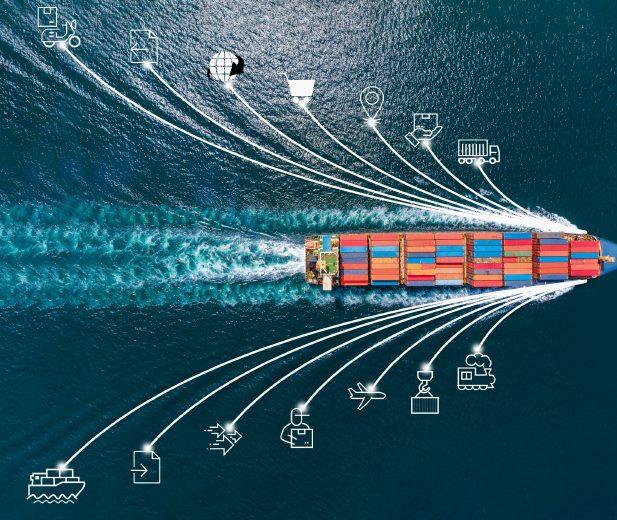
Since customs administrations around the world, including those in developing countries, process a large volume of data, the WCO secretariat is working relentlessly to persuade all customs leaders to mobilise their data, not only to help them fulfil their own missions in terms of combating fraud, conducting effective risk-based controls and fighting corruption, but also to enable customs
to assist governments in making better informed decisions.
Against this backdrop, in June 2022 the WCO Council, representing the organisation’s 184 member administrations, adopted the WCO Data Strategy. It is built on three pillars: data sharing, building communities of practice and providing technical assistance to members transitioning to a data-driven administration.
The strategy is aimed at involving more customs administrations in standardising and sharing data, focusing on statistical data and also more broadly on transaction-level data. Technologies, data spaces and privacypreserving technologies offer solutions
that will allow data sharing to evolve while meeting the requirements for protecting personal data. Even though the role of trade and tax statistics was already highlighted by the 2008 global financial crisis, the need to improve the availability and quality of customs statistics has received little attention. Today, with technology enabling greater access to data and with the development of data science, governments have a better understanding of how to use customs transaction-level data. In comparison with other public actors that provide governments with financial and fiscal data, customs also collects information on economic transactions in real time and is able to provide near real-time analysis of an economic situation, which is a particularly valuable asset in times of crisis.
These solutions are being explored with WCO members, business and academia to ensure the enhanced use of data at operational levels to boost customs efficiency and improve the quality of services offered. Customs will be better equipped to advise governments if it possesses more accurate, better quality and more timely data, and will become more transparent through an open data policy, with public data usable by the private sector.
Recognising that it is essential to harmonise and standardise the exchange of information between customs and international trade stakeholders, the WCO also advocates the use of its Data Model (see datamodel.wcoomd.org). As an international standard, it seeks to increase the supply chain’s efficiency by reducing the redundancy of data requirements and bridging supply chain fragmentation.
Although cross-border movements of goods and services have been affected by the international measures to contain the spread of Covid-19, the current conflict in Europe and the ensuing sanctions have led to higher commodity prices and inflation, coupled with further disruptions to the supply chain along multiple channels (such as foodstuffs, semiconductors and passenger logistics) that have severely affected global container traffic.
The responses to Covid-19 have accelerated the adoption of digital
technology. Customs administrations have moved ahead more rapidly with digitalisation initiatives already under way. They have also launched new technology projects that strive to eliminate paper and cash in favour of contactless release and clearance of goods. Digital technology has also helped customs cope with the exponential growth of e-commerce. In parallel, the WCO has been researching how the Data Model can be used to ensure timely standardisation of the dataset submitted to customs by e-commerce actors.
A 2021 WCO survey on the use of the latest technologies by customs administrations showed that many WCO members are either exploring or already using blockchain, the Internet of Things, data analytics, artificial intelligence and machine learning. Building on best practices, the WCO will continue to provide assistance to its members aimed at enhancing their capacity to make wider use of digital technologies and data analysis, thereby working towards creating a level playing field among them.

Dr Kunio Mikuriya has been secretary-general of the World Customs Organization since 2009. He provides leadership and executive management for the global customs community, focusing on developing international customs standards to secure and facilitate global trade and safeguard revenue collection, and on delivering capacity building in support of customs reform and modernisation. He previously spent 25 years working for Japan’s Ministry of Finance in senior-level positions.
Twitter @WCO_OMD wcoomd.org
Customs also collects information on economic transactions in real time and is able to provide near real-time analysis of an economic situation, which is a particularly valuable asset in times of crisis”
The G20 under the Indonesian presidency this year represents a historic low thus far for the G20’s work on trade and investment policy. This is quite remarkable, given how little so many other G20 presidencies have accomplished. After G20 trade ministers met on 21–23 September 2022, no ministerial declaration was issued. Two weeks later, a chair’s summary was published (the fallback position when a declaration or communiqué cannot be agreed). It acknowledged that G20 members were divided over whether to discuss geopolitical fissures. The chair’s summary is chock full of statements of intention, but light on specific agreed deliverables.
For sure, expectations were not high. To the extent that Indonesia’s published priorities for its G20 presidency mentioned trade, it was a problem – not as a way of accessing affordable products and tapping into innovation abroad, both of which are critical to supporting
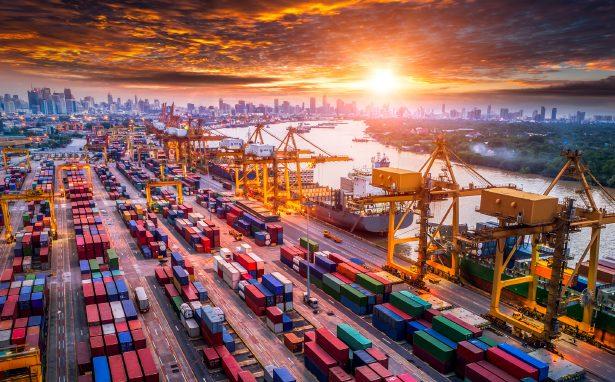
The G20 trade and investment work programme has delivered so little. A new rationale is required to shift expectations and ensure more is achieved
the energy and digital transitions. Furthermore, there was always the (unspoken) concern about Indonesia’s trade policymaking expertise, both technical and diplomatic.
The invasion of Ukraine introduced an acute geopolitical dimension that would have stretched the most adept diplomats and hosts. No doubt some will give Indonesia a pass on these grounds alone. But that is not good enough. The whole point of the G20 is to help find common ground (which is not the same thing as finding common solutions) when the world faces moments of extreme stress, whether the cause be economic, financial, military or zoonotic.
Furthermore, there is a deeper point here. Fundamentally, the current G20 trade machinery moves too slowly when compared to unilateral trade policy intervention. Contrast that with this alternative: after the invasion of Ukraine, G20 members could have put pressure on the European Union to rein in some of its wayward member states that had imposed export curbs on food. To balance this, the G20 could also have encouraged China to show solidarity by removing its 2021 export ban on fertiliser. Ways could have been found to encourage India not to ban the export of certain types of rice, as it recently did.
Another red flag was the transformation during this G20 presidency of the trade and investment ministerial meeting into a meeting of trade, investment and industry ministers. Trade was referred to in terms of its effects on private-sector development (and not always in a good way). As one Indonesian news agency put it (probably accurately), “the G20 members emphasized the role of the multilateral trading system to restore industrial productivity as well as agreeing upon the coherence of trade and investment policies with industrial policies to address future challenges”. This quote highlights another dynamic at work: trade and trade policy are expected to deliver along more and more dimensions. Yet, paradoxically, fewer tangible cooperative steps get agreed at the G20 when expectations of trade’s potential are raised. Somehow the G20’s trade work programme has lost the knack of identifying specific agenda items
on which support for cooperative measures can be built.

Will matters improve under the Indian G20 presidency in 2023? Initial signs are not encouraging. The work programme being defined by officials of the Ministry of Commerce and Industry is backward looking and plain vanilla. Unless the prime minister’s office in New Delhi gets a grip on the bureaucracy, we are looking at another wasted year of G20 trade diplomacy. What can be done to avoid this undesirable outcome?
First, G20 sherpas and sous-sherpas should reflect on why the G20 trade and investment track is currently yielding so little. Are they really convinced that more could not be achieved? There are of course growing geopolitical rivalries, but that is all the more reason to nurture a forum where the trading powers can exchange views in a non-negotiating setting. Related questions include: Is
the current low-frequency consultative process best suited for tackling first order challenges? Or should different modalities for cooperation be found?
Second, given the nugatory impact that G20 initiatives have had on the propensity of its members to raise trade barriers, then perhaps the focus should move away from discouraging protectionism in the short term. Instead, the focus could be on developing common understandings on emerging areas of trade and investment policy, such as those associated with the energy transition and digital transformation of our societies.
International institutions that retain their relevance inevitably pivot from time to time. The G20 trade track was created to ensure the global financial crisis did not result in 1930s-style protectionism. That rationale has delivered so little. A new rationale is needed.
SIMON J EVENETT

Simon J Evenett is a professor of international trade and economic development at the University of St Gallen, Switzerland. He is also the founder of the St Gallen Endowment for Prosperity Through Trade, the institutional home of the independent Global Trade Alert and Digital Policy Alert.
Twitter @SimonEvenett
globaltradealert.org
Somehow the G20’s trade work programme has lost the knack of identifying specific agenda items on which support for cooperative measures can be built”
The G20 can contribute to the reform of the World Trade Organization by investing political capital – a move which would strengthen the trading system that its members rely on
Jeffrey Schott, Peterson Institute for International EconomicsEconomic interdependence was a guiding goal of the world trading rules developed in the immediate aftermath of World War II. Access to developed markets, opened incrementally through multilateral trade negotiations, spurred trade and investment that contributed to economic development in both rich and poor countries. Germany and Japan recovered from wartime devastation of their own making; Korea went from an impoverished country to an economic powerhouse; and China and Russia joined the World Trade Organization. In less than two decades, China became the world’s leading exporter and Russia became a top global supplier of oil and gas.
But what happens when economic interdependence creates overdependence on specific markets for critical raw materials, food and industrial components? What happens when major powers disregard the trading rules designed to safeguard the benefits of interdependence and restrict trade and investment for bogus security reasons?
Over the past decade, examples abound of major economies ignoring their WTO obligations or invoking frivolous security claims to justify protectionist measures. Trade has been weaponised, deploying import barriers, financial sanctions and export controls, and consumer boycotts

as tools of political coercion to counter military aggression, deter foreign investment and punish foreign criticism of domestic policies. Subsidies and local content requirements have become core components of national industrial policies designed to discriminate against strategic competitors and promote investment in domestic industry (including reshoring of foreign plants). Countries imposing such measures seem to have given short shrift to the risk those policies pose to the global trade and financial system and their own long-run economic welfare.
The WTO rulebook, largely unchanged from the 1990s, needs to be updated and augmented to address these new challenges. But if the modest results of the recent ministerial meeting are any indication, WTO members are unlikely to bridge their differences in multilateral negotiations in areas such as subsidies provided to farmers or state-owned enterprises, trade-related climate measures needed to implement decarbonisation commitments, or data access and localisation rules to govern the burgeoning digital economy. Crafting new WTO rules is further complicated by the continuing impasse over reform of the WTO’s dispute settlement process – as long as the Appellate Body remains disabled, any country can postpone indefinitely rulings against its practices by simply appealing panel decisions into the void (because rulings cannot be finalised until the appellate process is concluded). Dispute settlement reform needs to proceed apace with new rulemaking. Why negotiate new rules when multilateral enforcement of existing obligations is uncertain? Unfortunately, the major trading nations that want new trading rules (such as to constrain state-owned enterprise subsidies) seem reluctant to compromise on dispute settlement reform, and vice versa. Moreover, major trading nations increasingly act outside of WTO norms, by either ignoring WTO requirements altogether or invoking exemptions for measures applied for self-justified national security interests. Countries would never cede the right to contravene international obligations when interventions are needed to address national emergencies. But the perceived cost of abusing or neglecting WTO rules no longer weighs heavily in the trade policy considerations of major trading nations.
To confront these fundamental challenges, the major G20 powers will probably do little, focusing instead on regional or plurilateral initiatives. To be sure, such arrangements can promote needed economic reforms and the development of next-generation trading rules. But with limited application to non-member countries, including the world’s least developed and small and vulnerable states – that discrimination is avoided when the reforms and rulemaking are advanced through WTO negotiations.
For the G20 to play a constructive role in strengthening the trading system, the middle powers that comprise more than half its membership should together insist that the United States, China and Europe work with them to advance multilateral solutions to subsidies, climate, digital trade and dispute settlement challenges. G20 middle powers need to remember that they represent vital interests of the developing world in an equitable, well-functioning rules-based trading system.
The most immediate need is to agree on concrete steps to renovate the WTO.
The G20 should call for – and unilaterally commit to implement for three years – moratoria on new carbon border adjustments as well as extend the current ban on e-commerce levies

Jeffrey Schott is a senior fellow on international trade policy and economic sanctions at the Peterson Institute for International Economics. He has taught at Princeton and Georgetown universities, and was a senior associate at the Carnegie Endowment for International Peace. He was an official of the US Treasury Department (1974–1982) in international trade and energy policy, and participated in the Tokyo Round of multilateral trade negotiations. He was also a member of the State Department’s Advisory Committee on International Economic Policy and co-chaired the Trade and Environment Policy Advisory Committee for the US Trade Representative. piie.com
to allow time to negotiate substantive, multilateral rules to govern these practices. The climate moratorium would coincide with the transition period before the imposition of import levies under the European scheme, setting a consequential deadline for completing WTO talks. Extending the e-commerce policy would enable negotiators to bring current WTO talks to fruition.
G20 members also should commit to negotiating tighter subsidy rules and reconstituting the two-step dispute settlement process. Focusing initially on specific measures would build momentum for more comprehensive reforms. Limiting government support to new low-carbon steel production plants, for example, with obligations to share advanced production technologies with developing countries would promote both economic growth and global decarbonisation. It would also mitigate a major source of trade disputes that led to disabling the WTO appellate body and hopefully spur talks on a more equitable, efficient dispute resolution process.
Such concrete action would signal that the G20 is willing to invest political capital in achieving WTO reform, removing key obstacles to WTO negotiations in 2023. With the major powers distracted by bilateral disputes among themselves, the other G20 members need to grasp the leadership mantle and spur reforms that strengthen the trading system from which they benefit so much.

 , secretary-general, United Nations World Tourism Organization
, secretary-general, United Nations World Tourism Organization
‘Recover together, recover stronger’ – the theme of Indonesia’s G20 presidency, could not be timelier or more relevant. The Covid-19 pandemic hit our societies and our economies hard. Still coping with a historic health crisis, we now face multiple challenges, including heightened insecurity and war, as well as
the mounting cost of living crisis, fuelled by rising interest rates and prices of energy and consumer goods. It is vital we not only kickstart recovery, but we do that so in responsible ways, ensuring nobody is left behind and that the steps we do take make a lasting difference.
Tourism can – and indeed must – play a key role in turning ‘recover together, recover stronger’ into action. To be sure, ours was among the worst affected of all
With innovative thinking, tourism can help get the world’s economies back on track – and help us to recover together, recover stronger
major economic sectors over the past two years. In 2020, the number of international tourists slumped down to levels last seen 30 years ago. G20 economies saw their tourism gross domestic product cut by half. And in two years, the world lost almost $4 trillion in direct tourism GDP and around 50 million tourism jobs.
However, the worst looks to be over. Tourism is restarting in many parts of the world. The United Nations World Tourism Organization’s data show that international arrival numbers for the first seven months of 2022 were three times higher than they were for 2021. That means our sector has now recovered almost 60% of pre-pandemic levels. In many G20 economies, it is well above that, even if new uncertainties threaten to affect consumer behaviour and hinder tourism’s recovery.
But while we have reason to be optimistic, we do not have cause to be complacent. As a global community, we are falling behind in our efforts to reach the climate action goals of the Paris Agreement. We are also behind in progress towards almost every single Sustainable Development Goal, most notably the vital goal of achieving gender equality and reducing poverty. Again, tourism can help get us back on track – only if we acknowledge that we cannot simply revert to pre-pandemic models. If our sector is to realise its unique potential to deliver positive change, we must speed up and we must scale up.
A few weeks before the G20 leaders meet in Bali, I was also in Indonesia, meeting with the G20 tourism ministers and celebrating World Tourism Day. On this occasion, UNWTO released a set of guidelines to the G20 Tourism Working Group, designed to support the world’s biggest economies make the most out of a revitalised tourism sector. The guidelines are built on recognising that people – that is, communities, entrepreneurs and small enterprises – are the foundation of tourism and need to be empowered to make a difference.
Small businesses make up around 80% of our sector. In some places, including small island developing states and tourism-dependent destinations such as Bali, this percentage can be even higher. They are best placed to deliver positive change, for example increasing sustainability or providing opportunities to youth, women or rural communities. But to do so, they must be able to rely on an adequate policy framework. Rethinking financing for small tourism businesses, supporting small enterprises in embracing the digital transformation of tourism, boosting connectivity outside big cities, and providing incentives to boost growth and competitiveness will all help strengthen the broad base of the huge tourism pyramid and build greater resilience for the future.
‘Recovering together’ works towards greater empowerment of women and the inclusion of local communities. And we need to empower through jobs, education and training. In recent months,
lost in direct tourism GDP due to the Covid-19 pandemic
50m
$4trn jobs lost during this period
80%
we have seen tourism’s restart affected by shortages of key workers – in the European Union, for example, the number of people employed in the air transport sector has been at its lowest level for 14 years. We need to make tourism jobs more attractive, with better conditions, more opportunities for development and greater security. Better tourism education provides skills for life, beyond the sector itself.
In this regard, and in many other areas, to really transform our sector, we need to promote a whole-of-government approach based on national and national-local coordination, as well as on public-private partnerships and community empowerment. The G20 economies can and should lead this change. In the post-pandemic world, G20 members account for almost 80% of global tourism GDP and are home to a massive proportion of the global tourism workforce. Where the G20 leads, the rest of the world follows. Back tourism to get us back on track.
Zurab Pololikashvili has been secretarygeneral of the World Tourism Organization since 2018. He was previously Georgia’s ambassador to Spain, Andorra, Algeria and Morocco and its permanent representative to the UNWTO up to December 2017. He has also served as Georgia’s minister of economic development and deputy foreign minister, among other posts, and has a background in the private sector in the financial and business sectors.
Twitter @pololikashvili unwto.org
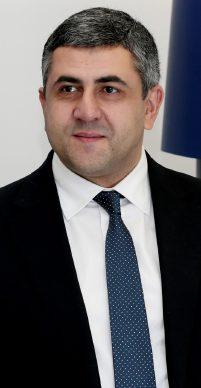
of the sector is small businesses
Demand for air travel continues unabated, requiring rapid industry innovation. On this, SAUDIA is leading the charge, with carbon-positive flights and onboard sustainability measures

due to the overall global ‘pause’ enabled many organisations to amplify their initiatives. The SAUDIA Group was no exception.
The post-Covid era abounds with opportunity. Whichever sector, in every quadrant of the globe, the new dawn has brought with it a blunt ‘innovate or let the world pass you by’ reality. The challenges had to be confronted head-on, and as a result what we have witnessed across many industries is sheer tenacity.
While the pandemic posed insurmountable challenges, it has also brought with it a great pivot and, in tandem, an accelerated sustainability focus. This is not a causal effect, as sustainability practices were already being implemented, however the gap in operations
A multi-pronged approach to resuming services and growing the business exponentially and sustainably has been the focus. Sustainable tourism, a key tenet of Vision 2030, is on the rise and by 2030, 15% of Saudi Arabia’s gross domestic product will come from tourism, making it a hub for exploration, wellness and cultural immersion. As the national flag carrier, SAUDIA has a vital role in enabling green travel.
A full-scale review was conducted to assess what we can do to contribute to the global recovery efforts to return stronger, agile as ever. Resoundingly clear was that
With nearly 20 years of experience across a variety of business sectors, Ibrahim Abdulrahman Al-Omar currently holds the position of director-general of SAUDIA, the national airline of Saudi Arabia. Prior to his appointment, Al-Omar held several prestigious chair and executive roles in the region at esteemed companies such as SAIGA and Saudi Telecom Company.
Twitter @SaudiAirlinesEn @Saudi_Airlines @ SVmedia_center saudia.com

the time is now to go full steam ahead in terms of readiness to account for a surge in global demand.
For SAUDIA Group, and peers in the airline industry, we have returned to pre-Covid travel numbers and have seen a surge in demand ahead of forecasted levels, further cementing the need to ensure every facet of the operation is digitalised and environmentally sustainable. Through incremental steps, we are collectively making a mark, together.

Whether it is through aircraft line maintenance, onboard product and cuisine, airline ticketing and sales – which is virtually all cloud and web based – or SAUDIA’s role as the official airline partner of the all-electric ABB FIA Formula E motorsport series, it’s clear that momentum is unstoppable. Being recognised by the SkyTeam airline alliance for ‘best customer engagement’ for our innovative inflight lab in partnership with SimpliFlying as part of the Sustainable Flight Challenge was a humble highlight and an instrumental step in our net-zero journey. In addition to

‘best customer engagement’, SAUDIA also won ‘best employee engagement’. We were also a finalist in a further three categories: great CO2 reduction medium haul, lowest CO2 emissions ground handling and best sustainable innovation (in-flight).

Leveraging partnerships is essential and in coordination with Airbus, Boeing, GE, CFM and Carbon Click among others, various initiatives are under way to ensure the maintenance of the aircraft fleet is managed with sustainable products and methods. This year in May, SAUDIA flew the world’s longest carbon-positive flight in the world on record yet, and is piloting several major cities worldwide, in which we have flown carbon net-positive flights.
In conjunction with the airline being among the first signatories to the Saudi government’s Voluntary Carbon Market – the first of its kind in the Middle East North Africa Region – aviation in Saudi Arabia is taking a solid stance on reducing its carbon footprint by offsetting emissions.
From low-carbon aviation fuel to vertical farming, we are endeavouring to do all that we can to make our aviation ecosystem greener than ever. Our latest venture is lowering ‘food miles’ by replacing food imports through our partnership with Red Sea Farms, a Saudi AgTech company, to provide airline meals with sustainable, local-sourced products.
We are also pleased to announce our participation in the Voluntary Carbon Market, which connects the supply of carbon credits with demand from investors, corporates and institutions wanting to reduce their carbon footprint.
The Kingdom’s Vision 2030 will see 100 million visits to Saudi Arabia by the end of the decade. A cornerstone of that vision is for the Kingdom to be a leader in sustainable, eco-friendly travel and tourism.

In May, SAUDIA flew the world’s longest carbon-positive flight in the world on record yet, and is piloting several major cities worldwide, in which we have flown carbon net-positive flights”
Air transport connections remain economically critical, and the industry’s commitment to net zero emissions make it fit for purpose in a post-pandemic, climate-challenged world
 Juan Carlos Salazar, secretary-general, International Civil Aviation Organization
Juan Carlos Salazar, secretary-general, International Civil Aviation Organization
Over half of all tourists who travel internationally arrive at their destinations by air, underscoring the critical role played by air transport connections in supporting the many economic benefits that international tourism generates for businesses large and small. This economic activity is especially critical for the overall prosperity
and sustainability of least developed countries, small island developing states and landlocked developing countries, but in a world of increasingly complex supply chains and international tourism flows, it has become essential for all countries everywhere.
Since the adoption of the United Nations’ 2030 Agenda for Sustainable Development, the International Civil Aviation Organization has been illustrating how international air connectivity serves as a key enabler for 15 of the 17 Sustainable Development Goals.
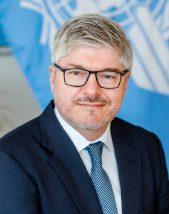
These positive impacts are realised due in part to air transport’s diverse contributions to the rapid global transport of food and medical supplies, and its education and career paths related to science, technology, engineering and mathematics for young women and men in all world regions.
They are also being achieved in light of aviation’s many direct and indirect influences on infrastructure modernisation, and on the ability of national and municipal governments to achieve more resilient tax bases and investments in sustainable development.
A key priority for after the Covid-19 pandemic, as governments and industry continue working together to reconnect the world and its travellers and businesses, is to reduce air transport emissions, even as the global network recovers the many flights and routes that were lost to Covid-19.
Countries have made important progress on this topic through ICAO, and states adopted a net zero 2050 long-term climate goal for international aviation at ICAO’s 41st assembly this September.
Currently countries are discussing agreement on a global long-term aspirational goal, but it is my personal hope that they will go as far as the world now requires and agree that net zero 2050 should be a concrete commitment, just as the aviation industry has now
+50%
of international tourists travel by air
collectively agreed to. G20 members could play an important leadership role in making this diplomatic objective a reality.
The themes of ICAO’s assembly were innovation and resilience, with a strong thread of sustainability informing each. This speaks to how the incredible advances in aeronautics, renewable energy and propulsion, and digital processes and communications have the capacity to transform our global network significantly, and to make it far better fit for purpose for a post-pandemic and climate-challenged world.
The electrification of smaller aircraft and fleets is already under way, and recent advances in lithium-air battery energy density of up to 500 watt hours per kilogramme are highly promising in terms of making electric propulsion a reality for larger commercial aircraft.
ICAO organises special ‘stocktaking’ events where countries can stay abreast
of these types of developments, and we are working at every level in the organisation today to assure that countries and experts can assess the latest innovations and standardise them for global deployment far more efficiently than was previously the case.
Additional and complementary innovations have also arisen in the areas of digital traveller identification and health documentation, with ICAO-related developments such as its Visible Digital Seal technology and Health Master List making important recent contributions. This is part of an overall digital transformation of the passenger experience, with key implications for how travellers will be screened in the future for both health and security purposes. ICAO has been proud to support the related efforts of the G20 Health Working Group throughout 2022, bringing our technical tools, know-how and experience to the forefront of the international conversation on safe and expedited international travel.
G20 members play an important role today in driving global progress in a diverse range of areas, whether through their leadership, subsidies and commitments, or their key investments in developing countries. In aviation today, this leadership is needed more than ever to realise a sustainable future for tourism and trade.
ICAO therefore was pleased to welcome G20 leadership at our assembly this year, and to welcome the solutions determined there that will let all countries, peoples and businesses continue to benefit and prosper from being better connected by air.
Juan Carlos Salazar was appointed for a three-year term as the secretary-general of the International Civil Aviation Organization in 2021. His career spans more than 27 years in various civil aviation advisory and leadership roles, including director-general of Aeronautica Civil of Colombia, president of the Latin American Civil Aviation Commission and a senior adviser to the United Arab Emirates General Civil Aviation Authority. He holds master’s degrees in public administration and air and space law from Harvard and McGill universities, respectively.
Recent advances in lithium-air battery energy density of up to 500 watt hours per kilogramme are highly promising in terms of making electric propulsion a reality for larger commercial aircraft”JUAN CARLOS SALAZAR
Bali is the perfect setting to discuss how tourism can be a pioneer in our interdependent, interconnected world, demonstrating how countries can – and must – act together to build resilience in the face of global crises
 Julia Simpson, president and CEO, World Travel and Tourism Council
Julia Simpson, president and CEO, World Travel and Tourism Council
“If only one person were perfectly informed”, wrote historian Robert Skidelsky, “there could never be a general crisis.” Yet on the brink of emergency, even the most agile governments must work with imperfect, fragmented information. New diseases, economic disasters and environmental collapse all demand rapid cooperation to find the best response. And it takes all of us –governments, international bodies and the private sector – to help make our systems more resilient to future shocks.
This is particularly true in global travel and tourism. Working across borders, our sector is
uniquely vulnerable to international crises, and is disproportionately affected when global coordination fails. In 2020, the pandemic brought us to an almost complete standstill, causing a massive 50.4% drop in economic activity, and a loss of almost $4.9 trillion. This huge social and economic disruption cost millions of jobs and livelihoods; its echo reverberated around the world.
In these moments of chaos, the voice of industry is vital. The World Travel and Tourism Council is the international advocate for our sector, proudly representing more than 200 global businesses. Together, we create over 10% of the world’s gross domestic product and more than 333 million jobs. And as we reflect on the crises we have suffered in recent years, our message to the G20 is simple: the age of isolation is over. Our modern world is too interdependent – too interconnected – for countries to act alone in moments of global crisis. We call on the G20 governments not to look inward,
but to respond as global leaders and coordinate global solutions.
GREEN SHOOTS OF RECOVERY
JULIA SIMPSON

Twitter @WTTC wttc.org
50%
drop in economic activity caused by Covid-19 – a loss of almost $4.9trn
+10%
More than half of global travel and tourism is driven by the desire to explore our natural world: its vast deserts, sweltering rainforests and rich diversity of wildlife”

Alongside the health of our people, we must also secure the health of our planet. Our sector is intrinsically linked to biodiversity and nature. More than half of global travel and tourism is driven by the desire to explore our natural world: its vast deserts, sweltering rainforests and rich diversity of wildlife. Last year, the WTTC produced the first ever sector-wide net zero roadmap for travel and tourism. In April 2022, we launched our ‘Hotel Sustainability Basics’ – a globally coordinated set of actions that hotels can take at the start of their sustainability journey. And now, as we approach the United Nations’ next biodiversity conference, the WTTC is launching a new report: Nature Positive Travel and Tourism. This landmark agenda is the first of its kind in the sector, bringing together businesses, policymakers, climate scientists and biodiversity experts.
Looking ahead, we want to see coordinated action from global leaders, including the G20. Our sector cannot halt the climate crisis alone. All of us are critical. And Bali is the perfect setting for this discussion: its coastlines are famous the world over as a global tourism destination; yet they are uniquely exposed to the effects of rising global temperatures.
At times, the Covid-19 pandemic and the climate crisis can feel like two separate, even conflicting challenges. Yet look a little closer, and they reveal a lot about the nature of modern crises. Both are global in scale. Both disproportionately affect the poorest in our society. And both demand urgent, coordinated action to protect our health and prosperity – locally, nationally and internationally. In the modern era, the challenges we face are no longer confined to a single country. They stretch across borders. The war in Ukraine is already exposing weaknesses in our energy and financial systems. And as we look to the future, we must be more resilient. Alone, none of us can be perfectly informed. It is only through collaboration –true partnership – that we will thrive.
One of the most valuable lessons I’ve learned over the course of my five decades in the hospitality industry is that there is great truth in the old saying, “In the aftermath of a crisis, there is always opportunity.”
By now, the whole world understands that the global tourism industry was
among those hit hardest by the Covid-19 pandemic. Now that most of the world is able to travel once again, opportunity has returned.
To seize it, it’s crucial that as an industry and society we come together like never before not only to maximise our collective recovery and to facilitate growth, but also to act decisively to safeguard the future of tourism.
The best way we can do that is through the creation of an industry that we can truly feel proud to be a part of: an international body of people that is sincerely mindful, committed to the environment and to the communities of which we are a part, and protecting, preserving, and celebrating our global heritage and unique cultural identity for future generations.
Most crucially, we must protect the heritage entrusted to us so that it can be passed on to future generations – it is imperative to our collective human relationship.
I believe strongly in the ability of the tourism industry to transport people not only physically, but spiritually, bringing to life the story of our common humanity by unlocking the secrets of our past through places of great cultural and historic significance.
According to the Organisation for Economic Co-operation and Development, there is a huge and growing appetite for trips that are built around visiting culturally important attractions.
Although it is wonderful to see so many people connecting with the past in this
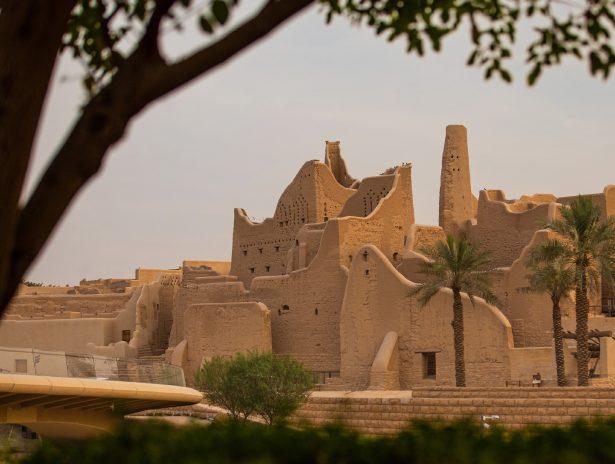
the preservation of our pastDiriyah

Inzerillo is a globally celebrated Forbes-cover visionary in the hospitality and tourism industry, with a deep aptitude for positioning strategies and iconic developments. Over the course of his five-decade career in the industry, he has been a champion for the sector and its people, and the creative and logistical mind behind some of the world’s most innovative luxury brand activations and spectacular development launches.
way, it is also true that increased footfall brings with it particular dangers.
This is unsurprising. The architects responsible for creating humankind’s most precious cultural sites – for example, the Pyramids, the Great Wall of China, Acropolis or Colosseum – could hardly have predicted the advent of airplanes and cruise ships, or the miracle of capitalism that created sufficient income for people to make several holidays a year.
The result in many of humankind’s most precious cultural sites has been worrying degradation, not just through the sheer weight of numbers moving through spaces not designed for so many people – over-tourism, in other words – but also through wilful damage such as graffiti and other forms of vandalism.
It’s imperative as an industry that we act now to reverse this trend and preserve the planet’s great cultural heritage sites. But how?
The answer is greater collaboration. We must come together as an industry, removing barriers across sectors, geographies, people, communities and governments.
I always give the example of the magnificent Angkor Wat temple in Cambodia, where a brilliant campaign to raise awareness of the damage being caused by over-tourism – which focused attention on the issue – was combined with initiatives to work with policymakers to create practical solutions.
As a result, today Angkor Wat is in better condition than it has been for decades.

Today, the Diriyah Gate Development Authority will welcome millions of international visitors annually to some of Saudi Arabia’s – and humankind’s –most precious cultural heritage sites. In fact, this year our UNESCO World Heritage site, At-Turaif, will open permanently to the world for the very first time. This is a hugely significant moment for Diriyah and Saudi Arabia: At-Turaif sits at the cultural heart of the mud-brick city, the home of the Al Saud, the birthplace of the kingdom and site of the first Saudi Arabian state in 1727.
As we go about opening the treasure of Diriyah to the world, we are guided by the principle of ensuring the highest international standards of preservation and conservation.
We have invested in technology, deploying seismic instrumentation to ensure that the vibrations caused by the excavation of over 7 million cubic metres
of earth did not affect the structural integrity of our historical buildings.
Alongside this, we are utilising state-of-the-art construction technologies across the development, as well as fully incorporating digital infrastructure into our processes to maximise efficiency.
Deeply embedded within our team are our beloved Saudi tour guides, who have the important role of bringing to life the story of how the first Saudi state was born, as well as introducing visitors to Diriyah’s role in defining the kingdom’s culture and history. Who better to tell the history of Diriyah and pass along and protect its remarkable heritage than our own people?
Our training programmes, led by our community engagement team, are tasked with engaging members of our local community, both young and old, to be part of a group of Saudi ambassadors proud of their heritage and history.

We are hugely proud of the practices DGDA is undertaking now to protect these sites for future generations. It is my sincere belief that unless our industry unifies globally to preserve all cultural heritage sites, we will not have fully maximised the opportunity we have to imagine our shared future.
We must act now to raise awareness, to lobby for appropriate legislation and to find workable solutions. Together, it is a challenge we can overcome and I am confident we will overcome it.
Tourism is a powerful force for good in the world, and it’s vital we now channel that good for the benefit of more people than ever before.
Only one humanity, only one Diriyah!
We must protect the heritage entrusted to us so that it can be passed on to future generations”Gerard “Jerry” Twitter @DGDA_SA diriyah.sa
 Harold Goodwin, Responsible Tourism Partnership
Harold Goodwin, Responsible Tourism Partnership
For destination governments, both national and subnational, the question to ask is whether you want to use tourism for sustainable development, or to be used by it.
Thirty years after the United Nations Conference on the Environment and Development in Rio in 1992, there is still mounting concern that we are not achieving sustainability quickly enough. The Cape Town Declaration on Responsible Tourism in Destinations, launched at the World Summit on Sustainable Development in 2002 to encourage businesses, destination governments and tourists to take responsibility, was intended to make tourism more sustainable and inclusive. South Africa was the first to include responsible tourism in its post-apartheid national tourism policy in 1996. As we have seen in the annual awards, businesses from homestays to major hotel groups are increasingly taking responsibility to make tourism better and using tourism to make “better places for people to live in” – and better places to live in are great places to visit. Surveys by Expedia and Booking.com have demonstrated that travellers want to travel more sustainably and struggle to find sustainable travel options.
Domestic and international tourism can provide significant economic benefits for local communities in rural and urban areas. The pro-poor tourism work pioneered 20 years ago demonstrated how tourism can create additional livelihoods for people who are economically poor and marginalised. Economically poor but often culturally rich local communities offer opportunities for positive encounters for those seeking different experiences.
In the Responsible Tourism Awards, presented each year since 2004, we see many cases of businesses,
communities and non-governmental organisations improving tourists’ experiences and co-creating memories. This contributes to viral marketing and, more importantly, provides additional livelihoods that enrich local communities. It is the lived culture of these communities that attracts the interest and appreciation of the domestic and international tourists in their music, dance, craft, art, food, religion and way of life. Their everyday life is the tourist’s adventure.
India is currently the world’s leading destination for responsible tourism. First Kerala and then Madhya Pradesh adopted the principles of responsible tourism and adapted them to address local issues in order to make tourism better and ensure that economically poor and marginalised local communities benefit from tourism, creating additional livelihoods and a sense of pride in their culture and helping stem the flow of young people leaving the communities where they were born.
In Kerala the Responsible Tourism Mission has demonstrated what can be achieved when all levels of government, from state to village panchayat, work together with businesses and empower local communities to shape their tourism to meet the experiential interests of tourists, developing meaningful connections that ensure respect between host and guest, and managing negative impacts to keep them to a very low level. Tourism provides additional livelihood incomes, at the household level. Madhya Pradesh has built on Kerala’s experience and is developing homestays, rural tourism, responsible souvenirs, solid and
It is the lived culture of communities that attracts tourists, and better places to live in make great places to visit for those seeking new experiencesTOURISM: A GROWTH DRIVER
Harold Goodwin has worked on four continents with local communities, their governments, and the inbound and outbound tourism industry to realise the ambition of using tourism to make better places for people to live in and to visit, balancing competitive advantage, growth and sustainability. He chairs the juries for the World Responsible Tourism Awards. He retired in 2016 from Manchester Metropolitan University, where he remains an emeritus professor.
Twitter @NewsRTP haroldgoodwin.info

liquid waste management, access for people who are differently abled and skills training, and making destinations safer for women. Sarawk, too, has adopted responsible tourism as its tourism strategy to 2030.
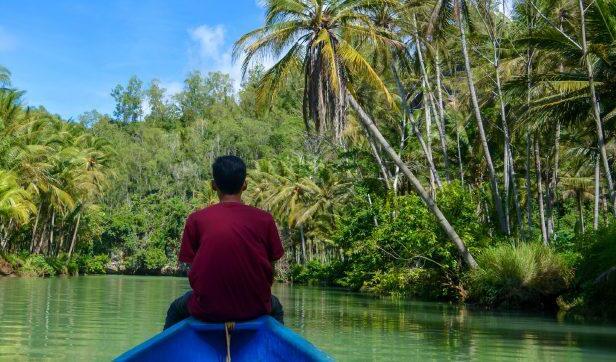
There is also a responsible tourism trend emerging in Indonesia, responding to the growth in demand for sustainable experiential travel and tourists seeking meaningful engagement with local communities. Tourism can make a major contribution to achieving the United Nations Sustainable Development Goals, with governments, businesses and communities working together to extend lengths of stay and create environments where tourists enjoy, and pay for, local cuisine, storytelling, performances of music and dance, and purchase crafts and responsibly produced souvenirs.
I have had the privilege to travel extensively in the Global South as a tour leader, consultant and academic. Responsible tourism has emerged as a way of creating better places for people to live in and for people to visit. I have learnt from engaging with communities to develop tourism that meets their needs and the aspirations of tourists, and shared that experience and gained more through the responsible tourism movement. So much more could be achieved if South–South exchange was funded and those with experience in Kerala and Madhya Pradesh could engage with those in Indonesia, and elsewhere in the Global South, to develop similar approaches to achieving sustainable development through tourism.

Los Cabos in 2012 and 27% at St Petersburg in 2013. At Brisbane in 2014, it fell to 22% and to 16% at Antalya in 2015. At Hangzhou in 2016, it jumped to 25%, but then dropped to 17% for Hamburg in 2017 and Buenos Aires in 2018, jumped to 40% for Osaka in 2019, dipped to 33% at Riyadh in 2020, then dropped to 26% at Rome in 2021.
In preparing the development agenda for 2022, the G20 started off strong at the first Development Working Group meeting in February by setting four priorities: recovery from the Covid-19 pandemic, private financing for sustainable development, multilateralism and progress on the Sustainable Development Goals. To ensure success at Bali in November, G20 leaders must make fewer, more focused commitments that are in line with these priorities.
Since 2008, the G20 has dedicated an average of 25% of its communiqués to development. The first summit in 2008 dedicated 18% of its words to development. In 2009 London devoted 28% to development and Pittsburgh devoted 25%. This figure rose in 2010, with 35% at Toronto and 58% at Seoul. At Cannes in 2011, only 18% of the text was on development. This rose to 32% at
Of the total of 3,017 commitments made by G20 leaders up to 2021, 10% (320) have been on development. This is the second highest subject, after macroeconomic policy but before financial regulation. The development agenda started small, with four (4%) commitments at Washington in 2008, but increased in 2009 to 15 (12%) at London before decreasing to nine (7%) at Pittsburgh and eight (13%) at the 2010 Toronto Summit. The 2010 Seoul Summit made 22 (14%) development commitments, followed by seven (6%) in 2011, 10 (6%) in 2012, then spiked to 50 (18%) at St Petersburg in 2013. At Brisbane in 2014, G20 leaders made 20 (10%) development commitments, then 33 (21%) at the 2015 Antalya Summit, and 18 (8%) at the 2016 Hangzhou Summit. Hamburg in 2017 had an all-time high of 71 (14%), followed by an all-time low of four (3%) at Buenos Aires in 2018. They rose to 24 (17%) at Osaka in 2019, fell again to seven (7%) at the 2020 Riyadh Summit and rose again to 18 (8%) at Rome in 2021.
Compliance with the 54 development commitments assessed by the G20 Research Group averaged 67%. This is below the G20’s overall average across all
The G20 has a strong development agenda, but to achieve its goals the group must focus on quality, not quantity
subjects of 71%.
Compliance started strong with 90% from Washington in 2008, plummeted to 58% from London in 2009 and 63% from Pittsburgh in 2009, then rose a little to 68% from Toronto, 65% from Seoul in 2010 and 67% from Cannes in 2011. It jumped to 89% from Los Cabos in 2012, plunged to an all-time low of 52% from St Petersburg in 2013, rose to 64% each from Brisbane in 2014 and Antalya in 2015, soared to an all-time high of 93% from Hangzhou in 2016, and declined to 79% from Hamburg in 2017 and further to 73% from Buenos Aires in 2018. Osaka’s 2019 summit returned to a high level of 90% and Riyadh’s in 2020 had 83%. By June 2022, compliance with the 2021 Rome Summit’s development commitments averaged 93%.
Compliance from 2008 to 2020 was led by the United Kingdom at 87%, Germany at 86% and the European Union at 84%. Argentina was last at 44%. Indonesia sits at 54%.

Fewer development conclusions and commitments come with higher compliance. The eight summits with the highest compliance, averaging 83%, dedicated 22% of their commitments
Sonja Dobson is pursuing a PhD in peace and conflict studies at the National Centre for Peace and Conflict Studies at the University of Otago. She holds a master’s degree in conflict studies and human rights from Utrecht University and a bachelor of arts and science in African studies and political science from the University of Toronto. Sonja has worked with the G20, G7 and BRICS Research Groups since 2015, currently serving as co-chair of summit studies for the G20 Research Group. She is also the lead researcher on development for the G7 Research Group.

to development and averaged nine per summit. The seven summits with the lowest compliance, averaging 62%, had 28% on development and averaged 12 commitments per summit.
Commitments that reference the SDGs averaged 80% compliance, but those without have only 66%. Commitments referencing Africa averaged 49% compliance versus 69% for those that did not.
Quantitative timetables and targets seem to lower compliance. Commitments without timetables had 13% higher compliance than those with multi-year timetables and 20% higher compliance than those with a one-year timetable. Commitments without targets had 12% higher compliance than those with targets.
When development was linked specifically to other subjects, compliance averaged 68%, compared to 65% for the siloed development-only commitments.
The priorities set at the Development Working Group’s first meeting under Indonesia’s presidency are already aligned with commitments that have higher rates of compliance. For success at Bali G20 leaders should make few commitments on development, but ones that are specific, strong and synergistic with related issues.




As this year began, what progress were we making towards achieving the Sustainable Development Goals by 2030?





This is an extremely challenging moment for the Sustainable Development Goals. For the first time in 32 years, the Human Development Index, which measures a nation’s health, education and standard of living, has declined globally for two years in a row as multiple crises hit. In the wake of the war in Ukraine, the United Nations Development Programme estimated that 71 million people globally fell into poverty in the space of just three months in 2022 as a cost-of-living crisis took hold. A secondary wave of shocks is now playing out, including rising capital costs and interest rates, and a looming recession. Approximately 80 developing countries are essentially facing debt distress. In many ways, whether they default depends on the G20. We are sliding backwards as a global family of nations, and our ability to recover is far from where we thought we would be.

























The UN secretary-general set up the Global Crisis Response Group, which first focused on food insecurity. Bringing grain back to the market through the Black Sea Grain Initiative has clearly had a stabilising effect. For much of the developing world, public budgets have worsened since Covid-19 while the food, energy and finance crises are taking more money out of pockets that otherwise would go to educating children or buying tomorrow’s meals.
UNDP and our partners are supporting some 80 countries to implement Integrated National Financing Frameworks: helping them to leverage public-private domestic and international finance to manage the short-term crises and invest in the future in key areas such as clean energy and climate action. The unwillingness of the international community to introduce more capital into the financial system when it comes to debt suspension, debt rescheduling or debt-for-climate swaps is deeply frustrating. In this regard, the Bretton Woods system is waiting for the G20 to provide decisive leadership.
Some of the most important ideas are born in the darkest moments, and only visionary leadership can articulate the next generation of international financial and political institutions that the world so sorely needs
Some of the most important ideas are born in the darkest moments. We have more crises and conflicts than at any point since 1945, with more refugees and internally displaced persons than ever before. We have unprecedented reversals in development as well as increased poverty and polarisation against a climate change reality that is playing out in front of our very eyes. We are the first generation now living with the consequences of inaction: hitting countries, communities, economies, the body politic and the international system all at the same time.
The institutional financial and economic framework developed after the Second World War is simply no longer adequate. Yet we are the wealthiest generation ever. People are sitting on money in the financial system and can’t find ways to invest it while societies, communities and nations can’t find money that they can use for their development priorities in line with the SDGs. We have an asymmetry so profound and structural that it is leading to many people questioning how our financial system works.
We need visionary leadership that acknowledges the growing paralysis of the current international financial and political institutions: one that starts articulating the next generation of institutions. There is an urgency like never before. This also applies to the UN, which is why the UN secretarygeneral’s Our Common Agenda report has outlined a new vision for the future of global cooperation and the UN through a more inclusive, networked and effective multilateralism.
There are still people who feel comfortable in a fossil fuel–based economy that they believe is central to their well-being and wealth. Climate change has very little to do with belief. This is a matter of science as the foundation for objective, rational and wise decision-making.
m
people estimated to have fallen into poverty within just three months in 2022
Achim Steiner has been the administrator of the United Nations Development Programme since 2017. He is also the vice-chair of the UN Sustainable Development Group, which unites 40 entities of the UN system that work to support sustainable development. Prior to joining UNDP, he was director of the Oxford Martin School and professorial fellow of Balliol College, University of Oxford. Mr Steiner led the UN Environment Programme (2006–2016) and was also director-general of the UN Office at Nairobi. He previously held other notable positions including director general of the International Union for the Conservation of Nature and Secretary-General of the World Commission on Dams.
Twitter @Asteiner undp.org

It is important to frame the responses to climate change as choices that translate into opportunities to transition and transform our economies. In particular, development through decarbonisation must be articulated as an incredible means to break through to a greener, climate-resilient world, realised through the decisions we take at the macroeconomic and microeconomic levels and the household level.
How can the G20 help to get the SDGs back on track?
The G20’s greatest advantage has been to provide a shortcut to rapid actions taken by our financial and economic systems. The G20’s principal responsibility now is to provide a signal to members’ central banks, finance ministers and development ministers to enable financial institutions – where they have disproportionate influence – to inject liquidity and capital, thereby enabling countries to weather the immediate crises while investing in a future-focused transformation of their economies.
In short, there is a pressing need for high-income countries to extend the promised means and partnerships to developing countries to address climate change and decarbonisation as co-investments, helping to change the perception of them from ‘victims’ to nations that have taken bold decisions to secure our collective future.
We are sliding backwards as a global family of nations, and our ability to recover is far from where we thought we would be”
The world is facing an unprecedented food crisis. The Covid-19 pandemic, the climate crisis and ongoing conflicts, including the war in Ukraine, are affecting food systems in multiple ways. Additionally, rising food prices are threatening to drive millions more people into extreme hunger and poverty. Indonesia has thus committed to tackle the food crisis during its G20 presidency by working with partners to find concrete solutions to ensure the supply and affordability of food and fertiliser commodities in global supply chains.
Since 2008, G20 summits have devoted 14,708 words to food and agriculture in their communiqués, for an average of 919 words at each summit. The lowest total of 35 words came at Washington in 2008, taking 1% of the communiqué. The highest of 4,951 words (14%) was at Hamburg in 2017. The annual total and portion declined considerably from 2018 to 2020. At Rome in 2021, the communiqué devoted 743 words to the topic, or 8%.
Food and agriculture became a major topic at G20 summits under Turkish leadership in 2015, German leadership in 2017 and Italian leadership in 2021. The 2015 Antalya
Summit produced a stand-alone document on food and agriculture, emphasising the need to improve food security, nutrition and the sustainability of food systems. At Hamburg in 2017, G20 leaders focused on food security and water sustainability. At the 2021 Rome Summit, the G20 endorsed their ministers’ Matera Declaration, which called on members to increase investments for food security, nutrition and sustainable food systems.
From 2008 to 2021, the G20 made 149 commitments on food and agriculture. The first was made in 2009 at Pittsburgh (for 2% of the total commitments there). In 2010 at Toronto, it made two commitments and at Seoul it made two. At Cannes in 2011, the number spiked to 36, with the G20 committing to support the Action Plan on Food Price Volatility and Agriculture. In 2015, the G20 made 31 food and agriculture commitments and in 2017 it made 22. Between 2018 to 2021, 35 commitments were made (4%–10% per summit with a rising trend).
Compliance with the 12 assessed food and agriculture commitments made between 2010 and 2020 averaged 69%, as assessed by the G20 Research Group. Compliance started at 60% with the commitments made at Toronto in 2010, rose to 78% with

Holding pre-summit agriculture ministers’ meetings and linking food and agriculture commitments to other areas are among the measures that will improve the G20’s performance in this area
the 2011 commitments, then followed with 68% with the 2012 commitments, 90% with the 2013 commitments, 45% with the 2015 commitments and 57% with the 2017 commitments. Compliance rose for 2018 to 84%, but then plunged to only 40% for Riyadh in 2020. By June 2022, compliance was already at 90% for the Rome commitments in 2021.
By member, compliance was led by Canada at 87%, Argentina at 83%, and France and the European Union at 79%. They were followed by Italy, the United Kingdom and Australia at 75%. Brazil, Germany, India and the United
States averaged 71%. Below the 69% average came Russia, Indonesia, Japan and Korea at 58%, China at 54%, Saudi Arabia and Turkey at 50%, and South Africa at 46%.

The five commitments with above-average compliance averaged a very high 88%, and the seven with below-average compliance had a very low 51%.
The one assessed commitment not preceded by a meeting of G20 agriculture ministers (in 2010) averaged 60% and the 11 with such a ministerial meeting averaged
Duja Muhanna is a senior research analyst with the G20 and G7 Research Groups. She joined the G7 Research Group in 2013 and has served as a compliance analyst and lead analyst. She was a member of the field team at the G7 summit in Charlevoix in Canada in 2018. She served as an adviser for the 2020 G20 Saudi Presidency. Duja graduated from the University of Toronto with an honours bachelor of arts in political science and history with a specialisation in international relations. Twitter @DujaMuhanna www.g20.utoronto.ca

67%. This suggests compliance increases when G20 leaders decide to govern food and agriculture with a ministerial meeting. The three commitments dealing with food security averaged 59% compliance. The ones with synergistic links to prices and trade averaged 85%, those linked to malnutrition 90%, and those to information and communication technology 85%. Commitments linked to environmental sustainability had 66% compliance, those linked to water had 58%, and those linked to jobs for women and youth only 45%.
One assessed commitment referred to the core international organisation of the World Food Programme and averaged almost perfect 98% compliance. The four that referred to a G20 partnership, action plan or framework averaged 85%.
To improve compliance with their food and agriculture commitments, G20 leaders should hold more agriculture ministers’ meetings before the summit and make more commitments that refer to their own initiatives and the WFP. They should also link food and agriculture commitments to oceans protection, climate change, the Sustainable Development Goals, and the reduction of food waste and loss to help boost food security, promote sustainable agriculture, alleviate malnutrition and end global hunger.
When world leaders gather for the G20 summit, hosted by Indonesia in Bali in November, one of their most urgent tasks will be to stop the current food pricing crisis from spiralling into a much more dangerous food availability crisis in 2023.
The roots of the current global hunger emergency are complex and fed variously by conflict, climate change, the continuing economic ripple effects of Covid-19 and now, most recently, the war in Ukraine.
Put simply, the world is facing a humanitarian crisis of unprecedented magnitude, with the threat of mass starvation and famine growing all the time. Global grain, fuel and fertiliser shortages sparked by the Ukraine conflict have left many already-vulnerable families in middle- and lower-income countries no longer able to cope, after exhausting the meagre resources they
have at their disposal. The result is food insecurity, malnutrition and despair on an unimaginable scale.
What was a wave of hunger is now a tsunami of hunger. The World Food Programme’s latest analysis has found that, currently, 345 million people are acutely food insecure – in other words, they are marching towards starvation. This is a record high and more than 2.5 times the 135 million people who were living with acute food insecurity before the pandemic began.
Among this 345 million, there are some 50 million people living in 45 countries in even graver danger – they are just one step from famine. Most worrying of all, there are now 970,000 people living in what are essentially famine conditions – over 300,000 in Somalia alone, and the rest in Afghanistan, Ethiopia, South Sudan and Yemen. Although the technical criteria have not yet been reached for famines to be declared, it is undoubtedly only a matter of time before these thresholds are crossed in the months ahead.
The Black Sea Grain Initiative – the United Nations–brokered deal that is enabling some
Without coordinated action, the world faces a global hunger crisis never before seen in our lifetimes –and when the G20 leaders meet in Bali, they have a critical opportunity to rally the commitment and resources required to respond
Ukrainian wheat and grain to re-enter export markets – and ongoing efforts to reintegrate Russian-produced fertilisers into global supply chains are welcome. But by themselves they are not enough to reverse the soaring worldwide food, fuel and fertiliser prices that threaten to slash the crop yields of smallholder farmers everywhere.
An urgent and coordinated response is required from the international community to address the worrying picture of falling food production and rising hunger unfolding across much of Africa, Asia and the Americas. We have a choice to make: act now to save lives and invest in solutions that support food security, stability and peace, or see famines, increased social instability and strife, and mass migration grow and spread.
WFP is mobilising all available resources to get life-saving help wherever it is needed most, scaling up our direct food and nutrition assistance to prevent famine. And this year we aim to reach 153 million people – the highest number in our 60-year history.
THE HUMAN COST
All over the world, funding shortfalls for our operations mean that WFP country teams are having to make the agonising decision to cut food rations and cash assistance to some hungry families to prioritise those in gravest danger. It is happening in Afghanistan, Chad, the Democratic Republic of the Congo, South Sudan, Syria, Yemen – the list goes on. A coordinated effort across governments, international financial institutions, the private sector and civil society is the only way to avoid an even more deadly global hunger crisis in 2023, driven by lower food production and shortages of basic foodstuffs. Against this backdrop, it is vital that when the G20 members meet in Indonesia they
people living close to famine
rally the commitment and resources required to avert mass starvation.
In the short term, this means adequately funding famine-prevention and humanitarian programmes to ensure the most vulnerable communities receive the support needed to get through the storm. This must be coupled with investment in agricultural support programmes so smallholder farmers can access essential inputs such as fertilisers and seeds, shoring up food production during this volatile period.
In the longer term, it means investing in programmes that foster sustainable economic development so vulnerable communities are more self-sufficient and better able to withstand future food security shocks.
TIME IN SHORT SUPPLY
DAVID BEASLEY
Twitter @wfpchief wfp.org
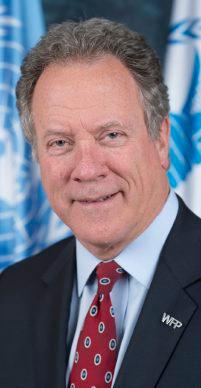
345 globalgovernanceproject.org 2022 — G20 INDONESIA: THE BALI SUMMIT 119
m
50
m

To improve its performance on infrastructure development, G20 leaders at their summit in Bali can make use of several measures, including producing a stand-alone document and making more references to the private sector
The issue of financing for infrastructure development is a priority of Indonesia’s 2022 G20 presidency and has been on the G20 agenda since the summit’s inception. The financing gap for sustainable, inclusive, accessible and affordable infrastructure is a long-standing global challenge, particularly for developing countries. G20 leaders established the Global Infrastructure Hub in 2014 and have called for mobilising private financing to complement public investment and support from multilateral development banks. Revitalising infrastructure development is also critical for a
Angela Min Yi Hou is a senior researcher with the G20 Research Group and G7 Research Group, and co-chair of the BRICS Research Group. She is a policy analyst for the Government of Canada, in the Foreign and Defence Policy Secretariat of the Privy Council Office, as a participant in the Advanced Policy Analyst Program. She recently completed a master’s in international affairs at the Graduate Institute of International and Development Studies in Geneva, with specialisations in trade and environment. The views in this publication are her personal ones.
Julia Tops is a senior researcher with the G20 and G7 Research Groups. She has served as a lead analyst and compliance director of the G20 Research Group as well as co-chair of summit studies for the G7 Research Group. She holds a master of science in development studies at the London School of Economics and Political Science. Her research interest focuses on development, specifically that of infrastructure and infrastructure financing.
www.g20.utoronto.ca
resilient and robust post-pandemic recovery.

G20 leaders first addressed the issue of infrastructure development at their first summit in Washington in 2008, with 30 words for 1% of the communiqué. At the 2009 London Summit, leaders produced 113 words (2%). G20 leaders did not devote significant attention to infrastructure at the following two summits, with 20 words (0.2%) at the 2009 Pittsburgh Summit and 56 words (1%) at Toronto in 2010. There was a surge at the 2010 Seoul Summit with 919 words (6%). Subsequently, infrastructure consistently took up approximately 3–4% of the communique’s words through to 2013. The 2014 Brisbane Summit produced 2,245 words (25%). This pinnacle was followed by steadily declining proportions: 1,200 words for 9% at the 2015 Antalya Summit, 740 words (5%) at the 2016 Hangzhou Summit and 1,349 words (4%) at the 2017 Hamburg Summit. There was a slight resurgence in 2018 in Buenos Aires with 718 words (8%), followed by a decline: 590 words (7%) at the 2019 Osaka Summit and 343 words (6%) at the 2020 Riyadh Summit. At the 2021 Rome Summit attention spiked again to 1,232 words for 12%, a percentage surpassed only by the 2014 Brisbane Summit.

The G20 has made 51 collective, politically binding, future-oriented commitments on infrastructure development. The first infrastructure commitments came at the 2014 Brisbane Summit, with a significant
28 commitments accounting for 14% of the commitments made that year. Subsequently, 4% of commitments made at the 2016 Hangzhou Summit were on infrastructure. At the 2017 Hamburg, 2018 Buenos Aires and 2019 Osaka summits, 1% or less of the commitments addressed infrastructure. Infrastructure accounted for 3% of the 2020 Riyadh Summit commitments. At the 2021 Rome Summit 2% of the commitments were on infrastructure.
The G20 Research Group’s assessment of compliance with the seven assessed priority infrastructure commitments among the 51 total found an average of 78%. This is higher than the G20’s 71% compliance across all subjects. Compliance has varied widely each year. Compliance with the 2014 commitments was 98%, but plunged to 48% for 2016. It remained high at 83% for the 2018 Buenos Aires Summit and 93% for the 2019 Osaka Summit. The two assessments for the 2020 Riyadh Summit averaged 58% compliance. By June 2022, compliance with the one assessed commitment from the Rome Summit was already 88%.
How can the G20 improve this compliance?
First, commitments that involve the private sector or a specialised agent have higher compliance. Commitments that refer to the private sector average 90% compliance. The highest compliance came with the commitment on the G20 Principles for Quality Infrastructure Investment with 93% (although in 2020 a similar commitment scored 70%, which is likely due to the diversionary shock of Covid-19). However, commitments that refer to mobilising the private-sector resources averaged only 70% compliance, slightly below the overall average.
Second, more attention to and agreements on infrastructure contribute to higher performance. The four highest complying summits, averaging 83% compliance, produced a total of 3,896 words on infrastructure and 33 infrastructure commitments. The three lowest complying summits, averaging only 63%, produced only 1,801 words and 12 commitments. Furthermore, the highest complying summit – Brisbane in 2014 with 98% compliance – established the Global Infrastructure Hub and
produced a stand-alone document, the G20 Note on the Global Infrastructure Initiative and Hub.

For success at Bali, G20 leaders should therefore give much more attention to infrastructure, including producing a stand-alone infrastructure document. They should make more infrastructure commitments that refer to the private sector and quality infrastructure to implement the G20 Principles for Quality Infrastructure Investment. They could further improve performance by including infrastructure in the preamble of their communiqué, including quantitative or chronological targets on resource mobilisation and collaborating with multilateral organisations.
The 2021 Rome Summit produced the second highest levels of G20 conclusions on infrastructure. The Indonesian presidency has hosted several Infrastructure Working Group meetings with an emphasis on post–Covid-19 development. Looking ahead to India’s 2023 presidency, the G20 should elevate these working groups to the ministerial level – an unprecedented gathering in the G20’s history.
In all, an optimistic forecast is warranted for the 2022 G20 Bali summit’s infrastructure performance.

The G20 has the power to help increase the availability of infrastructure funding and its role will be critical in helping to bridge the current investment gap – a gap that is hindering strong, sustainable development
Why is investment in infrastructure so important in fuelling a strong, sustainable recovery?
Infrastructure is a backbone solution to a healthy climate, safe and resilient societies, and equitable economic recovery.
It is indeed more effective than other types of public spending in increasing economic output, and there are known and strongly evidenced best practices for realising sustainable, inclusive and resilient outcomes at all stages of the lifecycle.
Unfortunately, our inability to solve the decades-long infrastructure investment crisis and decision to keep building the infrastructure that is now responsible for 79% of global greenhouse gas emissions has created a multifaceted challenge that requires us to solve several problems simultaneously, and quickly. The task now is to scale up investment in sustainable infrastructure that drives the net zero transition and efficiently enables economic recovery. These are the actions we’re helping advance in our work with the G20.
Definitely. In 2017 we forecast a global investment gap of $0.7 trillion a year. Now it’s $3 trillion a year with potential to grow higher as the world grapples with economic turmoil, geopolitical tensions and climate change. It’s a worrying reminder of what the public sector has not been able to achieve alone. Our latest Infrastructure Monitor report shows that the private investment gap between high-income countries and middle- and low-income countries keeps widening, while overall private investment in infrastructure projects remains stagnant for the eighth year running.
More private capital is urgently needed. We need to maximise the positive impacts of investment in sustainable infrastructure and increase the scale, affordability and speed of such investment.
The G20 Indonesian presidency had four interlinked infrastructure priorities: scaling up sustainable infrastructure investment by leveraging private sector
Marie Lam-Frendo has been chief executive officer of the Global Infrastructure Hub since 2019. She was previously head of Asia-Pacific for Acuity. From 2011 to 2014, she headed the Infrastructure Initiatives department of the World Economic Forum and previous to that, she worked for European utilities Essent (then RWE). Marie started her career as a civil engineer on projects in Africa, the Middle East and Europe. Twitter @gi_hub gihub.org

participation, enhancing social inclusion and addressing subnational disparities, increasing digital and infratech investments, and advancing transformative infrastructure post Covid-19.
First, we continued to monitor G20 governments’ shift to sustainable infrastructure by expanding our InfraTracker data tool. This initiative estimates current public investment trends in infrastructure and how these trends align with the outcomes needed to meet the Sustainable Development Goals with more sustainable, resilient, inclusive infrastructure. The update tracks the investment in infrastructure budgeted by central governments annually, across all G20 member and guest economies. With this information, governments, investors and multilateral development banks can form a more accurate view of the amount of investment needed to fill the infrastructure gap that the GI Hub first quantified in 2017. The expanded InfraTracker will be available from early 2023.
Second, we worked with the Asian Infrastructure Investment Bank to develop the G20 Blueprint for Scaling Up InfraTech Financing and Development. The blueprint explains the potential for infratech to support long-term infrastructure priorities by improving efficiency and reducing costs; enhancing economic, social and environmental value; and reshaping demand and creating new markets. It also provides data and tools to facilitate investors’ ability to make informed decisions.
Third, our effort to scale up private investment in sustainable infrastructure is reflected in the upcoming G20/GI Hub Framework on How to Best Leverage
Private Sector Participation to Scale Up Sustainable Infrastructure Investment. The framework was created with the G20, and in partnership with the Organisation for Economic Co-operation and Development and the World Bank. It provides concise, actionable recommendations to inspire and inform collaboration between the public and private sector that can lead to scaling up private investment in infrastructure.
We have also presented our report on Infrastructure Transition Pathways to the G20, which explores infrastructure transition pathways to achieve global climate targets and the SDGs. We analysed over 250 infrastructure plans to identify various pathways and collect preliminary data on the magnitude and impact on investments, so governments can see the type of projects or subsector to invest in to reach their climate targets for a net zero transition.
How can the G20 leaders at Bali best help?
I’d like to see some reform of regulatory capital requirements regarding infrastructure. Infrastructure debt sources are not scarce in developed economies, but banks remain the key debt provider for infrastructure projects in emerging economies.
The G20 can help to increase the availability of finance by negotiating a risk-adjusted regulatory capital requirement for qualifying infrastructure, an issue on which the GI Hub is currently forming a coalition of banks. This will be critical to bridging the current infrastructure investment gap, particularly in developing economies.

The task now is to scale up investment in sustainable infrastructure that drives the net zero transition and efficiently enables economic recovery”
MARIE LAM-FRENDO

With compliance on gender equality commitments well below the average across all commitment areas, the G20 leaders at Bali should make more gender conclusions and monitor the implementation of commitments
Indonesia’s 2022 G20 presidency has set ‘Recover together, recover stronger’ as its central theme for the Bali Summit. Despite several interconnected current crises, including many that disproportionately affect women and girls, Indonesia has yet to signal that gender equality will be prioritised.

G20 leaders first addressed gender equality at their 2009 London Summit, with 155 words (3%) in their communiqué. Since the 2010 Seoul Summit gave 177 words (1%), their attention has slowly, but irregularly, increased in size and scope. It dropped to a low at Cannes in 2011 of 52 words (0.4%), then rose at Los Cabos in 2012 to 231 words (2%). It surged at St Petersburg in 2013 to 1,015 words (4%) but dropped at Brisbane in 2014 to 305 words (3%). Then came a sustained rise to 1,235 words (14%) at Antalya in 2015, 1,199 words (8%) at Hangzhou in 2016 and a spike to 4,836 words (14%) at Hamburg in 2017. In Buenos Aires in 2018, it plunged to 676 words (8%), but rose significantly at Osaka in 2019 to 1,153 words or 23% – the highest portion at any summit. It plunged again at Riyadh in 2021 to 686 words (12%) but rose slightly in Rome in 2021 to 1,510 (16%).
From 2008 to 2021, the G20 made 80 core commitments and 39 related commitments on gender equality, for a total of 119. The first came in London in 2009, taking 3% of its commitments. The next two (2%) came at Los Cabos in 2012 and an additional four (2%) at Brisbane in 2014. Antalya in 2015 had none but produced four (2%) related commitments. Hangzhou in 2016 had no core but eight (4%) gender-related commitments. The strong surge at the 2017 Hamburg Summit stands out, with a record 30 core gender equality commitments and 14 related ones (8%). Buenos Aires in 2018 had only seven (7%) core gender commitments. At Osaka in 2019, this rose to 12, with an additional four related ones (11%). Riyadh in 2020 had eight core and one related commitment (8%). At Rome in 2021, this rose to 17 core and four related commitments (9%).
At the start, gender commitments focused on increasing the labour force participation of women and improving workplace conditions for them. This continued until 2015, with a slight expansion to women entrepreneurs and farmers and later to digital skills development and education in science, technology, engineering and mathematics, to increase female participation in those sectors. In 2017 and 2018, the G20 committed to ending gender-based violence. In 2020 and 2021, the G20 recognised the disproportionate impact of the Covid-19 pandemic on
Julia Kulik is director of research for the G20 Research Group as well as for the G7 and BRICS Research Groups and the Global Health Diplomacy Program, all based at the University of Toronto. She has written on G20, G7 and BRICS performance, particularly on the issues of gender equality and regional security. Kulik leads the groups’ work on gender, women’s health, higher education and summit performance.

Twitter @juliafkulik www.g20.utoronto.ca
62%
women and committed to ensuring that it would not widen existing inequalities and undermine the progress of recent decades.
G20 members averaged 62% compliance with the 24 assessed gender commitments made between 2008 and 2021. This is much lower than the G20’s 71% compliance average across all subjects. The highest compliance came with the gender commitments in 2020 at 89% and 2015 at 72%. The lowest came with the 2013 commitments at 33% and the 2009 London commitments at 48%. By June 2022, compliance with the one assessed commitment made at the 2021 Rome Summit was 53%.
The highest complier was Canada at 88%, followed by the European Union at 85% and Australia at 80%. The lowest compliers were Indonesia, Mexico and Turkey, all at 40%.
Between 2009 and 2019, several potential causes of compliance stood out. Higher G20 compliance of about 15% came for summits with a higher percentage of the communiqué words and commitments dedicated to gender and gender-related issues.
Core gender equality commitments averaged 66% compliance, compared to gender-related ones at 55%. Gender commitments with the highest compliance focused on women’s economic empowerment and ensuring the pandemic did not widen existing gender gaps. Commitments with the lowest compliance focused on women and girls’ education in STEM, unpaid care work and gender-based violence.
Commitments with highly politically binding language and thus a high degree of obligation averaged 67%; those with less binding language averaged only 50%. Several catalysts embedded in the commitment text that provide direction for implementation have little effect on compliance. There was no difference in compliance between the 11 commitments containing at least one catalyst and the other 13: both averaged 62%.
Commitments with higher compliance contained references to self-monitoring mechanisms for implementation.
G20 leaders at Bali should thus make more gender conclusions, emphasise core gender commitments, use highly binding language, and include self-monitoring of implementation.
average compliance on gender equality commitments assessed
In 2020 and 2021, the G20 recognised the disproportionate impact of the Covid-19 pandemic on women and committed to ensuring that it would not widen existing inequalities and undermine the progress of recent decades”
The effects of gender inequality are far-reaching, but with a package of bold measures the G20 can drive investment in delivering systemic, gendered solutions to the issues we face
Sima Bahous, under-secretarygeneral, United Nations, and executive director, UN Women
Recent events have relentlessly brought home our interconnectedness. We have seen how diseases have no borders; how a war in one part of the world can cause food, fuel and inflation crises in far distant continents; how failures to mitigate environmental damage embroil us all in floods, wildfires and catastrophic losses of biodiversity. Together these factors are reversing recent precious progress on gender equality – and on all the Sustainable Development Goals. At the current rate, it may take close to 300 years to achieve full gender equality.
Nearly halfway to the 2030 endpoint for the SDGs, it is time to turn our interconnectedness into solidarity in shaping our responses and invest intentionally – and better – in women and girls. Currently, despite progress, only 26% of countries have a comprehensive system to track gender budget allocations.
Recent research published by UN Women reveals what to target for action. Women’s representation in positions of power and decision-making remain below the parity threshold with just 26.4% of parliamentary seats globally, and 28.3% of managerial positions. Covid-19 had a devastating impact on women’s economic opportunities and labour force engagement. Pandemic-related school and daycare closures in 2020 led to women doing an estimated 512 billion more additional hours of unpaid childcare globally, curtailing their opportunities for paid work. In 2022, women’s employment rates have still not recovered to pre-pandemic levels in most countries. Today, more than 380 million women and girls live in extreme poverty, on less than $1.90 a day.
The global population of forcibly displaced women and girls has reached record levels – 44 million – and faces exposure to even greater risks of violence, trafficking and sexual abuse. Meanwhile in homes around the world, one woman or girl is killed every 11 minutes by someone (almost always a man) in her own family.
Across all regions, women are more food insecure than men, with nearly one in three women experiencing moderate or severe food insecurity in 2021. This year, our analysis has shown the further gendered impacts of the Ukraine crisis on energy access, food security and
Sima Bahous became UN Women’s executive director and UN undersecretary-general in September 2021. She most recently served as Jordan’s permanent representative to the United Nations in New York. Previously, she was assistant administrator and director of the Regional Bureau for Arab States at the United Nations Development Programme and assistant secretary-general and head of the Social Development Sector at the League of Arab States. She has also served in ministerial posts in Jordan and was director of communication for the Royal Hashemite Court. Twitter @unwomenchief unwomen.org

nutrition. As food, fuel and other prices climb, the consequences of women’s lower incomes and limited labour force engagement become harsher, and the situation of many becomes more desperate. As always, it is women living in poverty and the most marginalised who are the worst affected, least visible and among the last to be reached by government action.
Yet the pandemic also demonstrated just how much our future progress depends on women’s skills and leadership. Women sustained their families, staffed our healthcare systems and invented lifesaving vaccines. As leaders of countries, women instigated some of the most effective responses to the pandemic. And our research found that
where women were better represented in governments, and where feminist movements are stronger, crisis response was more gender sensitive and effective for everyone.
Systemic, gendered crises require systemic, gendered solutions. I urge the G20 to foster this positive trend: centre women’s and girls’ voices, agency, participation and leadership in all their plans, and invest in and consult with women’s groups and organisations.
I propose the following bold measures.
First, remove all discriminatory laws, policies and systems that hinder women’s and girls’ full potential in the economy, including in rural and remote areas, and ensure legal and other measures are in place to prevent and respond to violence against women.
Second, expand gender-responsive public services and social protection, including in-kind assistance and food packages, and essential services for women’s health, including for survivors of violence, and sexual and reproductive health care.
Third, invest in the care economy by scaling up affordable childcare services. This creates a triple dividend of supporting women’s labour force participation, generating decent paid care jobs and preparing children for school.
Fourth, engage the private sector as a key player in hiring, retaining and promoting women and offering them equal pay. Support women-owned businesses in supply chains and local communities, ensuring gender-responsive investments as called for in the G20 Osaka Leaders’ Declaration.
Fifth, as the United Nations secretary-general has urged, make good on overdue commitments to mobilise $100 billion every year to support developing countries’ climate adaptation and mitigation efforts. Channel resources to women-led initiatives on renewable energy and agroecology to help address the food and fuel crises.
Last, invest in gender and age data and statistics to enable better targeted interventions that reflect the different needs and interests of women in all their diversity. I ask you to turn our interconnectedness into a strength, through committing to sustained, significant action for gender equality. That is the smartest investment of all, for all.
Women are the cornerstone of families, communities and economies; when their health suffers, so does the health of those around them. Throughout history, and continuing today, women’s health has often been relegated to the back burner of global priorities. Hologic aims to change that with science-backed data generated directly from the voices of women themselves. As the world’s most prosperous nations gather in Bali for the G20 this year, it is clear that we cannot “recover together, recover stronger” unless we put women’s health at the forefront of policy priorities.
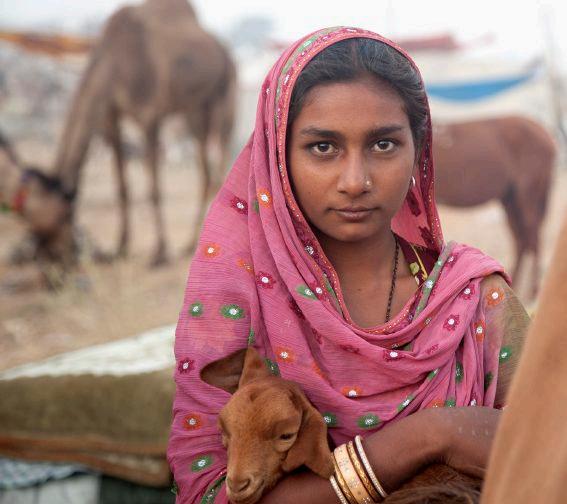
The global health architecture — one of the three priority issues for the G20 — must be utilised for a recovery that uplifts all. To truly emerge from the Covid-19 pandemic with a stronger, more resilient and adaptive health infrastructure, we need a strategic framework that makes women’s health an essential driver of progress. This is where the Hologic Global Women’s Health Index comes in.
Hologic creates the annual HGWHI in partnership with analytics leader Gallup. For the newly released second year of data, we surveyed women and girls aged 15 or older across 122 countries and
The Hologic Global Women’s Health Index provides unique, essential data and offers a framework for extending and improving the lives of women worldwide
Susan Harvey, vice president of worldwide medical affairs, Hologic
territories throughout 2021. This immense undertaking enables the index to represent 94% of the world’s women and girls.
The HGWHI focuses on five dimensions of health that together explain more than 80% of the variance in women’s life expectancy from birth: preventive care, individual health, emotional health, basic needs, and opinions of health and safety. The new HGWHI data show these key indicators remain stagnant or are even worse in some cases. One of the most shocking headlines was that more than 1.5 billion women were not tested for the deadliest diseases — high blood pressure, cancer, diabetes and sexually transmitted diseases or infections, which together affect billions of women worldwide.
Of the five dimensions of health, women scored lowest on preventive care, and nearly every country had significant room for improvement. This is particularly important as the data show that consistent access to preventive care, via regular visits to a healthcare professional, correlates with up to two years of increased life expectancy. This is regardless of a country’s gross domestic product and provided there are safety nets and infrastructure such as personal safety, food, shelter and other basic needs available to women.
The numbers are staggering. More than two billion women were not screened for any type of cancer, and the same for sexually transmitted diseases and infections. A similar number of women, approximately two billion, were not tested for diabetes. These numbers reflect widespread and formidable barriers to preventive care for women, based on struggles to obtain adequate food and housing, safety threats and cultural norms that hinder access to health services.
This year’s findings reveal growing health divides between high-income and low-income countries. From 2020 to 2021, the gap in HGWHI scores between women in high-income and low-income economies nearly doubled to 22 points. In addition to income disparities, gaps are increasing in health areas that are gender based, education level–related and in the important area of emotional
94%
of the world’s women and girls represented by the Hologic Global Women’s Health Index
60%
of women in 2021 reported they were not tested for any of the four diseases or conditions asked about in the survey
health. Inequities are rising at a startling rate, making these matters even more urgent, and so the time has come to convene for improvements.
Women are also alerting the world that they do not feel safe in their communities and homes. Nearly one billion women said they do not feel safe walking alone at night where they live and approximately 1.7 billion women told us domestic violence is a widespread problem in their country.
The HGWHI underscores that women’s health is key to stronger economies worldwide.
For example, one of the key findings in the study was that one in four women and girls — which represents nearly 650 million women and girls globally — said they have health problems that prevent them from doing things people their age normally can. When women’s health actively prevents women from living full lives, it means they cannot work, engage with loved ones or fully participate in society – and this comes with a cost. If women participated in paid work at the same level as men, closing the global workforce gender gap, annual global GDP would increase by $28 trillion by 2025, according to the McKinsey Global Institute. Women need to have deadly diseases detected early, access to education, and be safe in their communities and their homes. Helping more women be healthy, educated and safe creates proven positive ripple effects on families, communities and societies. This foundational nature of women’s roles is why their health must be a priority for every leader around the world – and where the HGWHI data show we are all falling short.
Dr Susan Harvey is the vice president of worldwide medical affairs at Hologic. Previously, she was the director of breast imaging for Johns Hopkins Medicine for more than seven years and has worked in underserved and resource-scarce regions around the world to identify the most appropriate detection, diagnosis and treatment opportunities.

Twitter @Hologic hologic.com
Until we give women’s health the full attention it deserves, the world will not prosper. Time is short, and women are telling us what they need to thrive. On behalf of the entire Hologic team, I encourage you to explore the HGWHI’s crucial findings, and we look forward to supporting you in using its framework to better the health of women – and thus the health of the whole world.

Until we give women’s health the full attention it deserves, the world will not prosper”
This year’s G20 summit is taking place at a time when the world of work is still recovering from the Covid-19 crisis, while at the same time confronting new and serious challenges.
The employment outlook for the rest of 2022 and 2023 remains clouded by growing downside risks, and the International Labour Organization expects the number of hours worked globally to remain significantly lower in 2022 than pre-pandemic levels. For most people – particularly in low- and middle-income countries – labour incomes have not recovered to where they were. At the same time, inflation and interest rates are expected to remain high.
Taken together, this means that the prospects for the purchasing power and standard of living of workers worldwide are deeply concerning. Increases in the prices of necessities, notably food and fuel, hurt poor households the most. And after two years of pandemic, many countries – and particularly the lower-income ones – have limited fiscal space left to cushion these blows on their people.
Reduced purchasing power also means reduced demand, which puts businesses under strain. Many are facing challenges caused by disruptions to their supply chains. This situation has knock-on implications for economic growth – and so for employment.

There is a clear risk that the tensions created by this situation will evolve into broader instability.
G20 members are faced with the complex challenge of providing effective and timely support for workers and their families while encouraging productive and quality employment creation and, simultaneously, tackling climate change. We will need to reinvigorate our collective efforts to address these interrelated and mutually reinforcing crises. We must undertake the far-reaching transformations that are required. And we must ensure that the benefits of recovery are equitably shared, within and between countries.
Previous G20 summits have already established ambitious and important targets related to the delivery of a better, more equitable, world of work. The Brisbane goal aims to reduce the gender gap in labour market participation by 25% by 2025, and the Antalya goal commits to reduce the proportion of
Gilbert Houngbo started his term as director-general of the International Labour Organization on 1 October 2022. He was president of the International Fund for Agricultural Development from 2017 to 2022. He previously served as deputy director-general of the ILO where he led field operations in more than 100 countries. From 2008 to 2012, he was prime minister of the Republic of Togo. He has also held numerous leadership positions at the United Nations Development Programme.

Twitter @GHoungbo ilo.org
young people not in employment, education or training by 15% by 2025.
However, the Covid-19 crisis has undone much of the hard-won progress made on these two goals. We will need to redouble our efforts to ensure that women and young people can fully and equally participate in the labour market, with quality employment and decent working conditions.
All these efforts require a focus on longer-term transformative approaches, underpinned by rights at work and backed by appropriate investment. But success will support recovery and be a step along the road towards a more equitable, sustainable and peaceful future.
An essential element for success will be placing social justice and decent work for all at the heart of our recovery strategy.
To this end, the Global Accelerator on Jobs and Social Protection for Just Transitions, coordinated by the ILO as part of a United Nations–wide effort, can play an important role. It aims to ensure the necessary policy support and financing to create 400 million jobs and extend social protection to the four billion people who currently lack coverage.
The Antalya goal commits to reduce the proportion of young people not in employment, education or training by by 2025 15%
The Global Accelerator has the potential to bring together the entire multilateral system, and move us from a position of simply reacting to crises to proactively anticipating and managing the different transitions that are underway – environmental, social and economic.

The support of the G20 leaders for the Global Accelerator would be an important and timely step forward and would be in line with existing commitments to shape a human-centred, inclusive and sustainable future of work, both in G20 members and around the world.
At this challenging time it is essential that we seize the initiative. We must shape the future so that it delivers a better, more equitable and sustainable world of work that will also contribute to lasting peace.
Reduced purchasing power means reduced demand, which puts businesses under strain”
The Labour 20 represents the interests of the labour community in the G20 process, and this year it has identified three key priorities relating to climate change, the digital workplace and social security
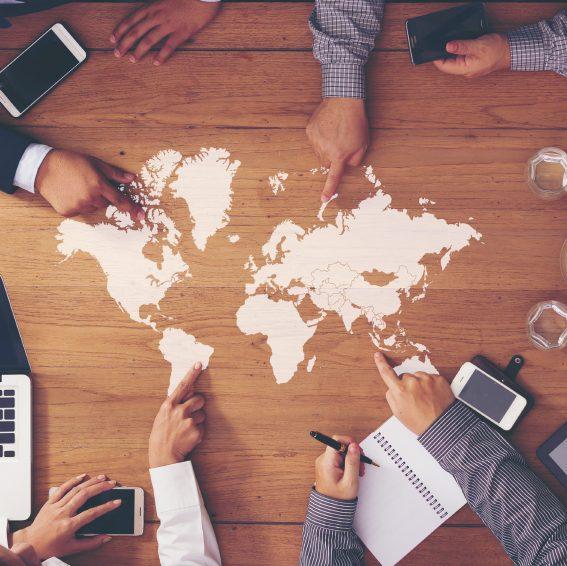
The primary mission of the Labour 20 is to facilitate the engagement of the labour community in the G20 intergovernmental process to ensure an inclusive and constructive dialogue on decent job and job sustainability.
The L20 conveys key messages of the global labour movement at the G20’s Employment Working Group and sherpa meetings, as well as at the meetings of labour and finance ministers, and at the G20 summits.
One regular outcome is a joint statement issued by the L20 and Business 20 on the occasion of the labour employment ministerial meeting. This year’s statement was presented to the ministers in September. Consultations with civil society organisations and other G20 engagement groups are also an integral part of the G20 process.
In order to formulate its key messages, the L20 carries out broad consultations with L20 members and confirms its policy goals at the L20 summit, which is held under each G20 presidency. This year’s L20 summit takes place in Bali on 13–14 November, just before the leaders meet.
For Indonesia’s G20 presidency, the L20 has identified three priorities: ensuring a just transition for workers affected by climate change, extending labour protection to platform digital workers and advocating for universal coverage of social security.
I only became personally involved in G20 matters this year. As the chair of L20 Indonesia, I have relied on the position of the International Trade Union Confederation as well as L20 members. That position has consistently been:
• to generate investment to create quality jobs;
• to scale up quality apprenticeships and skills;
• to ensure the formalisation of work through minimum wages, labour rights and social protection floors;
• to achieve sustainable, green and inclusive growth;
• to ensure fair income distribution; and
• to follow up on the implementation of the G20’s past and future commitments.
The L20 recommendations for the G20 in 2022 come under five main themes:
1. Addressing the pandemic and
recovering with resilience;
2. Providing financial means to all countries through progressive tax reform, finance and monetary arrangements to provide sufficient resources for sustainable development;
3. Increasing job and income security for
workers and all citizens by underpinning the principles of decent work;
4. Achieving a climate-proof recovery and resilience; and
5. Ensuring digitalisation and other innovations that benefit the many, rather than the few.
Elly Rosita Silaban, chair of L20 Indonesia, has been president of the Confederation of All Indonesian Trade Unions since 2019. She has held various positions in workers’ organisations since 1995, including deputy head of the Garment and Textile Federation and head of the Garment and Textile Federation. She is a member of the International Labour Organization’s Better Work Indonesia programme and its Gender Task Force, and H&M’s National Monitoring Committee. She also serves on the general council of the International Trade Union Confederation and the International Energy Agency’s Clean Energy Labour Council.

In order to formulate its key messages, the L20 carries out broad consultations with L20 members and confirms its policy goals at the L20 summit, which is held under each G20 presidency”
Climate change is a priority under Indonesia’s G20 leadership, but to date, performance in this area has been relatively weak. But shorter timelines and pre-summit meetings are among the measures that could help


The G20 Bali Summit prioritises climate change under its third priority of a sustainable energy transition, with a focus on climate finance and clean energy technology. G20 leaders can make
G20 performance on climate change, 2008–2021
advances in these areas at Bali. But to be effective, lead on climate and produce a successful summit they need to take a broader, more ambitious approach, despite unprecedented diversionary health and security shocks. A key step is for the Bali
communiqué to recognise the many climate shocks happening around the world, which communiqués have not done in recent years.
G20 summits have dedicated an average of 5% of their communiqués to climate change at each summit. This is much lower than the 34% average for the G20’s top issue of macroeconomic growth. But since the landmark Paris Agreement was signed in 2015, it has usually been above average on climate change, with a rising trend from 2018 to 2021. The 2018 Buenos Aires Summit gave 5% of its communiqués to climate change, rising to 10% at the 2019 Osaka Summit, 12% at the 2020 Riyadh Summit and then jumping to 31% at the 2021 Rome Summit.
G20 commitment making mostly mirrors this trend. Since 2008, G20 summits have made 115 climate commitments – usually fewer than 10 per summit, with only four exceptions. Three exceptions came after the 2015 Paris Agreement was signed. The 2017 Hamburg Summit started this rising trend with 22 commitments (for 4% of its total). This plunged to three (3%) for Buenos Aires in 2018, rose to 13 (9%) for Osaka in 2019, plunged back to three (3%) for Riyadh in 2020 and finally rose again to 21 (9%) for Rome in 2021.
The G20 Research Group has monitored G20 members’ compliance with 47 of these 115 climate commitments. Compliance is low, averaging only 67%. This is below the G20’s overall average of 71% across all subjects. Before the 2015 Paris Agreement, G20 climate compliance fluctuated wildly, reaching as low as 42% in 2013 and as high as 93% at 2009 for Pittsburgh. In recent years, compliance has levelled off and become more consistent. In 2015 compliance reached a high of 85%, boosted by the Paris Agreement that year, and stayed relatively high at 79% the following year at Hangzhou. Since then, compliance has remained in the 60%–70% range. Compliance for 2017 was 64%, 2018 was 71%, 2019 was 68%, and 2020 was 74%. By June 2022, compliance with the three assessed climate commitments from Rome was 73%.
What accounts for these compliance scores?
One factor is pre-summit meetings of environment ministers, which may help account for the more consistent climate compliance in recent years. Generally, summits with a pre-summit ministerial meeting have slightly higher compliance with the subject they govern.
A second factor is timelines. Shorter is better. One monitored climate commitment has a multi-year timetable and has 43% compliance, the one with a one-year timetable has 50%, and the four with a timetable of six months or less average 85%.
A third factor is United Nations support.
5%
Commitments that explicitly support the UN Framework Convention on Climate Change or its agreements average 72%, compared to 65% for the ones that do not.
A fourth factor is links to related issues. Commitments on sustainable development average the highest compliance at 82%, compared to those without at 66%.
A fifth factor is climate and diversionary shocks recognised in the communiqué. Although climate compliance has risen in the past two years despite the massive disruptions from Covid-19, neither the 2019 nor 2020 summits recognised climate change shocks (i.e., specific climate disasters). The 2019 Osaka Summit did not recognise any health shocks, but the 2020 Riyadh Summit made 38 such references. Despite this well-recognised Covid-19 shock, compared to none for climate shocks, climate compliance rose from 68% in 2019 to 74% in 2020. Yet health compliance from 2020 was significantly higher at 89%.
67
average compliance on climate change commitments assessed
At Bali, the G20 should add short-term timelines to its climate commitments, offer strong support to the UNFCCC, link its climate commitments with the UN’s Sustainable Development Goals, and, in the communiqué, recognise the many specific climate shocks happening around the world in the communiqué. India should consider holding an environment and climate change ministerial meeting early in its 2023 presidency to strengthen the work of Indonesia’s September ministerial, in addition to at least one more ministerial before the leaders’ next meeting.
Increased attention to climate change in recent years and the levelling off of G20 compliance with climate commitments point to greater institutional acceptance of the climate science and the increasingly visible real-world impacts of climate change among G20 members, regardless of their respective domestic political structures.
This bodes well for the G20’s climate performance at Bali. But it remains to be seen if the G20 will overcome embedded structural resistance to transformative climate action and raise its ambition to the level urgently needed.

Brittaney Warren is the lead researcher on climate change and director of compliance studies for the G20 Research Group, the G7 Research Group and the BRICS Research Group at Trinity College in the University of Toronto. She is co-author of Reconfiguring the Global Governance of Climate Change, and has published on accountability measures in summit commitments, G20 and G7 compliance and governance of climate change, and the G20’s governance of digitalisation. She holds a master’s degree in environmental studies from York University.
Twitter @brittaneywarren www.g20.utoronto.ca
%
average percentage of G20 communiqués dedicated to
Humanity has sleepwalked into the triple planetary crisis of climate change, nature and biodiversity loss, and pollution and waste. Now, the dream of taking endlessly from the planet is over. Now, we are living the nightmare: extreme and deadly weather, dirty air, water shortages, plastic-filled oceans, degraded land, species extinction and much more.
Nature gives us everything: from food to oxygen, from climate regulation to the resources that keep businesses afloat. Once these are gone, we cannot replace them. It is time to wake up and heal our sick planet and ourselves. It is time to back nature-based solutions.

The international community has begun showing signs of waking up. At the 2021 climate meeting in Glasgow, world leaders committed to conserving and restoring forests and other terrestrial ecosystems. New ways of investing and doing business were promised. At the fifth United Nations Environment Assembly in February 2022, we saw a strong commitment to acting for nature. The UN General Assembly in July recognised the right to a clean, healthy and sustainable environment.
When we consider the benefits of backing nature, these moves make resounding sense. Nature-based solutions – actions to protect, conserve, restore and sustainably use ecosystems for the benefit of humanity and nature – can provide 40% of climate change mitigation efforts until 2030.
Nature-based solutions provide barriers to storms, floods and zoonotic diseases. They promote sustainable agriculture: controlling pests, fertilising soil, pollinating crops and reducing emissions. They help cities become low carbon and resilient, from green roofs to trees and agriculture within cities. They help Indigenous peoples and local communities thrive. They provide green, lasting jobs that do not harm the planet.
G20 leaders can do much to back nature-based solutions. They can build on the Glasgow nature agenda by putting nature-based solutions in nationally determined contributions ahead of the next UN climate meeting,
Our poor treatment of nature has caught up with us, but nature-based solutions can wake humanity from the nightmare of planetary crisis
in Egypt in November. They can back the ambitious agreement on the Global Biodiversity Framework at the meeting of the Convention on Biological Diversity in Montreal in December. They can support integrating the agendas of the Rio Conventions on climate, biodiversity and desertification. They can get behind the UN Decade on Ecosystem Restoration, which shows nature-based solutions can simultaneously tackle biodiversity loss, climate change and poverty.
Crucially, the G20 must step up on financing. According to the State of Finance for Nature in the G20 report, G20 members invested $120 billion in nature-based solutions in 2020. To meet our climate, biodiversity and land-neutrality goals by 2050, G20 countries need to add an additional $160 billion to nature-based solutions each year by 2050. And they simply must get behind adaptation financing. The Paris Agreement calls for mitigation and adaptation to be balanced, for good reason. We are looking at one disaster per day by 2030. Yet adaptation finance accounted for less than 10% of climate finance over the past decade.
There are many ways to bring this financing online.
Public finance can leverage private finance; we need an environment that enables investments, including legislation to shift harmful subsidies to nature-positive subsidies. However, when engaging the private sector, we
must guard against greenwashing. Many corporations have made net zero and nature-positive commitments, but we need greater transparency and accountability to hold the private sector to account.
Financial institutions can stop financing harmful activities by using the UNEP Finance Initiatives recommended exclusions, by supporting efforts of the Taskforce on Nature-related Financial Disclosures, and by applying natural capital accounting to assess the real costs of doing business.
Natural capital accounting is crucial for everyone, as gross domestic product alone encourages growth at all costs. The Dasgupta Review showed that natural capital has declined by 40% since the early 1990s. More countries should adopt the System of Environmental-Economic Accounting Ecosystem Accounting, which complements GDP by including statistics on ecosystems and the services they supply.
Carbon pricing, meanwhile, can reorient capital flows towards sustainable investments, innovation and low carbon technologies. We can create additional revenue streams for forest ecosystem services, through initiatives such as the Green Gigaton Challenge. And we can accelerate the development of rules, safeguards and guidance to ensure that nature-based offsets complement decarbonisation efforts.
Finally, we can increase efforts to standardise environmental and social impact indicators and improve traceability. UNEP is working with banks and investors on key performance indicators to measure the climate, biodiversity and livelihood impacts from nature-positive financing.
We have treated nature badly, and the consequences of our behaviour are catching up with us. But nature is resilient. If the G20 and others back nature-based solutions as one of the main ways to address the triple planetary crisis, humanity and nature can become allies once more. And people and planet can thrive for centuries to come.
Inger Andersen is an under-secretary-general of the United Nations and the executive director of the UN Environment Programme. From 2015 to 2019, she was the director-general of the International Union for the Conservation of Nature. Ms Andersen has more than 30 years of experience in international development economics, environmental sustainability and policymaking and has held various leadership roles at the World Bank and United Nations. Twitter @unenvironment / @andersen_inger unenvironment.org

Nature-based solutions – actions to protect, conserve, restore and sustainably use ecosystems for the benefit of humanity and nature – can provide 40% of climate change mitigation efforts until 2030”
It is no secret that humankind’s past actions have accelerated the deterioration of ecosystems, negatively affecting our economies, societies and cultures. If we continue on our current trajectory, biodiversity and the services it provides will continue to decline, jeopardising the achievement of the Sustainable Development Goals. Sadly, around one million species are currently at risk of extinction. The decline in biodiversity is expected to accelerate further unless effective action addresses the underlying causes of biodiversity loss. These causes are often justified by societal values, norms and behaviour. Some examples include unsustainable production and consumption patterns, human population dynamics and trends, and technological innovation patterns.
With biodiversity declining faster now than at any other time in human history, our quality of life, our
well-being and our economies are under threat. But it is not over. Not yet. We can still bend the curve of biodiversity loss and change the trajectory of our future. We can move to support ecosystem resilience, human well-being and global prosperity.
The Covid-19 pandemic has highlighted the critical nature of healthy ecosystems for our quality of life on Earth. Without question, we can no longer live

Biodiversity is declining faster now than at any other time in human history, but as we approach COP15, there are opportunities for leadership, dedication and transformative change
Elizabeth Maruma Mrema, executive secretary, Convention on Biological Diversity
Elizabeth Maruma Mrema was appointed executive secretary of the Secretariat of the Convention on Biological Diversity in 2020, having served as acting executive secretary since late 2019. She had worked with the UN Environment Programme for over two decades and was the director of its Law Division. Previously, she was deputy director of the Ecosystems Division, in charge of coordination, operations and programme delivery. Prior to these duties, she served as executive secretary of the UNEP Secretariat of the Convention on the Conservation of Migratory Species of Wild Animals. Earlier she worked with Tanzania’s Ministry of Foreign Affairs and International Cooperation and lectured in public international law and diplomacy.

Twitter @mremae / @UNBiodiversity
cbd.int
with our heads in the sand. By addressing the root causes of biodiversity loss, we can also reduce the risks of future pandemics, build resilience and safeguards to achieve long-term sustainable development, and so much more. This is a critical precondition of creating an inclusive and sustainable foundation for growth and can be a key theme of the ‘Recover together, recover stronger’ agenda of Indonesia’s G20 presidency.
The post-2020 global biodiversity framework, currently being negotiated by parties under the Convention on Biological Diversity, represents a historic opportunity to accelerate action on biodiversity at all levels. It aims to build on the outcomes of the Strategic Plan for Biodiversity 2011–2020 and its Aichi Biodiversity Targets and achieve the 2050 vision of living in harmony with nature. The draft framework, if
adopted and implemented, will put biodiversity on a path to recovery before the end of this decade.
Intense consultations and Open-ended Working Group meetings have brought the process to a critical stage. Although progress has been made, extensive work still needs to be done in order to achieve agreement at the 15th CBD conference of the parties in December. Consensus has been reached on two targets, leaving 20 targets that require more work – in most cases significantly more –to reach an agreement.
The next two months, leading up to the fifth meeting of the Working Group and of COP15, are critical. They require continued leadership and dedication from all parties and stakeholders. Several intersessional processes are now under way to open channels of communication and collaboration among negotiators on the framework as a whole, as well as on critical issues such as finance and resource mobilisation, digital sequencing information, and others. Vigorous and constructive engagement of negotiators is necessary and can be supported by strong political signals and the commitments of political leaders, including G20 leaders in Bali.
Our experience with the Strategic Plan for Biodiversity and its Aichi Targets tells a cautionary tale. Not one of the global Aichi Biodiversity Targets was fully met, largely due to implementation deficits. This, in turn, threatened the achievement of the SDGs and undermined efforts to address climate change. We must go beyond a strong, agreed-upon text. Its effective implementation will be decisive. G20 leaders will be in a unique position to lead by example and rally the support of other countries to adopt and implement an ambitious post-2020 framework. The leaders in Bali can set the tone for concrete and balanced commitments for strong and effective means of implementation including finance, capacity building, technology transfer and scientific cooperation.
We need to act now to bend the curve and halt and reverse biodiversity loss. COP15 will be a decisive step towards a better and more sustainable future for generations to come.

We can still bend the curve of biodiversity loss and change the trajectory of our future. We can move to support ecosystem resilience, human well-being and global prosperity”
Established in 2017, the Urban 20 is led by cities for cities and brings together 38 mayors from G20 members and several observer cities.

Convened by C40 Cities and United Cities and Local Governments, U20 offers a platform for cities to form collective positions on G20 priorities and offers local solutions to global problems. In just five years it has created a well-established forum for dialogue between cities and G20 leaders, driving global agendas on issues where even the world’s largest economies fall short, such as on confronting climate change and addressing inequalities.
I have been honoured to co-chair the fifth cycle of Urban 20 in 2022, alongside my colleague Governor Ridwan Kamil of West Java, for Indonesia’s G20 presidency.
It has certainly been a challenging year. National and local leaders alike have been confronted with multiple overlapping crises. Devastating climate events such as droughts, fires and heatwaves on a scale and intensity that scientists did not expect in this decade are wreaking havoc in communities around the world. These same communities are also experiencing an economic and cost-of-living crisis, an energy crisis and the Covid-19 pandemic –interconnected crises that require a united response.
As leaders of the world’s largest cities, the U20 recognised our responsibility to act. We made a concerted effort to reaffirm in this year’s U20 communiqué the critical role of city diplomacy in effectively addressing these crises. Cities often find
Cities are key to delivering a sustainable and resilient recovery, and by prioritising urban sustainable solutions, the G20 leaders can tackle the climate, energy and cost-of-living crises simultaneouslyAnies Baswedan, governor of Jakarta, Urban 20 2022 co-chair
themselves on the front lines and can thus act as key delivery agents at the global level and generate, support and deliver the solutions that we need to ensure a more equitable, sustainable and resilient future for all.
The 2022 U20 communiqué highlights areas where we require more support from G20 governments and reiterates our readiness to work with governments and their major financial partners.
Specifically, our main call to the G20 is to increase investment and direct public funding in three key areas where cities can have the greatest impact in ensuring an inclusive recovery, addressing the climate crisis, fostering social cohesion and addressing inequality:
1. Affordable and sustainable housing and fostering a resilient health system;
2. Energy transition and sustainable mobility;
3. Education and training for equitable access to the job market.
To date, 44 cities have endorsed the communiqué – the most since its inception.
But our work does not stop there. Our engagement with the wider G20 ecosystem is a top priority and our ambition is to continue to be seen as a trusted partner and collaborator. Although still a young initiative, the U20 has successfully increased our presence within the G20 system with each passing year. In 2021, the G20 Rome Leaders’ Declaration recognised cities’ role as enablers of sustainable development for the first time in G20 history. Italy’s G20 presidency invited the U20 to contribute to the climate and energy working groups and formally recognised U20 contributions in the climate and energy ministerial communiqué.
I was delighted to steer the U20 further this year. In September 2022, the U20 collaborated with the Infrastructure Working Group on a seminar focused on sustainable infrastructure investment, where we demonstrated that sustainable long-term investment in public transport expansion has never been more needed to help address the ongoing energy, climate and cost-of-living crises. We shared how in Jakarta

Anies Rasyid Baswedan was inaugurated as the governor of Jakarta for the 2017–2022 term on 16 October 2017. Previously he served as Indonesia’s minister of education and culture between 2014 to 2016, and as rector of Paramadina University from 2007 to 2015. He was named as one of the Top 100 Public Intellectuals by Foreign Policy in 2008. In 2010 he was awarded the Nakasone Yasuhiro Award from Japan’s Institute for International Policy Studies and recognised as one of the World’s 20 Future Figures by Japan’s Foresight Magazine and as one of the 500 Most Influential Muslims by the Royal Islamic Strategic Studies Center.
Twitter @DKIJakarta / @c40cities / @uclg_org urban20.org
we have connected different public transport modes on an integrated ticketing service to make it more convenient and cheaper to travel by public transport uninterrupted. Barcelona’s Mayor Ada Colau has expanded the Superblocks project, reorganising city streets to limit traffic and increase space for recreation and relaxation. London’s Mayor Sadiq Khan has an ambitious strategy to achieve 80% of all trips in the city to be made on foot, by cycle or using public transport by 2041 and has introduced and expanded the world’s first Ultra Low Emission Zone.
The potential benefits of investment in sustainable public transport are substantial. Accessible and reliable public transport can help reduce car dependency, reduce oil demand – thus supporting energy security – and create tens of millions of good green jobs. An increase in active mobility –when supported by adequate infrastructure that accommodates the needs of all users – also improves the quality of life by creating thriving communities, reducing inequalities and further improving public health. More than that, prioritising sustainable mobility and designing cities around it could contribute 20–45% of the total global emissions reductions required to limit global warming to the Paris Agreement goal of 1.5°C.
Our message to G20 leaders is simple: as the world’s largest economies, G20 members have the opportunity to take action and lead by example. Acting on sustainable mobility as a key part of fostering a renewable energy transition and investing in affordable housing, resilient health systems, and education and training for the future of work can be a win-win solution to the multitude of crises facing our societies today. We invite G20 leaders to prioritise urban sustainable solutions and to work with cities – and the U20 – to tackle the climate, energy and cost of living crises and to guarantee a green and just recovery.
Prioritising sustainable mobility and designing cities around it could contribute 20–45% of total global emissions reductions required to limit global warming to the Paris Agreement goal of 1.5°C”
The first G20 summit hosted by Indonesia is highly significant, as the G20 grapples with a confluence of unprecedented crises, led by Russia’s unprovoked invasion of Ukraine, the ongoing Covid-19 pandemic and the existential threat of climate change. Indonesia’s theme of ‘Recover Together, Recover Stronger’ embodies three critical priorities of global health, digitalisation and the sustainable energy transition, all key in delivering a stronger and more sustainable economic recovery.
Accounting for over 80% of global energy consumption and 82% of global carbon emissions, the G20 wields significant weight in international energy governance. It plays a strategic role in driving a cleaner energy future. But can Indonesia facilitate an effective dialogue with its G20 partners on collectively propelling the energy transition, given the current, complex, compounding energy shocks caused by the war in Ukraine and exacerbated by supply chain issues and Russia’s tightening grip on oil and gas supplies?
The G20’s agenda has referred directly to energy issues since its first summit in 2008. The 2009 Pittsburgh and 2021 Rome summits figured most prominently, with 14% and 15% respectively of their communiqués dedicated to energy. Hamburg followed in 2017, at 9%, then Seoul in 2010, Cannes in 2011 and St Petersburg in 2013, each at 7%. Washington in 2008 and Toronto in 2010 were the lowest at 1% each. Riyadh in 2020 dedicated 11% of the communiqué to energy, the third highest to date. The 2014 Brisbane and 2017 Hamburg summits produced stand-alone documents specifically on energy.
Convening in March 2020 for the first time, the G20 Energy Sustainability
 Ella Kokotsis, director of accountability, G20 Research Group
Ella Kokotsis, director of accountability, G20 Research Group
Working Group met virtually under Saudi Arabia’s presidency. In offering support for the transition to lower emission energy systems, universal energy access and energy efficiency, it also acknowledged the framework for the circular carbon economy as a “primary initiative on reducing, reusing and removing greenhouse gases”.
Since 2008, the G20 has generated 169 energy commitments, fifth among all subjects by the number of commitments. Sixteen (13%) were made at Pittsburgh in 2009, dropping to one (2%) at Toronto in 2010, rising to 14 (9%) at Seoul in 2010 and again to 18 (5%) at Cannes in 2011. This fell to 10 (6%) at Los Cabos in 2012, rose to 19 (7%) at St Petersburg in 2013 and lowered slightly to 16 (8%) at Brisbane in 2014. Only three (3%) came at Antalya in 2015 and eight (4%) at Hangzhou in 2016. Hamburg in 2017 generated the highest number of energy commitments to date at 42 (8%). But this was followed by a steep drop to eight (7%) at Buenos Aires in 2018 and only two (1%) at Osaka in 2019. Riyadh in 2020 generated four energy commitments (4%), with eight (4%) at Rome in 2021.
The G20 Research Group has assessed compliance with 23 energy commitments since 2009, with a 70% average – consistent with the overall all-time, all-subject G20 average of 71%. Energy compliance ranks higher than that for gender, climate change, trade and development, but lower than
The data suggest that the G20 should generate fewer commitments with stronger politically binding words to improve its performance on energy – and Bali is well positioned to drive progress on global energy governance and compliance
that for macroeconomic policy, health, food and agriculture, financial regulation, and international financial institutional reform. Compliance has varied over time with highs for Buenos Aires in 2018 with 89%, Seoul in 2010 with 82% and Cannes in 2011 with 81%. Lows came for Hangzhou in 2016 at 49% and Antalya in 2015 at 33%. The highest G20 energy compliers have been Korea and France, with 85% and 83% respectively, followed by the United Kingdom at 81%, then Mexico and Brazil, each with 79%. By June 2022, energy compliance with the 2021 Rome Summit was only 30%.
There are several apparent causes of and corrections for G20 energy compliance. First, the use of politically binding language in the commitments correlates positively with compliance. Commitments with more binding language, such as ‘we commit’ or ‘we will take steps to’, averaged 81% compliance. Those that reiterated past commitments or used less binding language, such as ‘we welcome’, averaged only 62% compliance.
Second, there appears to be an inverse correlation with the number of commitments and compliance, with the five


Ella Kokotsis has written broadly on various aspects of G20 and G7 summitry and global governance, has directed the research and publication of numerous analytical documents, and has spoken extensively at summit-related conferences worldwide. Her scholarly methodology for assessing summit compliance continues to serve as the basis for the annual accountability reports produced by the G20, G7 and BRICS Research Groups. She is the author of Keeping International Commitments: Compliance, Credibility and the G7 Summits and co-author of Reconfiguring the Global Governance of Climate Change
www.g20.utoronto.ca
highest complying summits averaging 82% across 69 commitments, and the six lowest complying summits averaging 57% across 86 commitments.
The same inverse correlation holds true for total words generated, with the five highest complying summits averaging 82% across 4,927 words and the six lowest complying summits averaging 57% across 6,484 words.
These data suggest that the G20 should generate fewer commitments with stronger politically binding words to improve overall energy performance.
Indonesia is well poised to propel significant progress on global energy governance and compliance, given its pre-summit ministerial meeting on energy transitions as well as several joint meetings, which synergistically combine the environment and climate change, along with trade, investment, energy and health. The severe global shocks brought by the war in Ukraine and Covid-19 will foster consensus on the global response to the current energy crisis, despite constraints and deep divisions among G20 members.

The war in Ukraine has further highlighted the complexity of the energy transition.
The conflict has added volatility to an energy market already characterised by tight supply and high prices. Several years of underinvestment in oil and gas have created a gap between global supply and demand, especially for natural gas, and the Ukraine crisis has exacerbated the situation, highlighting European energy fragility and its poor diversification in terms of geography and energy mix.
As soon as the war began, Eni moved promptly to replace gas from Russia, mainly leveraging our own production, allowing us to replace around 20 billion cubic metres of Russian gas per year by 2025. We will be able to cover around 50% of it starting in the winter of 2022–2023, around 80% in 2024 and 100% in the course of 2025. New volumes will be geographically diversified, from countries and regions including
We are facing two complex and interrelated priorities: energy security, in terms of volumes and prices, and decarbonisation. Such priorities should not be seen in contrast. We need to change our energy system – supply and demand – in a way that meets the climate change timeframe, without negatively affecting energy prices and availability, enabling industries and infrastructures to transform
Claudio Descalzi, CEO, EniAt the same time, the urgency of decarbonising the economy has not faded away; we need to stay on track with the energy transition to achieve the net zero target by 2050. Today, in fact, we are facing two complex and interrelated priorities: energy security, both in terms of volumes and prices, and decarbonisation. Such priorities should not be seen in contrast. We need to change our energy system –both supply and demand – in a way that meets the climate change timeframe, without negatively affecting energy prices and availability, enabling industries and infrastructures to transform.
This transformation must be done gradually, using traditional sources by decarbonising them, while at the same time investing in technology to further develop and implement new energies, promoting a just energy transition that preserves the environment and broadens access to energy
to foster inclusive development. We should not forget that more than 730 million people in the world, mostly in Africa, still have no access to electricity, and 2.4 billion people still cook using fuels that are detrimental to their health and the environment.
As an energy company, our response to these priorities is to develop and deliver decarbonised products and services to our clients, with the objective of effectively contributing to the energy transition and tackling emissions from the use of our products. To achieve this goal, we developed a distinctive approach based on three pillars: proprietary technologies, new business and financing models, and enlarged stakeholder alliances. Technology, and specifically proprietary technology, is at the foundation of our strategy. This has been the case in the past for our traditional businesses, and even more now to face the complexity of the energy transition. A neutral approach to all energy solutions enables us to deploy every available solution in a complementary way, based on the maturity of each option and its effectiveness at reducing emissions.
Technological innovation has been key in the evolution of energy systems. We must implement today’s innovations as fast as we can, while accelerating the development of more efficient, decarbonised technologies by:
• continuing to pursue a more efficient use of energy (including a greater emphasis on the circular economy, better insulation of buildings and the many other ways we can reduce energy consumption);
• reducing the share of coal, which is the most used source for the generation of electricity globally;
• further reducing methane emissions from oil and gas operations, given their impact on climate;
• accelerating investment in all available transition technologies and systems: better solar, wind, wave and tidal, biofuels together with hydrogen, carbon sequestration and use, and breakthrough technologies such as magnetic confinement fusion.
We must keep an eye on the long term and increase investment in breakthrough
Claudio Descalzi has been the CEO of Eni, an integrated energy company operating in over 65 countries, since May 2014.

Twitter @eni www.eni.com
technologies such as magnetic confinement fusion, which holds the promise of a safe, virtually limitless source of clean energy from an infinitely available resource: hydrogen isotopes present in seawater. Since 2018, Eni has been the major investor in Commonwealth Fusion Systems, an MIT spinoff, which last year successfully tested the possibility of fusion confinement. Based on this important achievement, CFS intends to build the first pilot plant with net energy production by 2025, followed by the first industrial plant by the 2030s.
Technology underpins the development of new business and financing models and allows us to be at the forefront of market developments, so we can bring to scale and provide new, low-carbon solutions to our customers more quickly. With this perspective, we created dedicated business entities capable of independently accessing capital markets to fund their growth, with the objective of decarbonising traditional businesses while growing our new energy portfolio.
Finally, we can turn the goals of the energy transition into real action only by working together with all actors involved – from business to government, from civil society to international organisations, from research centres to the world of finance. Such stakeholder alliances are a necessary condition to effectively deploy new business models and technologies, facilitating the removal of barriers to change and creating momentum in support of the transformation that we need.
Eni’s main role as an energy company is to accelerate the development of new technologies and implement them on an industrial scale. We feel the responsibility to go beyond the reduction of our own emissions, to also target the abatement of those coming from the use of our products, providing decarbonised products and services to our customers.
We can reach these targets – as a company and as a global community –only if we adopt a diversified and neutral approach to technologies and work together across industries, in joint action with governments and communities.

Why is a fast renewable energy transition necessary, given the evidence about extreme weather events and soaring hydrocarbon energy prices?
If you reverse the question you have the answer. We need the energy transition to build a new system in line with achieving the Paris Agreement goals and to assure more resilience. We need to accelerate it because today’s crises show that a centralised system based on fossil fuels can no longer support development. All this makes it clear that the speed and the scale of the transition today put the 1.5°C and 2°C goals at risk if we don’t act immediately.
What advances have we made this year?
The energy transition is already in place. Over the past decade, the newest public capacity of renewables has systematically outpaced the traditional capacity and it’s continuing year after year. Last year 80% of the new installed capacity was renewables. We have seen the costs of renewables decrease by around 15% for the third consecutive year. Renewables now compete with the most competitive fossil fuels in four fifths of the planet. The share of renewable electricity is growing month after month, and renewable energy sources have not been much affected by Covid-19. We see good engagement by China, India, Indonesia, and some African countries. G7 members have all committed to 100% clean power by 2035. That we have to translate into reality. The political spirit is surely more positive today. But the speed and the scale of this transformation are not enough. There is still much to do.
What forms of renewable energy hold the most promise?
I have no favourite child! I consider renewables in a holistic way. There has been a lot of attention given recently to hydrogen, especially green hydrogen. Energy efficiency and electrification are driving the transition, and renewables complemented by hydrogen and bioenergy will be the technological avenue to achieving the Paris Agreement. We have to optimise the promising technologies we already have: electrification, efficiency, enabled by renewables, hydrogen and green hydrogen, and bioenergy. Geothermal, especially in Indonesia and other countries, is getting attention in the initial phases where

Political spirit for renewable energy has rapidly gained ground, but the speed and scale of this transformation are not enough – the rules must be rewritten so everyone can use and consume energy
the risk of investment is there, so we have to ensure derisking investment during exploration for new sites.
How can renewable energy technologies be developed in emerging economies and developing countries?
Sometimes when we talk about a just transition, we talk in neutral ways: reskilling and retraining for people losing their jobs or entering new technologies. But the just transition is more than that. It must decrease inequality. Renewables can be very important, especially regarding related supply chains. We strongly hope that international cooperation will bring countries to look at competition more collaboratively, so they can help emerging economies and developing countries build their green industries, for a balanced energy system that provides more jobs, more wealth and a better future for those countries.
What major challenges remain?
The legal rules were written to serve an energy system that was centralised and based on fossil fuels. Now we’re moving to a decentralised system with more actors, so the rules need to be rewritten so everyone can use and consume energy, and where exports will be mainly regional. We need a legal system that enables markets to play a role in ensuring the acceleration of this transition.
What about climate finance?
At IRENA we are trying to do more. To support investment choices for the multilateral financial system, we are working on global outlooks as well as regional and, in some cases, domestic ones. We
80%
of new installed capacity in 2021 was renewables
100%
clean power commitment from G7 members by 2035
are joining hands with countries so they own their plans and can better make their choices. We are also engaged through our financial initiatives, with the Climate Investment Platform, the Energy Transition Accelerating Financing Platform, the Abu Dhabi Fund for Development, Masdar and other financial institutions. The Investment Forum held in Bali in August – organised back-to-back with the G20 energy ministers’ meeting – could ensure continuity and add another push towards implementing national plans.
How can the G20 leaders at their summit help?
I hope the Bali Summit will deliver a strong message to rebuild how we cooperate, so competition continues to be the engine of progress but also offers more collaborative efforts for building green industries in developing countries, redrafting supply chains to give more room for developing countries to grow, and producing more jobs and more possibilities for people to live a life that is worth living. Such a strong call will ensure the energy transition will reduce existing inequalities.
Francesco La Camera assumed the role of director-general of the International Renewable Energy Agency in 2019. He formerly served as director-general of sustainable development in Italy’s Ministry of Environment, Land and Sea. As the national coordinator for the circular economy, he led the Italian delegation at several conferences of the parties to the United Nations Framework Convention on Climate Change. He served as co-chair of the Africa Centre for Climate and Sustainable Development and co-chaired the Financial Platform for Climate and Sustainable Development.
Twitter @flacamera irena.org
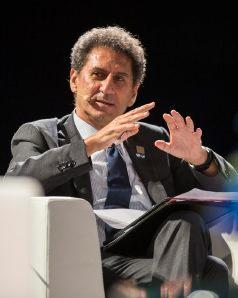
Energy efficiency and electrification are driving the transition, and renewables complemented by hydrogen and bioenergy will be the technological avenue to achieving the Paris Agreement”
According to the latest International Energy Agency reports, hydrogen markets provide an excellent possibility to decarbonise while simultaneously reindustrialising. Yet international cooperation on this front is currently lacking and must be intensified. There are plenty of areas where governments can, and must, work together.

The European hydrogen industry received a lot of good news this September. On 14 September 2022, a plenary vote in the Parliament of the European Union set binding clean hydrogen targets of 10 million tonnes in annual domestic production and an additional 10Mt to be imported by 2030. Additionally, the newly announced Hydrogen Bank is set to act as a “market-maker”, by purchasing the hydrogen and creating a scaling effect. However, the EU and its member states must understand that a solely Eurocentric approach to the matter will only serve to hamper the acceleration of hydrogen as a global catalyst for climate neutrality.
THE CIRCULAR ECONOMY
Hydrogen will be a cornerstone of the

circular economy. Across multiple sectors, from steel and cement to energy and power to maritime, air and land transport, there is demand and there is potential. What the sector needs is more leadership of the type demonstrated in recent weeks by the European Parliament and President Ursula von der Leyen, but from all the G20 members. Let us cooperate across borders and continents to enshrine the right to hydrogen.
With these premises, the G20 can play a leading role in unlocking a sector from which we can all benefit. By creating a truly global
Jorgo Chatzimarkakis, CEO, has been working at Hydrogen Europe since 2016. He previously covered roles in the German Foreign Office, at Infineon Technologies and was a member of the European Parliament (2004–2014). He was named Hydrogen Person of the Year at the World Hydrogen Awards 2022. Jorgo holds German and Greek nationality, and a degree in political science from the University of Bonn. Twitter@H2Europe www.hydrogeneurope.eu
hydrogen market we have the opportunity to crowd in historically excluded countries to the table, where we can strike equitable, mutually beneficial trade deals. Europe expects to import around 10 million tonnes of green hydrogen to meet its 2030 targets. We cannot do it alone, and it will require the help of our global partners.
The capacity to produce green hydrogen is much more evenly distributed across the world than oil and gas reserves. The EU in fact is working to establish three major hydrogen import corridors from the North Sea (Norway and the United Kingdom), from North Africa, and from Ukraine (once conditions allow). Countries such as South Africa, Egypt, Namibia and Mauritania are already committing to hydrogen, while across the Atlantic in Latin America a dozen countries are all preparing national hydrogen strategies. For many of these countries, with bountiful solar, wind and geothermal resources, their potential to transition from energy users to energy producers can provide an avenue to increased economic emancipation.
The G20 must set the guiding principles for hydrogen – guarantees of origin, carbon border mechanisms, an expanded ‘climate club’ – in their markets and facilitate the creation of their neighbours’ markets. Bold legislative steps, as we have now seen in Europe and in the United States, will get us to where we need to go – to a more sustainable and equitable world.
With greater focus and cooperation, the G20 can create a unifying and emancipatory hydrogen market – and bring us closer to a more sustainable and equitable world

There is no one path for the energy transition – and OPEC believes the world needs to take an all-options, all-solutions and all-technologies approach to ensuring energy security
Aglobal, multilateral approach will be vital in evolving a sustainable and balanced energy transition in which no one is left behind. Together, we need to ensure that the necessary investments are made in all energies, simultaneously progressing the imperatives of economic growth and development, energy security and affordable access, and environmental sustainability. In this regard, the G20 is an essential voice.
The challenges before us are enormous and complex. We have been delivered a reminder of this with the recent strains related to energy affordability, energy security and the need to reduce emissions, playing out across the world in 2022.
Focusing on only one of these issues while ignoring the others can lead to unintended consequences, such as market distortions, heightened price volatility, investments being shelved and energy shortfalls. Success requires
a delicate balancing act, comprehensive and sustainable solutions, and having all voices at the table.
We need to ensure energy is affordable for all; we need to transition to a more inclusive, fair and equitable world in which every person has access to energy as set out in United Nations Sustainable Development Goal 7; and we need to reduce emissions. Oil has a great role to play in each part.
In the Organization of Petroleum Exporting Countries’ World Oil Outlook, we see oil still making up close to 29% of the world’s energy needs by 2045. This will require huge investments, with the report showing that oil-related investments across the full value chain amount to $12.1 trillion between now and 2045.

However, we all need to recognise that the reality globally is that not enough investment is going into the industry. This is true for all energies. To put it simply: the sustainability of the global energy system is at stake.
OPEC members remain committed to investments to ensure supply meets demand and we stand ready to invest further in efforts to decarbonise the industry.
This requires all industry stakeholders to work together to ensure a long-term investment-friendly climate, with sufficient finance available. One that is sustainable and works for both producers and consumers, and for developed and developing countries.
With all this in mind, we know this is no time to exclude the oil industry. We have recently heard calls for oil-producing countries to play a key role in ensuring stable and sustainable global energy supplies, and at the same time we also hear demands from industrialised countries to end financing for fossil fuel projects.
It is difficult to bridge these two statements, but further delays in investments will surely lead to more volatility and turbulence in the energy landscape.
In terms of tackling climate change and reducing emissions, we fully believe that the oil industry can
be part of the solution to unlocking a low-emissions future. The history of the oil industry has always been focused on innovation, on providing solutions to the most intractable of challenges.
For example, carbon capture utilisation and storage, including direct air capture, blue hydrogen and other technologies, can be leveraged – along with the promotion of the circular carbon economy – to improve overall environmental performance. Moreover, OPEC members are also investing heavily in renewables.

OPEC is ready, willing and able to play a key role, just as it did with the huge energy challenges the world faced at the start of the pandemic, when Saudi Arabia provided impressive leadership of the G20 during 2020, particularly in bringing all parties to the table during the time of crisis.
OPEC continues to put its faith in dialogue and cooperation. Our door is always open. We believe there is no choice but to work together on these issues to avoid energy volatility and insecurity.
The G20 leaders in Bali need to look holistically at the fundamental pillars of successful and orderly energy transitions, namely energy security, affordability and sustainability.
We need to follow all the right energy transition paths and appreciate that there is not just one path for all. There are many ways to get from one point to another. OPEC believes that the world needs to take an all-options approach, an all-solutions approach and an all-technologies approach.
His Excellency Mr Haitham Al Ghais was appointed secretary-general of the Organization of Petroleum Exporting Countries on 1 August 2022. In 1991, he served as a diplomatic attaché in Kuwait’s Ministry of Foreign Affairs. In 1993, he joined the Kuwait Petroleum Corporation and was appointed deputy managing director for international marketing in 2021. He represented Kuwait on OPEC’s board of governors from 2016 to 2021, and in 2017, served as the first chair of the Joint Technical Committee. In 2018–2019, he led Kuwait’s team in finalising the Charter of Cooperation between OPEC and non-OPEC countries. Twitter @OPECSecretariat opec.org
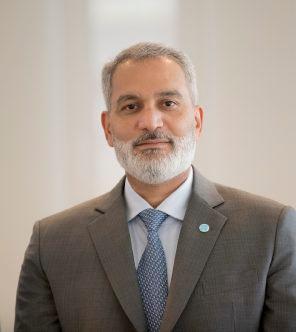
We fully believe that the oil industry can be part of the solution to unlocking a low-emissions future. The history of the oil industry has always been focused on innovation, on providing solutions to the most intractable of challenges”

Makueni County, Kenya. Jany prepares for a day at work. To diversify her income, she has recently introduced a new crop, the castor bean, a plant rich in oil, resistant to drought and that grows quickly on degraded soils, not in competition with food production. Castor fruits are destined for the first agri-hub in the country and the African continent built by Eni, a facility for collecting and pressing seeds. Eni has signed agreements in seven countries - Angola, Benin, Congo, Ivory Coast, Kenya, Mozambique, and Rwanda - and has launched experiments and feasibility studies in other countries - including Italy and Kazakhstan - to develop the socalled agri-feedstock: plants from which to extract vegetable oils, a raw material necessary for the production of sustainable biofuels. Eni aims to cover 35% of the supply of its biorefineries by 2025 [...]

With support from the G20, INTERPOL can put profits back into society – and deprive organised crime of its illicit gains
How have Covid-19, digitalisation and now the conflict in Ukraine, the resulting sanctions and increasing poverty, compounded the ongoing challenges of countering corruption?
The Covid-19 outbreak saw an unprecedented digitalisation process and subsequent criminal exploitation of individuals’ increased dependency on online activity.
We have seen significant illicit financial gains through cyberattacks, hacking, phishing, malware and fraudulent investment schemes. The increased poverty caused by global job losses has also contributed to the rise of crime rates, with organised criminal groups taking advantage of the desperation of individuals and businesses alike.
Further to the conflict in Ukraine, INTERPOL intelligence assessments indicate a significant increase in several crime types that are traditionally facilitated by corruption. The displacement of large numbers of people
and challenges at border crossings are creating increased opportunities for corruption.
The conflict has also significantly affected food, fertiliser and fuel prices, resulting in increased counterfeit production as well as fertiliser thefts. Fuel theft has also become a highly lucrative activity for individual offenders and criminal networks.
Increased areas of criminal activity create additional opportunities for corruption. This is why it is essential for law enforcement to share information in order to identify areas for potential corruption investigations.

How has INTERPOL responded to these new challenges and to continuing ones?
In response to concerns raised by member countries over the threats of fraud, money laundering and corruption, in January INTERPOL launched its Financial Crime and Anti-Corruption Centre to coordinate the global response.

Interview with Jürgen Stock, secretary-general, INTERPOL
IFCACC operates the Global Financial Crime Task Force, which brings investigators from multiple jurisdictions together to fight specific types of offences and organised crime groups, providing on-the-ground operational and investigative support.
The task force focuses on tackling cyber-enabled crimes, Covid-19–related frauds and money laundering schemes. This collective case coordination has already resulted in significant operational successes.
These include Operation Friday, addressing a romance scam and money laundering activity, which resulted in the successful recovery of $166 million and the freezing of a further $8 million, as well as a number of arrests and the publication of 18 Red Notices.
Another worldwide crackdown, Operation First Light, an initiative tackling E-Business Email Compromise Fraud led to the identification of 2,786 suspects, the arrest of 1,874 individuals,
3,853 bank accounts blocked and the recovery of $48 million.

The global nature of financial crime and corruption must be tackled through international collaboration that involves rapid and secure messaging and through building trusting relationships between stakeholders.
INTERPOL’s global mandate means it has a critical, if not unique, role in the fight against these threats, and the ability to share trends and typologies as well as to respond rapidly to money in transit and suspects at large. Only by using INTERPOL, and by working
in collaboration with partners in other sectors, can law enforcement officials properly tackle fraud, money laundering and corruption, and facilitate the seizure and confiscation of assets more effectively.
With this in mind, with the Financial Action Task Force, INTERPOL recently invited a range of experts from across the financial crime fighting spectrum to the inaugural FATF-INTERPOL Roundtable Engagement – or FIRE – session. This global effort brought together specialists from the public and private sectors to identify concrete measures to improve the recovery of assets and the global response to financial crime.
How can G20 leaders at their Bali Summit in November best help?
It is estimated that fewer than 1% of global illicit financial flows are intercepted and recovered, leaving billions of dollars in criminal hands, often to fuel corruption.
To address the pressing need for increased asset recovery, the FIRE event highlighted three key areas for action:
1. national policies and actions that prioritise tracing, seizing and confiscating criminal assets;
2. enhanced operational cooperation at the national, regional and international levels; and
3. increased effective information sharing among public authorities and with the private sector.
We see the far-reaching effects of corruption: it can undermine political, social and economic stability, and, ultimately, threaten the safety and security of society as a whole.
With support from G20 leaders, INTERPOL can unite global efforts to encourage greater asset recovery, depriving organised crime of its illicit profits and putting the profits back into society, where they belong.
Jürgen Stock was appointed secretary-general of INTERPOL in 2014 and reappointed in 2019 to serve a second five-year term. Stock was vice-president of Germany’s Federal Criminal Police Office (BKA) from 2004 to 2014, before which he held several leadership positions within law enforcement development institutions.
Twitter @INTERPOL_SG interpol.int

It is estimated that fewer than 1% of global illicit financial flows are intercepted and recovered, leaving billions of dollars in criminal hands, often to fuel corruption”
The current global context is deeply challenging, including on the safety and security and financial fronts. More than ever, international bodies should contribute to support and safeguard our economies. The more authorities and international bodies work with each other to develop complementary and convergent actions, the more our collective efforts will make a difference and, ultimately, strengthen the sustainability of our societies and a global economic recovery. This ought to be our common goal.
Part of that collaboration needs to focus on tackling illicit finance. According to estimates, at least $2 trillion is laundered every year. The magnitude of illicit profits and the velocity at which billions move across borders are deeply worrying. The failure to tackle money laundering emboldens criminal activities such as fraud, corruption, human trafficking, environmental crimes and terrorism, which harm society and undermine financial systems globally. The Financial Action Task Force, through prioritising actions that increase the effectiveness of the fight against dirty money and terrorism financing, strongly contributes to creating safer societies and to driving the Sustainable Development Goals.
Since the FATF’s creation in 1989, its members, including G20 members, have worked to tackle illicit finance, to help ensure financial and economic stability and promote inclusive growth. There has been progress. Newspaper headlines daily feature stories of successful money laundering convictions. But FATF reports reveal a blunt truth: too few countries are taking effective actions. Less than one
percent of global illicit financial flows are seized or confiscated. This is partly because many countries take a tick-box approach, rather than prioritising tangible and impactful results. This means they remain as vessels and hubs for money laundering.
The economic downturn, mass adoption of technology, and changes to the way we live and work have created ideal conditions for launderers to expand their operations by taking advantage of struggling businesses and people. Crypto assets are also increasingly used to bypass the traditional financial system and funnel money offshore. The FATF set the first global standards for crypto assets and notes that some countries are taking action against the threat. For instance, the crypto mixer Tornado Cash was sanctioned by the United States earlier this year
T Raja Kumar began a two-year term as president of the Financial Action Task Force on 1 July 2022. He currently serves as senior adviser (international) in Singapore’s Ministry of Home Affairs. He was deputy secretary (international) from 2015 to 2021 and chief executive of the Home Team Academy from 2014 to 2018. He also served as Singapore’s deputy commissioner of police (policy), director of the Police Intelligence Department and senior deputy director of the Commercial Affairs Department. He was also the first chief executive of the Casino Regulatory Authority.
Twitter @FATFNews www.fatf-gafi.org

The G20 can only build a more equitable world if it addresses the structural weaknesses in financial systems, which fuel crime and threaten the foundations of our economiesT RAJA KUMAR T Raja Kumar, president, Financial Action Task Force
for reportedly laundering more than $7 billion worth of crypto assets. However, the majority of countries, including some G20 members, still do not even have basic anti-money laundering regulations in place to guard against the misuse of the crypto sector. This is not good enough, particularly as new threats emerge, such as non-fungible tokens and decentralised finance. The FATF will assist its members in developing prevention and disruption strategies to better tackle cyber-enabled crime, including cyber-enabled fraud and ransomware.
Another major area of concern is the ongoing failure to tackle money laundering through secretive company ownership. National regulations have failed to come to grips with the issue over the past decade. That is why the FATF agreed on tougher global beneficial ownership rules earlier this year, to decisively stop criminals from laundering their money through shell companies and other corporate structures.
The new rules require all companies to collect beneficial ownership information and for countries to have a beneficial ownership registry or equivalent system. This will make it easier for investigators to know who really owns and controls a company, and more rapidly link criminals to their money. These changes are fundamental to global efforts to tackle cross-border crime, including corruption.
Under Singapore’s presidency, the FATF also focuses on supporting national authorities to ramp up the seizure and return of stolen assets. In a joint drive
to reinforce and mobilise the international community, the FATF is working closely with INTERPOL and other partners to promote national policies that prioritise asset recovery. This includes enhancing global cooperation and strengthening law enforcement and judicial networks to share information and evidence quickly.
The G20 can lead in this area by promoting policies that prioritise asset recovery and ensuring law enforcement and other agencies have the capabilities and training necessary to ‘follow the money’ that fuels crime and terrorism.
There is clearly much work to do. Every dollar of criminal proceeds that is not seized can fuel more crime and destroy the lives of victims.
The G20 can achieve progress towards a more equitable world, but only if it addresses the structural weaknesses in financial systems. Together we can remove the incentives that drive criminal activity and clean up the global financial system.
or NUTEC Plastics – are helping countries use isotopic tracing techniques to analyse microplastics in the ocean. Near Vienna, our scientists are using gamma irradiation and X-rays to breed crop variants that can withstand the new conditions facing farmers around the world because of climate change.
In everything we do – whether it is our Rays of Hope initiative bringing radiotherapy to countries that have not a single machine, or our Zoonotic Disease Integrated Action (ZODIAC) initiative creating a network of laboratories all over the world to better prepare for the next pandemic – we work with other international organisations, such as the World Health Organization and the Food and Agriculture Organization.
The IAEA, and you yourself, have been very active in Ukraine. Can you tell us about this?
The war in Ukraine has created the unprecedented situation of a major nuclear power programme being threatened by military action. The IAEA has been there from the beginning, assisting Ukraine and keeping the world informed. I headed several missions to Ukraine, including one to the Zaporizhzhya Nuclear Power Plant, where we established an IAEA presence. As we speak, I am in detailed talks with Ukraine and Russia about creating Although the International Atomic Energy Agency is known as a nuclear watchdog, what else does it do?
The IAEA takes our job as the world’s nuclear watchdog very seriously. Every year we inspect more and more nuclear material around the world to assure everyone that it’s not being diverted to military use. This confidence is fundamental to international peace and security. It underpins all our abilities to continue taking advantage of everything nuclear science and technology offer in making our lives better.
The other side of our mandate is to increase access to nuclear science and technology worldwide. Many people already benefit from nuclear in the form of clean nuclear power, radiotherapy and disease prevention. But too many people, even in G20 members, still don’t have access. That means people die needlessly of air pollution, cancer and zoonotic diseases such as Covid-19 and Ebola, and because they lack reliable, safe food and water. Nuclear science and technology, and their applications, can help address all these issues. Gaining access to that technology and the knowledge needed to use it are the major reasons most of our 175 member states joined the IAEA.
It’s mesmerising what nuclear science can do. Our laboratories in Monaco – through our Nuclear Technology for Controlling Plastic Pollution initiative,
Rafael Mariano Grossi became director-general of the International Atomic Energy Agency in 2019. In 2013, he was appointed Argentina’s ambassador to Austria and representative to the IAEA and other Vienna-based international organisations. In 2019, he was president designate of the 2020 Review Conference of the Parties to the Treaty on the Non-Proliferation of Nuclear Weapons, and from 2014 to 2016 he served as president of the Nuclear Suppliers Group. He was chief of cabinet at the Organization for the Prohibition of Chemical Weapons from 2002 to 2007.
Twitter @RafaelMGrossi / @iaeaorg iaea.org
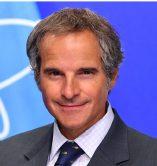
Nuclear power provides a quarter of the world’s low-carbon electricity – and further harnessing its enormous potential could power our transition to green, sustainable economies
a nuclear safety and security protection zone around the site to stop shelling damaging the plant and its power supply. Hopefully, by the time this interview is published, the war will be over. But if it is not, I very much hope that we will have managed to reduce the threat to Zaporizhzhya and any other nuclear instillation in Ukraine.
Why is that so important?
Protecting Ukraine’s nuclear installations is critically important, first and foremost to protect the people who work and live near them.
Long term, we are at a point where we cannot afford nuclear power to suffer another setback as it did after the accident at Chernobyl in 1986 and at the Daiichi Nuclear Power Station in Fukushima in 2011.
Nuclear power provides a quarter of the world’s low-carbon electricity. If you look at the growing number of people who will need electricity over the coming decades, and the enormous potential of the economies of some of the G20 members, it is clear those needs cannot be met in a sustainable way without nuclear power.

The IAEA supports the international community in creating and implementing the frameworks, standards, institutions and practices that put safety, security and safeguards first.
How can the G20 help at the Bali Summit? Individually, each country will have to decide what works best. But as a collective community, I think it is time to be very clear that we will need nuclear power. More and more people realise this. An unequivocal statement by the G20 that nuclear deserves a footing equal to other low-carbon sources in the green transition, and that calls for countries to support the IAEA in its indispensable role in creating the fundamental conditions necessary –also in safety, security and safeguards – for everyone to benefit from nuclear power and other peaceful purposes of nuclear science and technology, would be very powerful. As the G20 represents not only the world’s biggest economies, but its biggest developing economies too, such a statement would go far in helping us all meet our potential, while avoiding the most devastating effects of climate change and energy insecurity.
An unequivocal statement by the G20 that nuclear deserves a footing equal to other low-carbon sources in the green transition … would be very powerful”

As the world faces one of the most turbulent times in recent history, the G20 must continue to find common ground to fight financial crime. This year has seen the world grappling with the Covid-19 pandemic, geopolitical unrest and the horrors of war, a fast drive to digitalisation and the ongoing threat of climate change. The impacts are great: resource shortages, rising inflation, data flowing unrestrained, mass displacement of persons and a changing ecosystem. It is the perfect environment for criminality and corruption to thrive, providing both incentives and opportunities for bad actors to prosper.
G20 leaders meeting in Bali will call for collective action to build strong foundations for sustainable growth and prosperity. Unhindered financial crime poses a massive threat to these foundations. Financial crime costs over $1.5 trillion or 5% of global gross domestic product – a conservative estimate as corruption is around $3.6 trillion in stolen funds and bribes, with emerging markets and infrastructure financing particularly vulnerable. Fraud has increased
The confluence of pandemic recovery and geopolitical unrest is creating a breeding ground for criminality and corruption, and the G20 must act swiftly and decisively lest it threaten our foundations – upon which we seek to build sustainable growth, prosperity and peace for all
Denisse Rudich, director, G20 and G7 Research Groups Londonexponentially, with global losses in 2021 accounting for 6.4% of GDP. Cyber criminals are developing new methods, exploiting vulnerabilities in smart devices, growing at scale and, at times, backed by hostile states. Environmental crimes, including deforestation, illegal wildlife trafficking, illegal mining, and illegal, unreported and unregulated fishing cost between $110 billion and $281 billion annually. With mass displacement, human trafficking and gender-based violence remain massive profit-generating enterprises

Denisse Rudich is director of the G20 and G7 Research Groups London and a financial crime prevention specialist in policy development, strategic advisory and risk management. She has experience in setting up global frameworks in the investment and wholesale banking sectors, advising regulators, government and fintech/regtech firms, and supporting forensic investigations in both the public and private sectors. Rudich is involved in several global initiatives aimed at building effectiveness and collaboration in the fight against financial crime and is the CEO of Rudich Advisory.
Twitter @g20rg www.g20.utoronto.ca
for organised criminal networks. The United Nations describes it as a human trafficking crisis fuelled by conflict.
The G20 system confronts these challenges by setting the global agenda and working with key partners such as the Financial Action Task Force, UN, International Monetary Fund, World Bank and regional organisations. At their Rome Summit in October 2021, G20 leaders made 23 commitments on crime and corruption, but by June 2022 had complied with the priority one at only 33%. At Bali, more needs to be done.
On corruption, G20 leaders should work to meet the terms of the 2022–2024 Anti-Corruption Action Plan. They should emphasise using technology to promote transparency and accountability mechanisms in sectors and industries highly susceptible to corruption, such as infrastructure financing. Countries should come together to create asset seizure and repatriation avenues when identifying assets linked to corruption. They could explore using civil forfeiture measures to make it easier to seize corruptionrelated proceeds.
G20 members should also adapt their anti-money laundering measures to include fraud and cyber crimes. They should endorse the FATF’s work on this matter and encourage greater collaboration with big tech and data companies to facilitate tackling online fraud and protecting consumers, particularly in sectors open to online theft, ransomware and hacks, including the crypto industry. All G20 members should commit to better international cooperation and to sharing knowledge, typologies and best practices, and set fighting fraud and cybercrime as a national security priority for law enforcement agencies.

On environmental crime, the G20 should identify synergies between financial crime and the financial flows for climate, biodiversity and ecosystems, expanding on their commitment made at Rome. This could include creating a task force modelled on United for Wildlife to promote public-private collaboration and develop an environmental crime action plan that would include corruption as a driver of environmental crime. As the world transitions to greener, more sustainable energy, the G20 should focus on the illegal mining of critical minerals and also identify and clamp down on ‘new’ environmental crimes, such as fraudulent carbon trading and greenwashing. Given the impact of deforestation on the global ecosystems, the G20 should redouble efforts to tackle illegal logging, particularly in rainforests, and the movement and disposal of waste and hazardous sources. The G20 should also consider the creation of the international crime of ecocide alongside domestic measures requiring habitat restoration and civil compensation for victims and wide-scale environmental damage.
On human trafficking, more coordination is needed to reduce the financial incentives for traffickers and to address gender-based violence and sexual violence. G20 leaders should make this a priority and explore overlaying financial crime data on top of gender impact data and trafficking data to identify key financial flows. This information should be shared with international law enforcement agencies so they can go after the drivers of profit. The Biarritz Partnership for Gender Equality highlighted that 71% of persons who are trafficked are women and girls, and nearly three in four are trafficked for sexual exploitation.
The G20 and G7 have long recognised money laundering as a threat to democracy. At Bali, G20 leaders again have the opportunity to prioritise pursuing criminal proceeds generated by the predicate offences of financial crime. Identifying and seizing just a fraction of illicit finance flowing through the international financial system would not only disrupt criminal networks but would also generate significant revenues that could be used to recover stronger, together, as a community of nations.
The G20 should also consider the creation of the international crime of ecocide alongside domestic measures requiring habitat restoration and civil compensation for victims and wide-scale environmental damage”

There are several flashpoints in the Indo-Pacific region that threaten global peace and security, and if the G20 cannot find common ground, any meaningful action in this area is unlikely
PhD candidate, University of Waterloo and the Balsillie School of International AffairsThe security situation in the Indo-Pacific continues to worsen. The most dramatic shocks once again concern Taiwan. As usual, both sides blame the other and claim merely to be responding to provocations. The United States and other democratic supporters of Taiwan are growing more concerned by a shifting military balance of power in China’s favour and by increasingly strident Chinese rhetoric about the necessity and inevitability of Taiwan’s ‘reunification’ with the People’s Republic. China blames the US and its allies for encouraging Taiwanese
‘separatism’ through statements and actions that appear to indicate a wavering commitment to the ‘One China’ principle. Foremost among these were US Speaker of the House of Representatives Nancy Pelosi’s trip to Taiwan on 2 August 2022, and President Joe Biden’s repeated assertions that the US would come to Taiwan’s defence if attacked – an apparent deviation from Washington’s long-standing policy of strategic ambiguity. Pelosi’s trip was not unprecedented –Speaker Newt Gingrich visited Taiwan in 1997 – but China’s dramatic reaction was. For almost a week, China practised blockade techniques and fired missiles into the seas around Taiwan, in one case almost directly overflying Taipei.
Taiwan is a dangerous flashpoint not merely because both sides believe it is reacting to the other’s provocations, nor because their interests are diametrically opposed. It is also profoundly emotional. International crises are difficult enough to manage when heads are cool.
Another dramatic shock is extraregional but will likely have important regional implications: Russia’s ill-fated invasion of Ukraine. This ‘special military operation’ took place shortly after Chinese president Xi Jinping and Russian president Vladimir Putin declared that their strategic partnership had “no limits”, signalling a further shift in the global balance of power in favour of China, Russia and authoritarianism more generally. But with Russia’s military flailing in Ukraine and the Russian economy cut off from both the global financial system and vital supply chains, it appears as though China has hitched its wagon to a power in rapid decline. Meanwhile, the stellar performance of the highly motivated Ukrainian military in defending its homeland against an irredentist authoritarian predator has surely encouraged Taiwan and discouraged Chinese military planners. But Indo-Pacific responses to Russia’s war on Ukraine display a worrying lack of solidarity. The only Asian countries to sanction Russia have been Japan, Singapore, South Korea and Taiwan. India’s historical and economic linkages to Russia have led it to equivocate. And Indonesia’s President Joko Widowo, the chair of the G20 this year, who visited Ukraine and Russia in early summer, has signalled a strong desire not to alienate Putin ahead of the Bali Summit.
Other flashpoints in the Indo-Pacific continue to simmer.

Responding to the election of a conservative president in South Korea, Yoon Suk-yeol, and reenergised military cooperation between the US and South Korea, North Korea has ramped up ballistic missile tests and appears ready to resume underground nuclear testing. United Nations Security Council resolutions and sanctions have had little deterrent or inhibiting effect.
The South China Sea remains similarly volatile. With China continuing to insist that it has ‘historical rights’ inconsistent with the UN Convention on the Law of the Sea and refusing to recognise the validity of the 2016 Philippines Arbitration Tribunal award, there is
David A Welch is University Research Chair and professor of political science at the University of Waterloo and the Balsillie School of International Affairs. His most recent book is Security: A Philosophical Investigation. His book Painful Choices: A Theory of Foreign Policy Change was the inaugural winner of the International Studies Association ISSS Book Award for the best book published in 2005 or 2006, and Justice and the Genesis of War was the winner of the 1994 Edgar S Furniss Award for an Outstanding Contribution to National Security Studies. He is co-author of Understanding Global Conflict and Cooperation, 10th edition, with Joseph S Nye, Jr. He is currently co-editor of International Theory
Twitter @DavidAWelch

little room for progress on maritime disputes – and none at all for progress on territorial disputes, which are beyond the remit of UNCLOS. Nor has there been any visible progress in the quest for a code of conduct between China and the Association of Southeast Asian Nations. The US and others have ramped up pressure on China, most notably through stepped-up Freedom of Navigation Operations designed to demonstrate non-recognition of China’s ‘excessive’ maritime claims. These, of course, increase the risks of potentially dangerous conflicts, such as the 2001 Hainan Island and 2009 USS Impeccable incidents. These dangers are amplified by mutual misperceptions. Far from seeking to exert control over the South China Sea, for example, Beijing is attempting to recover from a series of its self-inflicted setbacks, its flexibility limited by the exigency of having to cater to a mobilised, nationalistic domestic audience, to which it cannot afford to admit error or legal defeat. And in conducting freedom of navigation operations, the US is not seeking to assert hegemony or contain China, but merely to uphold the rules-based international order.
It will be interesting to see whether the G20 will make any meaningful statement on Indo-Pacific security at the Bali Summit. One is surely needed to calm the waters. But don’t bet on it. And buckle up for 2023.
JACOB BENJAMIN
Jacob Benjamin is a PhD candidate at the University of Waterloo and the Balsillie School of International Affairs, specialising in conflict and security. He holds an MA in political science from the University of Waterloo. He researches, analyses and writes on the international relations and security of the Indo-Pacific region as well as Canadian foreign policy. He has been published in the International Journal, and his political commentary has appeared in The Diplomat and many Canadian newspapers.
Twitter @_JacobBenjamin






Statistical models can be used to predict how G20 members will perform on the commitments they’ve made – and the results can be used to improve the ability of the G20 to achieve its goals

Since the first G20 summit in 2008, leaders have made 3,032 collective, precise, future-oriented and politically binding commitments to address pivotal issues such as global health, financial stability and economic development. Historically, however, of the commitments assessed for compliance by the G20 Research Group, only 52% of these commitments have been complied with in full.
Research has shown that the underlying factors shaping whether a member will comply with a commitment relate primarily to immutable properties such as its economic position or past compliance with similar commitments. These factors cannot contribute to improving the probability of compliance, since they cannot be changed in the short term. However, a model to predict compliance might help identify which members are the least likely to meet their G20 commitments – enabling resources to be leveraged to assist those members fulfil their obligations. This could improve the overall effectiveness of the G20.

Data on commitment outcomes collected by the G20 Research Group make it possible to build a quantitative prediction model for compliance. Based on each G20 member’s outcomes for 371 individual commitments, the impacts of various summit and commitment characteristics were fitted to an ordinal logistic regression model.
This revealed that several key characteristics of summits and commitments, such as meetings of G20 ministers and references to other G20 summits, were associated with a significant increase in the probability of a given member complying with a specific G20 commitment. By contrast, commitments that mentioned specific dates or monetary values were associated with a significantly lower probability of being met (see Figure 1).
There was also variation in the probability of compliance among G20 members. Australia, the United Kingdom, Japan and Canada were more likely to meet commitments, and Italy, Indonesia
Jessica Rapson is a senior researcher at the G20 and G7 Research Groups and a master of statistical science candidate at the University of Oxford. She is a graduate of University of Toronto’s Munk School of Global Affairs and Public Policy. Her work focuses on the usage of statistics in policy analysis.
Twitter @g20rg

and Saudi Arabia were less likely to do so (see Figure 2).
Likewise, international organisation membership and economic factors also appear to play a role in the probability of compliance with commitments. Countries that were classified by the International Monetary Fund as having advanced economies were almost three times more likely to meet G20 commitments (see

Figure 3). The ability to comply seems to matter much.
Finally, the probability of compliance varied by the commitment’s central subject. Commitments related to microeconomic policy were more than three times as likely to be achieved, the highest of any commitment subject. Compliance was also more likely for commitments on energy, terrorism,
employment, and information and communication technology. Compliance was less likely for commitments on international cooperation, the environment and reform international financial institutions (see Figure 4).
Despite many significant variables,
the overall explanatory power of this model is very low. Even when all summit characteristics, member properties and commitment features are considered together, only 8.3% of the variance in G20 compliance could be explained (McFadden’s pseudo R2). This suggests that most of the compliance with G20 commitments may be determined by unknown factors or could even be highly random.
Nonetheless, there is hope for increasing G20 effectiveness. All the significant variables examined can

be combined into a model to predict future compliance. The ordinal logistic regression model can predict compliance in a holdout set with 62% accuracy, while a random forest classifier model trained on the same data is able to predict compliance with 77%. Although not perfect, this second model performs much better than chance, enabling potential compliance issues to be detected as soon as commitments are made so that resources can be directed accordingly (see Table 1).
Increasing G20 effectiveness by leveraging patterns associated with higher probabilities of compliance is extremely difficult, as most performance is likely determined by factors outside the members’ control. However, by using available information to predict future compliance, it may be possible to direct resources towards assisting members at a higher risk of failing to meet their obligations – thus improving the overall ability of the G20 to achieve its goals.
Figure 4: Effect on probability of compliance Select commitment issues






















What did you learn in chairing the first G20 finance ministers’ meetings?
I learned why the G20 can play such an important role. It is a well-situated forum capable of enabling countries to handle globalisation because it is built on the premise that no country, no matter how powerful, can handle the issues borne of globalisation alone. But when national and global responses are put together, they are unstoppable.
This means that the direct involvement of experienced national ministers in their specific fields must be integral to the global role embodied by the G20. It is a role that is crucial if globalisation is to benefit everyone. In short, this is the reason why the G20 leaders must invite to the table the ministers who have dealt or are dealing with difficult issues at home and who can
develop global answers to similar issues internationally when the need arises. Hopefully this is what we will see come out of Bali.
What are the issues the G20 should address?



They are issues that are beyond the capacity of any one country to resolve on its own – such as climate change. There we need G20 meetings with the responsible ministers. With the massive shifts in climate resulting in floods, fires and droughts all over, and faced with the countervailing pressure of energy supply constraints and the immediate need to rely on fossil fuels while maintaining our collective commitment to a clean energy transition, if the people making the decisions globally are not the ones dealing

The one thing every global issue has in common is cost. But success doesn’t come for free, and the cost of a successful economy, a healthy population and a healthy environment is much less than the cost of delay

Paul Martin was prime minister of Canada from 2003 to 2006 and minister of finance from 1993 to 2002. He chaired the inaugural meeting of G20 finance ministers and central bank governors in 1999 and continued in that position for three years. After leaving politics, Mr Martin joined with members of his family to create the Martin Family Initiative, which focuses on supporting education, health and well-being outcomes for Indigenous children and youth.
themfi.ca




difficulties, which never should have happened, and must not be allowed to happen again.

Why is the involvement of finance ministers particularly important?
but the finance ministers were able to act on their own and they acted quickly.
with these issues at home, then the only thing we will get internationally will be communiqués, and not real action. We need the same process for health, because the next pandemic – which none of us can predict but all of us must expect – will be resolved only by drawing on what we have learned in dealing with Covid-19. The next pandemic will contain surprises, but if the people who respond to them draw on the successes and recognise the mistakes of the last decade, we will overcome.
One lesson we have all learned is that there can be no successful economy without a healthy population and a healthy environment. Success doesn’t come for free. It costs money, but it’s much less than the cost of delay. This is a global lesson from Africa’s Covid-19 vaccination


The one element common to every global issue is cost. How do we pay for it? Finance ministers are always involved in costing so they have a unique and far-reaching understanding of what is, surprisingly, not always well understood. They need to be there as decisions are being taken. This is true for domestic issues of course, but even more so internationally, because perpetual hesitation over cost must not be allowed to prevent a global response to a global attack on society such as a pandemic or indeed climate change and the energy transition.
Why is the G20 suited to this kind of collaboration?
The origins of the G20 are a clear example of effective collaboration. It was created because the G7 finance ministers needed to draw on a wider range of countries’ experience to deal with certain international issues. When we were responding to the Asian financial crisis that began in 1997, we were told quickly that the challenge was beyond our borders and beyond our capacity. This led the G7 finance ministers to create the finance ministers’ G20, and I can tell you the quality of global debate and approach improved substantially with that response. That process could have taken far longer,
That collaboration is what we need at the leaders’ level, to be sure – but also with ministers who deal with climate change and ministers who deal with pandemics, and in all cases with the pertinent global institutions. There is huge expertise in individual countries that needs to be made available to the world, but the way to do it is to start with the G20 finance ministers as facilitators.
What about Ukraine?
Unfortunately, it may not be the G20 that stops the war in Ukraine, but it must play a strong role when the time comes to rebuild the Ukrainian economy. Here the G20 cannot ignore its responsibility. It has to be a major player in Ukraine’s economic rehabilitation.
What does all this mean?
It means that lasting international success will begin with the utilisation of national expertise. It is the global coordination of national capacity by countries that is the G20’s greatest asset.


We are many countries, but one world. We spend a lot of effort building international bodies for global success, and so we should. But remember, the more we share our expertise and experience with others, the more successful our global institutions will be – and vice versa.
It’s about helping many countries to begin with. But, ultimately, it’s about building a better world.
If the people making the decisions globally are not the ones dealing with these issues at home, then the only thing we will get internationally will be communiqués, and not real action”

policy recommendations can equip G20 leaders with a deep understanding of the important issues backed by academically rigorous analysis.













The Think 20 engagement group brings together think tanks and academics from G20 members and beyond to serve as a research-based ‘ideas bank’ for the G20. Its position is central to ensuring the issues that G20 leaders intend to resolve are the pertinent ones. T20






















T20 Indonesia produced a communiqué that proposes several recommendations to G20 leaders to address the current turmoil. It urges G20 leaders to make an immediate concerted effort to achieve an inclusive and stronger recovery, restructure the global health architecture, leverage the digital transformation, accelerate the sustainable energy transition, and build better and more solid cooperation. Given the importance of the T20’s role, on the occasion of its 10th anniversary, T20 Indonesia has aimed to continue the exemplary work of past T20 presidencies throughout 2022 and done its best to ensure the objectivity and inclusivity of its policy recommendations.
In light of recent developments, upholding the principle of inclusivity in discussions at the G20 level might not be an easy task. Currently, narratives revolving around global issues are still dominated by Northern voices that tend to be more congruent with the policies and views of developed countries. However, developing and low-income countries are equally affected by the current crises, if not more. Thus, increasing the representation of Southern voices is crucial to ensure that global narratives are just and fair and acceptable to all governments from all types of countries. Global issues such as the Covid-19 pandemic, climate change and the digital transformation happen on a scale that requires both collective action and a commitment from all governments and stakeholders that is almost non-negotiable.
This year’s Think 20 engagement group is making policy recommendations that fall under five themes, and all of them are formulated with inclusivity in mind
Bambang Brodjonegoro and Djisman Simandjuntak, co-chairs, Think 20 2022
In the 2022 T20 communiqué, T20 Indonesia policy recommendations came under five themes: 1) fostering recovery and resilience, 2) accelerating the progress towards net zero emissions, 3) governing the transformation to a digital society, 4) making the economy more inclusive and people-centred, and 5) reviving global governance.
These recommendations were developed through a rigorous process. T20 Indonesia gathered 764 policy brief abstracts and produced 130 policy briefs, written by more than 200 authors from a think tank network spanning the globe. To ensure a high-quality output, in addition to the T20 summit held in Bali in September 2022, T20 Indonesia co-organised three main events, namely the Global Solutions Summit in March, the Global Dialogue in April and the Global Policy Forum in June.
Bambang Brodjonegoro is a professor of economics at the University of Indonesia. He is also the president commissioner of PT Telkom Indonesia Tbk and PT.Bukalapak.com, two leading technology companies in Indonesia. He chairs the Economic Empowerment Agency and the Indonesia Chamber of Commerce (KADIN). For more than 10 years, Bambang served as minister of finance, minister of development planning and minister of finance, within three cabinets of Indonesia’s presidency.
Djisman Simandjuntak is a senior economist and chair of the board of directors of the CSIS Foundation. He has worked on a wide array of issues, many in the field of international economics and macroeconomics. He also lectures at various national universities, and served as executive director of the Prasetiya Mulya Business School. He also serves as an independent commissioner at the Lippo Bank. Twitter @T20Solutions t20indonesia.org
In addition, T20 Indonesia’s nine task forces held more than 200 events.

T20 Indonesia has emphasised inclusivity in formulating its recommendations. This is to ensure that the policies recommended are relevant and matter not only for certain groups of countries and also to strengthen the T20’s leadership and performance of its

summit and recommendations. Inclusivity is imperative as Indonesia’s presidency is in the important position of setting the tone and providing an example to the developing countries whose G20 and T20 presidencies follow, namely India in 2023, Brazil in 2024 and South Africa in 2025. Several aspects could be strengthened to contribute further to G20 governance. One challenge for Indonesia’s presidency was the shock to the global economy, caused by escalating geopolitical tension. This put Indonesia in the difficult position of aligning the G20’s priority agendas and presenting united recommendations. Due to differences in political interests, this geopolitical situation created varying priorities among G20 members. One lesson learned, therefore, is that aligning priorities not only among G20 members but also among engagement groups from day one helps produce common agendas and goals. In addition, more collaboration and active cooperation between the G20 engagement groups and the G20 and its working groups will create stronger bonds and more productive discussions and resolutions in G20 forums.


In light of recent developments, upholding the principle of inclusivity in discussions at the G20 level might not be an easy task”
The Science 20 has identified key challenges that should be tackled by the Bali Summit and calls on the G20 leaders to commit to supporting these priorities to recover together, recover stronger
The Science 20 engages the international scientific community in a dialogue to present G20 policymakers with science-driven, consensus-based recommendations for each summit’s priorities. The 2022 G20 has been entrusted to Indonesia with a theme of ‘recover together, recover stronger’, with three significant pillars: the global health architecture, digital economy transformation and energy transition. The goal is to develop a concrete action plan for a green, inclusive, resilient and sustainable global economic recovery, mainly after the Covid-19 pandemic.
The S20 translated those pillars into which challenges should be tackled by the Bali Summit, covering building resilient health systems, enhancing the adaptive capacity of health systems to climate change, bolstering multidisciplinary science and technology for pandemic preparedness and climate change, guaranteeing that people are at the centre, and strengthening the nexus between data–research–policy for climate change, pandemic preparedness and economic recovery.
Environmental and health issues are high priorities for the S20. Data show that climate change affects human health and the ecological environment regionally and globally, and also affects the environmental order and all living things. Although scientists forecasted greenhouse gas effects two decades ago, the public still resisted the inevitability of the phenomenon of climate change. The emergence of the Covid-19 pandemic triggered public awareness that climate change is real, with Covid-19 among its impacts.
As health systems are the main line of defence in protecting people from the effects of climate change, it is vital to ensure that health systems can continue to deliver essential services during extreme events and under climate stress. Changing conditions will drive the risk of zoonosis, increasing the urgency of implementing the One Health approach, which brings together human, animal and plant health. Climate change mitigation and adaptation must be embedded in all pandemic recovery plans, including in the health sector.
Under Italy’s presidency in 2021, the Science 20 and Social Sciences and
Finarya Legoh is the secretary of Science 20 2022 and the head of international relations and funding at the Indonesian Academy of Sciences. She is a science communicator and serves as the chair of Science Health Agriculture Risk and Environment (SHARE) Communication in the Association of Academies and Societies of Sciences in Asia. She is also a senior lecturer at the University of Indonesia on building technology and sustainable architecture.
Humanity 20 were interlinked. So Indonesia’s S20 decided to combine them in one communiqué. The issue of “guaranteeing that people are at the centre” bridged the proposed issues and recommendations for S20 2022 as a common response from the science academies, in outlining their priorities and proposing an action plan.

The 2022 S20 recommends involving people in building an interconnected health system and the digital economy, which benefit and create safety nets for all, to ensure sustainability and resilience for both society and planet. People must be at the centre –especially those in vulnerable situations – in both the global health architecture and the digital economy transformation.
The S20’s recommendations and actions aim to promote more inclusive and resilient growth for all. G20 science academies need to strengthen their cooperation to overcome climate change, enhance health system resilience, and fortify the contributions from science and technology, in order to improve the quality of life for all. The G20 should foster countries’ ability to enhance multidisciplinary collaborative work with various stakeholders, using science and technology.
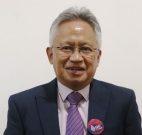
Satryo Soemantri Brodjonegoro is chair of Science 20 2022 and president of the Indonesian Academy of Sciences. He is vice president of the Association of Academies and Societies of Sciences in Asia, and serves as a special adviser to the coordinating minister for maritime affairs and investments of Indonesia. He is a professor emeritus in mechanical engineering at the Bandung Institute of Technology and a visiting professor in mechanical engineering at Toyohashi University of Technology in Japan.
S20indonesia.org
The 2022 S20 summit agreed that interdisciplinary collaboration and transdisciplinary engagement with various parties are key to success for all. To begin, an online symposium can be organised on a particular multidisciplinary theme dealing with global challenges to assist in building knowledge capacity and skills for the research and development needed. As science academies are centres of highly qualified professionals, they are an ideal source of speakers and mentors, who support the principles of reliable data repositories, data sharing resources, open access and open science. This is an opportunity that the S20 brings to the attention of the G20 leaders.
Ambitious political will and strong policymaking are needed, supported by evidence- and science-based policies that include the requirements to accelerate research and development in order to benefit both people and planet.
G20 members should commit to supporting science and technology cooperation and expand access across all members. Sharing knowledge, technology and financial support among G20 members is one mechanism to achieve this commitment.
With the G20 experiencing mission creep and weighing in on topics well beyond its original remit, growing political divergence within the group could well hinder its effectiveness
The G20 was first established as a novel sort of governance group that would address pressing financial and economic issues by largely technocratic means. The club was premised on there being settled agreement among its members – that the global economic order is a neoliberal one, and that its management is best conducted through a set of policy instruments at the disposal of state governments and central banks. In this way, the G20 is a creature of the mid-1990s ‘end of history’ moment in which it was first assembled –imagining that in the aftermath of the Cold War the world’s leading challenges could be addressed by a post-political institution.
This consensus served the group well, particularly in the wake of the 2008 global financial crisis, affirming the G20 as the top table of global economic governance and supplanting the G7 in so doing. In the years since, the G20’s remit has expanded well beyond its original purpose and design, with the club
weighing in on topics ranging from climate change to health to development. A key problem with such mission creep, though, is that as the nature and number of topics the club claims competency over proliferate, it becomes ever more difficult to avoid political divergence within the club.

The problem is further compounded when issues beyond the G20’s expanded remit position its members decisively at odds with one another. With Russia’s invasion of Ukraine, inflation at levels unseen since the 1970s and US-China tensions continuing to build, history has come roaring back in 2022.
While there is rightfully much focus on Ukraine now, we have been heading down this path for some time. The cracks most noticeably began to appear with the United States turning its back on climate change and the liberal economic order in 2017. In the time since, the forces that caused such a radical departure in US
Tristen Naylor is the lecturer in international politics and history at the University of Cambridge and deputy director of the G20 and G7 Research Groups London. An expert in international diplomacy, his most recent book provides a new history of the G7 and G20 summits. He was previously a fellow in international relations at the London School of Economics and the lecturer in diplomatic studies at the University of Oxford. He served as a foreign policy adviser to the Government of Canada. He is a recipient of the Canadian Public Service Award of Excellence.

Twitter @tristennaylor
www.g20.utoronto.ca
foreign policy under the Trump administration have accelerated and intensified globally. Nationalism, militarism and protectionism are no longer comfortably consigned to the past, nor are they confined geographically.
The G20 is not designed for this kind of world. While a more diverse and inclusive group than its institutional forebear, the G7, its representative legitimacy does not translate into expedient efficacy in such a contentious environment. The G20 has always been composed of competitors on the world’s stage, but in today’s historical moment, it is significant – and worrying – that rivalries are now becoming adversarial. Rivals can govern in concert; adversaries cannot.
The G20 thus finds itself hampered in the face of multiple, interconnected global crises. Not only are the most pressing threats to global order now driven by geopolitical and ideological contestation, but such antagonism also concurrently impedes efforts to confront the looming existential threat of irreversible, catastrophic climate change. Precisely when the world needs the G20, its hands are tied.
Meanwhile, the G7 has been given a new lease on life, with members rallying together in support for Ukraine and in defence of a rules-based international order. Although less representative, as a tight-knit, like-minded group of allies, the G7 can band together amidst geopolitical upheaval while the G20 atrophies in division and contestation. What many up until recently regarded as an anachronism is suddenly no longer so, and the G20 – an institution heralded as the future of global governance – finds itself hobbled. This is not because either group has changed, but because the world around them has.
This moment may prove to be a blip. If so, the G20 could tread water for a while, emerge out the other side, and resume business as normal. There is little to suggest, though, that what we find ourselves in the midst of today is anything but a longer-term trend. The historical outlier was the brief moment of post–Cold War unipolarity in which it was imagined that consensus-based, technocratic global governance could be the new norm.
A re-politicised international domain does not imply the end of multilateral governance. But it does mean that the institutions most likely to be effective in such an environment are those that are decidedly less diverse – less global – than the G20. The return of politics suggests that it is smaller groups of politically aligned states that are more likely to thrive, while those more heterogeneous in composition are more likely to sputter and stall. This is a context ripe for the G7 and perilous for the G20.
The vision of what the G20 can offer the world remains laudable, but the world in which it now finds itself may well be one in which its ambition is utopian. If the world does not soon correct its course, the G20 will need to.

Although less representative, as a tight-knit, like-minded group of allies, the G7 can band together amidst geopolitical upheaval while the G20 atrophies in division and contestation”
As G20 leaders prepare to meet in Bali, Indonesia faces a pivotal leadership moment on the global stage. Set against the backdrop of a Covid-19–induced economic crisis, exacerbated by Russia’s ongoing war in Ukraine and deepening United States-China rivalry, Indonesia’s diplomatic aspiration to be a global ‘bridge builder’ will be put to the test.
Expectations should be kept in check. It will be a difficult meeting set to an ambitious agenda. At the very least, Indonesia’s success will be in reinforcing the principles of dialogue and cooperation as the underpinnings of global governance.
For President Joko Widodo, stepping into the final stages of his two-term leadership, the stakes are particularly high. His personal legacy will rest not only in the global outcomes, but in what might be achieved for Indonesia’s regional leadership ambitions, and for recovery in the domestic economy.
Jokowi attended his first G20 in Brisbane in 2014, just weeks after his inauguration. At the time, his preference for focusing on domestic affairs was well known, and rumours that he would bypass the major event (repeated in subsequent years) loomed large.
In recent years, Jokowi has engaged more actively in the dynamics of the G20. It reflects an important shift. Though not necessarily reflecting a newfound preference for the international domain, it signals his recognition that Indonesia’s long-term prospects are intrinsically tied to the dynamics of the global economy.
Taking on the G20 presidency in 2022 was never going to be an easy feat. Despite what some called the ‘mind boggling confluence of problems and shocks’, Indonesia has advanced G20 dialogue, even if consensus has not always been achieved. Making it clear from the outset that he had no interest in the dynamics of global geopolitics, Jokowi has personally engaged with his global counterparts, including Russia’s Vladimir Putin on problematic G20 issues.
While his aspirations for world peace may have been rebuffed, Jokowi has reinforced the
 Caitlin Byrne, pro vice chancellor (business), Griffith University Business School
Caitlin Byrne, pro vice chancellor (business), Griffith University Business School
The bar may be set high and the world facing myriad challenges, but Indonesia as host of this year’s G20 summit promises much-needed ambition, optimism and energy for the global recovery agenda
G20 as a mechanism for joint and inclusive efforts or solutions for recovery. He has been careful to maintain Indonesia’s characteristic ‘free and active’ foreign policy approach – a position that has garnered support from key partners, including Australia, and will likely avert any large-scale boycott of the Bali Summit.
At a regional level, Indonesia’s G20 leadership aligns to ongoing aspirations for Southeast Asia, particularly as Indonesia prepares to take on the rotating presidency of the Association of Southeast Asian Nations in 2023.
The ASEAN agenda will undoubtedly benefit from Indonesia’s engagement in G20 economic policy coordination, from decarbonisation to digital transformation. An increasingly ambitious Indonesia will likely push for reform of the regional architecture to shore up its relevance in an increasingly contested Indo-Pacific landscape. Yet, while stormy headwinds prevail, there is no guarantee that Indonesia’s ambitious ideas will sail through.
$100 million 20,000
expected influx into domestic economy from international delegates in attendance
Despite their larger ambitions, Indonesian leaders expect the most significant outcomes from the G20 hosting year will be felt at home. The Ministry of Foreign Affairs points to the expected $100 million influx into the domestic economy from an expected 20,000 international delegates –dispersed by virtue of clever planning throughout the archipelago.
Much effort has been invested, including through regulatory change to ensure G20 agenda discussions ‘support and boost economic recovery activity in Indonesia’. Forward initiatives, including the 2021 relaxation of restrictions on foreign direct investment into priority sectors, such as telecommunications and digital infrastructure, signal the strong imperative to tie the G20 agenda to domestic opportunity.
Caitlin Byrne is pro vice chancellor (business) of the Griffith University Business School, an institution committed to delivering contemporary business education and scholarship aimed at securing more sustainable, inclusive and prosperous global futures. Having recently been director of the Griffith Asia Institute, she is recognised as one of Australia’s leading academic-practitioners on international policy and diplomatic practice with a special focus on Asia and the Pacific. She has a long-standing interest in the G20, including as lead for Australia’s W20 delegation in 2022.
Twitter @caitebyrne griffith.edu.au

Throughout its presidency, interactions between G20 engagement groups, including the Business 20 and Women 20, and local interest groups and communities have generated awareness and positive messaging on G20 priorities, such as women’s education and economic participation. It has not all been smooth sailing. Protests surrounding the W20 meeting at Lake Toba highlighting the exclusion of local Indigenous voices from the economic empowerment agenda – a salient issue for the G20 policy agenda more broadly –took some shine off the conversations. Finally, the public diplomacy opportunity to showcase Indonesia to the world, as ‘a starting point for restoring post-pandemic economic confidence at home and internationally’ was not to be missed. Championing Indonesia’s place in the global spotlight, Sandiaga Uno –the charismatic minister for tourism and creative economy – suggested that the G20 will attract some 1.5 million foreign tourists to Bali and 3.6 million tourists before the end of the year.
Just over two decades ago, some considered Indonesia’s inclusion in the G20 surprising. Today, as its G20 presidency ends, the archipelagic Southeast Asian country reflects much-needed ambition, optimism and energy for the global recovery agenda. The bar is set high, but these qualities will go a long way to ensuring that the 2022 Bali Summit – whatever is achieved – will deliver some success on all fronts.

The Bali Summit presents an opportunity to refocus the G20, with greater emphasis on its role as a conduit among a wide range of actors and playing to its culture of interactions on the sidelines of the formal agenda
The Bali Summit on 15–16 November 2022 accentuates a turn in the nature of the G20 with considerable impact on the role of Indonesia as host. The original purpose of the G20 was to act as a crisis committee in the context of the 2008 global financial crisis. Although the degree to which this institutional forum achieved its goals continues to be contested, there is little debate about the magnitude of change captured by the creation of the G20 with respect to global governance.
Instrumentally, there has been considerable erosion of efficiency since the Toronto Summit in June 2010, at the start of the eurozone crisis. In this context, the predominant norm arising out of the G20 meetings was a shift towards policy differentiation as a result of differing national circumstances.
However, there is an important distinction between the loosening of the G20 process and the demand for its sustained functional performance. Notwithstanding the erosion of its initial – and intense – role in 2008 and 2009, as an institutional arrangement designed to stem the effects of the financial crisis, the G20 has been reinvented.
Although the G20 is effectively dead as a viable and visible crisis committee in collective policy terms, it lives on as a hub or apex focal point, with greater emphasis on the role of the G20 to act as a conduit among a wider range of actors and issues with a continued privileging of leaders. In essence, the G20 acts as a central point of attention or interest in the global governance architecture.
A core strength of the turn towards a hub or apex focal point structure is that it allowed the G20 indirectly or directly to inform and actively engage its governance by cutting across several global governance architectures at the same time. A good example is the endorsement of the 2016 Hangzhou G20 Action Plan on the United Nations’ 2030 Agenda for Sustainable Development.
The differences between the G20 as a hub or apex focal point and the summitry of the G7 are reinforced by the sharp contrast in style in their operational culture. The G7’s main strength is an embedded culture of like-mindedness that allows dialogue

Andrew F Cooper is a university research professor in the Department of Political Science and a professor at the Balsillie School of International Affairs at the University of Waterloo. From 2003 to 2010 he was the associate director and distinguished fellow of the Centre for International Governance Innovation. He is the author of 11 books, including BRICS: A Very Short Introduction . He is also co-author of The Group of Twenty (G20), and the co-editor of 21 collections, notably The Oxford Handbook of Modern Diplomacy
on sensitive issues of mutual interest. In the G20’s evolution, the culture has shifted towards interactions often on the sidelines of the formal agenda.
In part at least, the accentuated turn to the G20’s focal point role is by default. That is to say, the G20 has not been brought back to life as a crisis committee during the Covid-19 pandemic. The G20 failed to materialise as a purpose-driven response instrument capable of meeting that crisis.
That said, the intensification of tensions between China and Russia, on the one hand, and the incumbents clustered around the G7 (with the suspension of Russia in 2014) on the other, reinforce the rationale for a focal point. Indeed, without the G20, the trend towards competing institutional types is given greater leeway with an expanded G7 on one side and an expanded BRICS on the other – squeezing Indonesia, among others, in the middle.
There are serious tests in the way of the smooth transition towards the G20’s role as a hub or apex focal point. In the past, this role was made far more difficult at the 2017 Hamburg and 2018 Buenos Aires summits by Donald Trump’s impulsive (and distorted) use of the G20 as a personalised focal point during his time as US president.
For the future, though, the key issue is how Russia’s Vladimir Putin is incorporated into the focal point design in a world where geopolitics, not global governance, has become dominant. As the host of the Bali Summit, Indonesia has been put into the pressurised situation of having to push back on calls by the United States and some of its allies to exclude Russia from the Bali Summit – a move that, if implemented, would mean the loss of credibility for the G20 in terms of the hub or apex focal point role.
To Indonesia’s enormous credit, such calls have been rebuffed. If such calls are inevitable given Russia’s invasion of Ukraine, then the G20 is more important than one single country or leader. In a best-case scenario, the G20 offers a prime site for mediation. But even without this type of functional performance, only by maintaining the summit process as a forum of (difficult) coexistence can the G20’s meaning be justified and even amplified.
The differences between the G20 as a hub or apex focal point and the summitry of the G7 are reinforced by the sharp contrast in style in their operational culture”
With its unique membership of advanced economies and emerging markets, the G20 has assumed much greater relevance as contestations and visions have multiplied in recent months. Consequently, both the expectations and the agenda have grown at a pace difficult to manage for a presidency in the limited time it has. In this respect, Indonesia’s presidency this year has provided exemplary courage in bringing all the actors together. President Joko Widodo has reached out to all members for this great accomplishment.
With the global economy facing headwinds beyond its control, G20 members are keen to address these new challenges in wider deliberations. Marking a radical departure from the finance and macroeconomic coordination that led to the formation of the G20, new development issues and strategies occupy a major place. Such fundamental global issues include climate change, the Sustainable Development Goals, food security, digitalisation, energy transition, social cohesion and debt management.
While the world is currently experiencing turbulence in geo-political conflicts, rising food, fuel and energy prices, migration and widening gaps in development

finance, people around the world have high expectations for Indonesia’s presidency and the three future presidencies – all developing countries: India, Brazil and South Africa. In particular, the upcoming presidencies could offer tremendous opportunity for strengthening the G20 development agenda, especially addressing the development concerns of developing countries, least developed countries and small island developing states and providing a greater voice for the South.
Indonesia’s G20 presidency has the daunting task of addressing growing pessimism and uncertainty and reversing the sharp declines in achieving the SDGs in many countries of the world. According to the International Monetary Fund, a global recession is imminent, with growth falling from 6% in 2021 to 3.2% in 2022, and further to 2.7% in 2023, characterised by massive contraction in the United States,
euro area and emerging markets. This gloomy economic outlook for the next two years could amplify the remaining wounds of the Covid-19 pandemic, stressed supply chains and rising prices. The G20 is grappling with the huge responsibility of dealing with the humanitarian crisis arising from the Russia-Ukraine conflict. While the Indonesian presidency is working on the collective recovery through ‘recover together, recover stronger’, the outcome is doubtful, as food–fuel–energy crises are still unfolding. India’s presidency in 2023 will likely have to work on fixing the world economy, with heavy expectations for concrete development outcomes.
It is thus crucial to develop a new narrative on inclusive and equitable growth in the post-pandemic socio-economic environment. Growth should be judged in terms of wellness and well-being rather than solely gross domestic product. It must support universal principles, sustainable global governance and the successful implementation of the
The G20 faces unprecedented, converging challenges, and it must forge the way forward with renewed collaborative efforts towards a global recovery –and international progress
2030 Agenda for Sustainable Development. It is pertinent to ask how to include fundamental development principles in this new notion of quality growth. To ensure no one is left behind, the 2022 Think 20 and the Civil 20 summits also called for promoting global peace by emphasising the principles of justice, equality, inclusiveness, collaboration and resource sharing, an inclusive health architecture, climate justice, a just energy transition, tax justice and civic spaces. We must prioritise humanity first if we want a just transition.
As the rate of digitisation accelerates, Industry 4.0 is being adopted by all major G20 economies. The G20 will take into account new types of international development partners and collective actions to promote sustainable industrial productive capacity; a robust and industry-related services sector; strengthened micro-, small- and medium-sized enterprises and agro-industry;

links to the global market; and the digital economy in least developed countries. The basic values of access, equity and inclusion should serve as the framework for governing the technology regime. To ensure inclusion and build the educational system for inclusive learning and skills development, it is important to bridge the digital divide and leverage digital systems. During its G20 presidency in 2023, India will have the opportunity to capitalise on the platform to expand its global public goods.
The G20’s discussions on agriculture will include ensuring food security and nutrition, reducing food losses and waste, and boosting productivity under changing climatic and economic conditions.
The time has come when Africa should be more included in the G20. Africa accounts for 2.84% of global GDP in nominal terms. In fact, Africa is the
Sachin Chaturvedi is director-general of the Research and Information System for Developing Countries (RIS) in New Delhi. He is a member of the board of governors of the Reserve Bank of India and was a global justice fellow at the MacMillan Center for International Affairs at Yale University, developing country fellow at the University of Amsterdam, a visiting fellow at the Institute of Advanced Studies in Shimla and a visiting scholar at the German Development Institute. He has served as a visiting professor at the Jawaharlal Nehru University. His views expressed here are personal.

Twitter @Sachin_Chat ris.org.in
second smallest continental economy in the world after Oceania. Its economy was $2.7 trillion in nominal terms in 2021. Nigeria is ranked the 27th largest economy in the world in terms of nominal GDP, and had the highest GDP in Africa in 2021, with $441.5 billion. In view of post-pandemic development, the G20 cannot leave Africa and the African Union behind.
Amid these global challenges, there has been a growing reliance on multilateral institutions such as the G20 to strengthen collaborative efforts towards a global recovery. To maximise the benefits of its 2023 presidency, India plans to draw attention to, and garner support for, imperative socio-economic challenges ranging from energy and agriculture to trade and the digital economy, health and the environment, and even employment, tourism, anti-corruption and women’s empowerment.
While the Indonesian presidency is working on the collective recovery through ‘recover together, recover stronger’, the outcome is doubtful, as food–fuel–energy crises are still unfolding”







